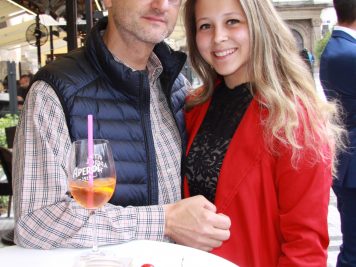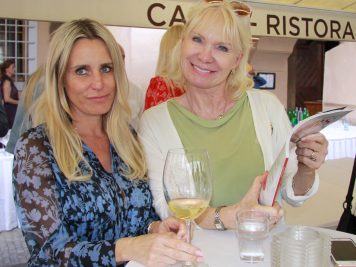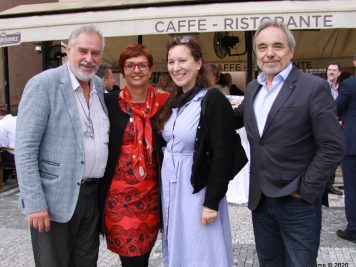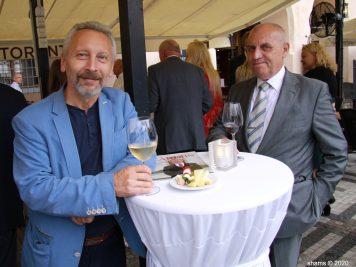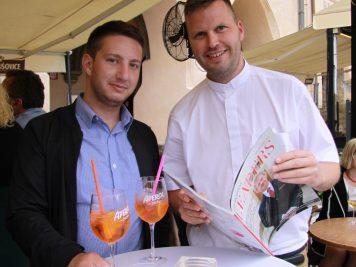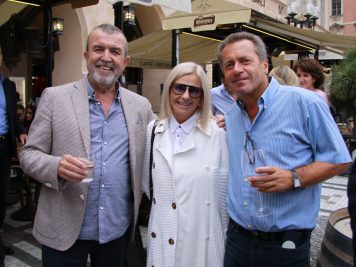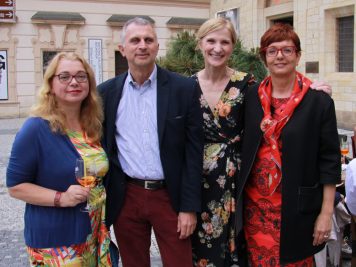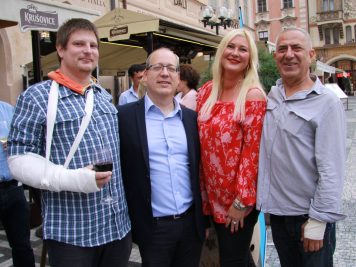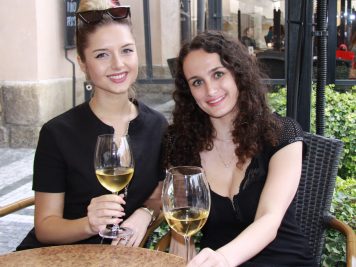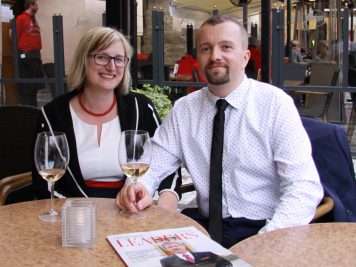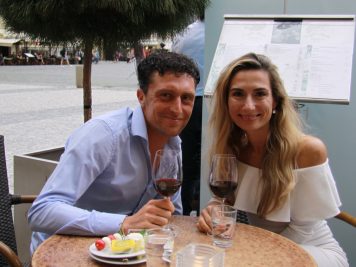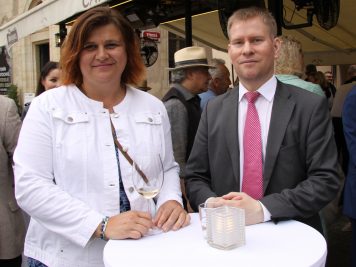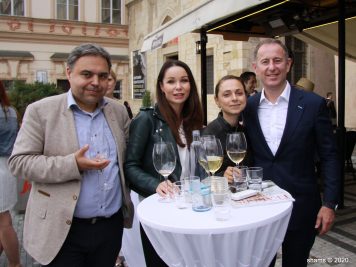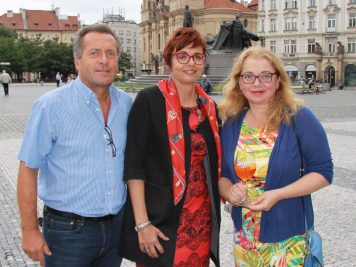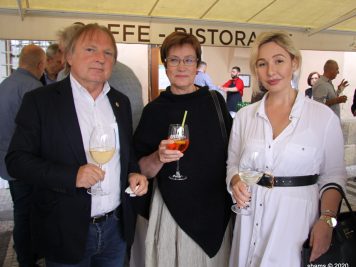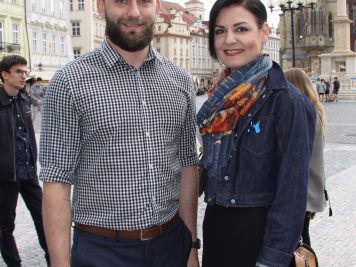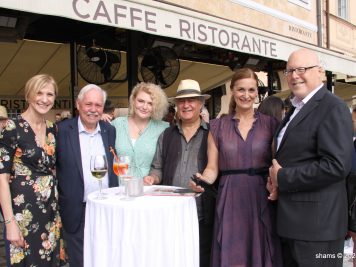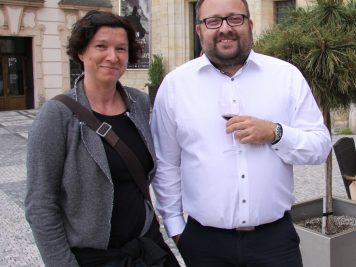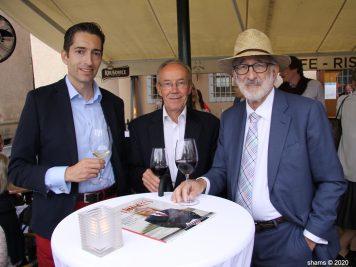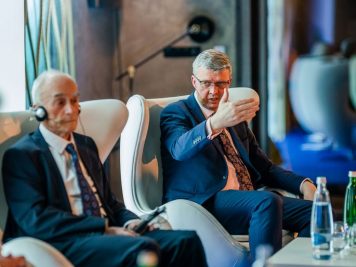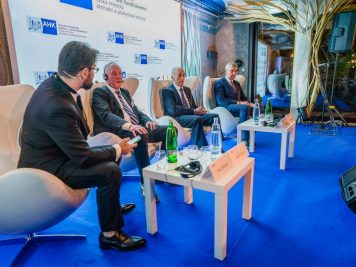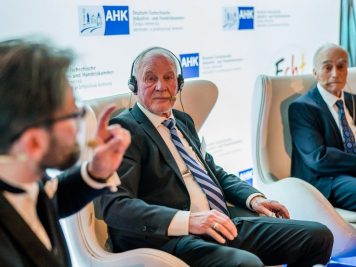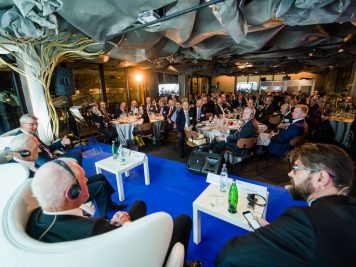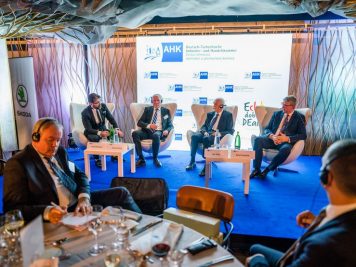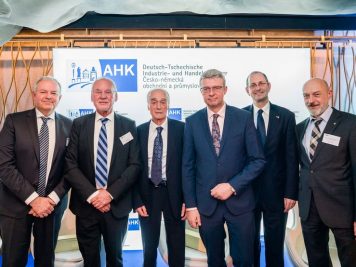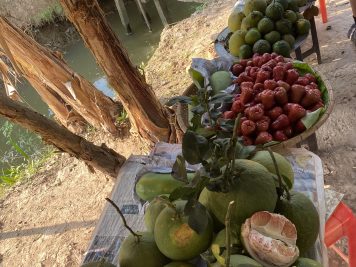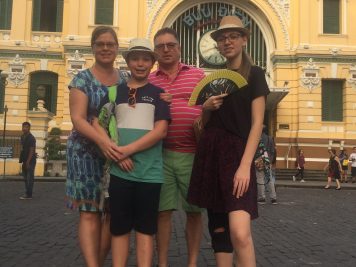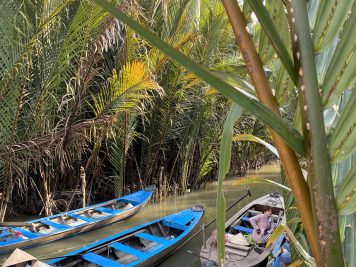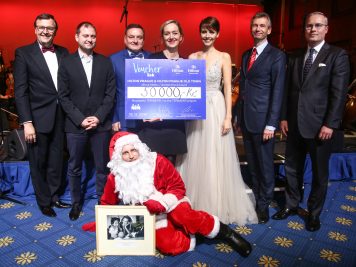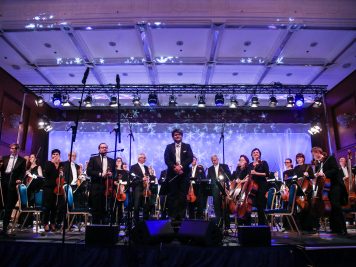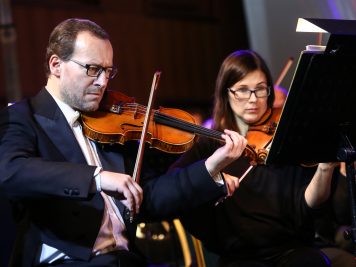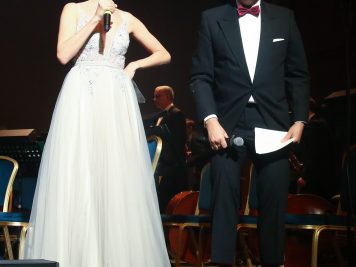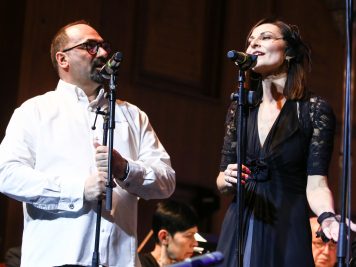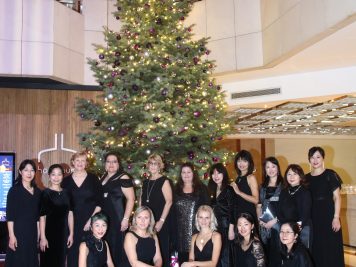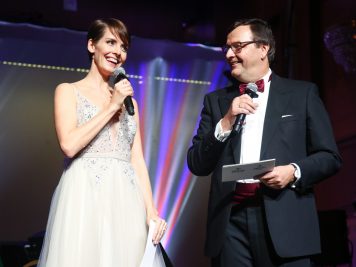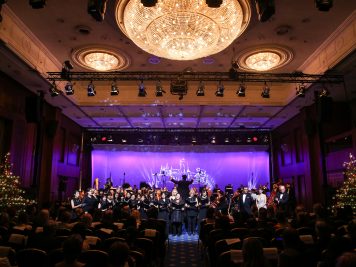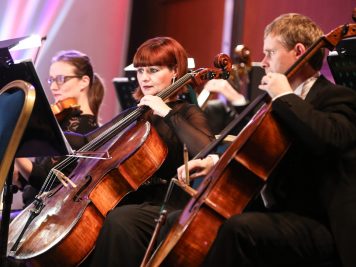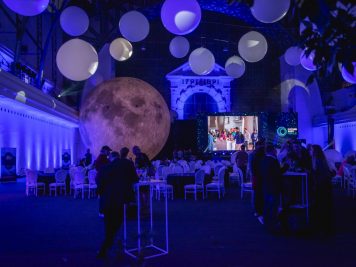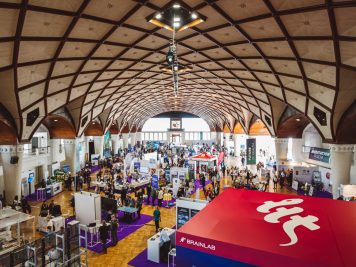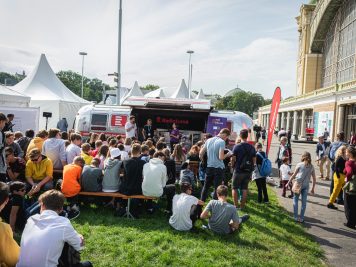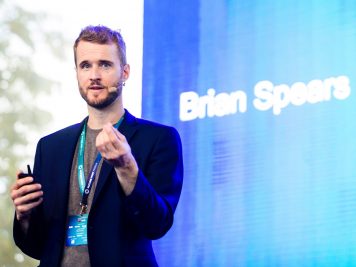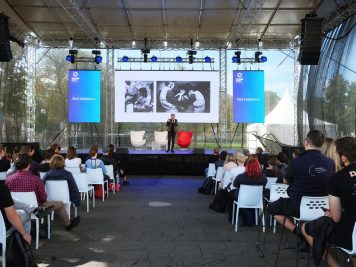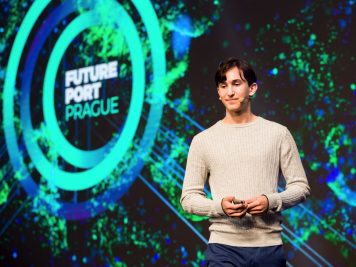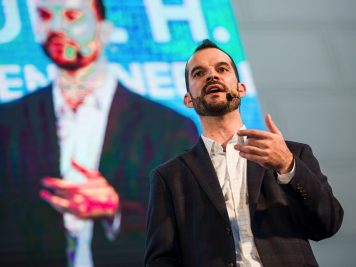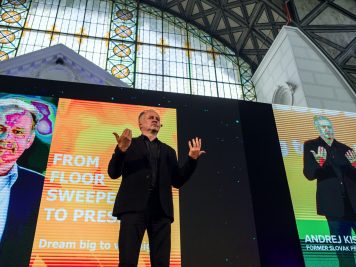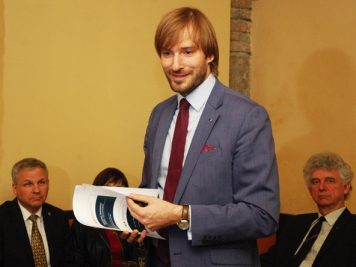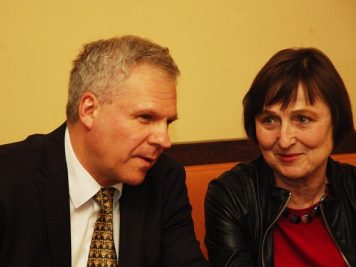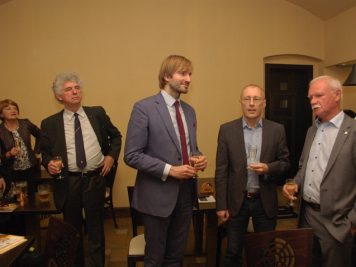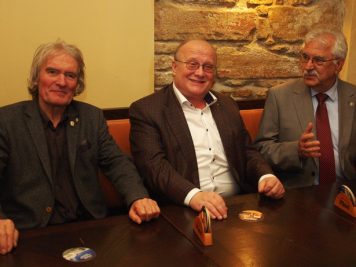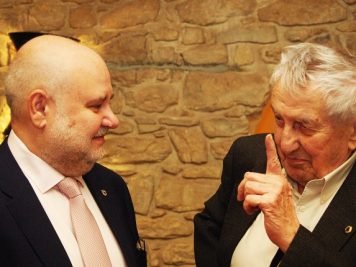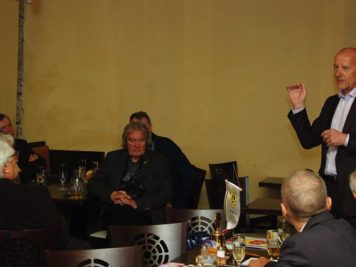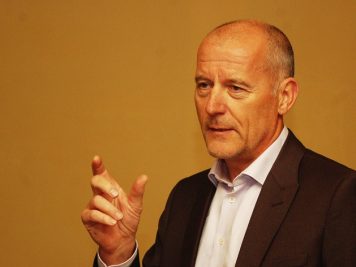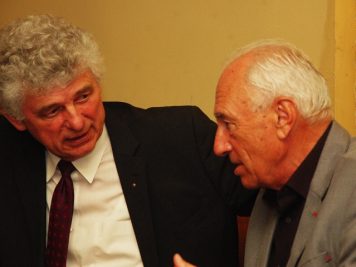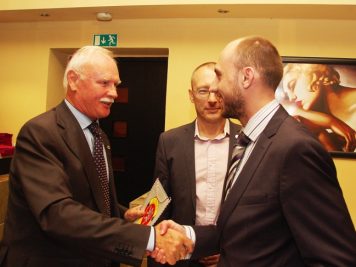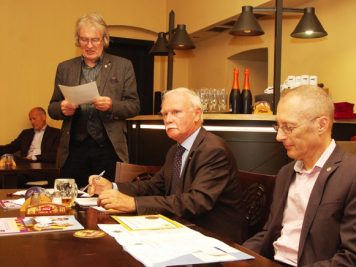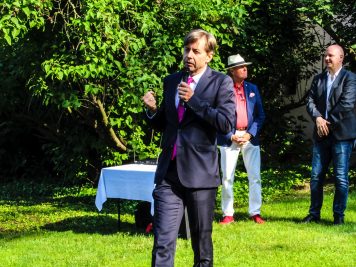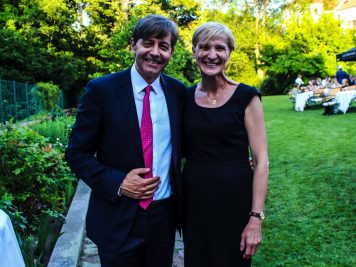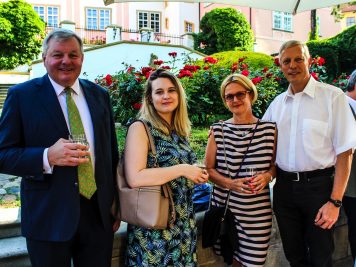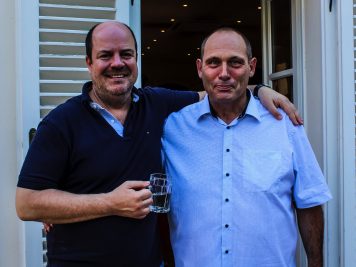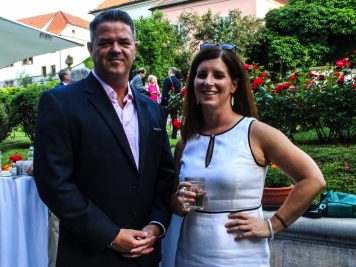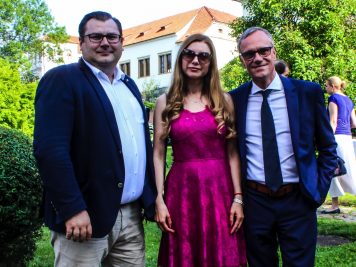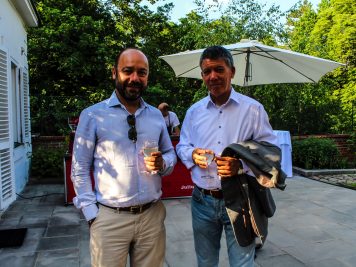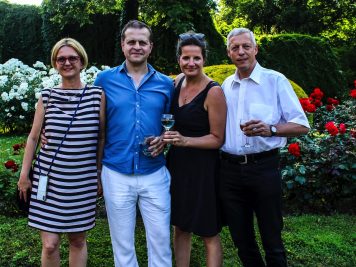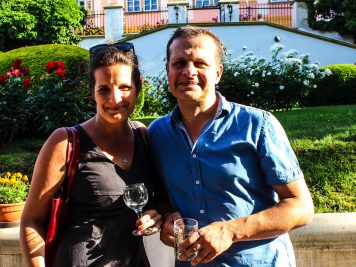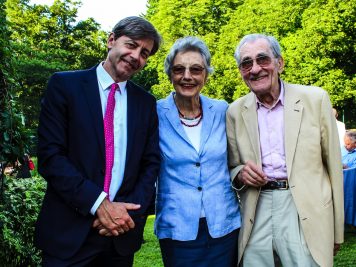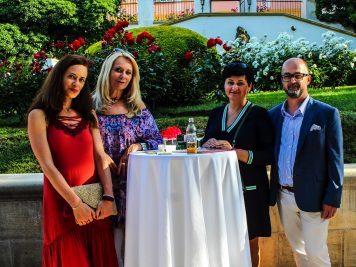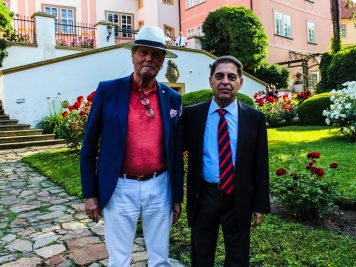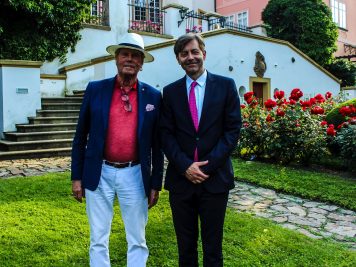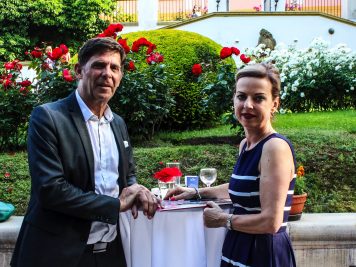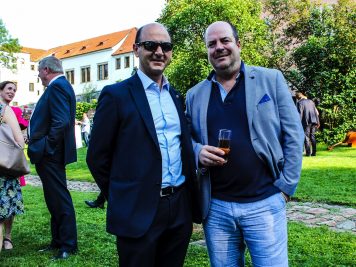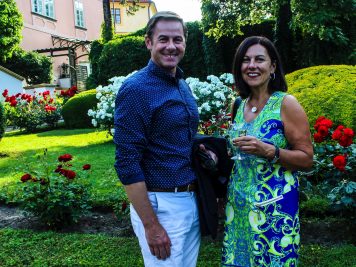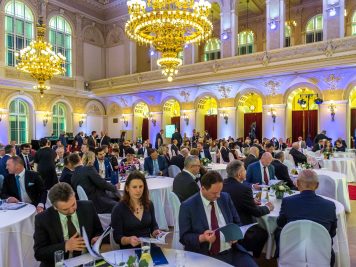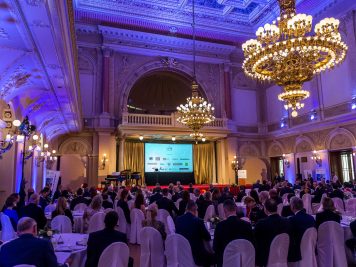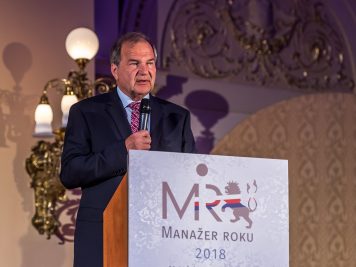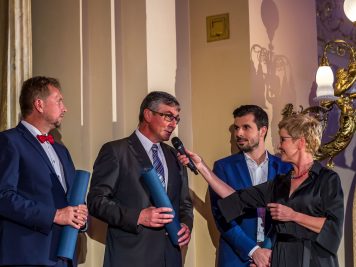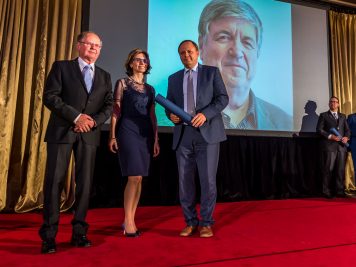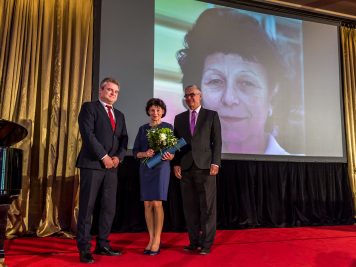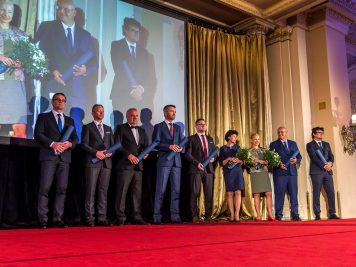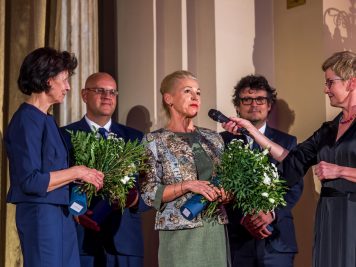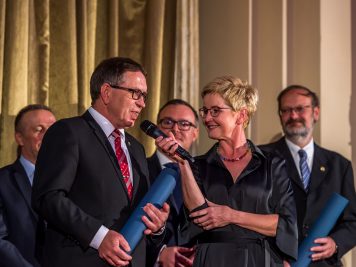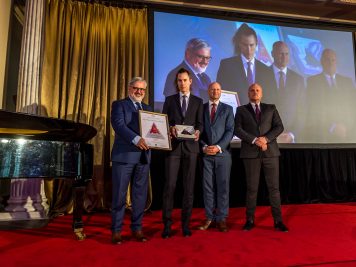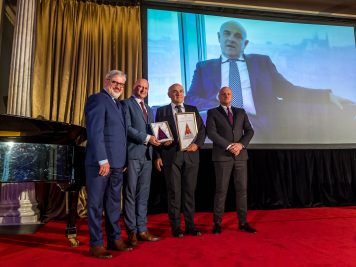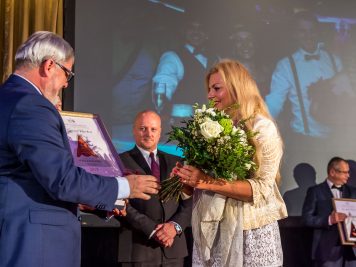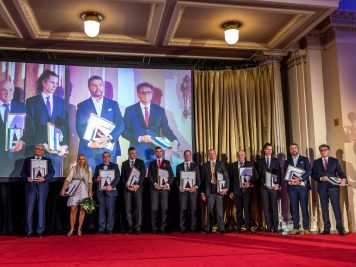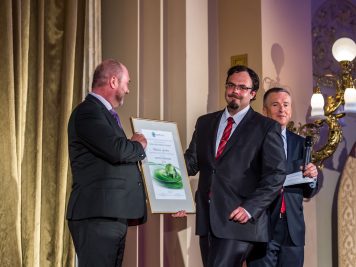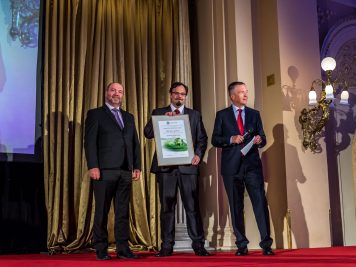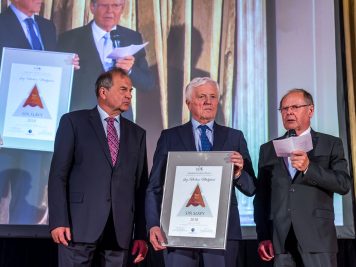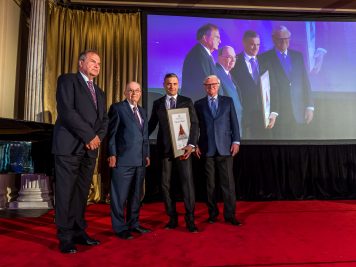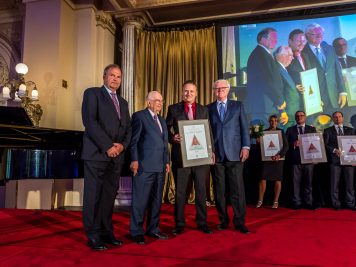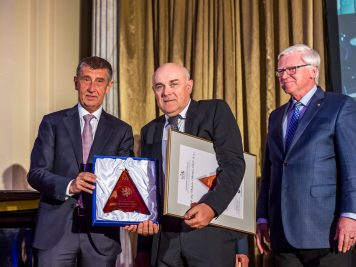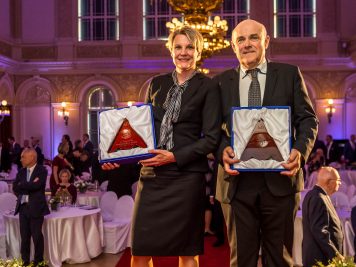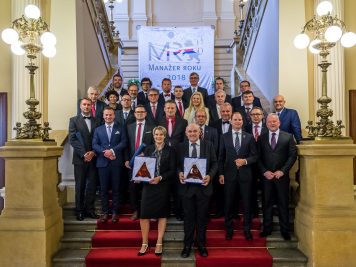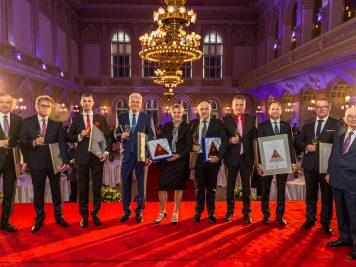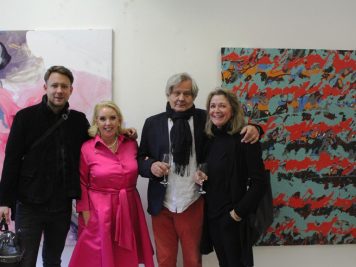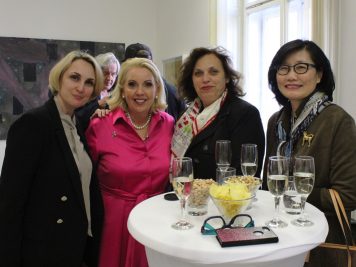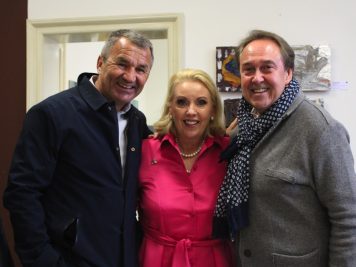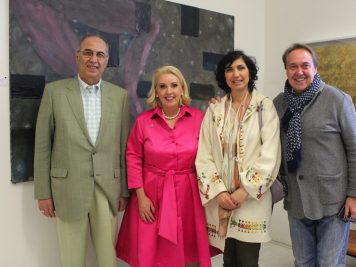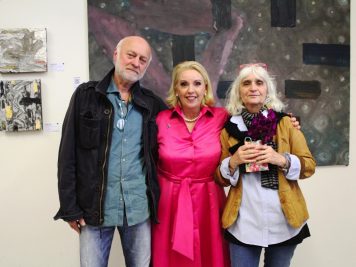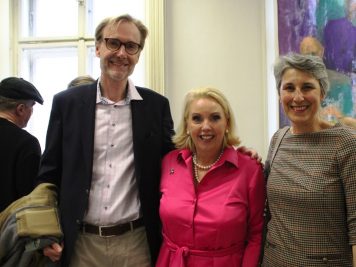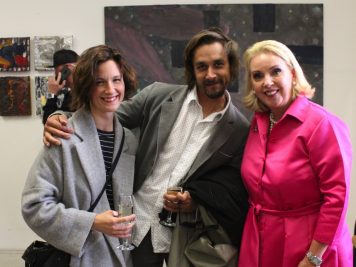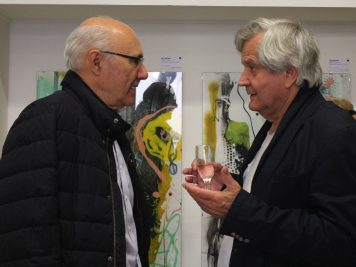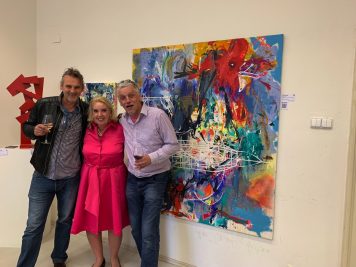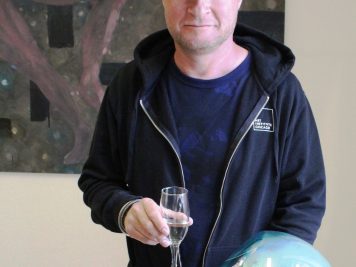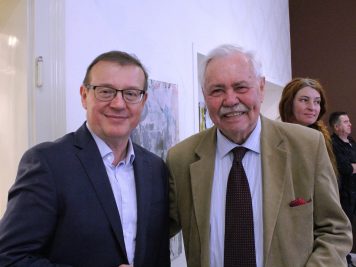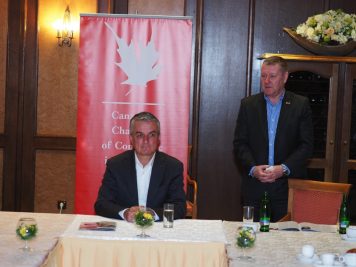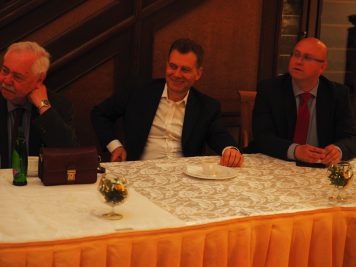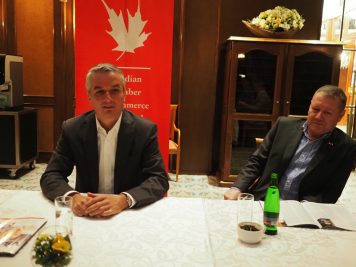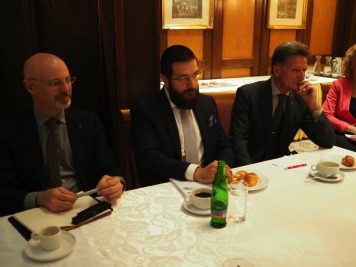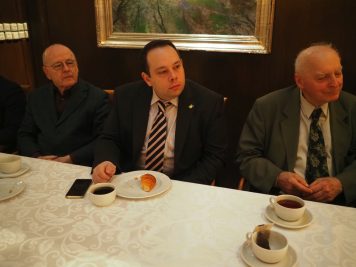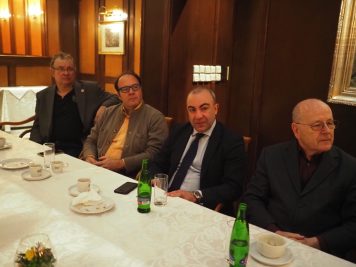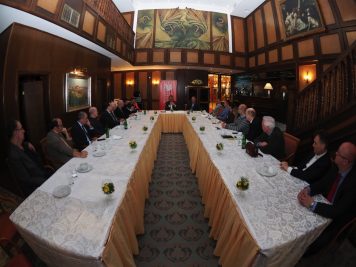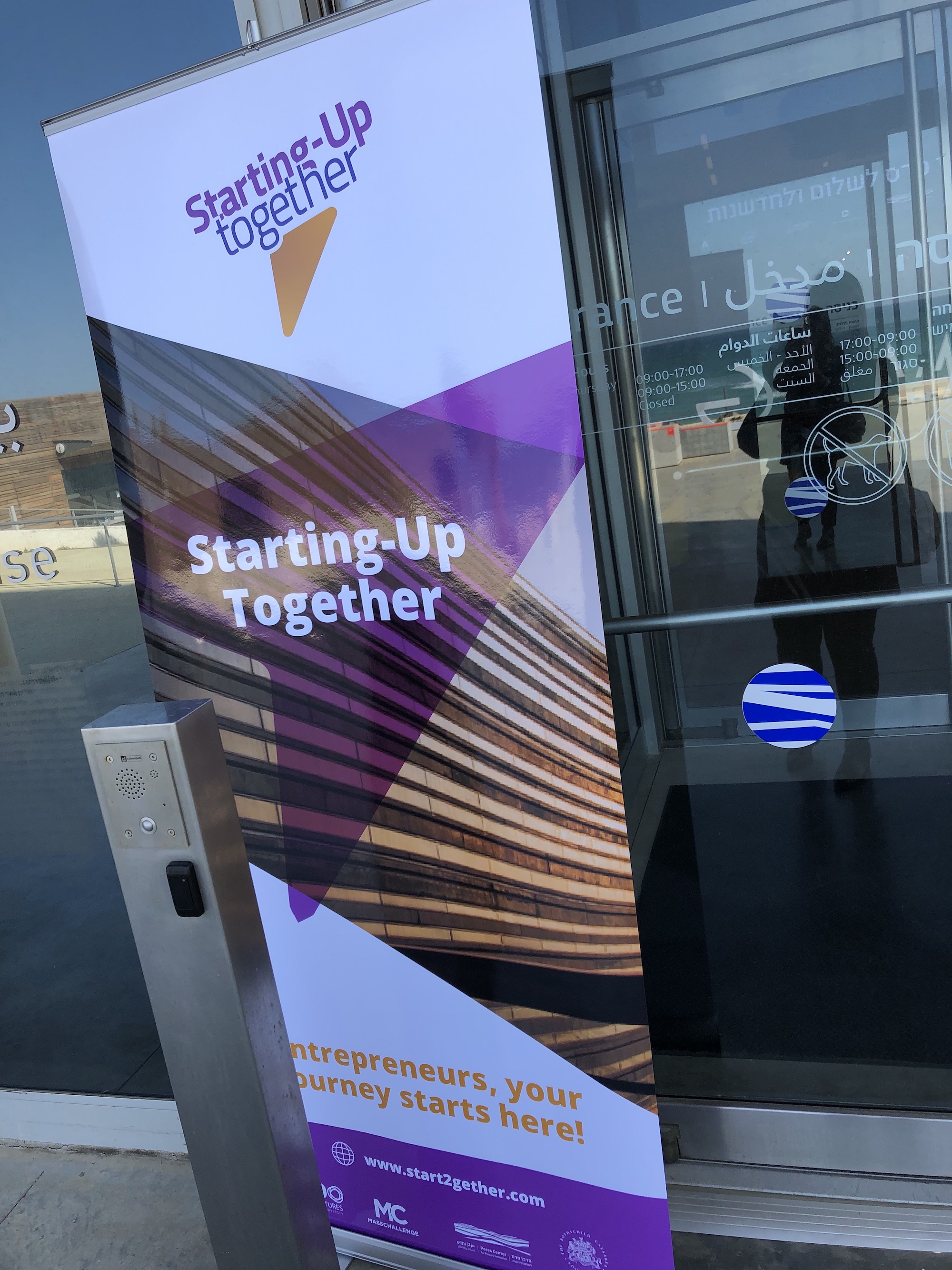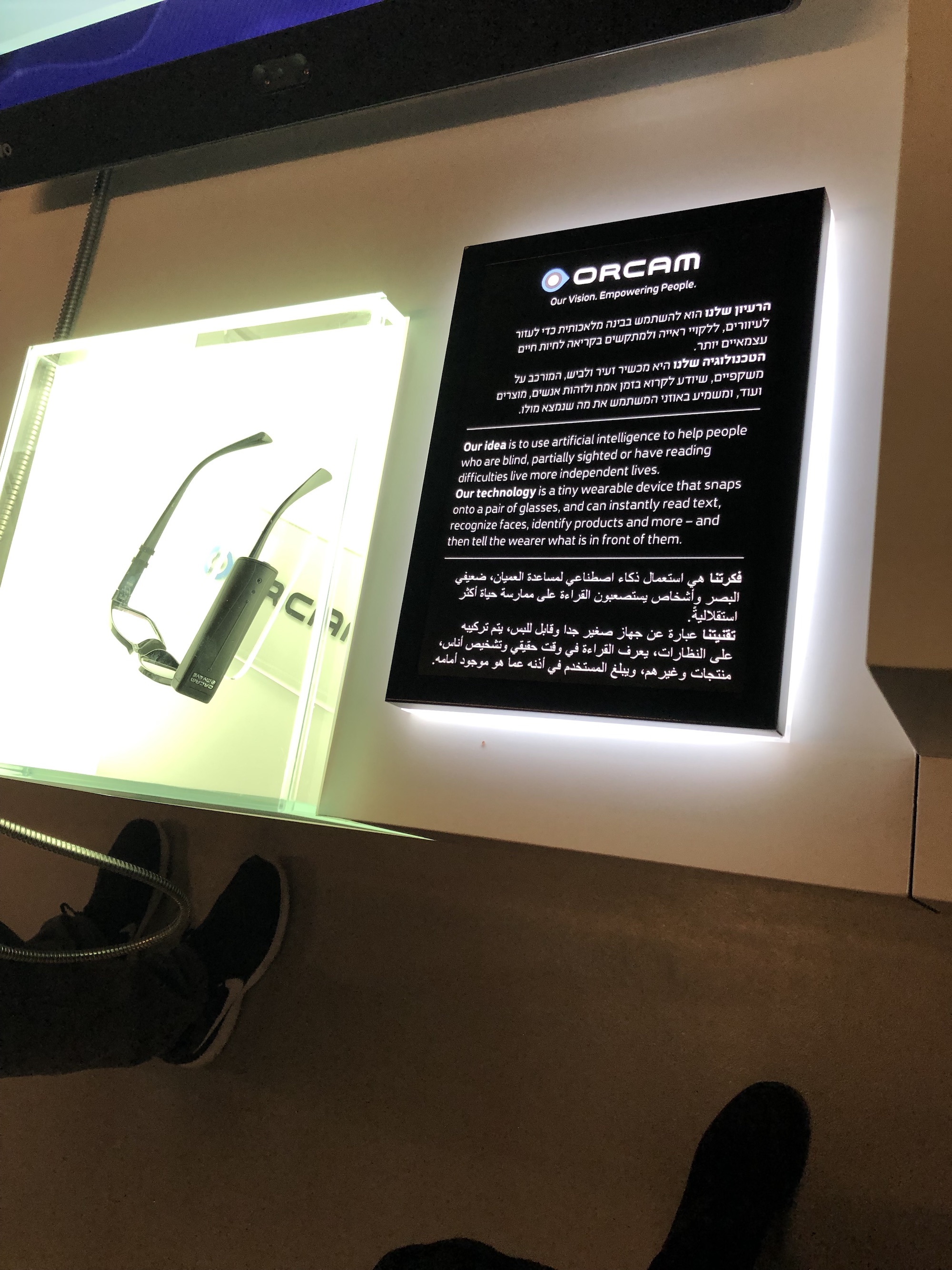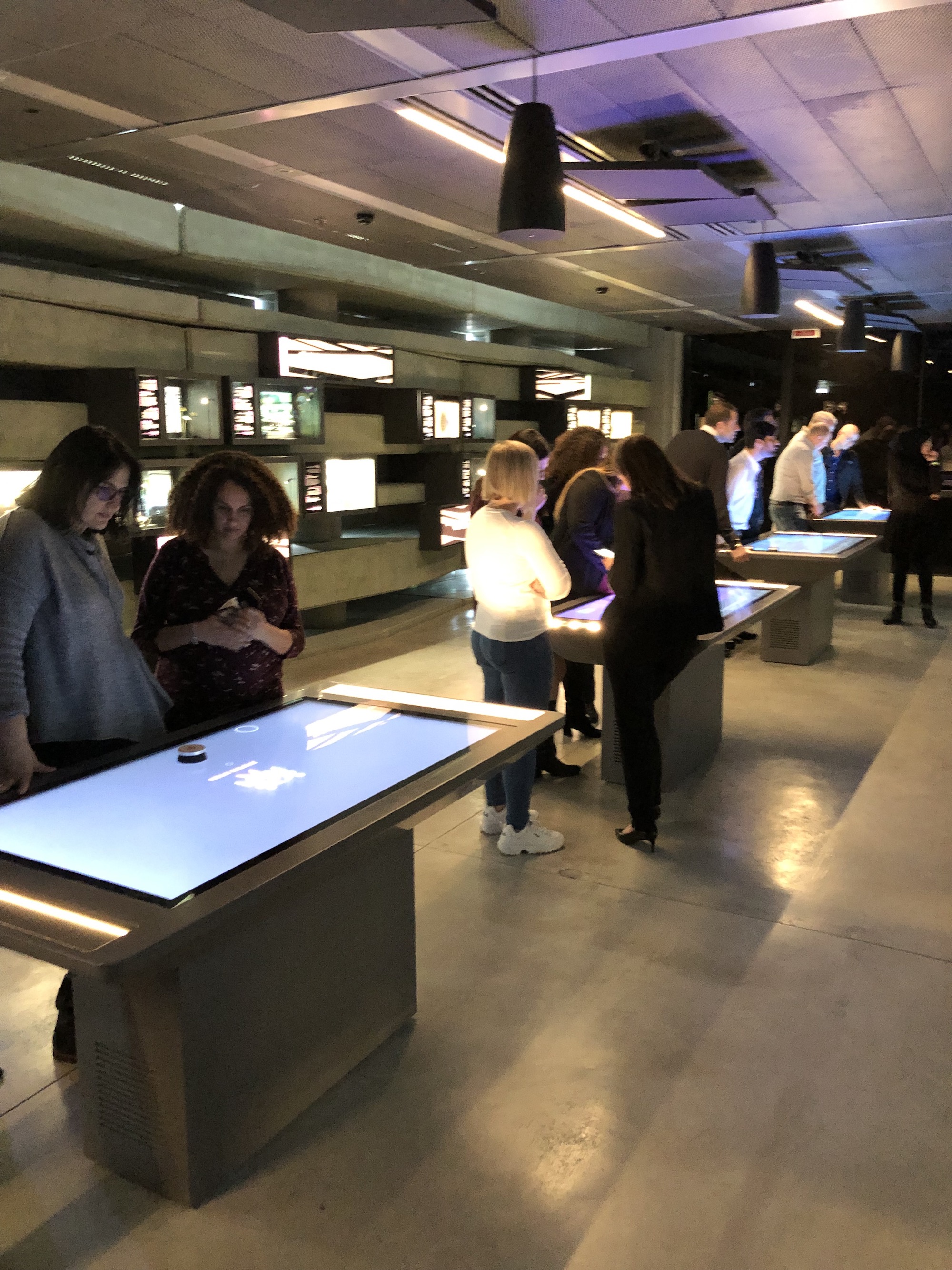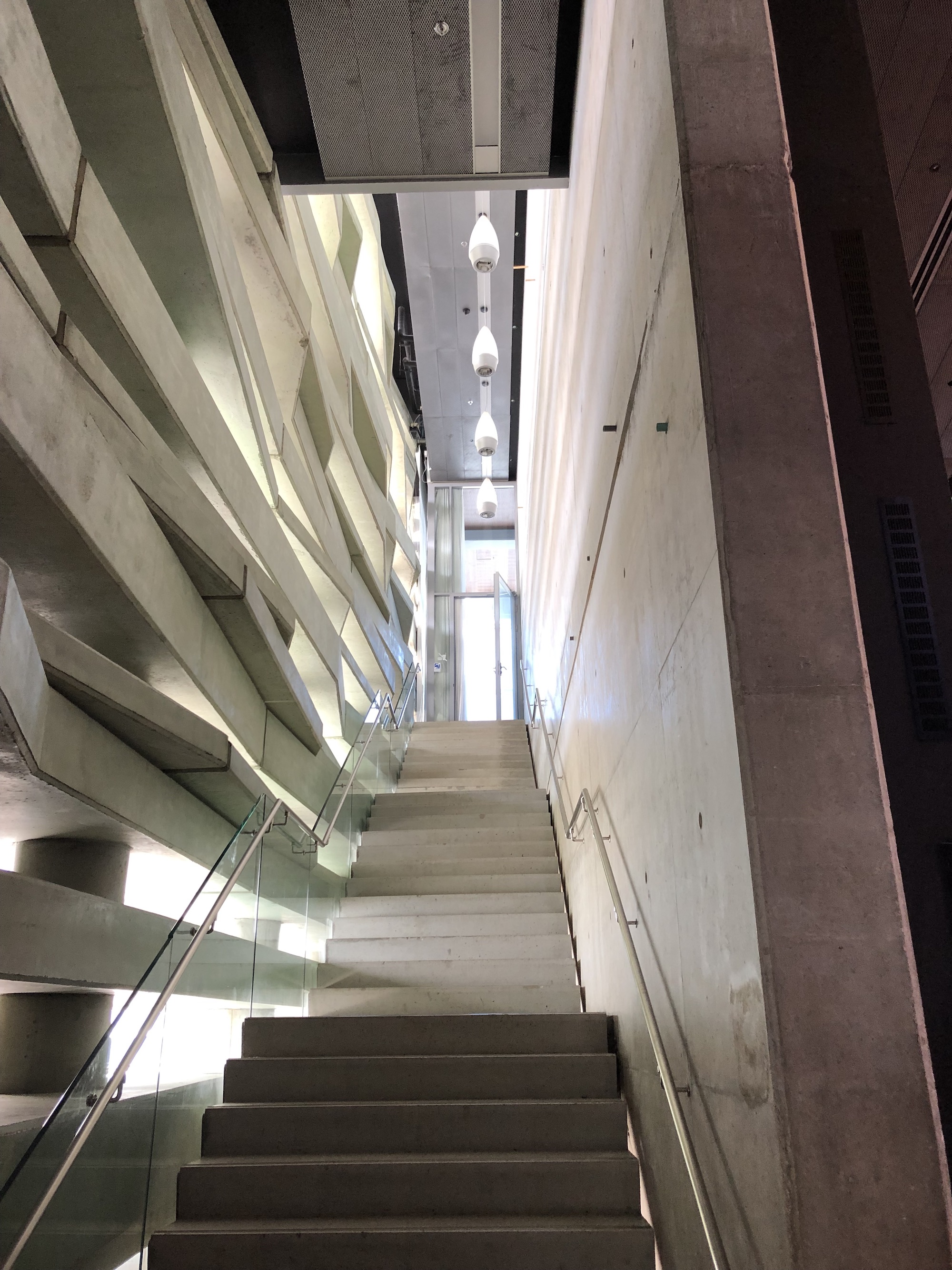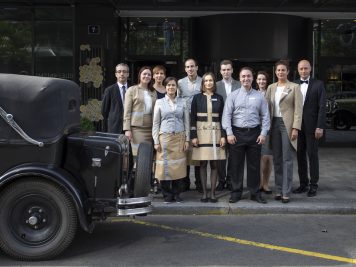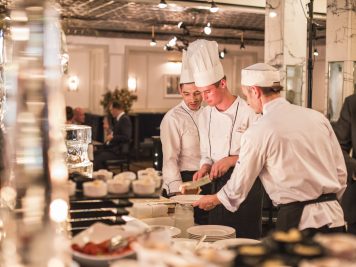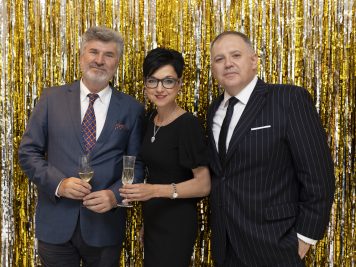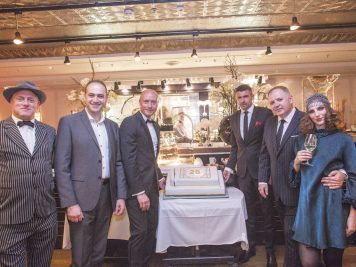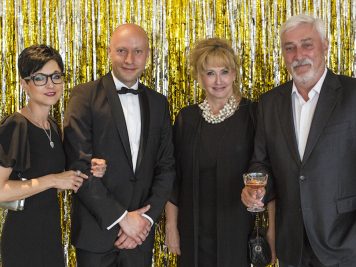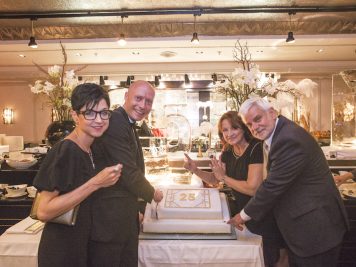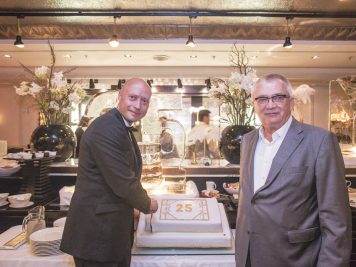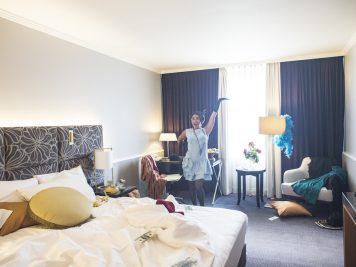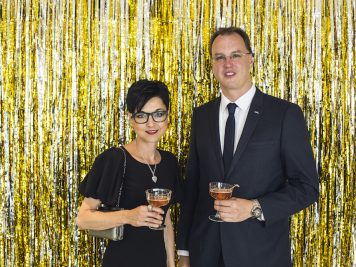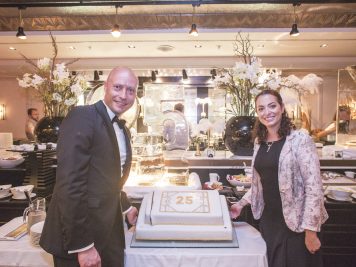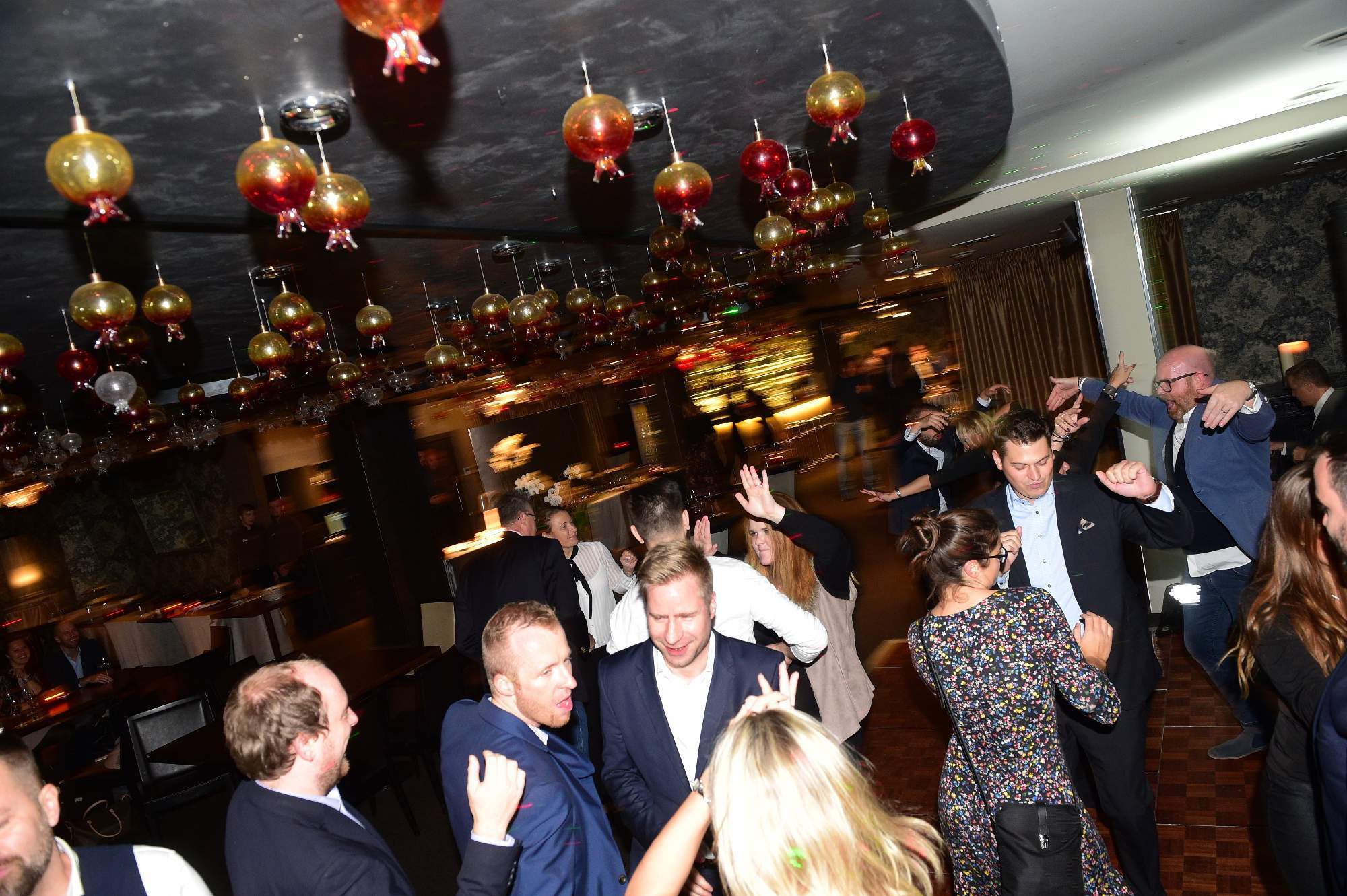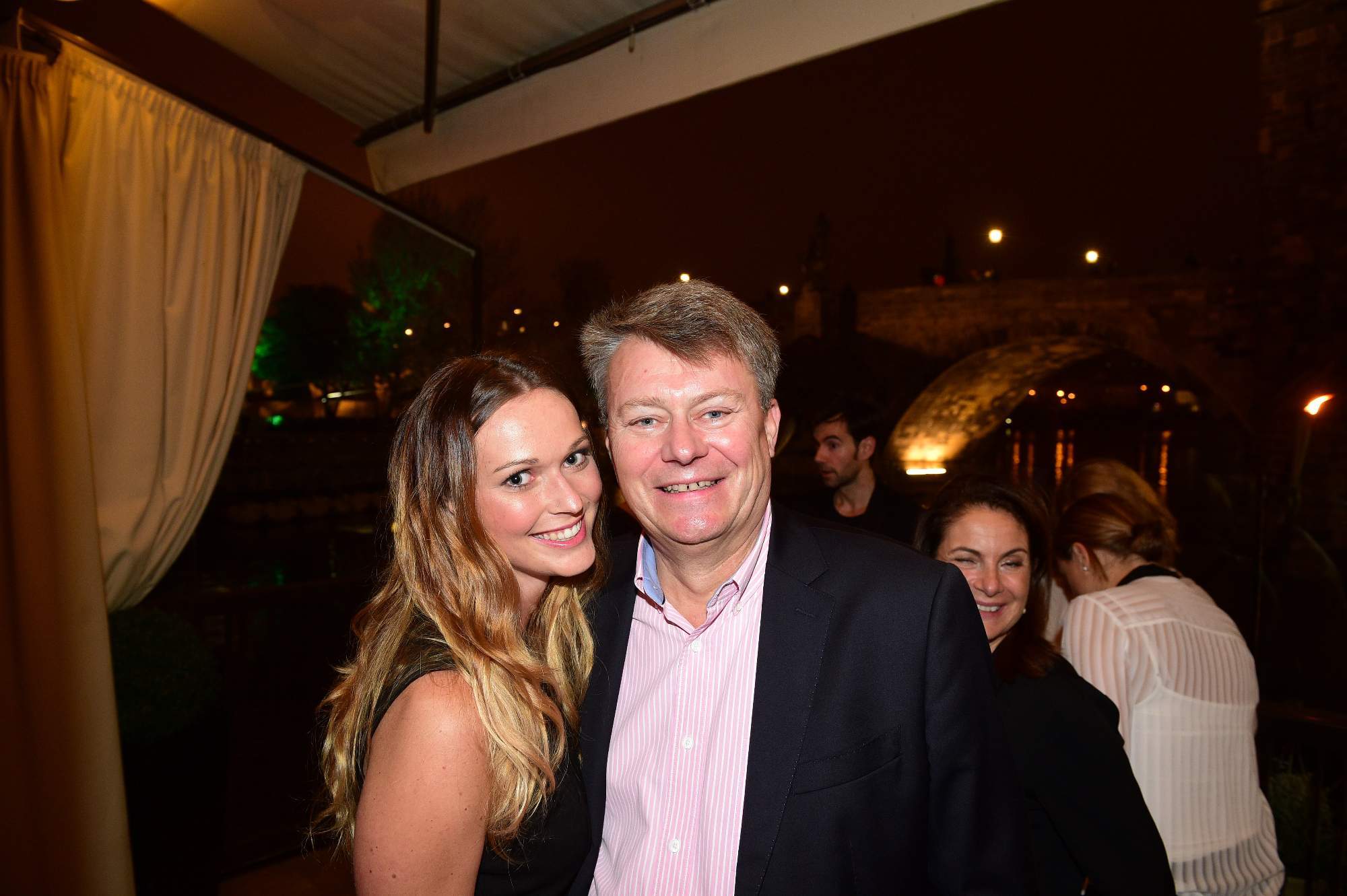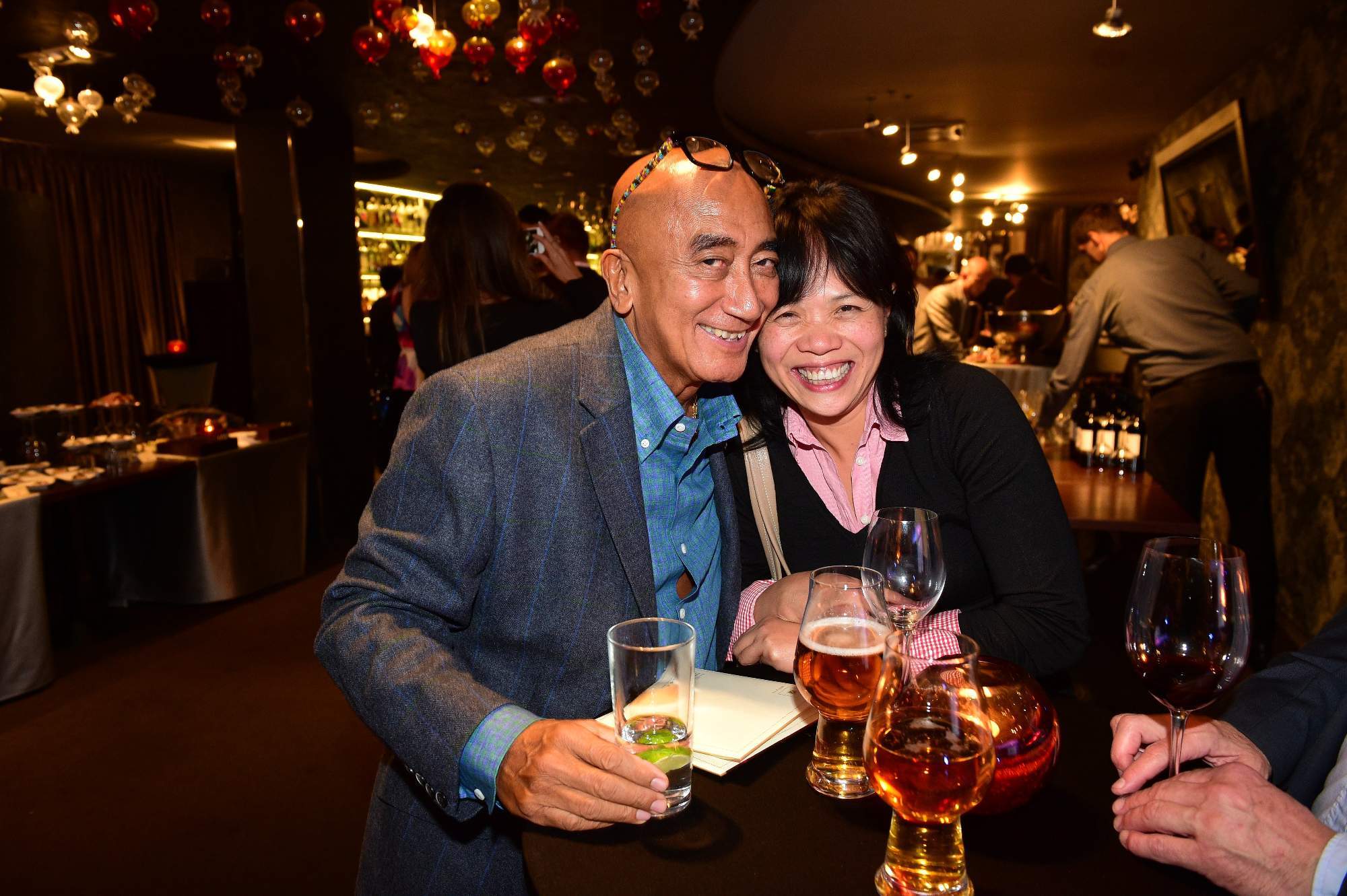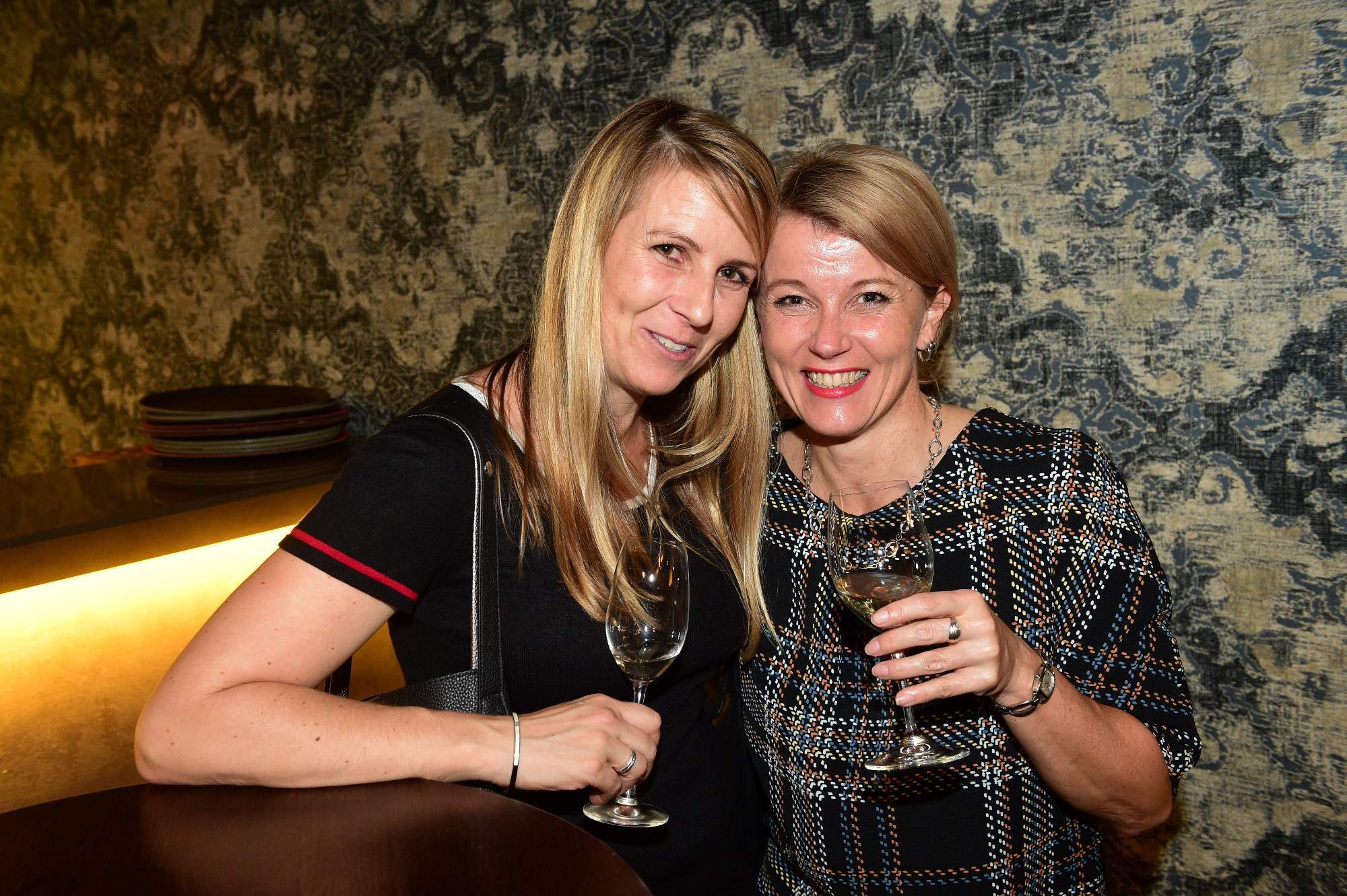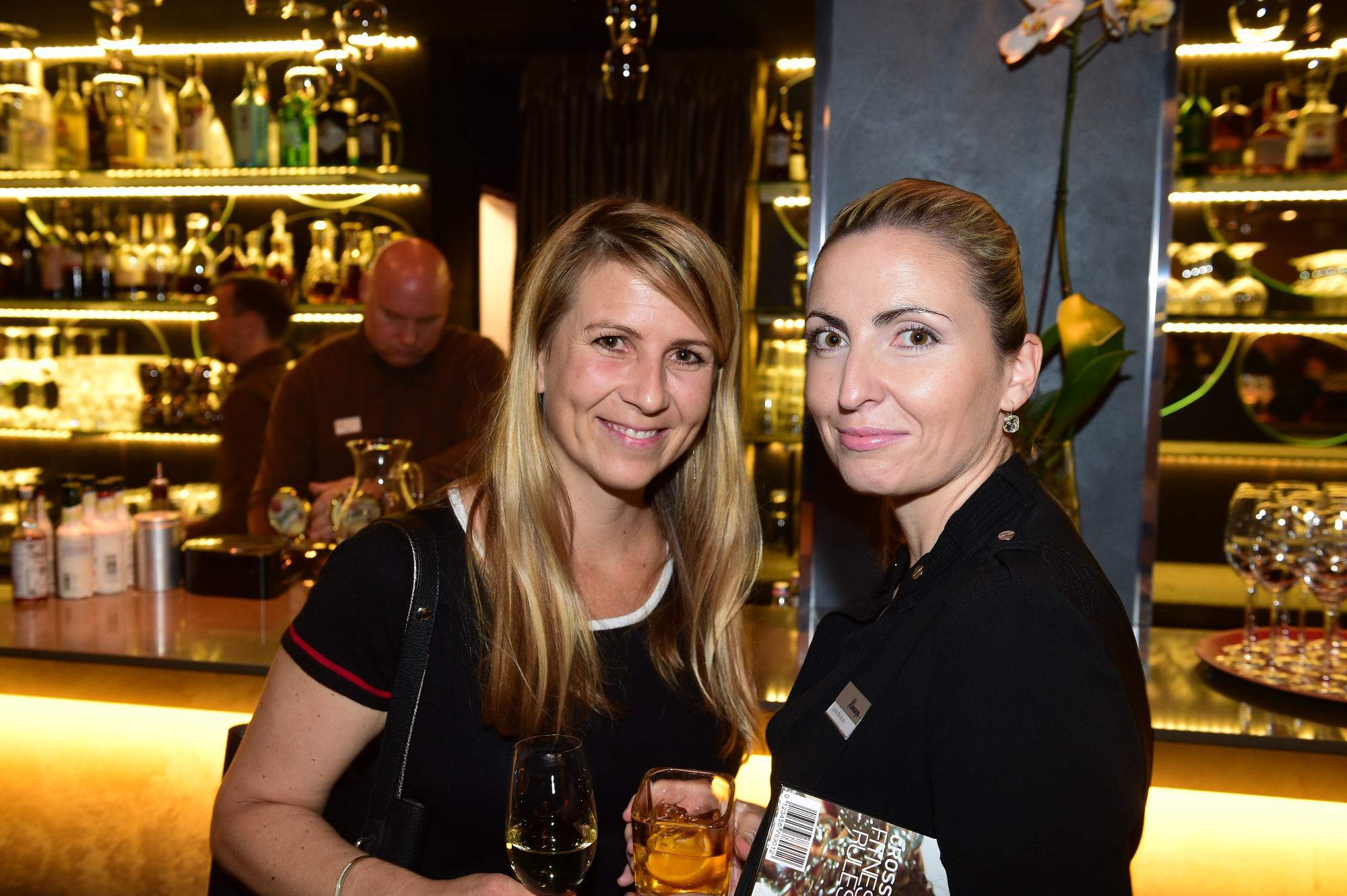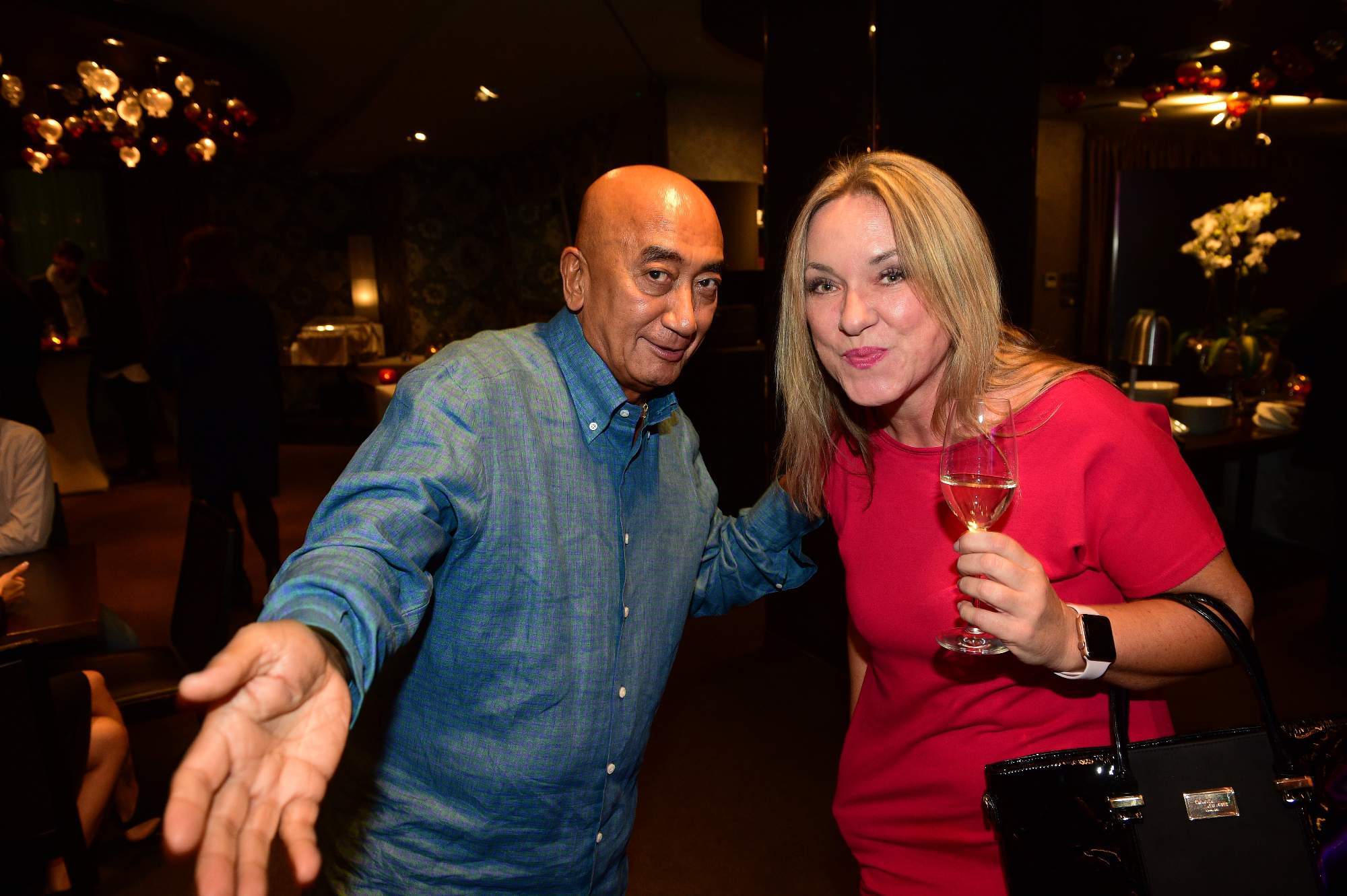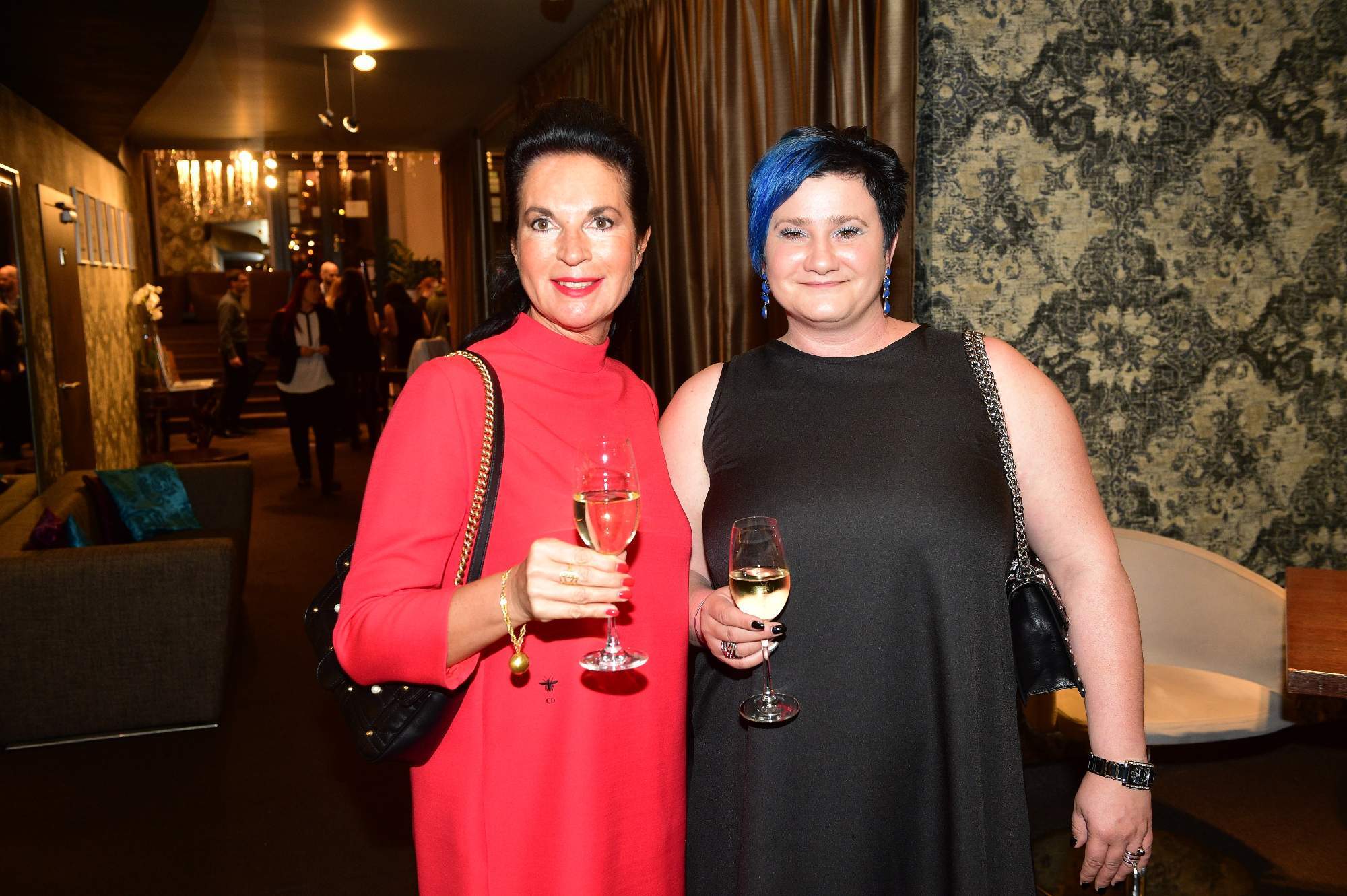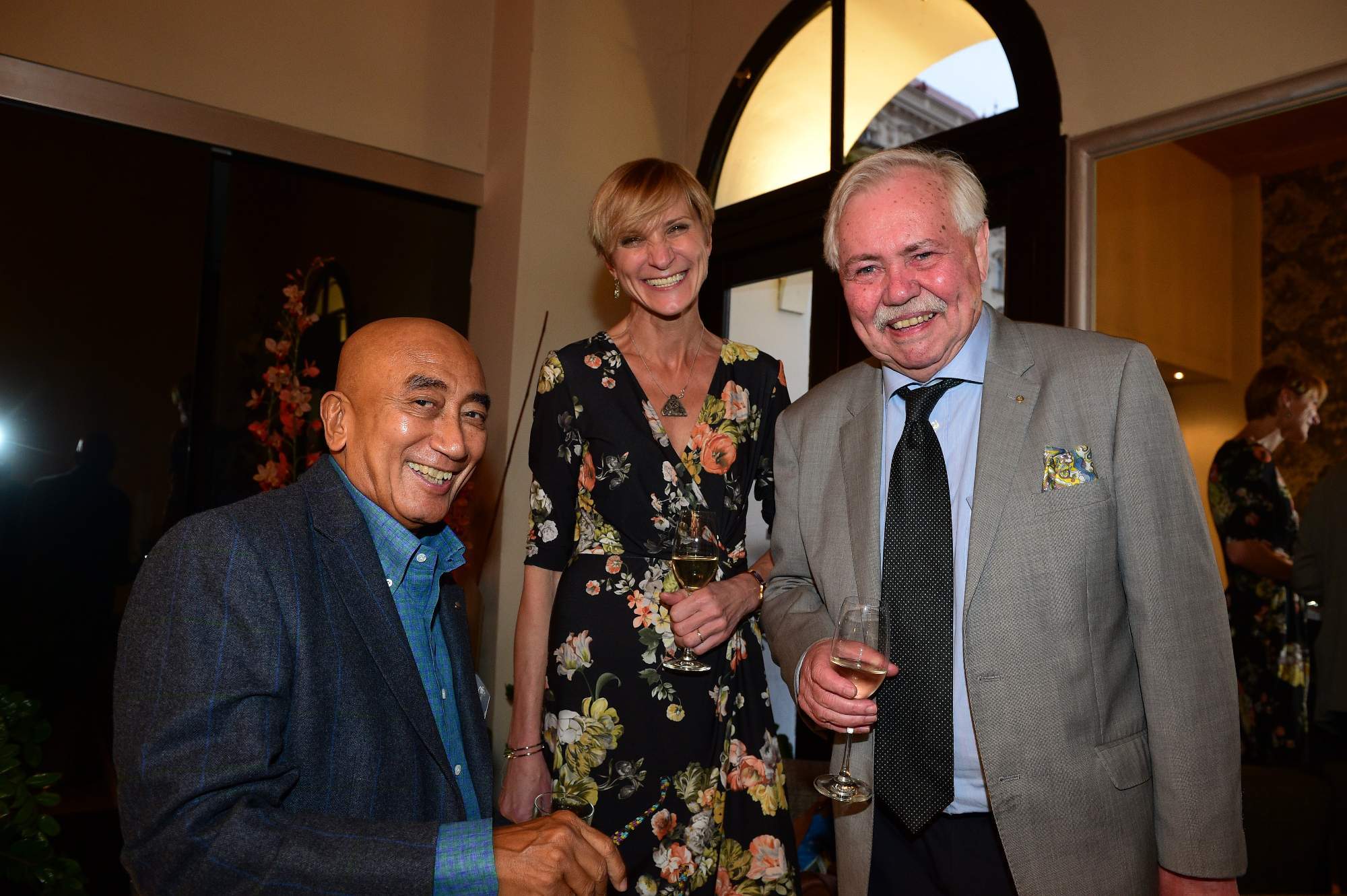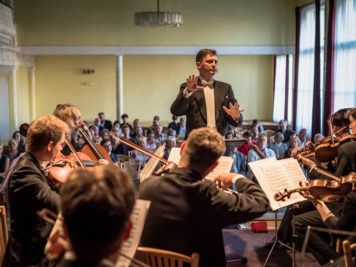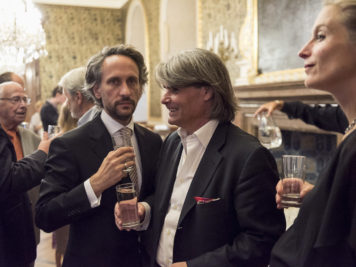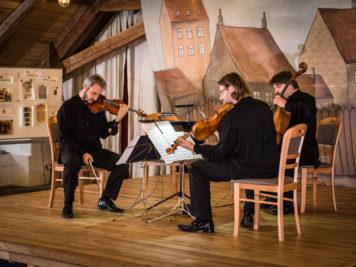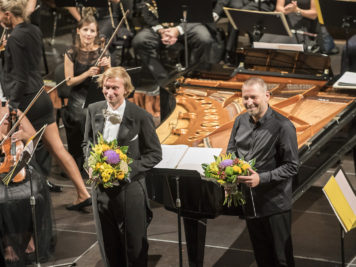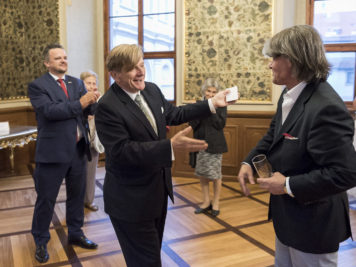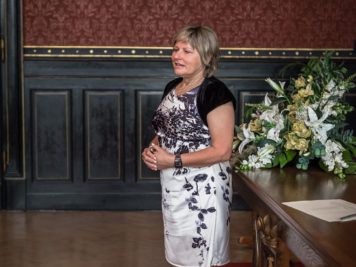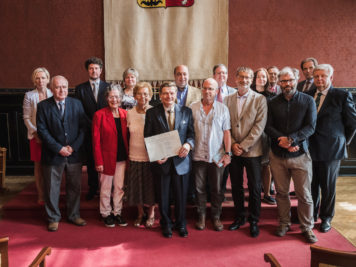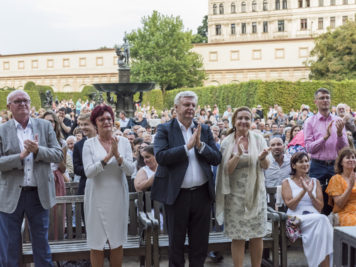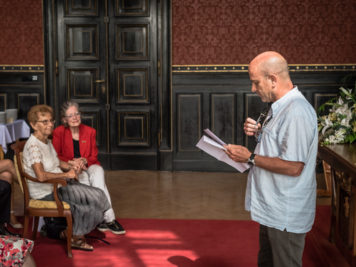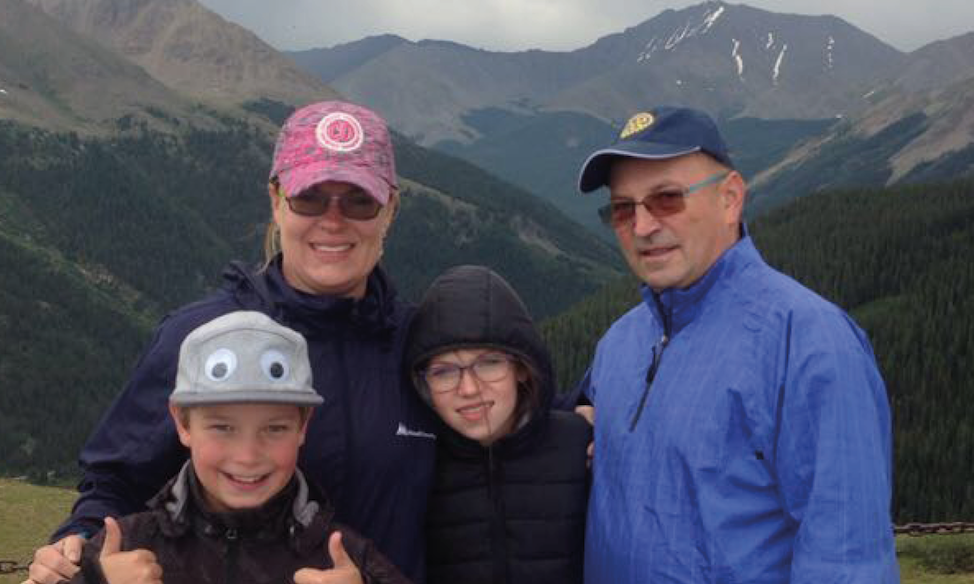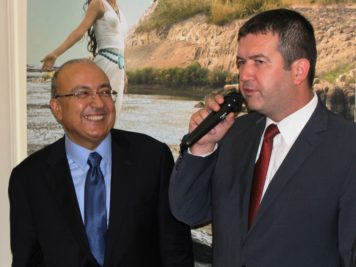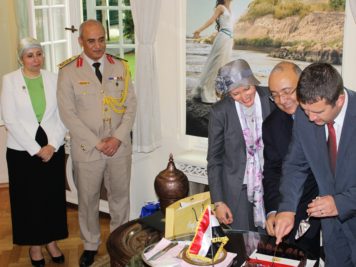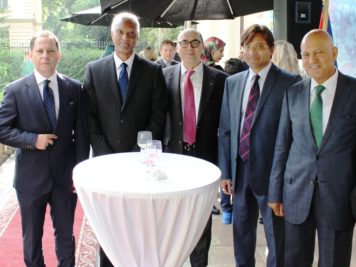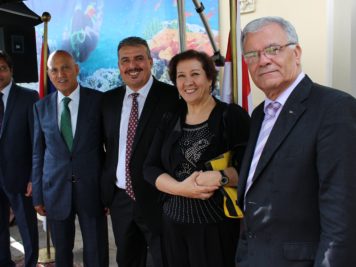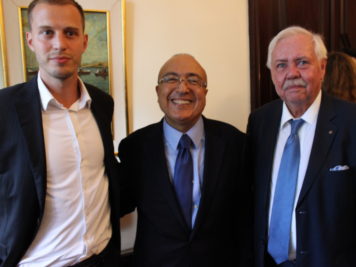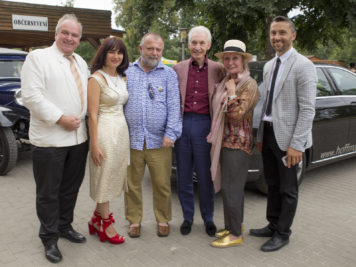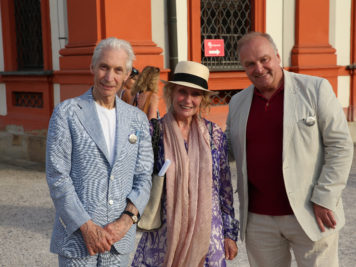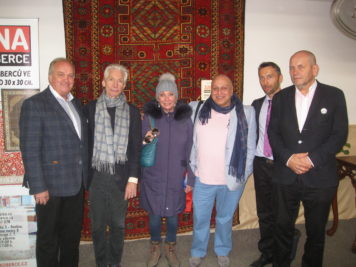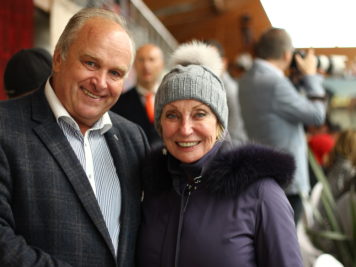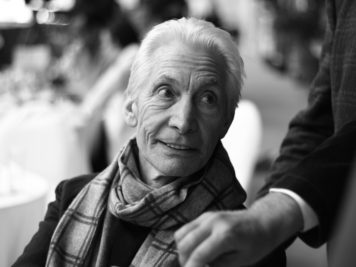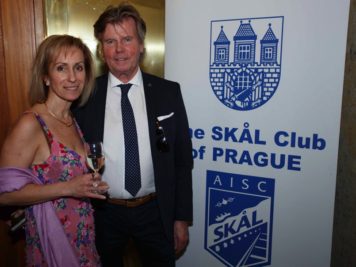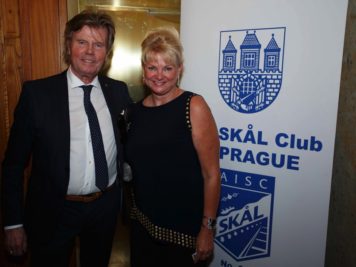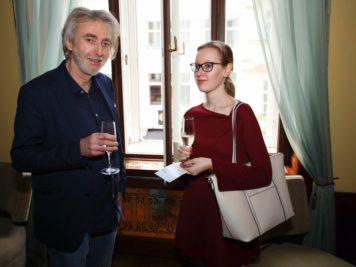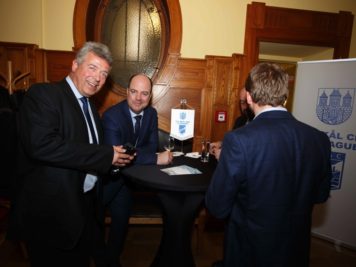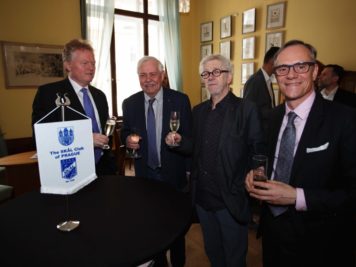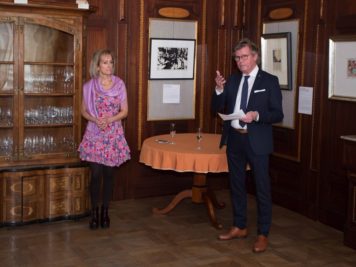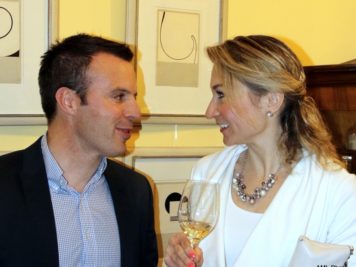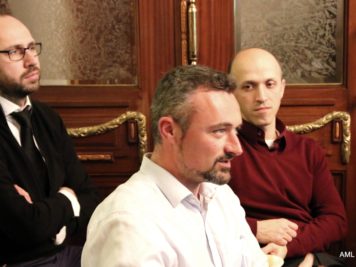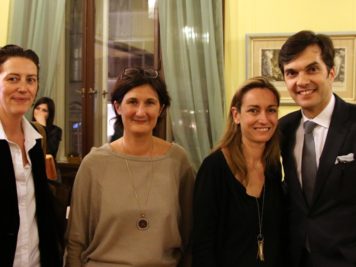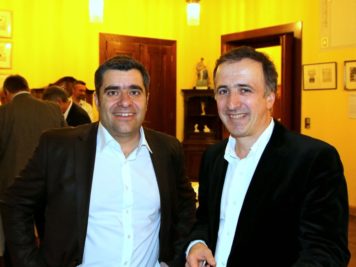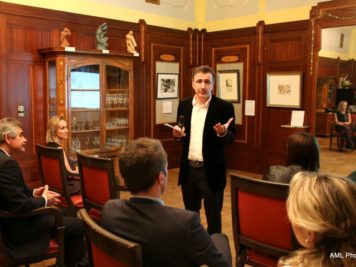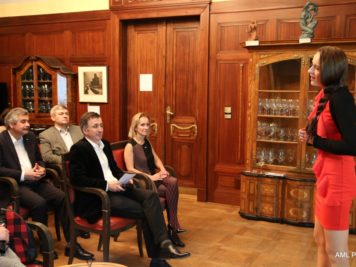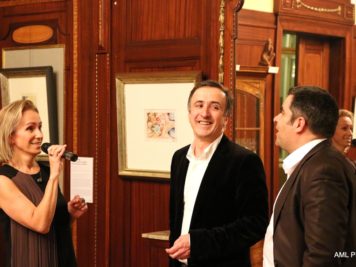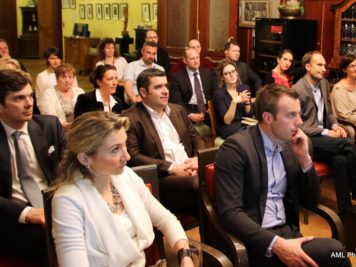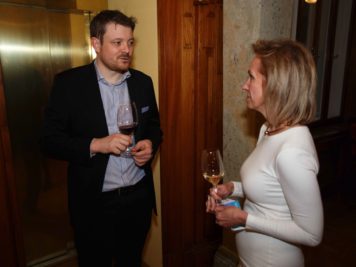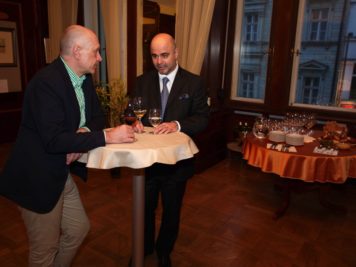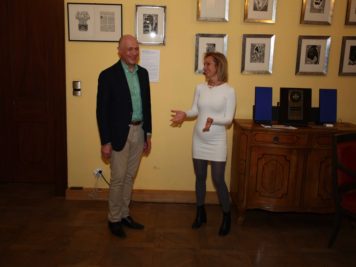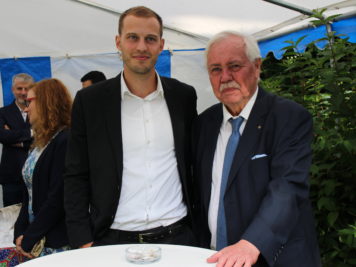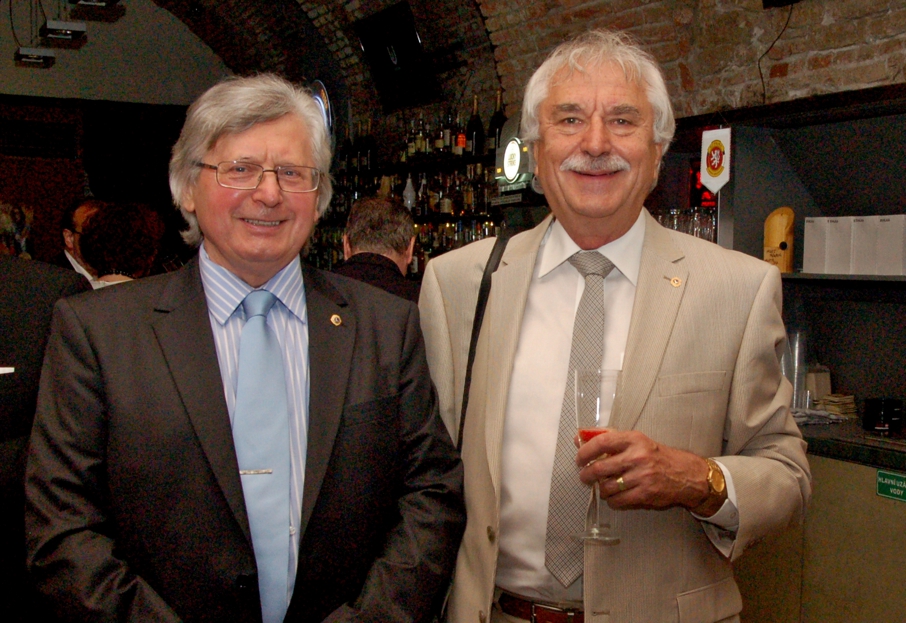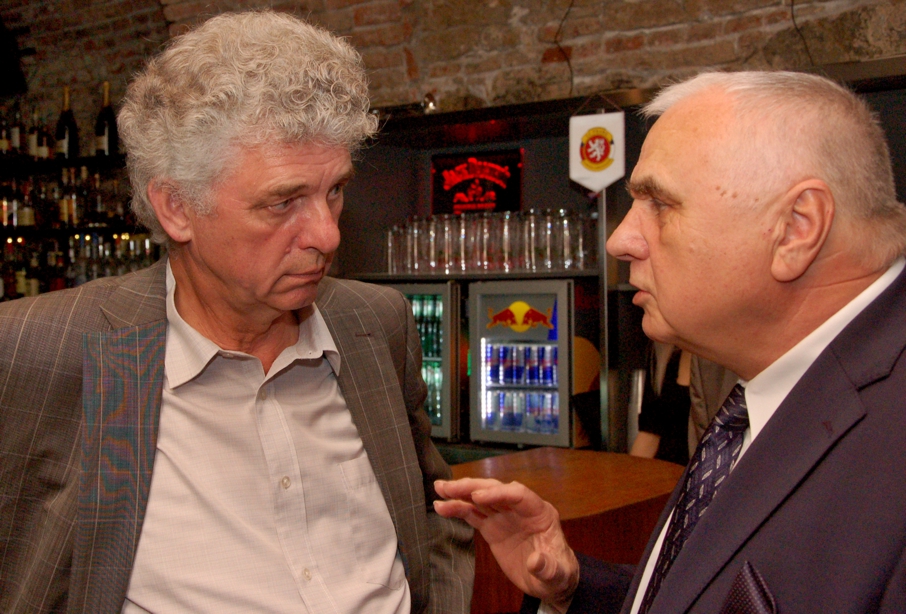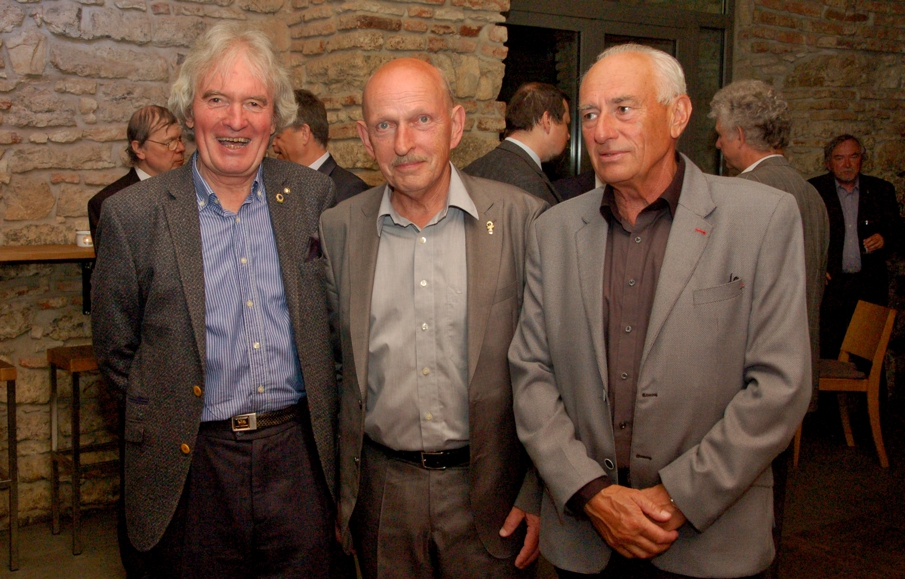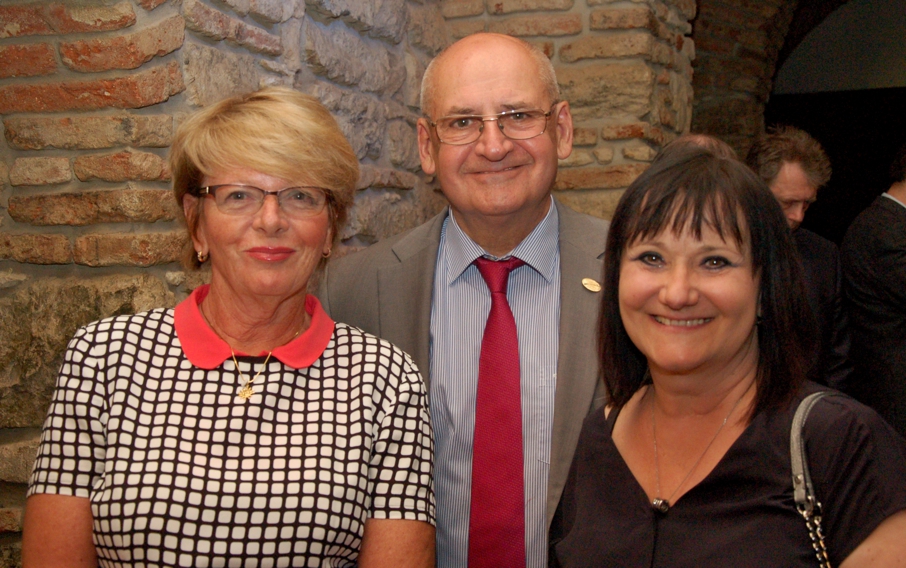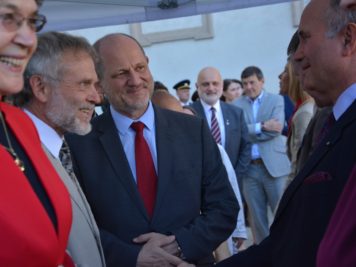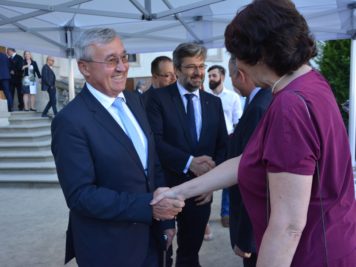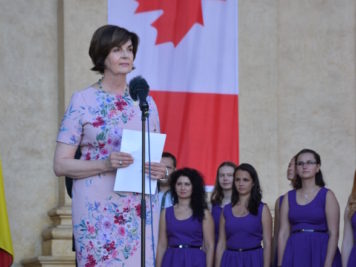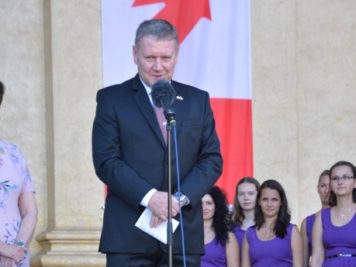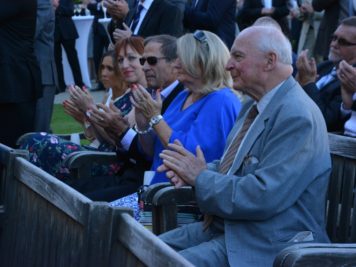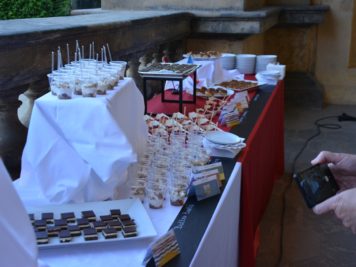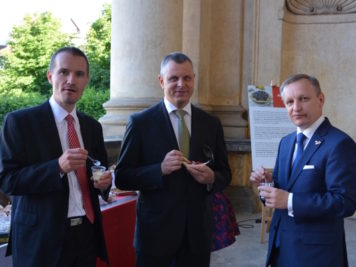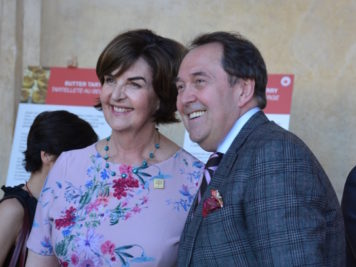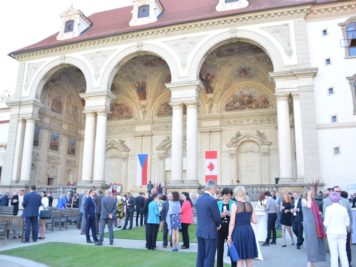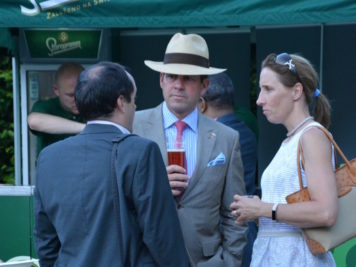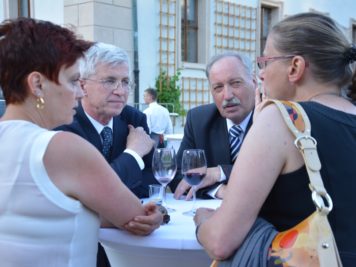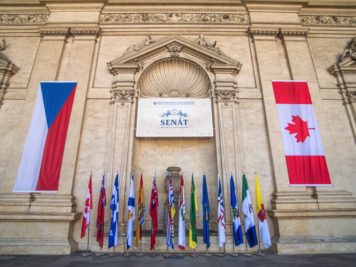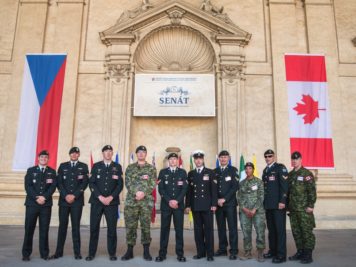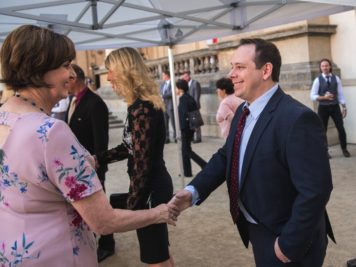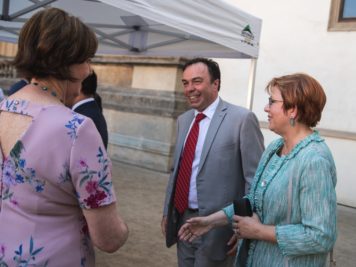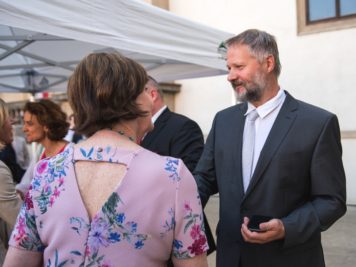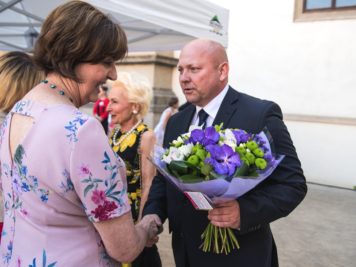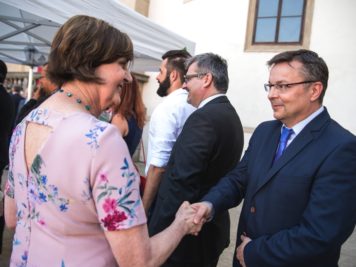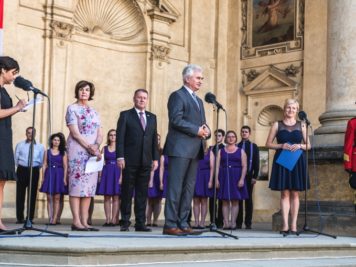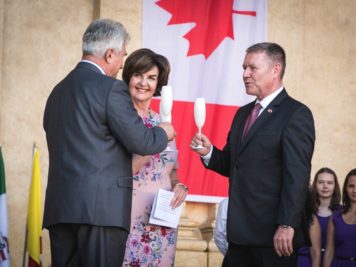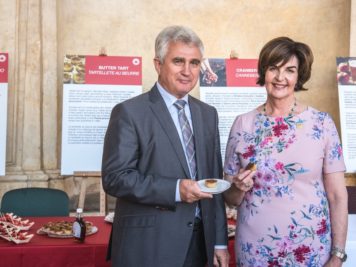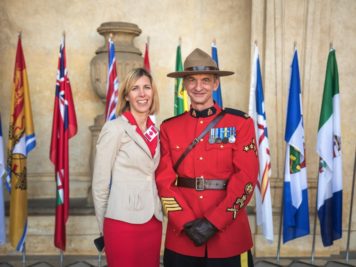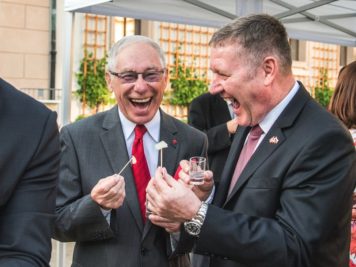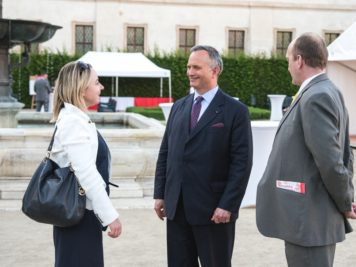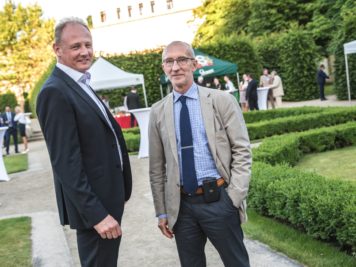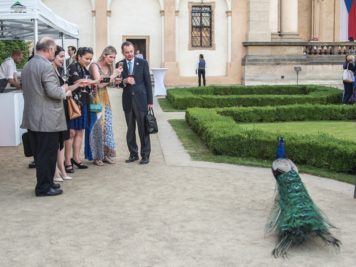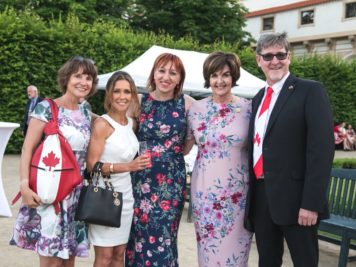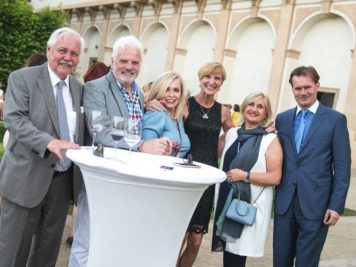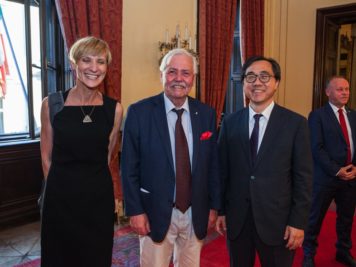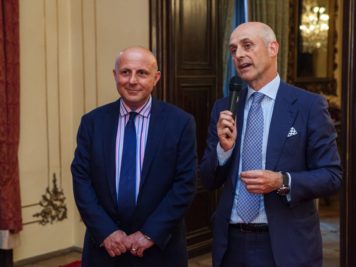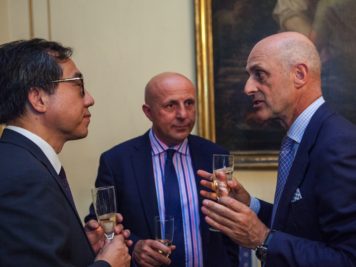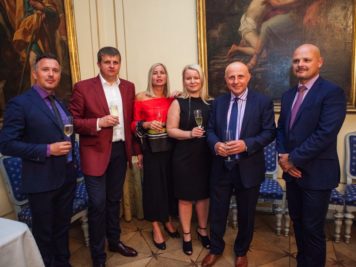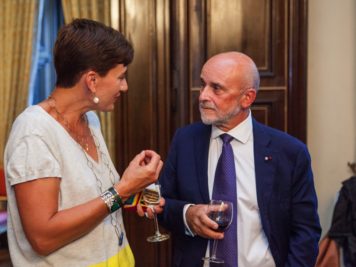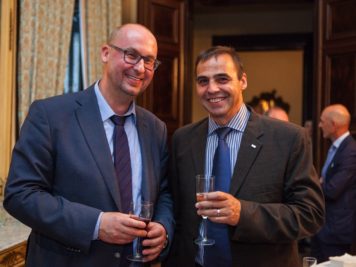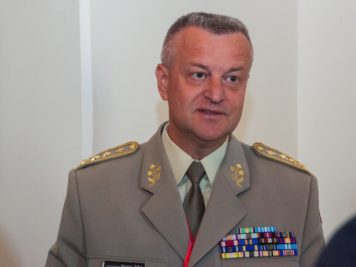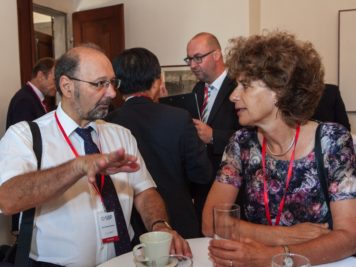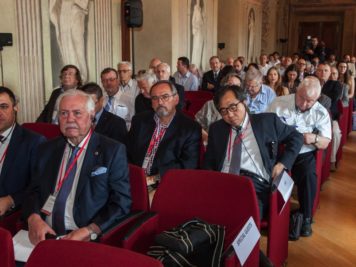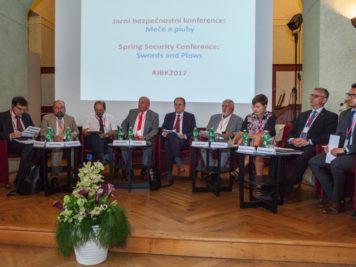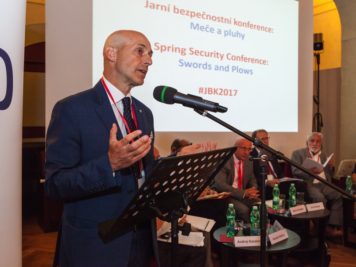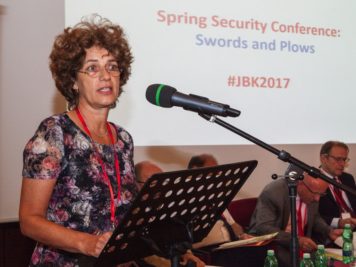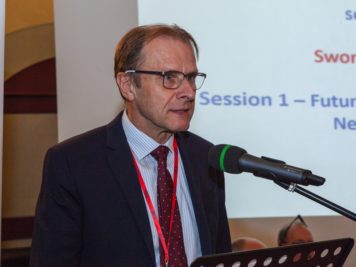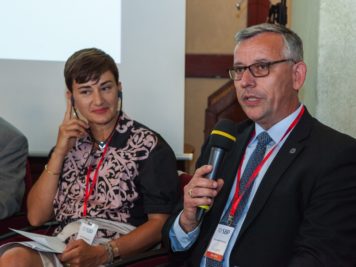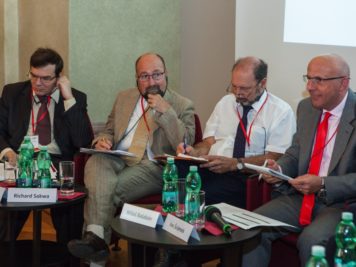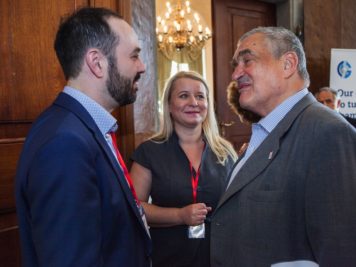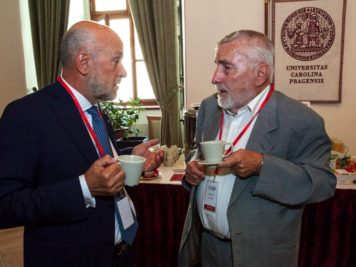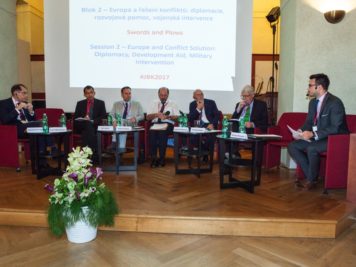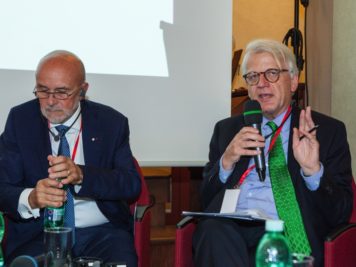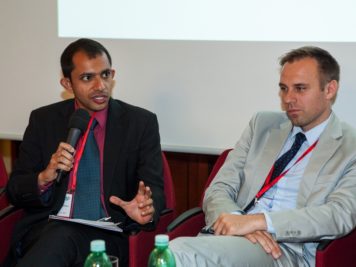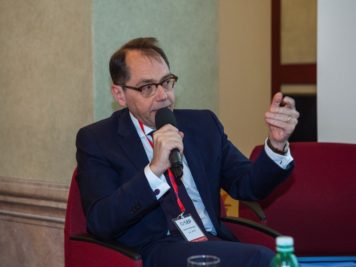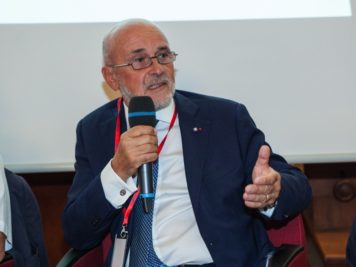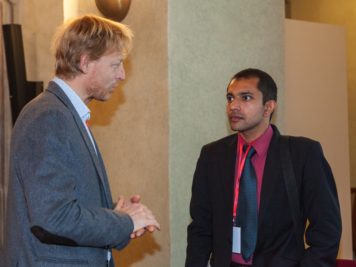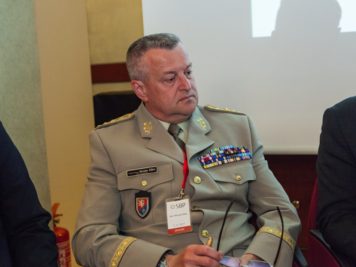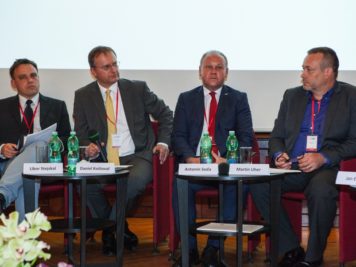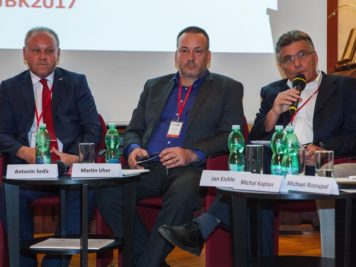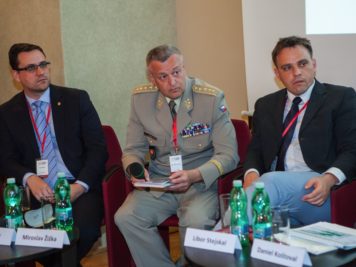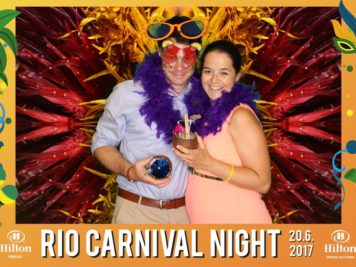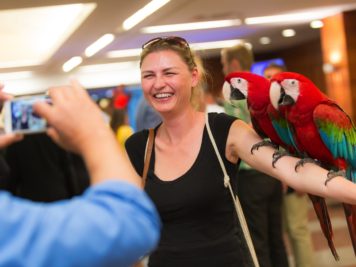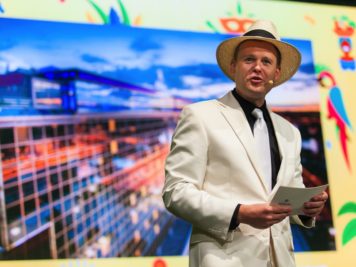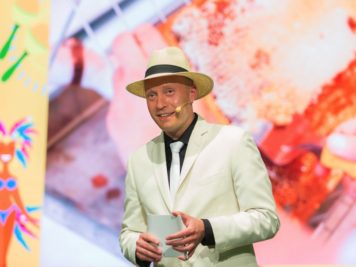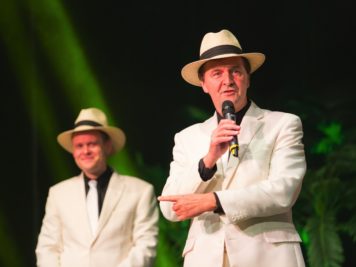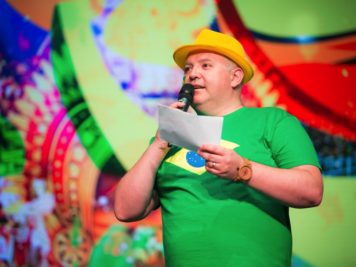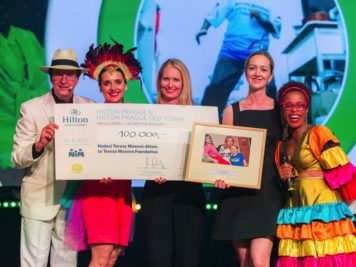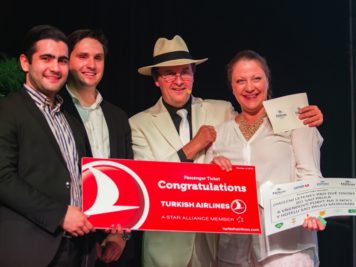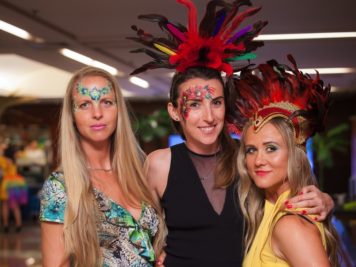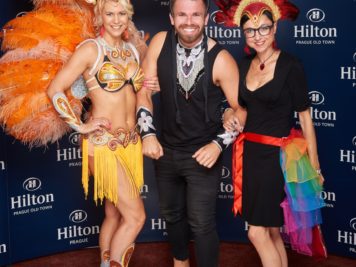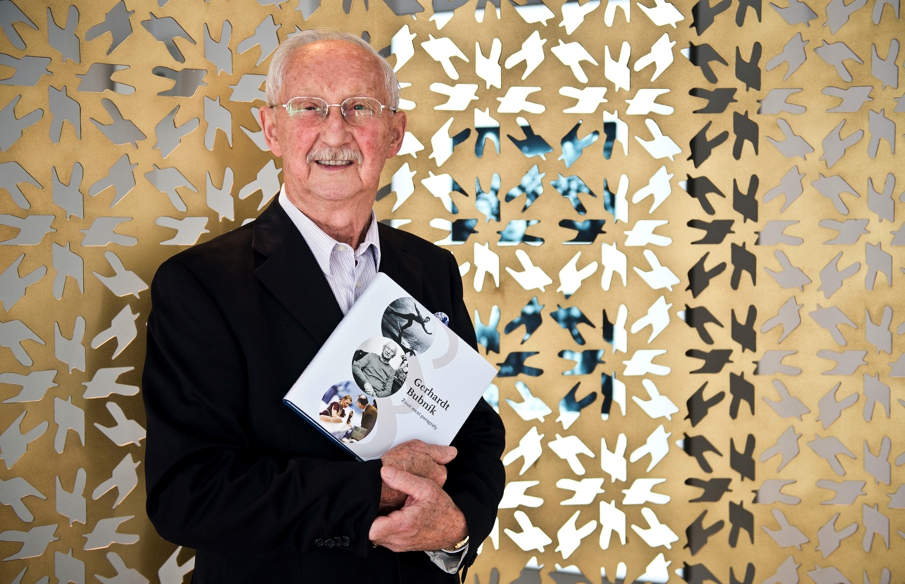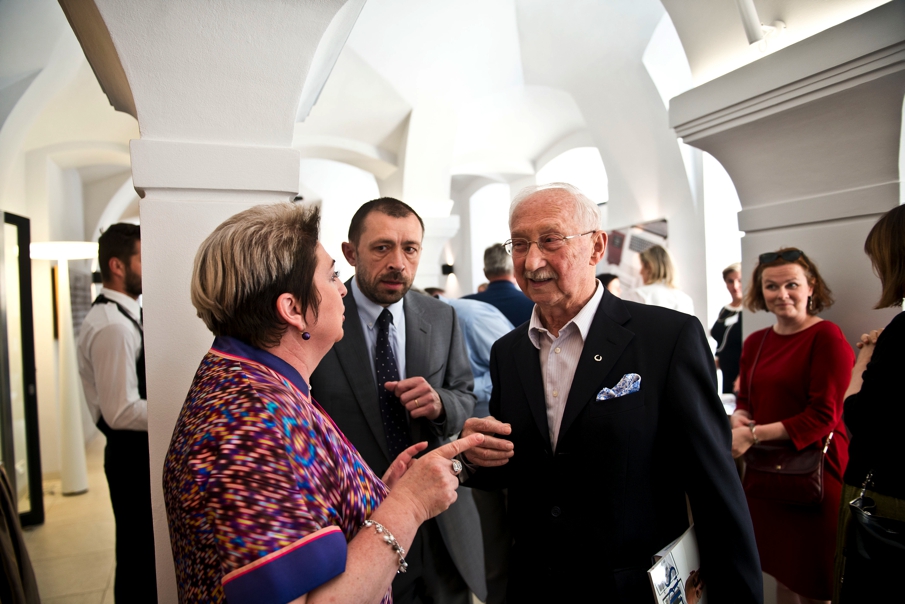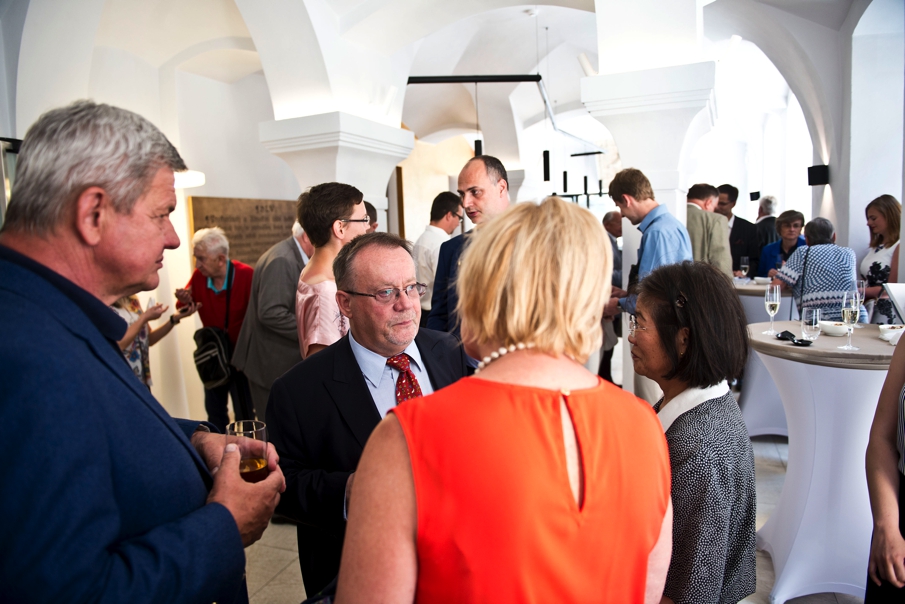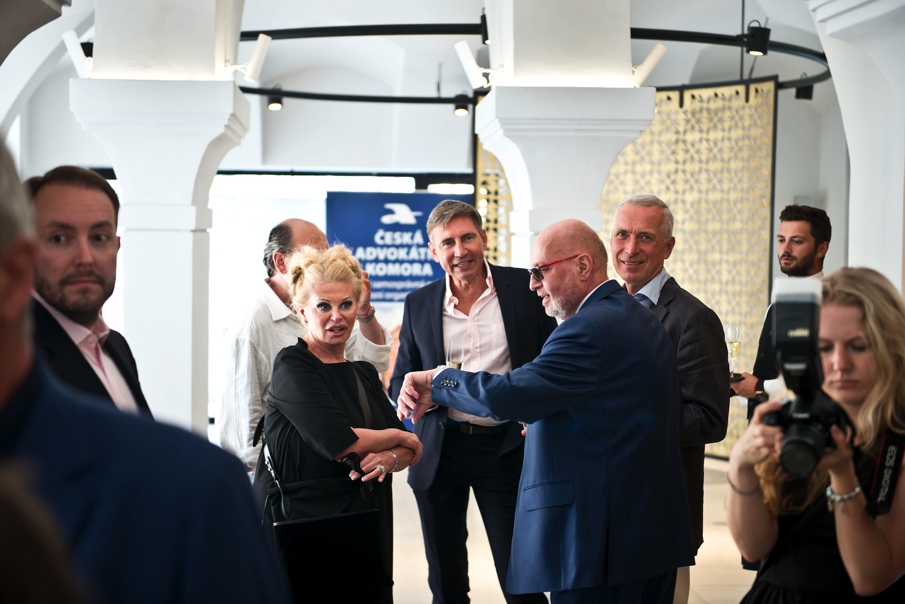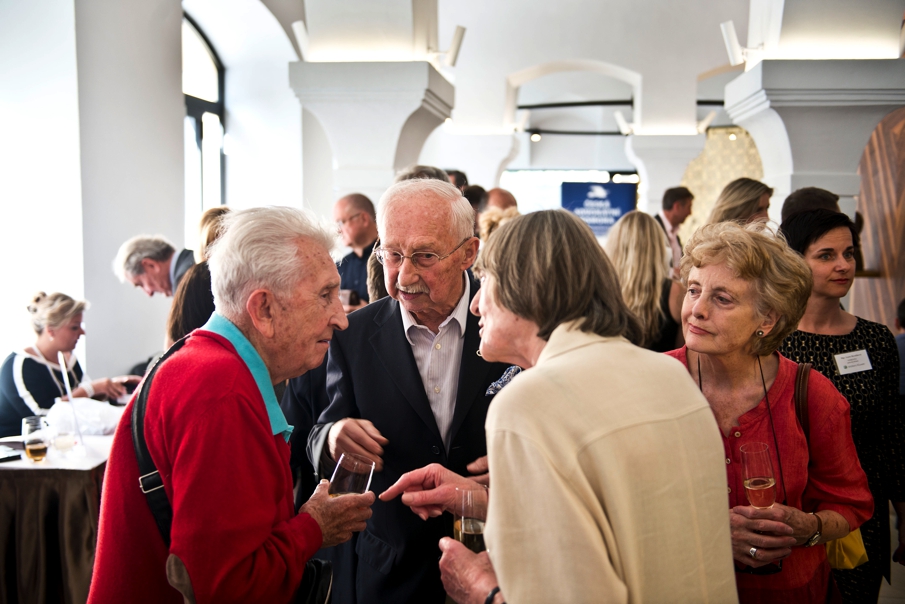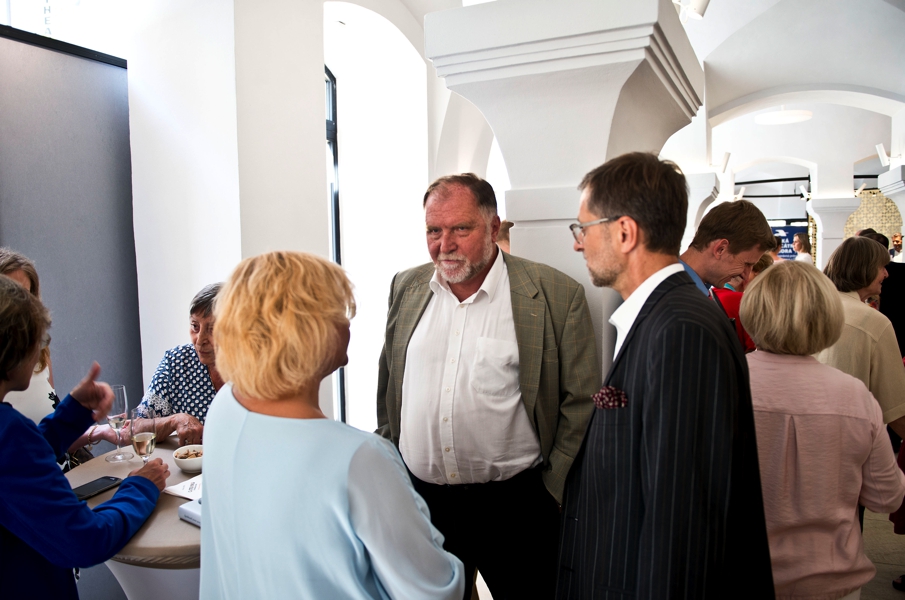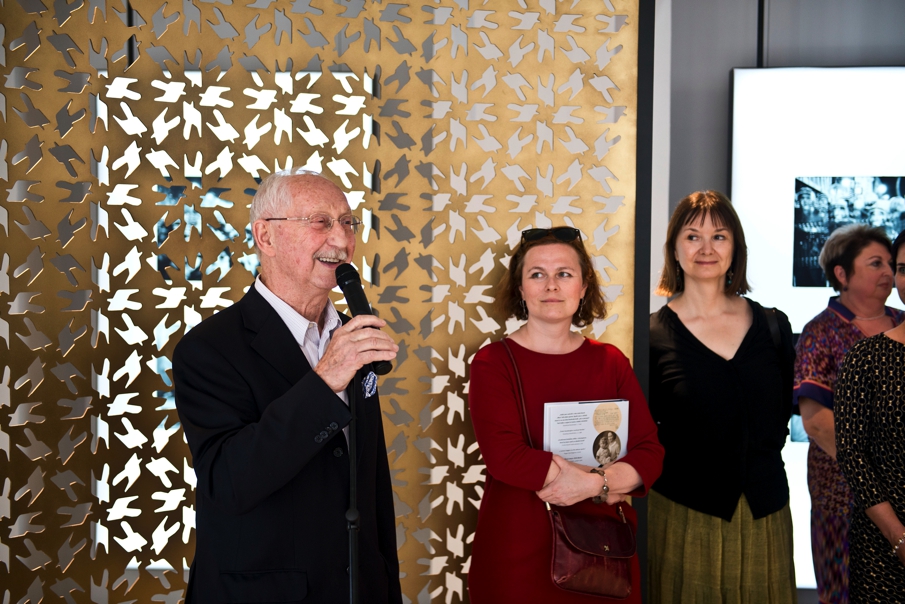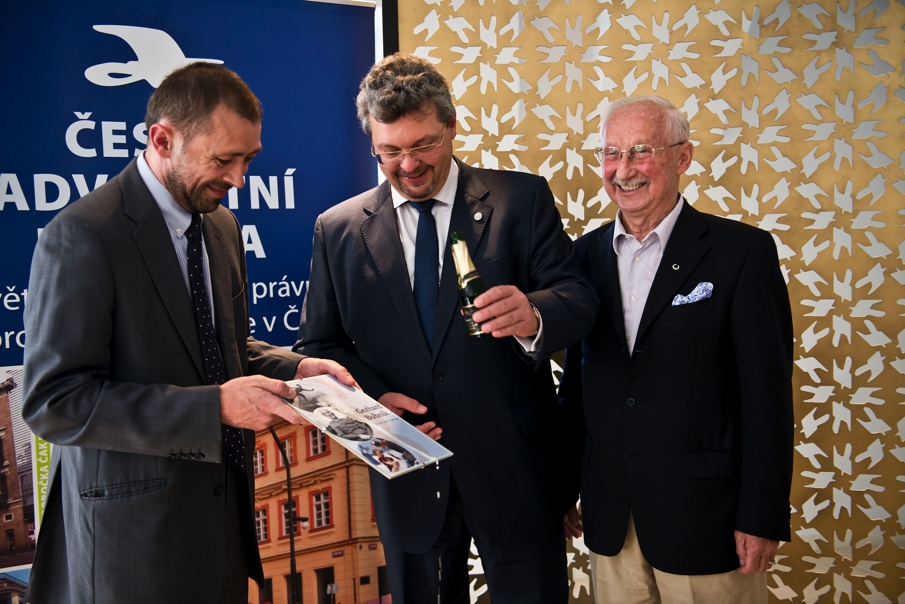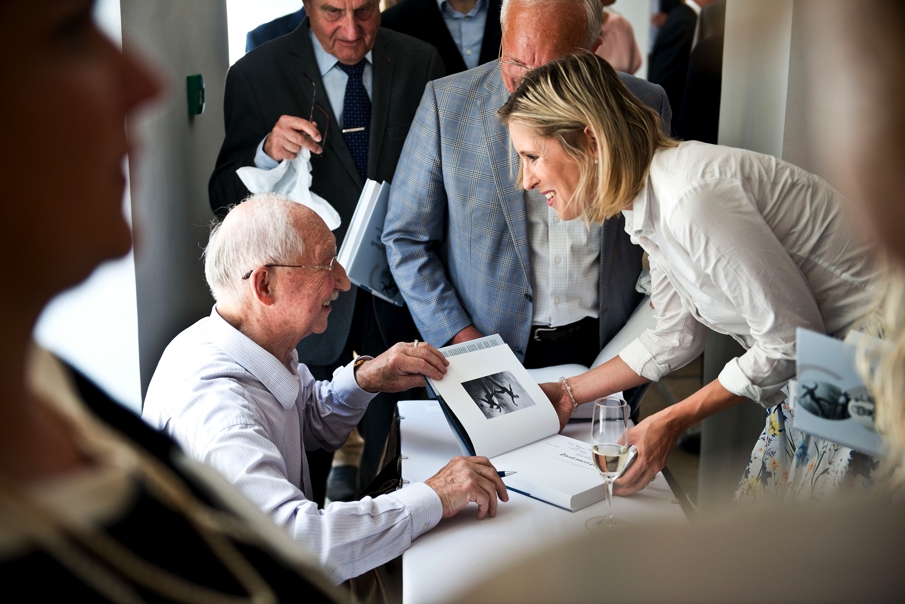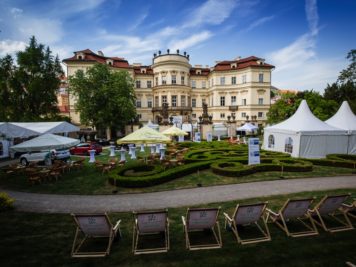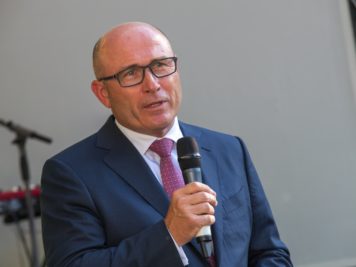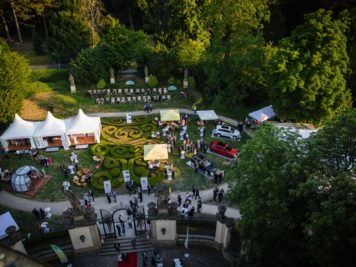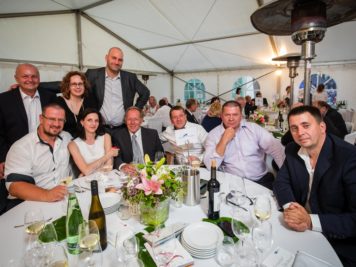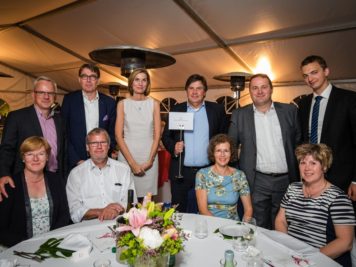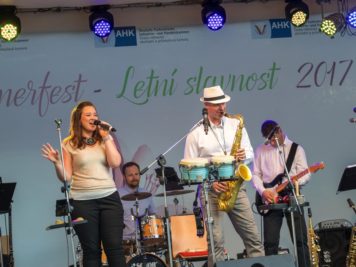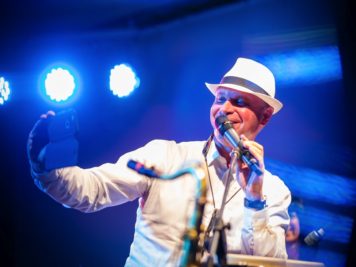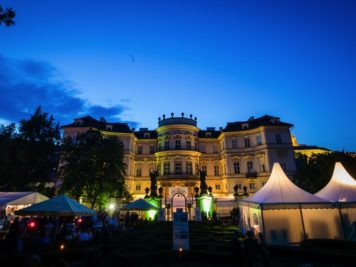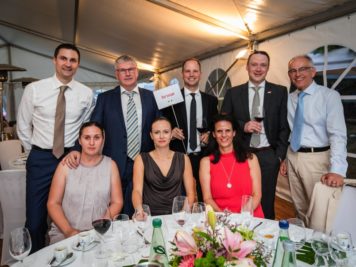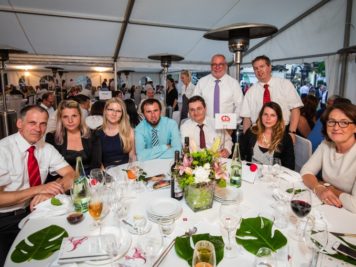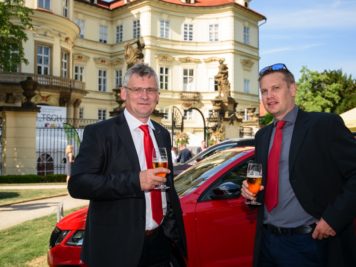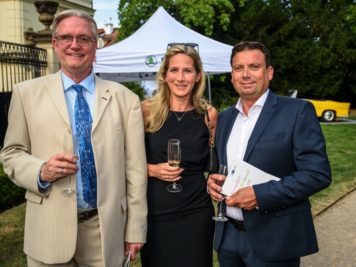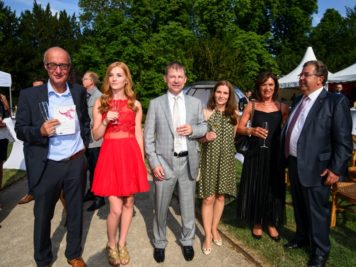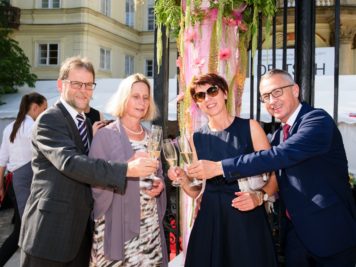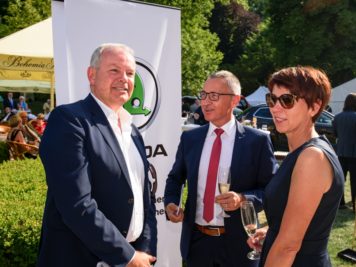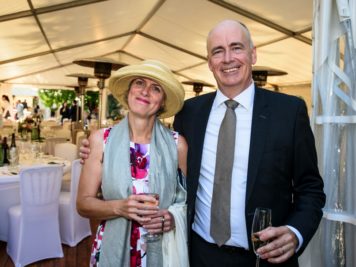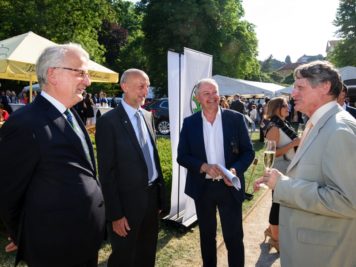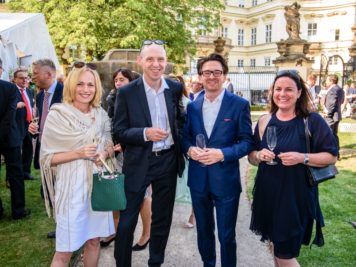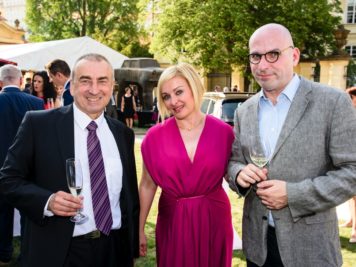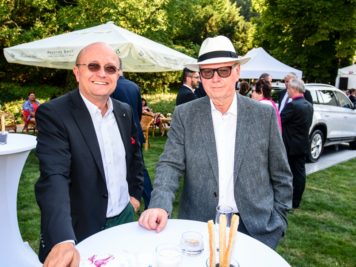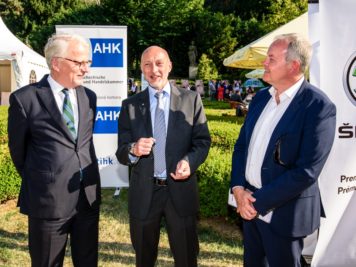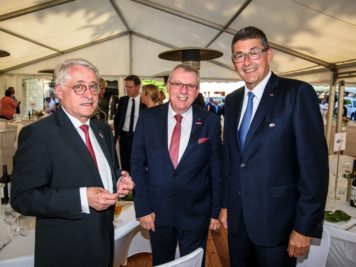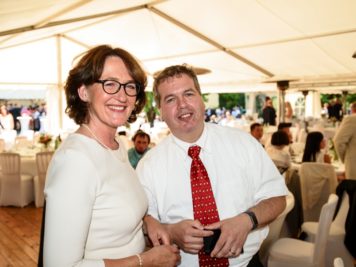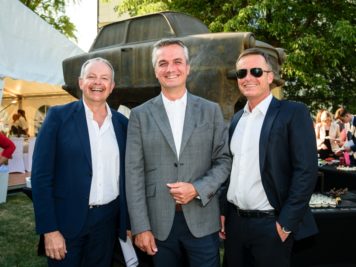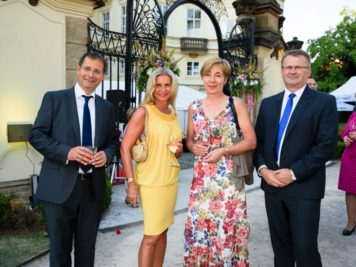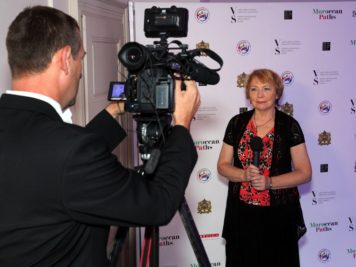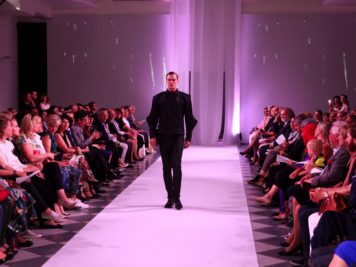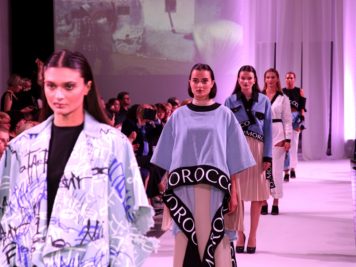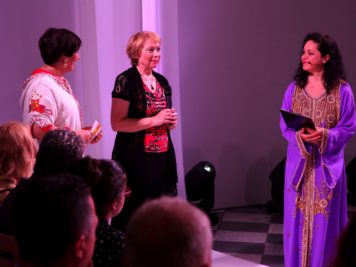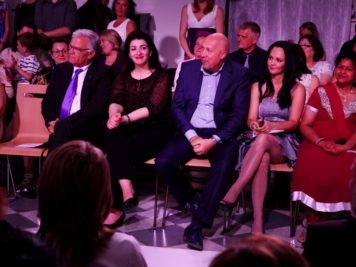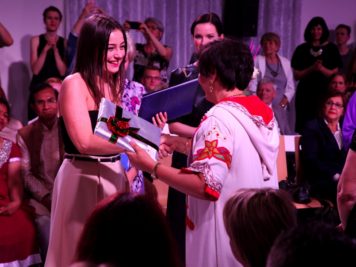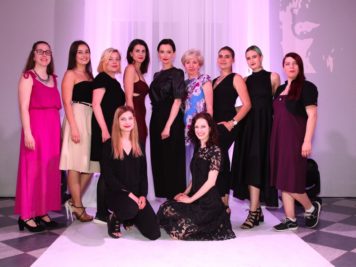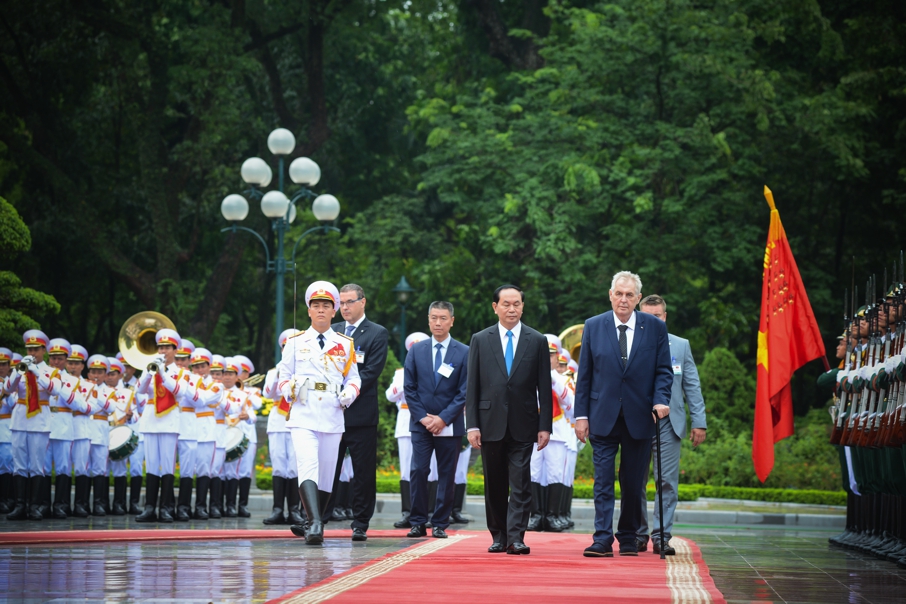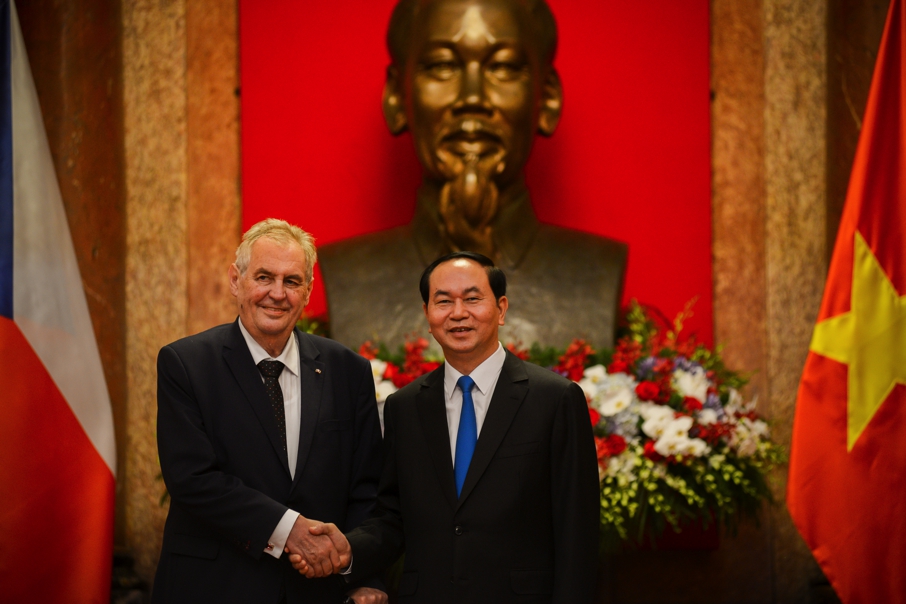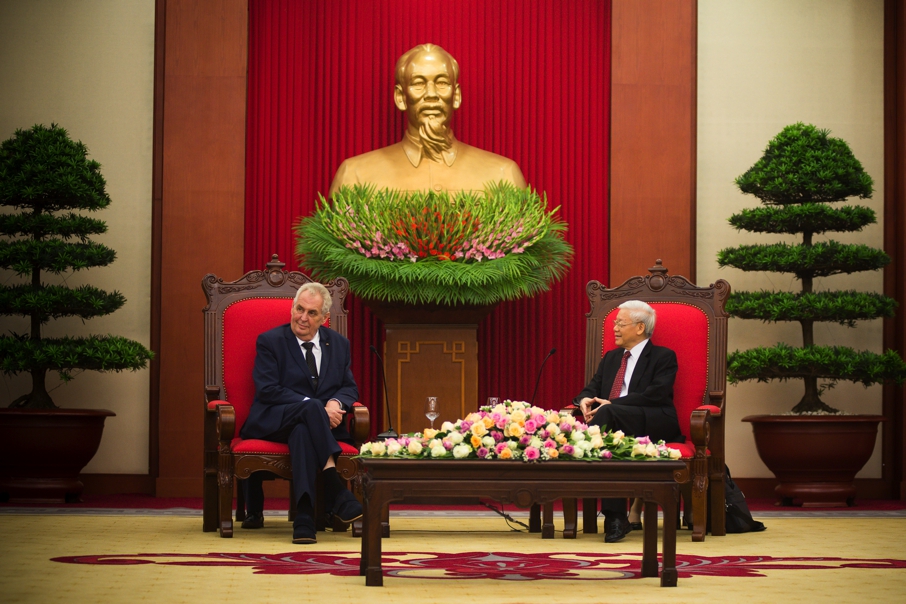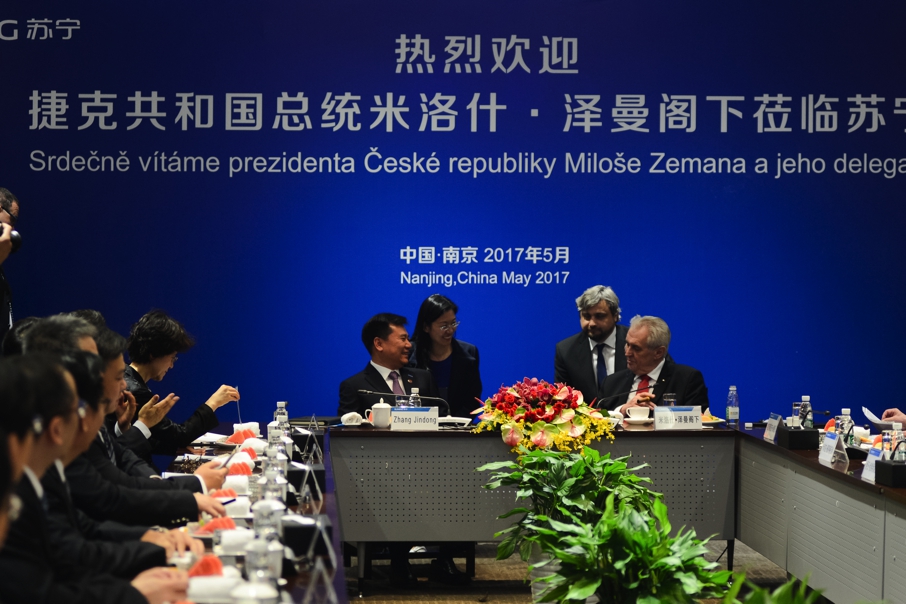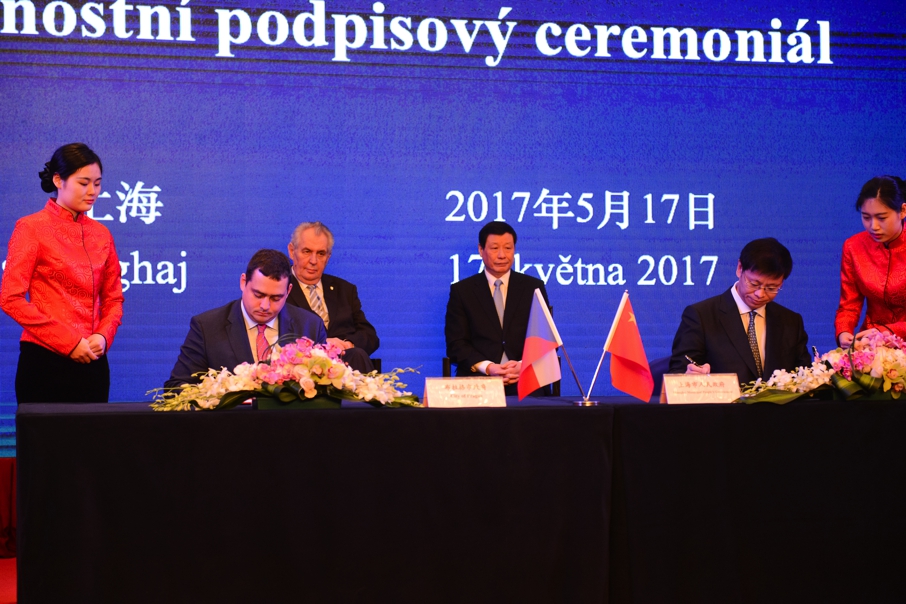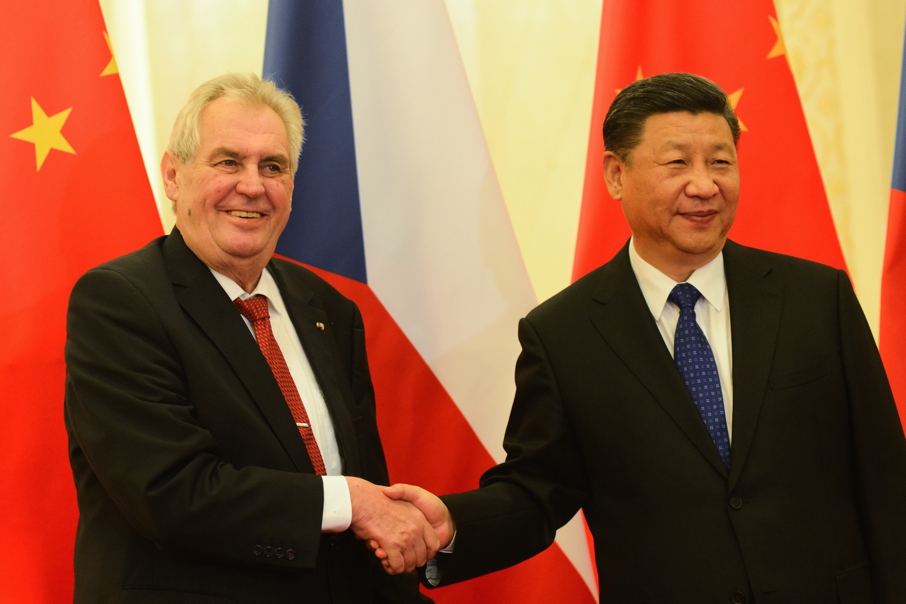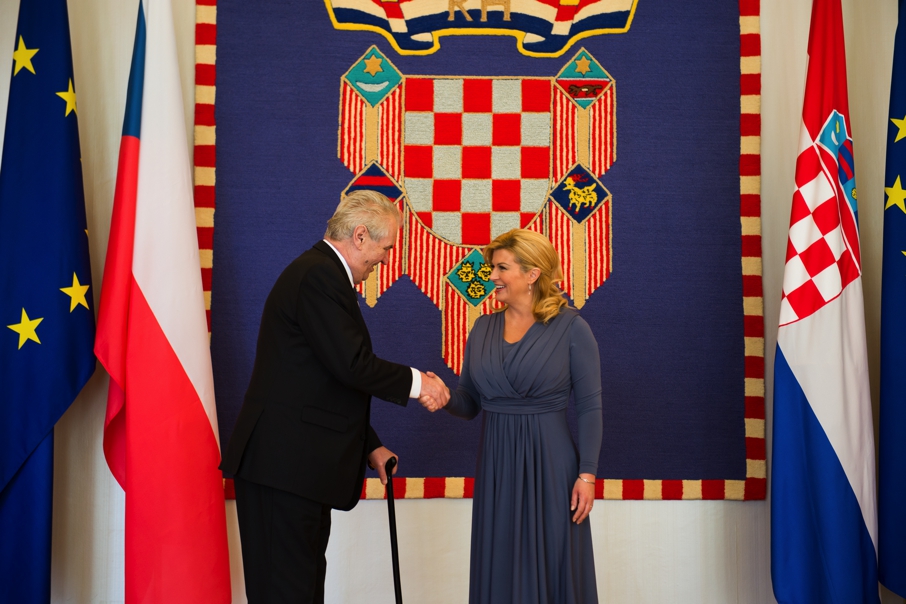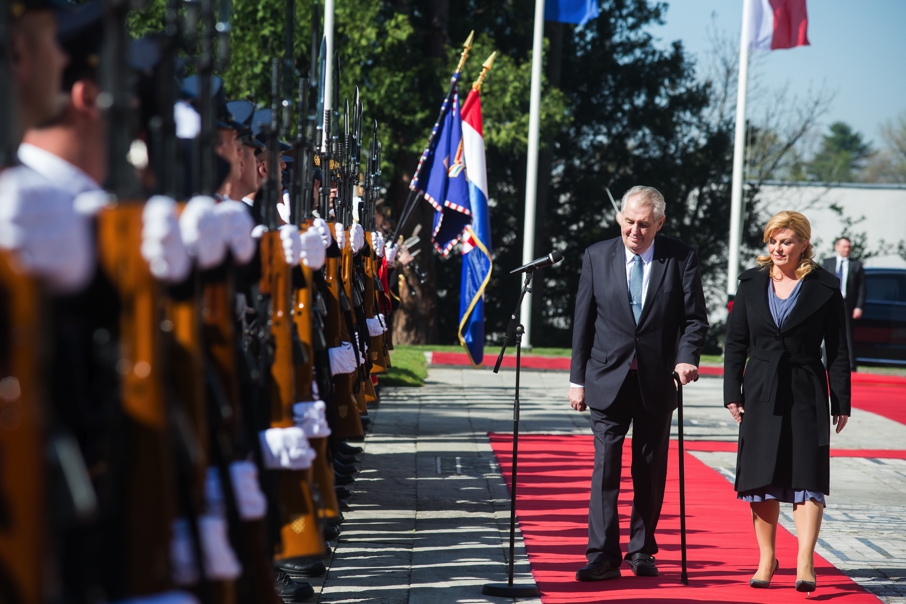An archive of our older issues all the way back to 2001 can be found at issuu.com/czechleaders.
Authoradmin
(An interview with Dr. Zeno Leoni on a side of Vienna Process Conference)
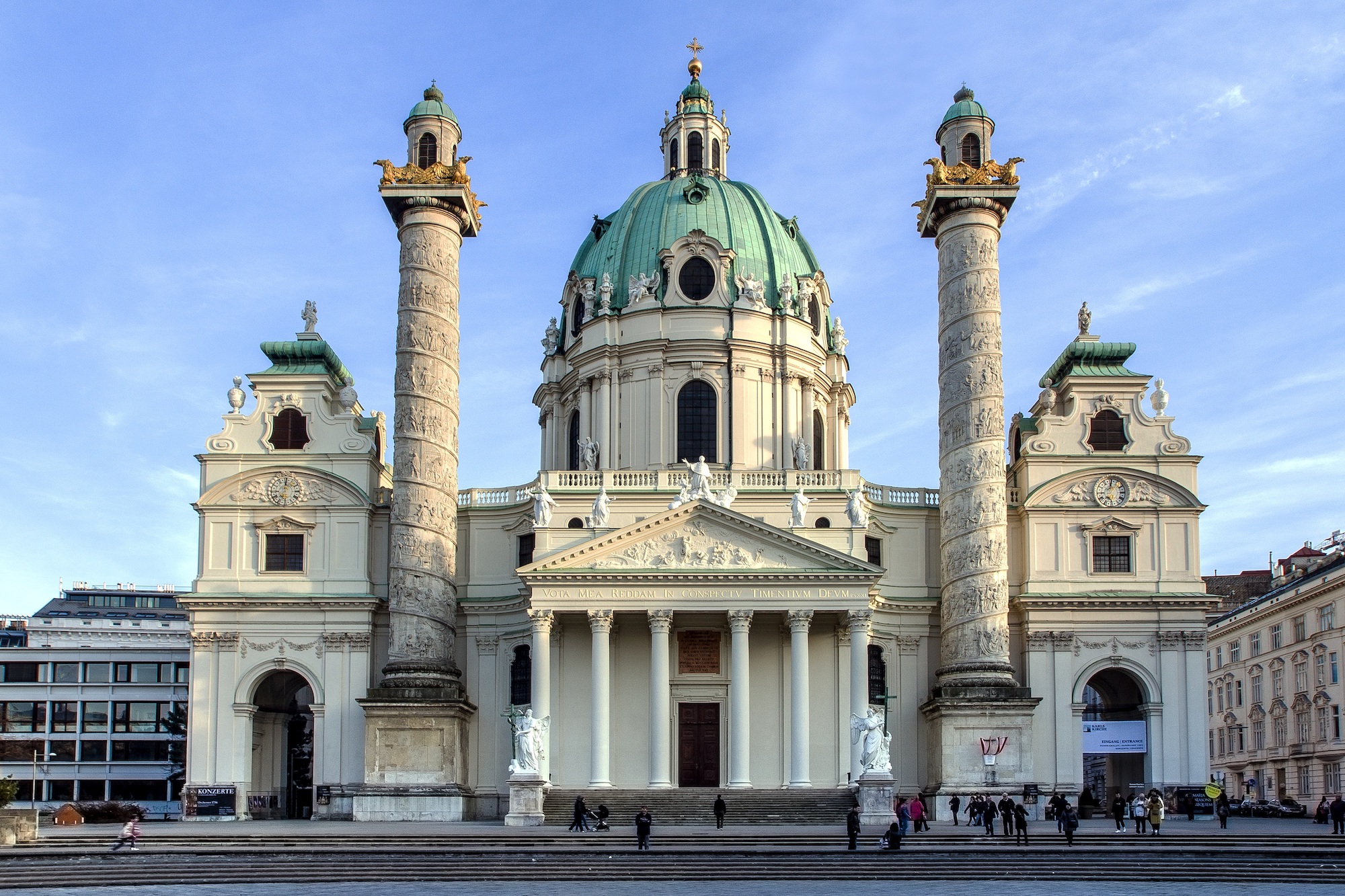
Seventy-five years after the Victory Day and Nuremberg Trials, the Vienna Process has leveraged on the current time of crisis in order to empower a new process for further all-Europe integration that could put at its centre citizens and protect these from the socio-economic and security challenges of our times.
Among the speakers in the first of the three mesmerising conference panels, there was Dr. Zeno Leoni, an expert on the crisis of the Liberal International Order from the Defense Studies Department of King’s College London.
In his absorbing speech, he sought to address the need to rebalance state power and market forces after the market failures seen over the last twelve years.
Dr. Leoni, why it is important to celebrate the anniversary of Nuremberg Trials and what does it have to do with COVID-19?
Thanks for this question. Clearly, we are not at war anymore and especially in the Western world human and political rights are solid achievements.
Yet, the lesson of C-19 but also of the Great Recession of 2008 is that if at the end of WWII it was necessary to work on the values of the EU Charter of Fundamental Rights, in the 21st century we need a Nuremberg for social rights. We are facing a time of socio-economic instability and we need these rights to be secured if we do not want to see a social “carnage”, to use a language that draws on what happened eighty years ago.
What has been unveiled by the current pandemic outbreak?
Many countries have been slow to react or have not reacted at all. I wonder whether this is because we prioritize economic interests over life. During the pandemic, as the C-19 was putting under stress national health systems of different countries, EU institutions appeared to be more interested in approving the Mechanism for European Stability, while there was no sign of a coordinated effort to tackle this emergency. I am not arguing that eugenics is back in fashion but both the Great Recession and C-19 demonstrate that Darwinism, whether biological or social, is still among us because if you are strong you move forward but if you are weak you risk perishing.
Why has the West been so unprepared?
I think the pandemic has showed that Western societies live their lives not in a strategic manner. We have become a society that thinks short-term, in a consumerist manner, that looks for quick gains as opposed to long-lasting goods and effects.
In terms of strategy as science, we don’t stockpile anymore because why stockpiling for something – like masks – that has little market value? We do not have plans in place, either.
In terms of strategy as art, we don’t study anymore, we don’t draw lessons from what others do, we are not creative and we do not have skills for improvising.
From the viewpoint of strategy as modus vivendi we also don’t live strategically. We stopped being a healthy population over the last decades, we don’t value things like work out and diet as these have become subordinated to work patterns – this is a trend that we have seen among Mediterranean people, in particular, as they used to be the healthiest. A healthy population would have saved many lives given that we know C-19 tends to kill more those who have pathologies that can be attenuated by a good lifestyle.
How can we get out of this stalemate?
The simple answer for this is “with more state”. For too many years – first with Washington Consensus, then with EU-led fiscal rigour – the state in the West has retrenched. This is not good news, as we can see. We need a state to manage strategic sectors – like health – with the necessary amount of financial resources. But we also need the state to provide society with strategic vision at any level in order not only to face future threats but also to prevent them – as in the case of working towards a healthy, strong population.
What role can the EU play in this?
The EU could become a more integrated actor not merely concerned with fiscal rigour but also with a tangible, implementable strategy that could prepare us to deal, in a multilateral manner, with the future global trends – migration, urbanisation, climate change, pandemics, great power rivalry. However, it still is overly fragmented by three factors. Firstly, German self-interested leadership. Secondly, the US remains a centrifugal pole of attraction which does not allow a full process of integration in the continent. Finally, the backlash of globalisation has undermined the faith of people on the EU. Also, Brussels have to follow its own interest and urgently seeks recalibration, a new approach towards both Mediterranean and Russia – this is a Sine Qua Non, if we are any serious about future of this continent.
Germany and France before others have the power to lead this change but they must put their selfish interests aside.
* * * *
The first July day of 2020 in Vienna sow marking the anniversary of Nuremberg Trials with the conference “From the Victory Day to Corona Disarray: 75 years of Europe’s Collective Security and Human Rights System – Legacy of Antifascism for the Common Pan-European Future”. This was probably the first conference in Europe of large magnitude after the lockdown. It gathered over twenty speakers from Canada to Australia, and audience physically at the venue, and many more online.
The conference was organised by four partners; the International Institute for Middle East and Balkan Studies (IFIMES), Modern Diplomacy Media Platform, European Perspectives Academic Journal, and Culture for Peace Action Platform, with the support of the Diplomatic Academy of Vienna that hosted the event in its prestigious historical setting.
Wishing to turn this event into a lasting process, the four implementing partners closed the gathering by marking the start of the process, tentatively named – Vienna Process: Common Future – One Europe. The follow up event is already scheduled for early October in Geneva to honour the 75th anniversary of the San Francisco Conference. Similar call for a conference comes from Barcelona, Spain which was a birthplace of the EU’s Barcelona Process on the strategic Euro-MED dialogue.

About the Author:
Chloé Bernadaux is an International Security specialist (Sciences Po Paris), prolifically writing on the neighbourhood policy, Euro-MED relations, and disarmament affairs. She is the IFIMES newly appointed representative in Paris (UNESCO).
“We are opening new areas for cooperation between the Czech Republic and Thailand”
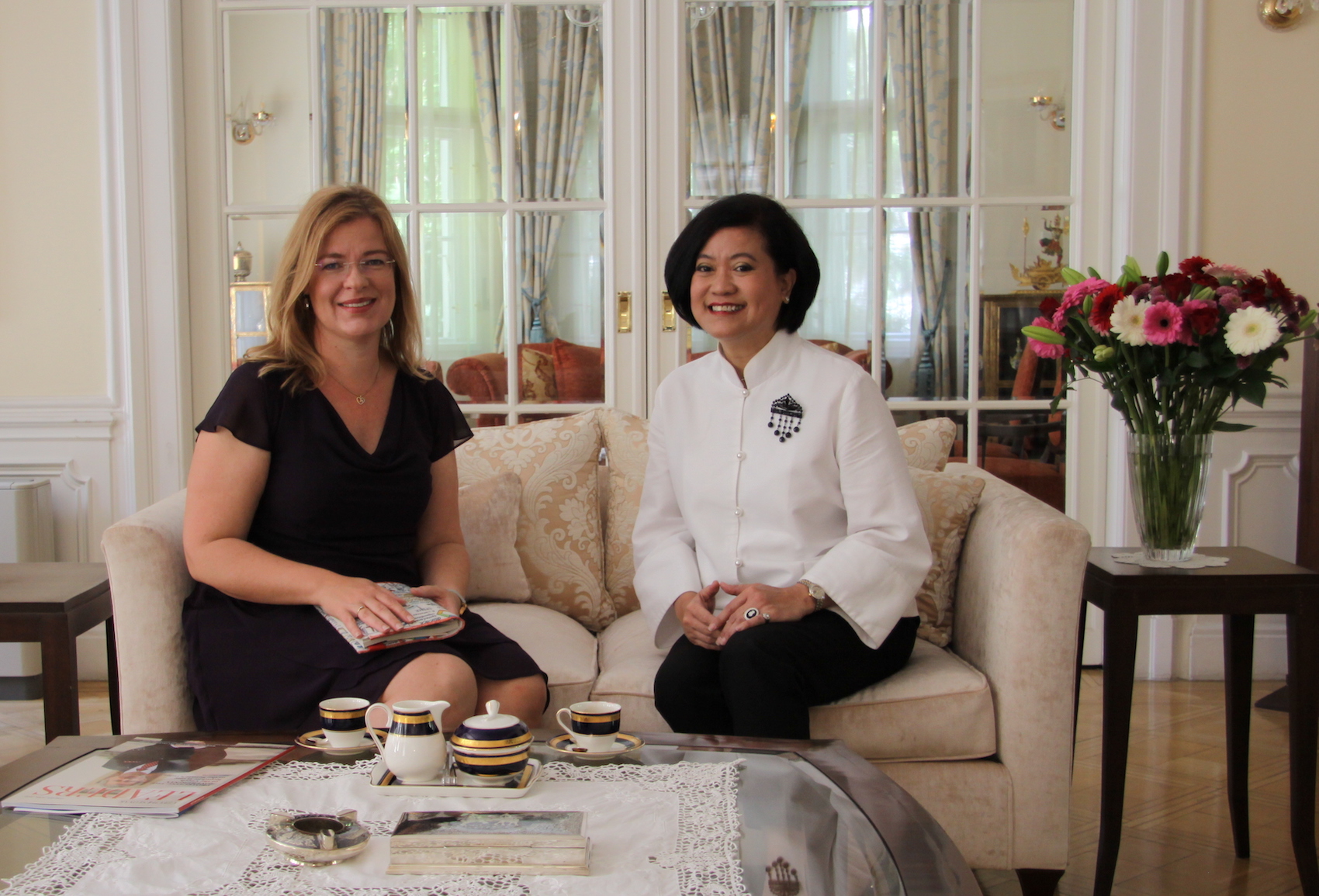
Linda Štucbartová and H.E. Ureerat Chareontoh, Ambassador of Thailand
When it comes to Thailand, people are typically divided into two categories: those who have been there and keep returning and those who have Thailand on the bucket list so they can join the first group later. As soon as I set my foot over the doorstep of the residence of the Thai Ambassador in Prague, I experienced the concept of “Thainess” myself. The traditional Thai greeting “wai”, display of fresh flowers and lush greenery surrounding the recently reconstructed garden of the Thai Residence in Prague, felt like an oasis and escape from the rush of the busy city. The Czech and Slovak Leaders Magazine is deeply grateful to H. E. Ureerat Chareontoh for becoming the first female ambassador to launch our new regular series of interviews with women leaders in diplomacy and business.
H.E. Ureerat Chareontoh has a long outstanding career in diplomatic service and Prague is her first posting in two aspects, in Europe and at the highest diplomatic rank. Mrs. Ambassador still recalls the moment when she received her accreditation from His Majesty the King of Thailand as one of her highlights, both as citizen and as a civil servant. Serving the Thai government is a family tradition, as the mother to Mrs. Ambassador was also a high-ranking civil servant herself. As soon as one enters the private residence, you can feel the deep gratitude and respect for the Czech Republic, as H.E. Ureerat Chareontoh has displayed her photographs with the three Czech highest-ranking state representatives. We continued discussing women and their role in trade, government, and diplomacy. In Thailand, there are also women present in the highest ranks of the Army. We also reflected on the role of diplomats and diplomacy. From the Cold War and closed residences, Ambassadors are now more and more open to the public. As cooking is a passion of H.E., she has toured the country while presenting Thai cooking in various towns and cities, from high-school students to most recently volunteers and firefighters who worked hard to fight the pandemic, as she joined the initiative of the Mayor of Prague 1. In 2019, she opened the residence to the public and organized presentations of the Thai business community together with cooking classes. This event will be hopefully repeated in 2021. But remember, there is much more to Thailand than Thainess. Explore also other opportunities for cooperation, as H.E. Ureerat Chareontoh has set a purpose to redefine mutual relations beyond the tourism.
Your Excellency, my first question is quite obvious. What is the current situation in Thailand with regards to the pandemic?
The spread of the COVID-19 pandemic is a direct and pressing challenge to all countries, notwithstanding Thailand and the Czech Republic. It is more than just a global public health state of emergency, it is an unprecedented challenge facing humanity and human security. Many countries in Europe are experiencing high infection rates, which have come with tens of thousands of fatalities. Fortunately, both of our countries responded to the situation quite quickly and effectively.
Thailand’s economy, like many others that are deeply integrated into the global economy and supply chain, has been affected by the disruption of global economic activities due to the outbreak of COVID-19. The latest estimation of the country’s GDP growth rate of the year 2020 is 1.5-2.5%. At the moment, the Royal Thai Government is focusing on two key areas of work. The first concern is the health issue, meaning the Government
is employing all means to reduce and contain the spread of the COVID-19 and enhance the capacity to treat the infected patients. The second concern is the provision of assistance to all Thai citizens, to support their livings. In response to the effect of COVID-19 on the country’s economy, the Government has approved an economic stimulus package amounted to CZK 1.23 trillion, corresponding to approximately 10% of GDP.
Thailand has been a very popular tourist destination also for many Czech travelers. When can the Czechs look forward to coming back?
Our tourism industry accounts for around one-fifth of Thailand’s economy. In normal circumstances, April is considered the peak holiday season in Thailand, with the Songkran Water Festival as the magnet event to attract tourists from around the world. Unfortunately, this year the Royal Thai Government had to cancel the celebration of the Songkran Water Festival to prevent the further spread of COVID-19. The Government has declared a state of emergency from 26 March to 30 April 2020, which later extended to 30 June 2020, to combat the spread of the virus effectively and efficiently. However, once travel resumes, Thailand looks forward to welcoming foreign visitors, especially Czech friends. I was pleased to hear that many Czechs are planning a visit to Thailand as soon as it is possible – as soon as the European Union opens the borders. At present, the situation of the spread of COVID-19 in Thailand is getting better, the Government has started to implement lockdown relaxation, and people are allowed to resume their daily life activities under the “new normal” and “social distancing”. The low infection rate of COVID-19 in Thailand has clearly reflected Thailand’s strength and capacity in the medical and healthcare sector.
Thai people and their culture are known for the concept of Thainess. I admit that my country lags in the areas of service and fresh food. Have you found any means or places that at least slightly commemorate Thainess?
I think that Thainess is all about Thai hospitality, which is a unique characteristic of Thais and cannot be duplicated elsewhere. It is what makes people want to come back and visit Thailand again and again. What I miss the most is Thai food, especially street food in Bangkok, or fresh seafood, cooked by the seaside in any beach town in Thailand. It is not only the food itself but also the ambiance. But here in Prague, I love the farmers’ markets, both in Prague 6 and Náplavka, that I go almost every Saturday if the weather is nice. I love the ambiance there. It is so lively and relaxing plus the food there is also good and fresh.
Let us talk about the new tomorrow. You have been working on extending the areas of cooperation between the two countries beyond tourism, which seems to be obvious.
Indeed, there are many other possibilities for future cooperation, such as defense and security industry, health or research and development (R&D), to name a few.
In terms of R&D, especially in Science, Technology and Innovation (STI), I believe that the COVID-19 situation will help accelerate the momentum of bilateral cooperation in this field as STI is vital in fighting against the COVID-19 pandemic and the “new normal”
of social distancing will also accelerate digitization as the key to bringing about global progress and development. The Czech Republic is renowned for being very advanced and having rapid developments in STI, thus, sharing and exchanging knowledge and best practices in STI between our two countries is one of the key cooperation that should be further promoted in the post-COVID era.
For defense and security cooperation, since Prime Minister Andrej Babiš visited Thailand on the occasion of the state official visit in January 2019, there have been many follow up high-level visits between the two sides, which led to the establishment of the Coordinating Committee (Working Group) for Cooperation in Defense Industry in order to work on the potential projects and details of cooperation, especially in aerospace, military vehicles, weapons and ammunition, disaster relief, and cyber and information technology. Thailand has also extended its invitation to the Czech private sectors to consider investing in Thailand’s Eastern Economic Corridor (EEC) in which many companies from the Czech sides have shown interests.
Regarding the health sector, the two countries place importance on health security and aim to promote more on this aspect. A few Czech companies, such as Linet, are doing business in Thailand but currently, with the pandemic and the growing capacity of the Czech business in the health industry, the Embassy will encourage more cooperation and more Czech companies to consider investing further in Thailand in this field, as well as in medical and pharmaceutical sciences. In addition, the Faculty of Pharmaceutical Sciences, Chulalongkorn University of Thailand, has signed a Memorandum of Understanding with International Cannabis and Cannabinoids Institute (ICCI), situated in Prague, to promote cooperation in the use of cannabis extracts for the treatment and development of cannabis and cannabis extract research projects. It is the first collaboration between ICCI and a country in East Asia and South East Asia as well as an important step for the ICCI’s international cooperation with countries outside Europe.
On another related note, there are also approximately 30 Thai students currently pursuing medical studies in the Czech Republic, mostly at Charles University. At the same time, around 10 Czech medical students participate in internship programs at several hospitals in Thailand each year.
Finally, technical cooperation in third-world countries, to promote human security and empower the underprivileged, women and children is also a potential endeavor that Thailand and the Czech Republic could expedite in the near future.
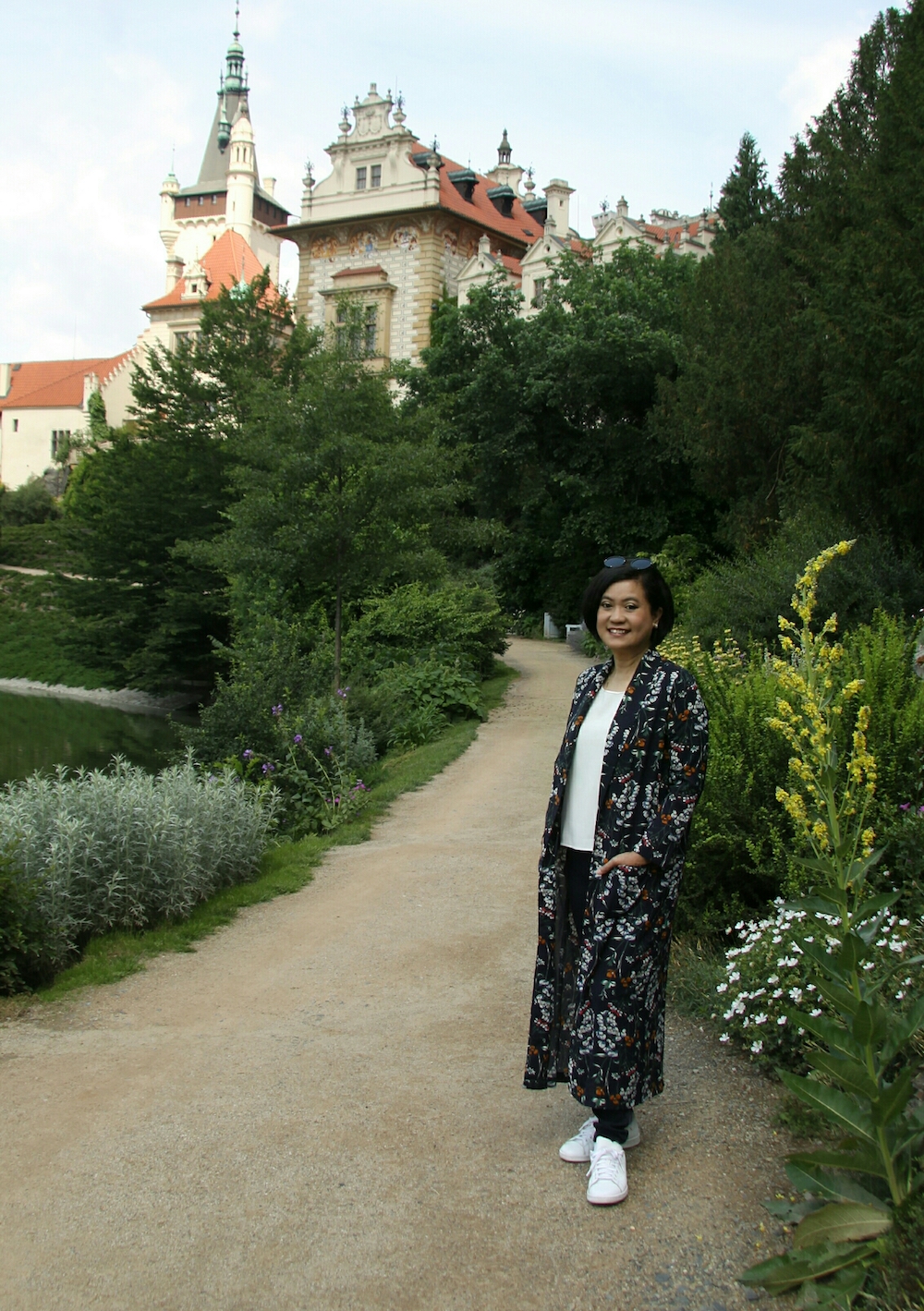
H.E. Ureerat Chareontoh, Ambassador of Thailand
We are launching the new series of women ambassadors and thank you very much for being the patron and the first leader to be featured. What is your message to women professionals?
First of all, I would like to thank the Czech and Slovak Leaders Magazine for this initiative. Right now, there are approximately 20 of us, women ambassadors in the Czech Republic, covering all continents and I hope that the number will increase. We now have a “WhatsApp” group of “Prague Women Ambassadors” thanks to my dear friend, the Ambassador of Canada, who created it. Recently, we participated in a project raising awareness about World Bee Day, initiated by the Ambassador of Slovenia. I admire each and every one of the women ambassadors, and actually all women professionals, for doing their job the best way, while balancing it with their personal lives. Just do your best and have no regret for the outcome.
How do you manage to maintain a work-life balance? What are your passions and hobbies?
As a working woman, I learned how to balance my work and my personal life a long time ago. But I also had been helped by my family, my parents, and my brother. In the past, when work demanded and I had to work during the weekend, I chose to bring work home and did it together with my children while they were doing their homework. Three of us were in front of our laptops at the dining table. Some of my colleagues prefer to go to the office finalizing their report over the weekend, while I prefer bringing work to my home. At least I could be with my kids. I could say that once you are doing things you love and have passion with, I mean both work and family, it is easy to balance it.
As a woman and as a mother, I was always happy to cook for my children from when they were very young. I love to explore recipes, learning new ones from friends and colleagues, or try some new recipes from YouTube. It was fun and my children loved it. Now as they are all grown up and we do not live with each other, I still enjoy cooking, especially during the weekend.
I also like to travel. I think it is the best way to learn about the country you are living and working in. Since I arrived in the Czech Republic a year and a half ago, I have visited many cities here, Český Krumlov, Karlovy Vary, Telč, Liberec, Znojmo, Mikulov, even Ještěd, to name a few. And I will continue to do so during my term here.
What is your final message to Czech and Slovak Leaders readers?
Visit and experience Thailand yourself and not only the major and well-known cities like Bangkok, Chiang Mai or Phuket. There are many other provinces in Thailand to be explored and we are looking forward to welcoming you all. Also, think of Thailand as a perfect destination for investment and business with regards to many future-oriented sectors. Thailand and the Czech Republic have great potential to cooperate in security, automation and robotics, smart electronics, next-generation mobility solutions, medical and comprehensive healthcare, and last but not least food industry. Doing business in Thailand will allow you to experience “Thainess” not just during vacations.
By Linda Štucbartová
Photos: Jitka Tomečková
Caffe Italia, June 24th, 2020
Photo: Jitka Tomečková
“The state of our society has been a pleasant surprise”

General Petr Pavel
General Petr Pavel is a soldier by profession, who gradually worked his way up to become Chief of the General Staff of the Czech Armed Forces. He subsequently became Chairman of the NATO Military Committee, as the very first representative of a country in the former Warsaw Pact to reach the highest military role within the North Atlantic Treaty Organisation. During this pandemic, he has set up the “Spolu silnější” (Stronger Together) initiative, which raises funds for those helping on the front line. His name is also currently being discussed in regard to a possible candidacy for President of the Czech Republic in 2023. My interview with the General took place at a time of still restricted contact, at home in my garden. One of my first questions to him was about his possible candidacy for the presidency. This was followed by questions about the role of the army during the pandemic, and our interview went on to look at strategic geopolitical areas: the relationship between the Czech Republic and NATO, and the EU and defence. We finally moved on to leadership, but there was again a parallel with global politics. What mistake has General Pavel openly admitted to? And what has most pleased him? More in the following interview, which I consider to be one of the most comprehensive and informative that I have done in recent times.
General, my first question will be somewhat unorthodox. With whom am I currently doing this interview? I know you are a former general, current leader of the Spolu silnější initiative, and perhaps you are a future candidate for President of the Czech Republic.
I am currently a pensioner. I’ll leave open your question regarding candidacy. A few conditions need to be met before I feel motivated to run. My health and family situation are the most important. A lot will depend on political developments here. If the leading candidates in the presidential election are mainly decent people whom I myself would vote for, then there will be no reason for me to get involved. But if that is not the situation and those with a good chance of election are people I would not like to see heading this office, then I will do all that I can. On the one hand because of my own conscience, but also because many people have encouraged me to take this step.
Have you got a specific date by which you will make your decision? I don’t expect you to announce your decision right here in my garden, although as a journalist it would be a dream come true. Two candidates from previous elections and two entrepreneurs have already announced their decision to run. Political scientists are also calling on potential candidates to place their cards on the table so the public can keep an eye on future candidates and weigh them up.
I follow what political scientists say, and I do respect them because as experts they know what they’re talking about. But my objective isn’t to run in the presidential election at any cost. So I don’t feel any pressure to announce my candidacy. I do what makes sense to me, and that includes acting within public consciousness. Once I feel I have reached a crossroads and I need to choose my path, I will do so. Once this coronavirus crisis is over, I’m looking forward to going back to giving talks on security, integrating the Czech Republic into NATO and the European Union, and international relations, because that’s something I enjoy and which fulfils me.
Moving on to your current Spolu silnější initiative, which helps people on what’s termed “the front line”. What have you found out about Czech society during this pandemic?
The state of Czech society has been a pleasant surprise to me during this pandemic. Many of us had been somewhat sceptical. Even at public discussions I had held, there were often expressions of frustration at the state of Czech society. According to one public opinion survey done by Czech Radio for the 30th anniversary of November 1989, some of the traits of Czech society did not sound very positive. However, we can see that when we are put under pressure, and it affects us all similarly because the virus does not differentiate between political allegiances, then we can come together, we can help each other, we can disregard what divides us and we can be inventive. In any case, we’ve always been inventive and we should work on developing that skill, as well as our creativity and flexibility. As always, a few negative traits have also expressed themselves, but there have been more positive traits, and it would be good if we could build on these and not let them slip away.
How did you come up with the idea of setting up the Spolu silnější initiative?
The impetus came from a number of sources. From the beginning of the crisis, I’d felt certain withdrawal symptoms from not doing anything, because I’ve always been used to being active in crises and focusing my efforts on particular goals and problem- solving. Suddenly there was a crisis and I was sitting at home because I couldn’t travel anywhere, not even to my public discussions. I came up with many different activities I could do, but I wanted my contribution to have the greatest possible impact. After donating to the production of face-masks and to charities, I thought I needed to help those who are already providing help now. I gathered people around me who may not have been skilful enough to produce respirators, or who may not have had the professional skills to provide quality social care, but who were able to secure the resources needed so that the professionals could perform their essential activities for as long as they could, without having to worry about funds. Last autumn, I set up Spolek pro bezpečnou budoucnost (the Society for a Secure Future), so I, my colleagues from this society and others founded the Spolu silnější initiative. We’ve been operating for two months, and I can feel that our initiative is going in the right direction. I must confess that the opportunity to see the activities of non-governmental organisations and charities up close has been a great lesson for me. Until now, I had little awareness of all the things they do, and how much personal effort and courage they put into their work. (Author’s note: As of the end of May, 624 people had supported the Spolu silnější collection, raising a total of almost 1.4 million CZK, divided up amongst 38 projects).

General Petr Pavel
Speaking of resources, let’s look at one resource which seems to me to be little used during this crisis, specifically the army of yours, and its deployment or non- deployment during this pandemic.
Let me just correct you a little: it’s actually our army. Deployment of the army is about division of roles. The army’s role is primarily to secure external security. Therefore any actions of the army within the state must be clearly defined by laws and rules. Under the previous regime, there was a risk the army would be used against its own people, so army deployment has always been a sensitive issue and has been strictly defined. Within the emergency services system which was gradually built up, the roles of key responders to a crisis were assigned and the army was defined as providing support. It has considerable capacity, but will only be deployed when internal security components no longer suffice. During the floods, the fire services were operating at almost full capacity, since the large area impacted meant fire-fighters were everywhere, while the army sat in garrisons waiting. When I was Chief of the General Staff, mayors of villages where there were garrisons based and ready to help turned to me. It was hard at that time to explain to people that I was unable to give the order for deployment, because the Central Crisis Staff had not given the instruction for army deployment. I learnt from the situation, and the decision was made that deployment would depend on the specific options available at specific times and specific places. This pandemic is seen as a health and internal crisis. Ministry of Health and Ministry of the Interior components have been activated, and the army has taken on a support role, deployed in resolving logistics tasks, transporting materials and unloading aircraft. So the army has been deployed, it’s just that not much has been said about it. Soldiers using military equipment have transported the same amount of material as the fire services have. They have used hundreds of vehicles and pieces of transportation equipment, and not just in loading but also in transporting and unloading. So I personally do not perceive the army’s deployment during this pandemic as being merely supplementary. Remember that special chemical and biological teams have also been deployed in specific cases.
Now let us look at international issues. During this pandemic, we haven’t had the opportunity to properly celebrate the anniversaries of our joining NATO (12 March 1999) or the European Union (1 May 2004). And since most news reports have focused on statistics around the Covid-19 disease, these important milestones have not been widely publicised.
I think they were noted, and it is good that we aren’t holding any grandiose events; we don’t need to arrange massive parades or rallies. It’s true that I would have expected both these events to be spoken of by our leaders as clear positives. I would also have expected brief statements on the anniversaries from the President or Prime Minister. Although this crisis has overshadowed these events, many people have talked of how beneficial membership of both these organisations is for the Czech Republic. Even in terms of the current crisis. If we hadn’t been members of the European Union, the government would certainly not have had the funds available to it to support entrepreneurs which the European Union has released.
Newspapers are currently full of information on fighting this invisible virus, but you are referring to the broader geopolitical context and the need to secure internal and external security, including appropriate expenditures on our army. During this pandemic, the need for security has not diminished, and the coronavirus has not reduced the security risks that exist in the world. The government should continue to ensure modernisation of the army in order to complete the tasks arising from our involvement in securing our collective defence. It is important to realise that there are no borders between us and NATO, or us and the EU. We still haven’t got used to the fact that we are NATO, and we are the EU. Safeguarding our security within a system of collective security is the cheapest and most effective method available to us. We don’t have to invest that much in security, but we do have to play our part. If we don’t do that, and other states behave similarly, then we cannot expect our collective defence to be effective, because it will be underfunded. In this regard, we should be extremely cautious about cuts in army budgets. Investments in modernising the army are not investments in “toys for soldiers”, but rather investments in the security of us all.
Confidence in the army is high in the Czech Republic, and it has been one of the most trusted institutions here for many years. But mere trust and popularity are not enough.
Confidence not just in the army, but also in the police, is higher here than in other NATO and EU countries. On the other hand, if you ask people how many of them would take an active part in defending the state personally, the percentage falls to about a third to a quarter, because defence is seen as a matter for the army. Yet security is a matter for all of us. We’ve entrusted safeguarding security to soldiers. But we should all be providing material support, resources and moral support. Many people enjoy taking part in army outreach events, such as NATO Days, Cihelna and Tank Days in Lešany, and open days at various garrisons. Tens of thousands of people visit these events. But if NATO asks us whether we’re allocating sufficient funds, all you need is a single populist declaration from a top politician, and suddenly we’re willing to get rid of the army altogether, or let it get by with 40-year-old technology. And if that army with its old technology is deployed somewhere and a failure occurs, who is responsible? The army and its command. If we are to be proud of our army, it must be capable of defending us, and it will only be able to do so if it has the resources it needs in order to be modern, effective, well-trained and ready.
This interview is for Czech and Slovak Leaders Magazine. What is your concept of leadership?
Leadership is a very popular topic today; just look at the number of links the Google search engine will find. And my colleagues who have left top positions in NATO or in the American army are also setting up various think-tanks focused on modern or strategic leadership. I don’t think you need to make too much of how to lead people. Leadership is about integrity, clarity and transparency. And to those characteristics I would add civility, that is to say a human, ordinary approach. If a leader is not just to lead, but also to be followed, then they must be understandable and credible in order to persuade others. Consistency of opinions does not exclude development of opinions, but you cannot turn about-face in a matter of days. Leadership doesn’t require detailed specialist knowledge; a successful leader is able to delegate. When someone pretends to understand everything, this is mere pretence and lies. When a leader tries to do everything him or herself, tries micromanagement and is always seen and heard, then they aren’t giving others space or initiative. And initiative offers great potential which it is good to make use of.
Leadership also involves making mistakes and being able to admit to them. What is the greatest mistake you admit to?
I have made many mistakes. With hindsight, I’ve come to realise that I could have done some things better. Talking about a mistake which I perceive as a failure, then that would be joining the Communist Party under the last regime. I was too young to see things as they were, and I joined with the hope that the party could be changed for the better. I still feel bad about doing so today. Many people at the time had a similar lack of knowledge and objective cognisance. I myself was the product of a military education from the age of 14, and my opinions then had been shaped and controlled. Basically I had had no access to alternative ideas.
Being open and fair in admitting to mistakes is what takes us forwards. In my leadership roles at many levels, I have seen that it isn’t just giving space to the people I am leading that works, but also admitting that something has failed because I gave a bad assessment of the situation. The ability to acknowledge a mistake and take a constructive approach to ensure it does not happen again is an expression not of weakness, but rather of strength. We should not fear it. We do not have to achieve declared success in everything merely in order not to display weakness. In the end, this approach can be exploited by critics of the West, specifically Russia and China, who use it in their disinformation campaigns. One of the ways we can defend ourselves against these campaigns is to be more open and fair in regard to ourselves. If we sometimes admit to making a mistake, not only are we taking the wind out of the sails of those carrying out the disinformation campaign, because they won’t have the space to come up with speculation, but we are also showing our own people that we are able to admit mistakes and learn from them. Unfortunately, we don’t always do this. And there have been a large number of examples of times when we didn’t want to back down and admit we had made a mistake. Such as Libya.
By Linda Štucbartová
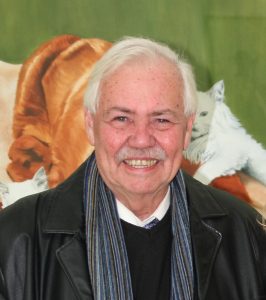 Dear readers, followers, business partners and supporters of the Czech and Slovak Leaders Magazine,
Dear readers, followers, business partners and supporters of the Czech and Slovak Leaders Magazine,
Thank you very much for all support expressed to us during the Covid-19 crisis. I was deeply touched. My team and I understand this as a proof of going in the right direction with our activities.
I hope that you stayed safe and healthy during the pandemic and I am pleased that our lives and social activities are becoming adjusted to a new reality. I also hope you have been enjoying the on-line coverage, weekly newsletters and special editions that prepared for you, both as an inspiration as well as a review walking down the memory line of our activities and engagement in society.
Now, we are pleased to announce a new project. Leading photographer, Jitka Tomečková, joined by our Chief Interviewer, Linda Štucbartová will launch a new project, featuring a new series of interviews with Women Ambassadors.
While rules for big events are still tight, the visibility is needed more than ever. Contact us for special conditions of being featured in our newsletter or the printed magazine. I am sure there are many stories of successful businesses either engaged in helping the society or coming up with innovative solutions to fight the pandemic as well as stories of personal growth and development during the hard times. All these can be shared with our readers. Let us know.
Now it is the right time to communicate your next plans, strategic steps or new directions. Again, make use of all our platforms to successfully restart your businesses. We have prepared special schemes under the headline “be visible now and pay later”.
For more information in English, please contact me personally at benke.aikell@czechleaders.com.
For information in Czech , please contact our esteemed Editor-in-Chief Lenka Koenigsmark at lenka.koenigsmark@czechleaders.com.
With the upcoming summer, I wish that you truly find your personal and business life thriving and blossoming again.
Benke Aikell
Your Publisher
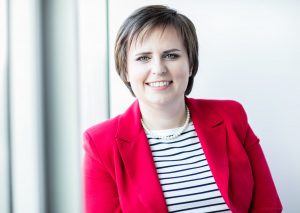
Dr. Eva Gáboríková, M.A., PhD.
Eva has been cross-cultural consultant for more than 15 years supporting companies with trainings and workshops in Europe, USA and Asia. Working with international companies, teams and different cultures, she inspires her clients to look for their new strategies on how to deal with cross-cultural challenges and differences. She consults companies to keep talents and develop a successful cross-cultural communication between leaders and teams. In the year 2016 and 2018 she was awarded Great Award in competition with trainers and consultants from USA, Europe and Asia. You can reach her via email egaborikova@gmail.com or www.evagaborikova.eu.
How to crack the hard cover of Hungarians?
Many expat leaders coming to Hungary are surprised to experience that Hungarian business culture is quite formal. Based on some stereotypes they guess Hungarians are very cheer and outgoing people. However, meeting them during negotiations, they face formal interactions with their new business contacts. Indeed, Hungarian culture belongs among so called “coconut cultures” what means, business people need some time to “crack the hard cover” and know their business partners to establish closer and friendly relationships
Business relationships are built on trust and familiarity, and often involve socialising outside the workplace. Business lunches and dinners are common, but their hidden purpose is to know people, not to talk about serious business topics.
Socializing is an important part of the relationship building process. Hungarians prefer face-to-face meetings rather than more impersonal vehicles of communication such as emails and phone calls. Being deeply involved in a discussed topic, they are emotive speakers who say what they think and expect you to do the same. Stories, anecdotes, and jokes are powerful tools used to prove their points.
What are the keys to Hungarian motivation?
Conducting my intercultural trainings and going through experience of my clients, a lot of them shares to be surprised to learn that their team members are highly individualistic and proud of their personal accomplishments. They work hard and will often do extra hours to complete a job to the best of their ability. However, they should feel appreciation on the side of their managers. Loyalty to a company is to a certain extent conditioned by benefits offered by team companies and HR departments.
Compared to post-communist generations, team members from younger generations feel empowered to speak out in the management process. They sometimes run into disagreements with those team members who focus on exact instructions from leaders and their strict execution.
In general, Hungarians enjoy socializing with people from work and do not separate their business and personal lives as is done in many other cultures.
We used to do it like this and it worked. Why to change it?
Hungary belongs among cultures which avoid sudden changes. Therefore, introducing changes requires considerable amount of thought, planning and evaluation. Team members expect their leaders to listen to their opinions and having a chance to adapt themselves to a new situation. Otherwise, they perceive it as poor management. Hungarian do not view change as a movement to something new and better. They are afraid of negative circumstances which could accompany changes. “We used to do it in this way.” is usually the first reaction to the proposal of changes. At the same time, a possible failure is viewed as a poor performance and causes loss of confidence among team members.
Being flexible to schedules?
Expat managers describe Hungarian culture as flexible regarding adherence to schedules and deadlines. In their words, a lot depends on a manager and their approach as Hungarians respect guidance and status of their leaders.
What are the signal of being deeply involved in discussion?
Many expat leaders and negotiation partners should be aware of direct communication within the framework of technical and business negotiations. However, going into the areas connected with feedback and criticism, “yes” can often mean that the ideas is being considered rather than confirming a final agreement. Hungarian team members often enjoy a lengthy discussion of topics which allow an opportunity to show their intellectual skills which they are proud of and expect others to appreciate it.
Hungarian communication style can be described as emotional especially when communication partners are deeply involved in discussion. In such cases showing anger, affection, disagreement and voicing opinions passionately should be viewed more than a sign of being involved and engaged.
Hungarian business partners have the tendency to consider every aspect of a deal and will therefore spend more time negotiating and reviewing things before making a decision. If often happens that they will often require substantial amounts of information before arriving at a conclusion.
Cooperating in a team or being a team leader, the access to information is considered as a power tool. For this purpose Hungarians often build their relationship networks which allow people to support each other and share information in a friendly way.
Who makes decisions?
Decisions are made from the top down. Team managers consult their teams but do not rely on their recommendations. Decision making can be a slow process, as Hungarians prefer to consider all aspects of a deal before a final agreement.
We need instructions! It’s your responsibility!
Expat managers and leaders view Hungarians as creative and educated team members. However, they find it quite difficult to encourage them to make decisions independently. Even when they encourage and empower them, it seems that they still expect direct instructions how to operate are given. One of the reasons is avoiding mistakes and being criticized because of them. Therefore, successful leaders recommend to create a supportive environment and build relationships as the most powerful incentives to encourage their Hungarian team members to make decisions on their own.
Heroes of Covid-19
On Women, Children, Missing Computers and Long Shopping Lists

For many, the undisputable heroes of these days are the medical doctors, nurses, social care workers and shop assistants. I would like to write about those who have been forgotten…single mothers or parents. There are about 200 000 incomplete families in the Czech Republic and most single mothers have lost employment due to the quarantine measures. Many of the single parents (both men and women) were working part-time, contract based only, so the Czech government’s compensation scheme designed for workers and entrepreneurs does not cover this vulnerable, yet specific group. Labor offices as well as social institutions are mostly closed, so there is no access to temporary relief funds or services. Alimony from ex-spouses has stopped. Many of the single mothers live in rented flats, which is an additional stress. Then add in the pressure of uncertainty, stress from the future, missing income of the second parent and the troubles with home-schooling as well as being in lock down for most of the day. Instead of partially subsidized lunches, they cook two meals per day. How many dishes are you able to cook for about a half euro per day? Single mothers belong to the most economically deprived group, one-half having less than 20 000 Czech crowns per month, and one-third less than 10 000 Czech crowns. Join the Single Mothers’ Facebook group, which has more than 11 000 members, to get a real picture of daily life and some inspiration. And, as the day comes to a close, recipes are mostly exchanged for solutions of algebra homework.
One-way Czech frontal education has switched to on-line learning, and mostly it remained one-way communication only. Traditional Czech schools started to send out homework and assignments, expecting that every household is equipped with several computers, computer savvy parents and super-fast internet connection, printers and scanners included, of course. One computer per household is not enough, as most Zoom and on-line sessions run simultaneously. Ideally, each child should have their own device, which is not a standard in even many middle-class families, let alone the lowest income ones. Children from vulnerable social groups have started to lag behind their peers or were penalized for delivering homework late or for sending them via mobile not scanned (as teachers considered this cheating).
By the way, if you think that helping providing PCs is an ideal CSR activity for some popular retailers, the most popular on-line store offered to provide five (sic!) computers via its foundation, with a cumbersome paperwork process. Further, it offers a monthly lease for 300 CZK, which is a sum that single parents cannot afford.
When Tereza Vohryzková, an activist and a mother of two, started a Facebook appeal to collect computers to help single mothers and their children, I decided to help her. Let me thank all my friends who donated their old computers, those who helped with on-line advice regarding maintenance and my daughter, who became a part-time PC upgrade expert. Until I became involved, I did not imagine that delivering four upgraded devices would take me almost two weeks.
So far, Tereza has helped to distribute more than 100 notebooks, computers and printers. When I sent her a thank you note I got from a single mother, sharing that not only did I deliver the computer but I was the only one who bought Easter eggs and chocolates for her kids, Tereza remarked, “It feels sad how little people believe that someone would help them.” When asked to make an appeal regarding her experience with this charity project she continues, “I wish people would start to pay more attention to others and start asking if someone actually needs help. Many people are willing to help, they just do not know that someone, maybe a next-door neighbor or a family of their children’s classmate, is in need.”
It is true that single mothers have often been let down by their partners, families, officials, government representatives, teachers, school directors and many others. However, they do have one fervent supporter. Nora Fridrichová, a famous Czech TV investigative journalist, is known for protecting the most vulnerable ones in the society. Her most popular reports during the Covid-19 crises dealt with single mothers and seniors. She has been supporting single mothers for more than two years. Last year, she started a collection of clothing for single mothers. Later, she managed to turn the basement of the Czech Television into a storage with winter clothes and equipment for children. Now, during the Covid-19 crisis, she is organizing shopping with delivery for single mums. Her appeal raised more than two million Czech crowns within one week. Nora herself was surprised that the appeal attracted the attention of men as, up to now, mostly women were concerned about helping women.
I had the privilege to ask Nora a few questions regarding single mothers and the current situation for the Czech and Slovak Leaders Magazine.
Nora, how would you compare the situation of Czech single mothers to the other states in the EU?
Financially, single parent families are not in a good position anywhere, but in the Czech Republic, single mothers easily fall into the group endangered by poverty. You have already mentioned the monthly income of less than 10 000 Czech crowns. Only every fourth mother has the means to buy fruits and vegetables regularly. I see two problems – low alimony and the lack of affordable housing. The average alimony is about 2000 Czech crowns, which is the price of one pair of quality shoes. As only one-half of single mothers owns their own housing, they are forced to spend a substantial part of income on rent. I see that most packages go to tiny villages where the rent is low. However, without a car, children are not able to participate in any afterschool activities and thus social exclusion is passed on to the next generation.
Based on my information, there is no woman represented in the expert crisis management circle of the Czech government. Is this one of the reasons why the most vulnerable groups, such as single mothers, single parents, pregnant women or seniors were overlooked or forgotten during this pandemic?
Well, there are two women ministers in the government, Minister of Finance and Minister of Labor and Social Affairs. Both could be actively engaged in this issue; in reality, help to single mothers comes as the last priority. I personally explain it through a political pragmatism – single mothers do not represent an interesting or influential voters’ group. Only six weeks after the crisis, some financial schemes were provided for contract workers, many of them working exactly under these schemes. Instead, the government kept providing more security for employees, which was already at a sufficient level. It is useful to remind everyone about the upcoming elections in the fall.
You mentioned that you were quite surprised by the engagement of men in this issue. Next to finance, is there a possibility that men will continue their interest in other issues related to gender gap?
I cannot say. At least male politicians have stopped sending unwanted advice to single mothers about “finding a better partner or a sponsor”, which was the case of one politician from the Christian-Democratic party. The fact is that my fundraising for single mothers truly took off after Karel Haring, a sport journalist, supported it. I thanked him on social media, as I always do, and others started to write that they wanted to join. Until now, I have had experience with women donors. Currently, the ratio is 50:50. It is very important that men began to be involved in the issue of single parents. It is proven that once an issue for a group becomes an issue for the whole society, there is a bigger will to find a permanent solution.
Covid-19 has shown many positive stories of mutual help, solidarity and assistance. Personally, I am worried about the widening of the scissors between the poor and the wealthy in our society. What are your thoughts?
Single mothers are truly strong. They can manage with so little. 1000 Czech crowns represent a big sum and they can make miracles. For me, they are the true heroes of these days and the smartest group in terms of saving and economic thinking. For example, if they have a chicken, they find ways to use every last bit. If these women were asked to think about some investments, I believe that it would be money well spent. Despite being in an economically detrimental situation, they will manage somehow. The question to ask is about the quality of life when you are permanently worried and afraid of what tomorrow may bring.
Many individuals are trying to help in many ways. Donating clothes, food, cosmetics or even time for distance learning. Any help counts. My daughter has helped with installing upgrades on computers. She also finally cleared her room and donated a pile of clothes to a less fortunate teenage girl. My friends started to supply me with older but functioning phones, tablets and computers. My very dear friend, and a former mentor of mine, Brigitte Lintner, an Austrian living in Prague, for more than two decades, offered English or German language lessons on-line to children. “Soon after the state of emergency was declared, I noticed a request published by Nora Fridrichová, asking for volunteers to run schooling sessions on TV. Since I am not a teacher and since I do not speak Czech well enough, this request did not seem to be for me. A few days later, I changed my mind. I got inspired by various volunteer activities of my friends in Ireland; I realized I could offer some English or German conversation classes for students, to make sure they don’t lose their courage and ability to speak and to bring a bit of “fun” into their days of isolation at home. I got in touch with Nora, she liked the idea, posted the news on Facebook and very quickly I had kids contacting me via various social media. They are all wonderful youngsters, at different levels, calling in from different parts of the country. I can see that they are eager to speak, learn and try to be creative in getting their message across. They are all very brave to have the courage and talk to me as a complete stranger, in a foreign language. Yes, I am not a teacher, nor am I a native speaker but I have tutored English for many years; for me English is the second “mother tongue”. A few days ago, I expanded the offer and now started to include English for Moms as well – let’s see how that will develop. I am ready to listen to them as well, I am ready to help them get out of their comfort zone and brighten up their days by doing something else than cooking, checking homework or worrying about things we have no influence over. I find on-line tutoring truly rewarding, I enjoy meeting these promising youngsters on-line, meeting some of the mothers and knowing I can make a difference for a few people at least – and YES, we all CAN do that!
Any ideas how to help single mothers?Write us at linda.stucbartova@czechleaders.com and we will be happy to provide the connection.
By Linda Štucbartová
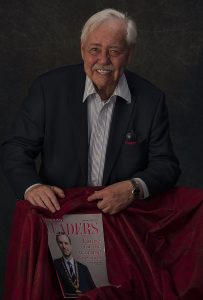 Dear readers, dear followers and supporters of the Czech and Slovak Leaders Magazine, dear business partners and friends,
Dear readers, dear followers and supporters of the Czech and Slovak Leaders Magazine, dear business partners and friends,
Since 2001 the Czech and Slovak Leaders Magazine has been bringing you the latest updates on the most current political, economic, cultural and social events in both the Czech Republic and Slovakia. We pride ourselves in being the last regularly printed magazine in English, presenting the Czech Republic and Slovakia to the world.
Thanks to all of you, 2019 was record-breaking for us in regards to readers’ interest. We reached 5 370 000 page views, 795 000 visitors, 60 000 newsletter subscribers – addressed weekly and 15 000 followers on social media.
In our response to the Covid-19 pandemic, we are strengthening our online coverage. Like many small and medium enterprises, media and cultural institutions, we are facing many challenges. Your support of our work will allow us to collaborate, put your business back and bring you the quality content that you expect. Our weekly newsletter reaches up to 60 000 subscribers, interested in your updates.
Please, contact us for special schemes regarding possibilities for online advertising, for covering cultural events during the second half of the year or subscriptions.
In English, please contact Benke Aikell.
In Czech, please contact Lenka Koenigsmark.
Let us know how we can support you in order to help your business. Keep in touch with us regarding innovative solutions, spreading good news and sharing best practices.
Wishing you and your loved ones, health and optimism.
Benke Aikell
Your Publisher
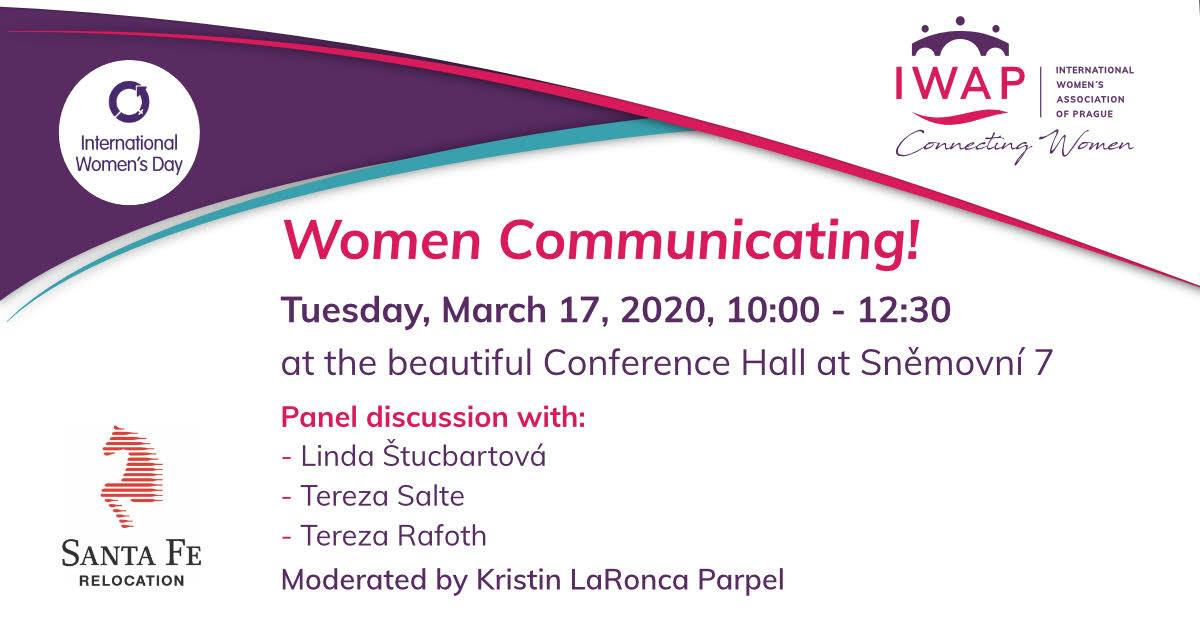
Současný a tehdejší ministr průmyslu diskutovali s exšéfem Škody Auto o ekonomické transformaci
První porevoluční ministr průmyslu, jeho současný protějšek v kabinetu a exšéf Škody Auto se ve čtvrtek na novoroční recepci Česko-německé obchodní a průmyslové komory ohlédli 30 let zpět do začátků ekonomické transformace. Jan Vrba, Karel Havlíček a Detlef Wittig se shodli, že privatizace zahraničním kapitálem přinesla úspěch. Kdyby nebylo kuponové privatizace, mohlo takových výstavních podniků jako Škoda být víc, řekl exministr Vrba v diskuzi stovce hostů z byznysu. Do budoucna by Česko mělo sázet na digitalizaci, klíčové technologie a také udržitelnost, ve které má podle řečníků rezervy.
Foto @ Jaromír Zubák
O ČNOPK:
ČNOPK je se svými 700 členy největší bilaterální hospodářskou komorou v ČR. Jejím posláním je podporovat česko-německý byznys. Sleduje trendy a těm s největším potenciálem pro česko-německou ekonomickou spolupráci se věnuje intenzivně.
ČNOPK je součástí celosvětové sítě německých bilaterálních zahraničních hospodářských komor a její mateřskou institucí je Německý sněm obchodních a průmyslových komor (DIHK).
Wishing You Responsible and Conscious Travels
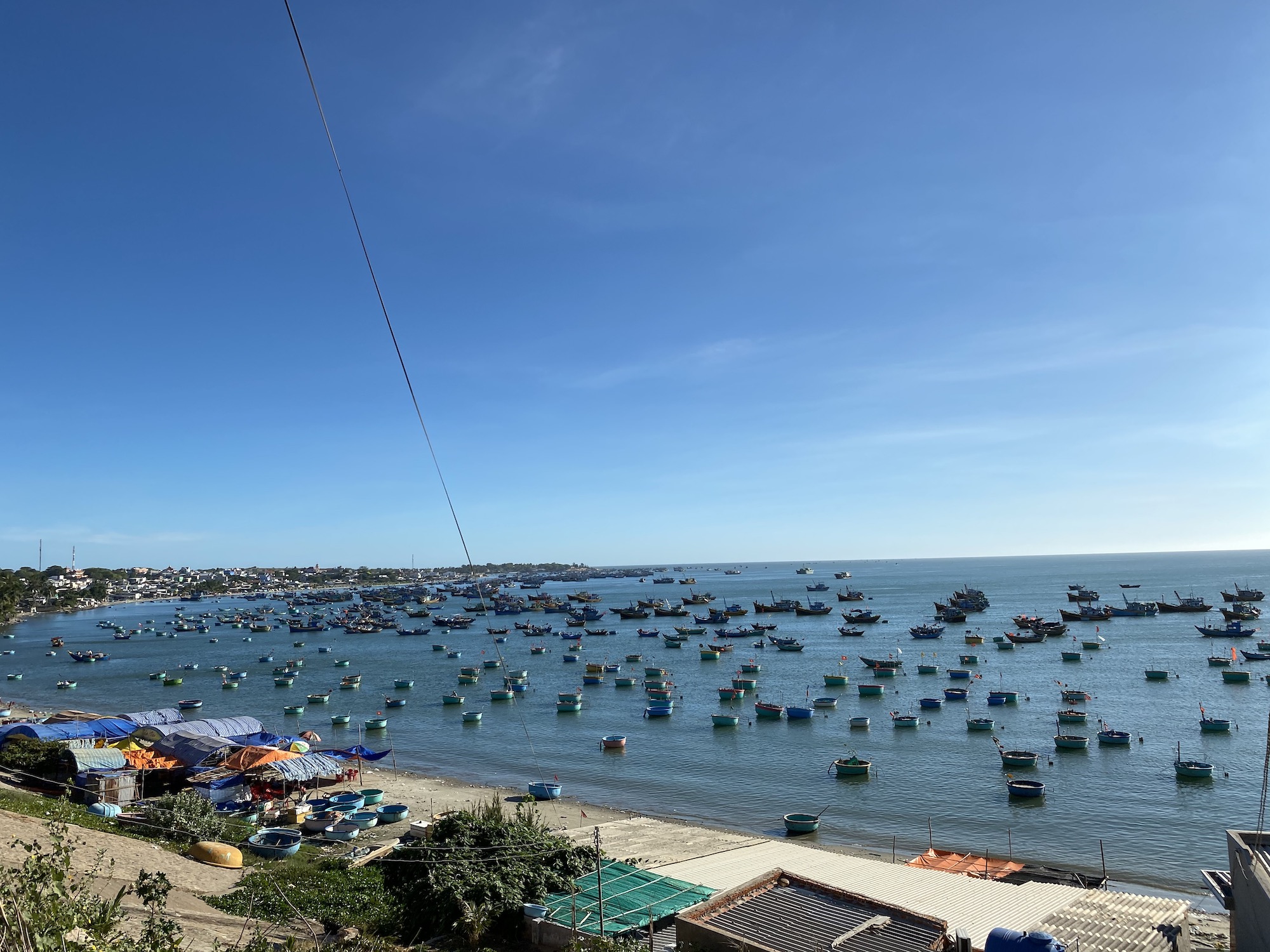
“Live with no excuses and travel with no regrets” said Oscar Wilde.
My last vacation took me and my family to Vietnam. Even before I realized that this was already the 50th country on my list to visit, I was pondering how to make our family travelling more responsible. On one hand, a few “social bubble Facebook friends” have already denounced travelling completely, justifying their decisions with both CO2 emissions and the notoriously well-known results that overtourism has brought to some of “the most attractive places,” such as Venice, Dubrovnik or Barcelona, or even the Czech town, a jewel of Southern Bohemia, Český Krumlov. On the other hand, travelling has been always a source of inspiration, joy and relaxation both for me and my family.
Still, remembering the humiliating way my parents had to ask for permission to travel during communism, or the thrill and consequent bullying that even crossing between the two neighboring friendly Czechoslovak-East German borders entailed, I regard the freedom to travel as one of the most important freedoms the Velvet Revolution brought. What is the appropriate way to enhance our travelling, to bring it to a higher level of awareness and consciousness? The fact our travels took place during the Chanukah festival of lights and subsequently Christmas time, holiday periods associated with introspection and good deeds, gave us all a special reason to be more reflective about both actions and impact.
I like to consider myself a pracademic, a practical academic, as I believe that there is nothing more useful than a good theory. I started with research. Being jet lagged after landing in Vietnam gave me a couple of early mornings to read articles about responsible, sustainable and ethical travelling for inspiration. Tourism is one of the world’s largest industries – making up about 10 percent of GDP, according to World Tourism Organization, a United Nations specialized agency, and it shows no signs of slowing down. Its “Global Code of Ethics for Tourism” (CGET) is a comprehensive set of principles designed to guide key-players in tourism development. Addressed to governments, the travel industry, communities and tourists alike, it aims to help maximize the sector’s benefits while minimizing its potentially negative impact on the environment, cultural heritage and societies across the globe.” Personally, as it is the case with most UN documents, it is far from amusing to read it (even on the subject as enlightening as travelling) and contains only little advice for individual travelers. The document was adopted in 1999. As the situation has not improved but rather deteriorated since, it only proves that all big ideas and schemes need to be accompanied by individual acts. One can find many rules on responsible travelling on the internet, ranging from six to 36. Some rules are just variations of others, some rules made sense, others did not, and some I found not to be applicable for Vietnam.
As to the emissions, often the media issues pull attention away from the real ones. What do you think is the number 1 cause of pollution of human-made emissions? Definitely not air transport. I was quite relieved to find out that the air transport accounts for 2.4% of CO2 emissions worldwide human-caused by source. The first being electricity and heating (41.5%), followed by industry (18.9%) and road transport (18.1%). As I do not take transatlantic flights every week, not even every month nor quarter, I can probably do much more for the planet by lowering the heating at home (this is still work in progress, after more than 30 degrees of temperature difference, a room temperature cooler than 22 degrees has become unbearable) or by taking public transport (already done, as it is quite easy to pride yourself as a public transportation user when you live in Prague, where public transportation is one of the cheapest and most efficient in the world). Instead, tourists should be far more concerned about the real pollution, in terms of not leaving garbage in nature (in fact anywhere), a sensible use of plastic bottles (when applicable) and energies (do not leave the lights and AC on, same as you would do at your home).
From words to acts, what rules did we apply in Vietnam and how did it enhance our vacation? As my children had a Chanukah school project to make a good deed during the eight-day festival, we aimed to fulfill everyday with at least one special act of kindness or awareness. Now, I am sharing with you our journey within a broader context of Eight Rules for Responsible Travelers.
Day 1
Support individuals (and make sure to take photos appropriately)
Money donation to a severely handicapped man was our first act of kindness. Even though most rules for tourists claim, “Say no to beggars”, I realized there must be some flexibility. We learned that the Vietnamese government, despite being a socialist one, does not provide enough support for handicapped people. While no money to begging children should be a rule, in this case buying food or clothes or giving money to those who have no means to provide for themselves seemed appropriate. No documenting picture was taken – responsible snapping, making sure you take pictures with people’s permission and you do not take pictures of embarrassing moments, should be a part of travelling etiquette.
Day 2
Support local sellers, performers and providers (and do not try to bargain all the time)
When strolling and taking pictures in the center of Saigon (Ho Chi Min City), we were approached by a coconut street seller. At first, he did not try to sell, but he warned us against using mobiles on the street and reminded us of keeping handbags closed and worn on the shoulder not facing the heavy scooter traffic that is known for grabbing mobiles or purses from wandering tourists. Then he offered his cold fresh coconuts. Of course, these were overprized to local standards, not to ours. As the seller offered to my son to carry the basket, allowed us to take a picture and then helped us with the directions, we actually did not mind paying the price, as we considered it more experience than commodity. (photo)
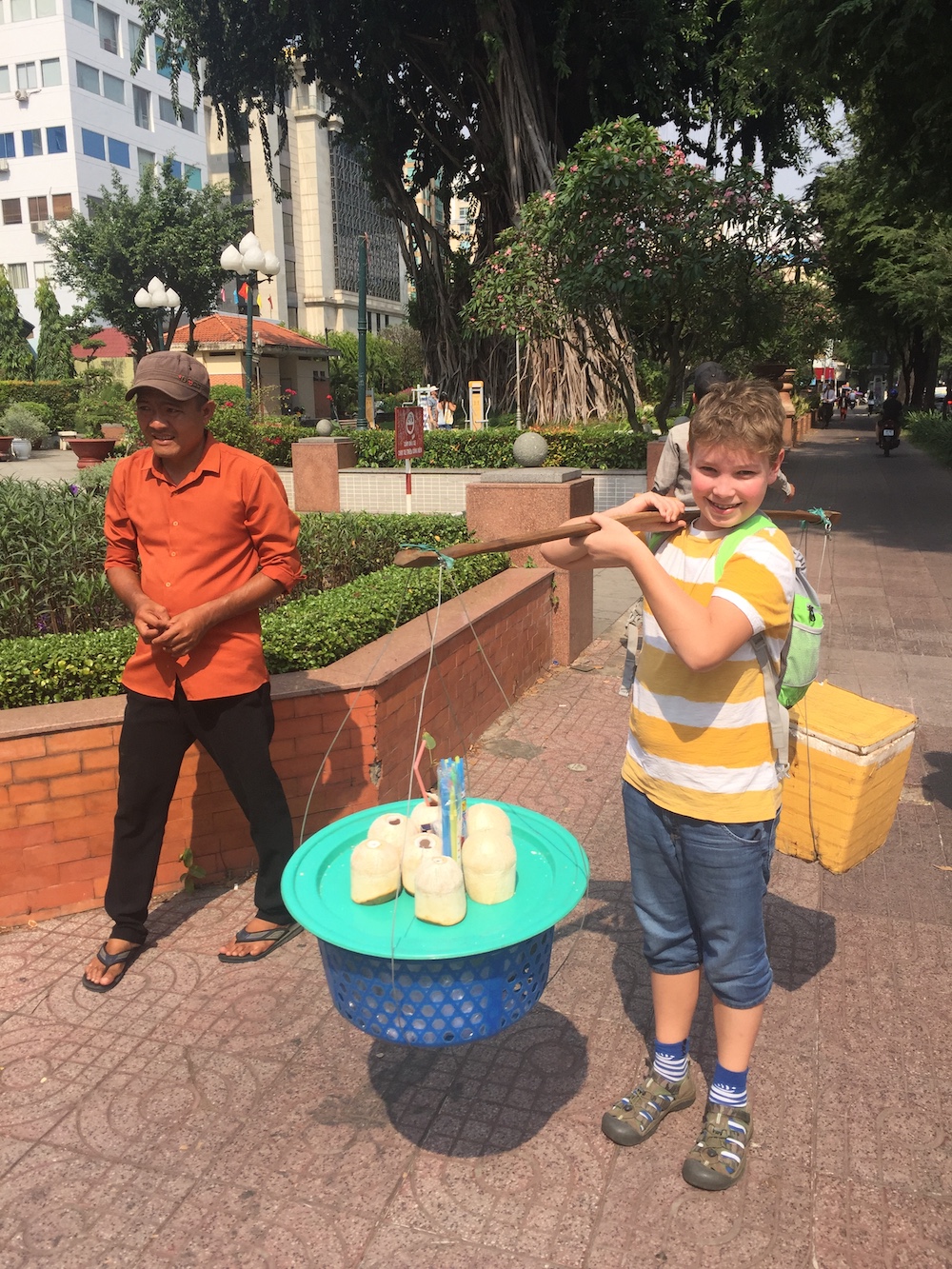
Day 3
Support women
Supporting women has been both my passion and profession for a long time. On the third day I realized what I have witnessed during my career. It is mostly men who are more proactive, either in visibility, or addressing strangers. When we finally met a woman fan seller, we made sure we got several sets to have enough presents. We bargained only a little and compensated by the number of fans bought. Bargaining is often the rule of the game but consider whether it is worth it. What can be the bargained true deal equaling to less than a cost of one coffee for us can in reality make the difference for locals distinguishing between “an ordinary day” and “a very successful day” for those who provide for families. It was December 24, Christmas Day, not a special day for most Vietnamese, but hopefully a better day for that particular woman seller and her family.
Day 4
Give local causes your voice
Thanks to my friend, who is currently serving as high diplomat in Ho Chi Min City, we got an opportunity to visit the Franciscan Monastery. The Monastery, founded in 1840, currently houses more than 200 nun sisters, including elderly ones who have been serving the congregation for their whole life. For the last ten years, the order was under the constant threat of demolition of their premises from foreign real estate developers in the area. In fact, many religious places have recently disappeared in Vietnam, paving the way for new skyscrapers with shopping malls, offices and luxury apartments. Thanks to the continuous support from Western embassies and other religious and non-governmental organizations, the decision to demolish the Monastery was reversed. The current developer came up with a plan to incorporate the Monastery grounds into the new project. Hopefully, he will keep the promise. If not, I believe that sufficient level of foreign awareness and pressure was reached to help the nuns generate support and attention in case the problems re-occur. Instead of preaching about responsible real-estate development (by the way, I cannot think of a place where this is happening), if possible, visit a specific venue that might profit from the visibility. Singing Christmas carols with nuns, having a guided tour at their premises, and receiving not only refreshment but also a gift made us feel welcome like the highest-level government delegation. In return, we left money for future development of the dormitories, as currently more than 60 nuns sleep together in one hall. However, it was not the money but our presence and interest that showed we care and made them care. To us, it was one of the most touching and meaningful moments of our visit. (photo)
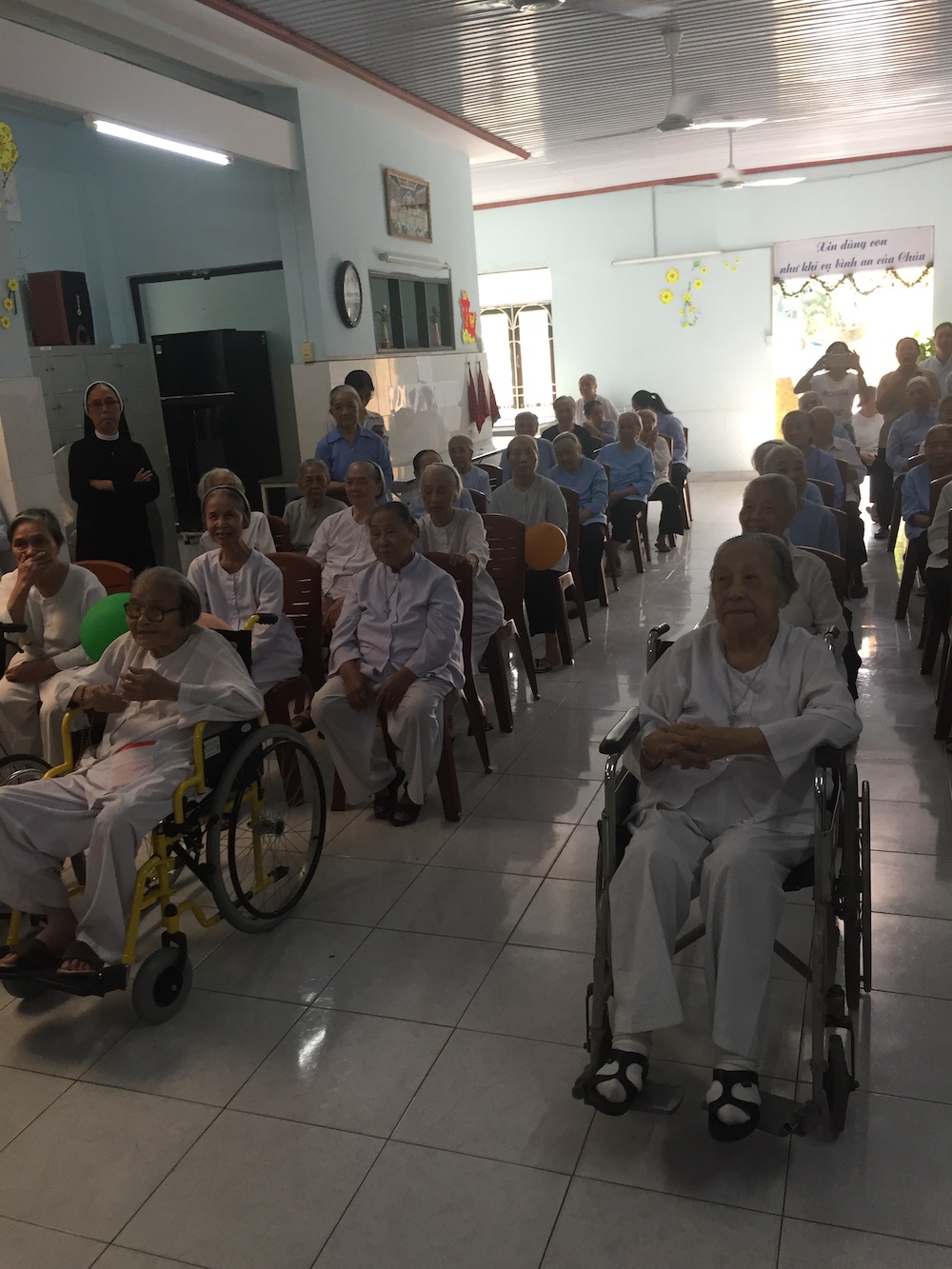
Day 5
Say no to animal abuse, avoid plastic, “extras” and “specials”
Travelling to Mekong delta brought us not only lush greenery, extraordinary tastes of local fruits and products, but also true sadness with regards to the pollution due to plastic trash that was simply everywhere. Without preaching, we simply tried to avoid gifts already packed in plastic being packed in another plastic bag. My children were sadly looking at the beautiful mangrove coves and canals affected and kept suggesting potential solutions to this problem. Remembering the Einstein quote, “we cannot solve problems with the same level of thinking that created them,” I challenged them to come up with innovative solutions but also re-consider our consumer way of living. While refilling bottles is not an easily applicable idea in Vietnam, for the rest of the trip, we tried to avoid unnecessary packaging or using one-night toiletries, slippers etc. As for the animal abuse, we chose a walk under the noon sun, instead of taking a horse ride, as the horses looked truly unfit and unkept. We challenge everyone to think twice when offered a donkey, a camel, or an elephant ride; a picture taken with a monkey, a tiger or a cobra; and resist also real bargains on snake or crocodile leather products. Apart from your bad karma or conscience, you might face an additional penalty upon arrival when returning back to the EU customs area. (photo)
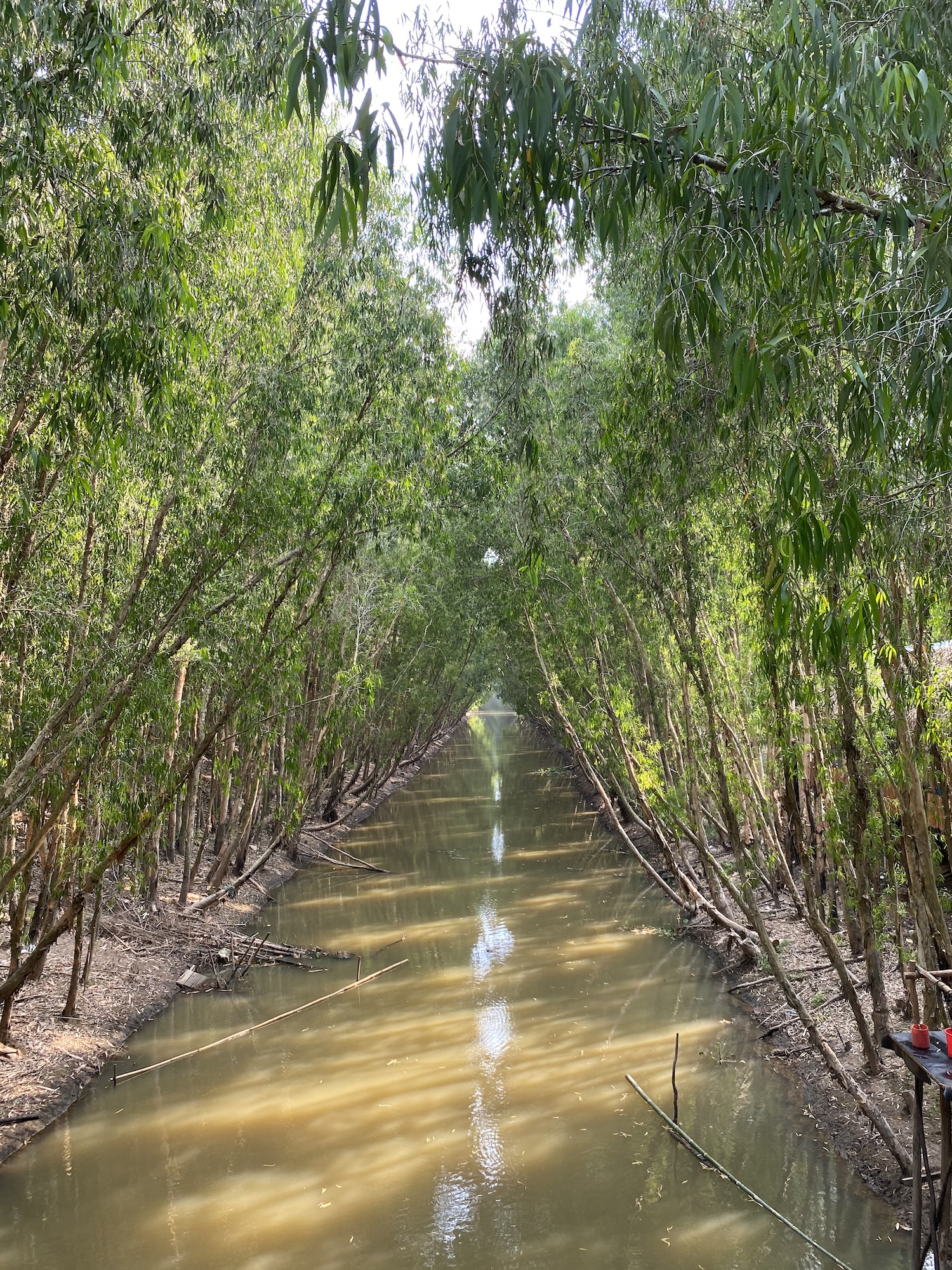
Day 6
Support ecotourism
Visiting the Tra Su bird sanctuary made us not only appreciate the rowboat rides through caujupt and gum trees, we enjoyed observing many kinds of birds, including white and ghost storks, seeing lotus flowers and also climbing the view tower to admire the vastness of the true Mekong delta wild nature (with no trash!). Contrasted to our visit of busy islands near My Tho and the floating markets at Chau Doc, this place was truly an oasis of peace. We were pleased to see that the government decided to spend more money to provide new tourist paths, so people can spend more time there and to experience a walk in the jungle forest. Also, it is an opportunity to attract the tour- ism to locations not yet discovered by the crowds.
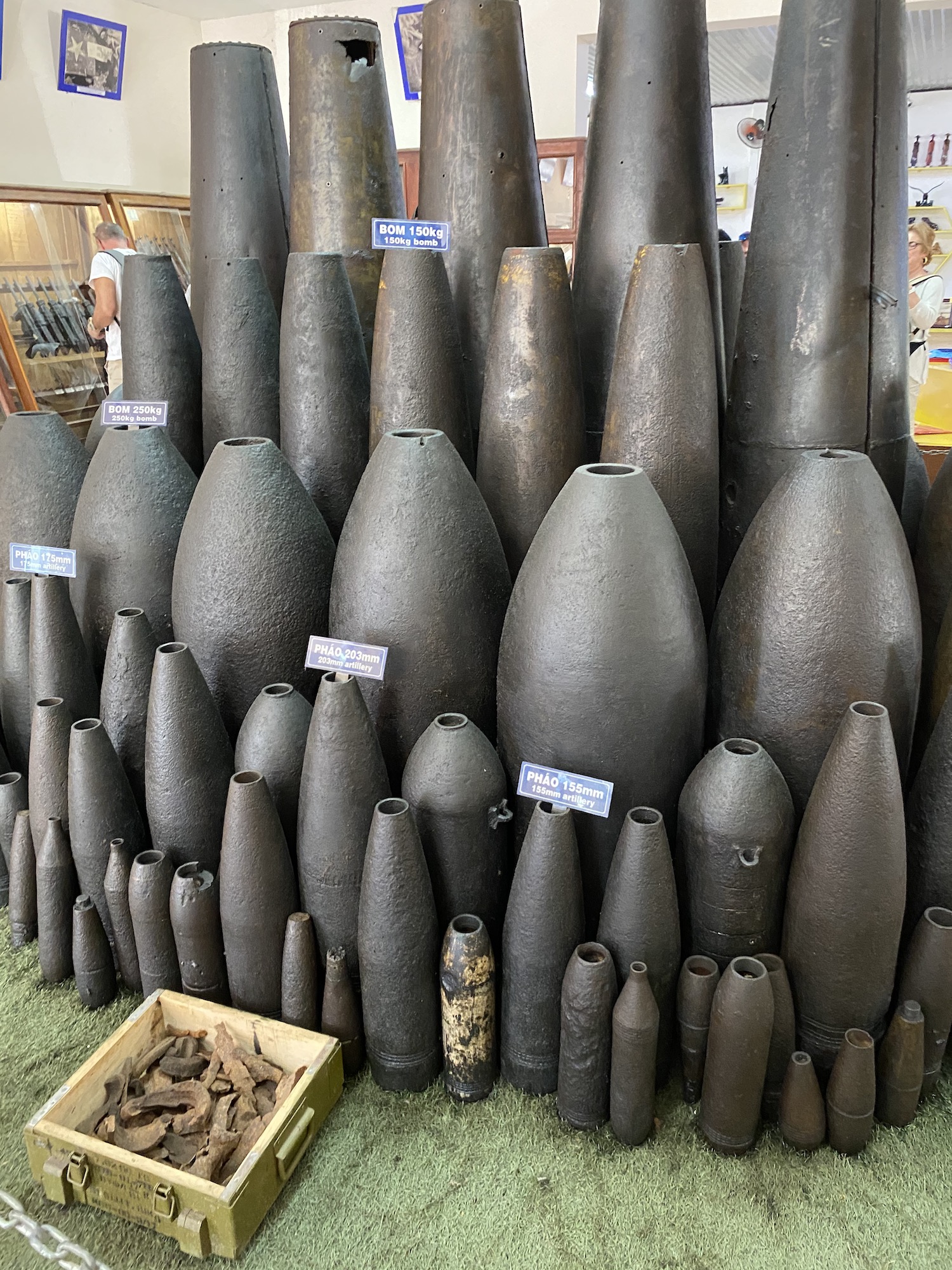
Day 7
Learn about history (even the difficult moments)
Who wants to voluntarily learn about war tragedies during a vacation? Yet, we felt that it is a must, not only in Vietnam. Even now the aftermath of the war can be seen. For more than three decades, four armies expended untold energy and resources bombarding wide areas of Vietnam. Based on American estimates, at the end of war, unexploded ordnance equaled to 150 000 tons. Since 1975, more than 40,000 Vietnamese have been killed or wounded by the leftover ordnance; in the 21st century the casualties still reach 400 people per year. We also learned about ecocide, caused by the notoriously infamous Agent Orange, loaded with dioxin that was used over 16% of South Vietnam to destroy the Viet Congs’ natural cover and leading to about four million of direct victims of dioxin poisoning. My children quickly learned how privileged they are to grow up in one of the safest places on the planet. And even though history is written by the winners, humanity always suffers a loss. Having a local guide, an experienced and well-educated university graduate, proved to be a key success to the visit of Cu Chi tunnels, that have become a synonym to the Viet Cong soldiers resistance and hiding spots. 250 kilometers of an underground connected tunnel system, often having 3 underground floors, enough to fit an adolescent (made for soldiers about 1,40 meters and about 40 kilograms) made us won- der about guerilla war, resilience but above all about the danger of ideology and the danger of hawkish solutions that supported war machinery on both sides.
(photo)
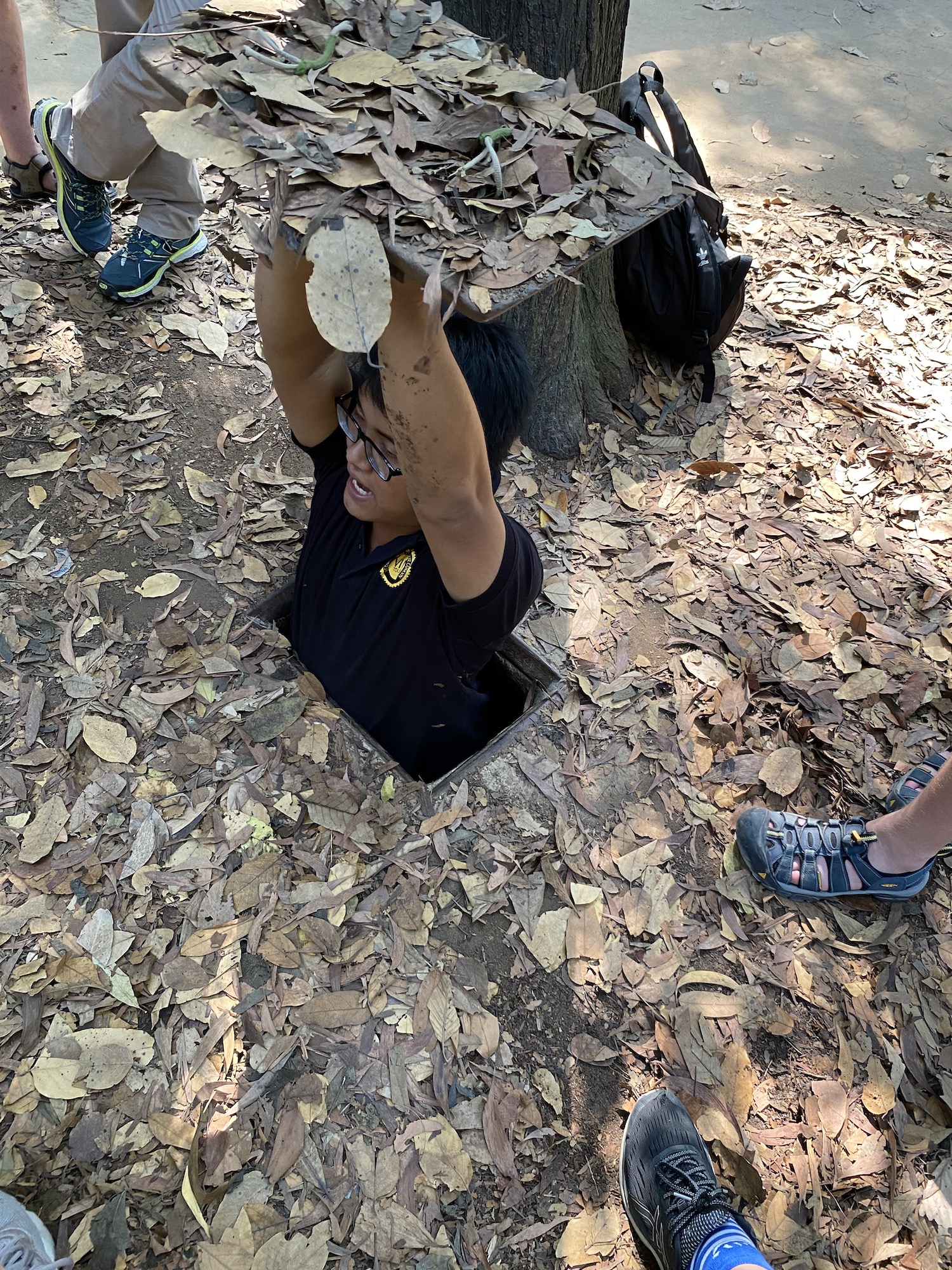
Day 8
Give feedback and set higher-standards
After intensive travelling, we decided to spend a couple of days at Mui Ne, a fishing village located on the east coast of Saigon. By now, you have already gotten an idea about the intensity of the program for two families travelling together, in total seven people, with slightly differing schedule and requests. The local travel agent did the maximum, after one recommended foreign travel agent refused to provide service from the beginning, citing overbooking and the high number of tourists coming for the end of year busy period. Only once we were not satisfied with the quality of the accommodation, only once we did not get the promised service (a nuisance if you get up at four for a sunrise tour and no pick-up arrives). Laughing about it now, one major disappointment came during my massage – the masseuse was talking on the phone most of the time. Typically, first world problems… however, your standard mind-set is that you actually do not want any problems during vacations, right? In contrast to other tourists whom we have seen yelling, rolling eyes at local staff and making various angry or frustrated gestures (by the way a total sign of loss of face which is a disgrace in Asian culture), we tried to give constructive feedback because we cared. We politely communicated our expectations and asked for a solution. And we got it. Being aware of Vietnam being a more and more attractive destination, we want other tourists to have an even better experience than we had. We will certainly return back to travel the North. And if you do not have Vietnam on your bucket list, make sure it is there. The country, the people, the nature, the food (and so on) is just amazing. If Asia is not your destination, please consider setting some personal rules to be a more mindful traveler. I am sure that it will be as positive to you as it was for me and my family. Have a wonderful (not only travels) in 2020!
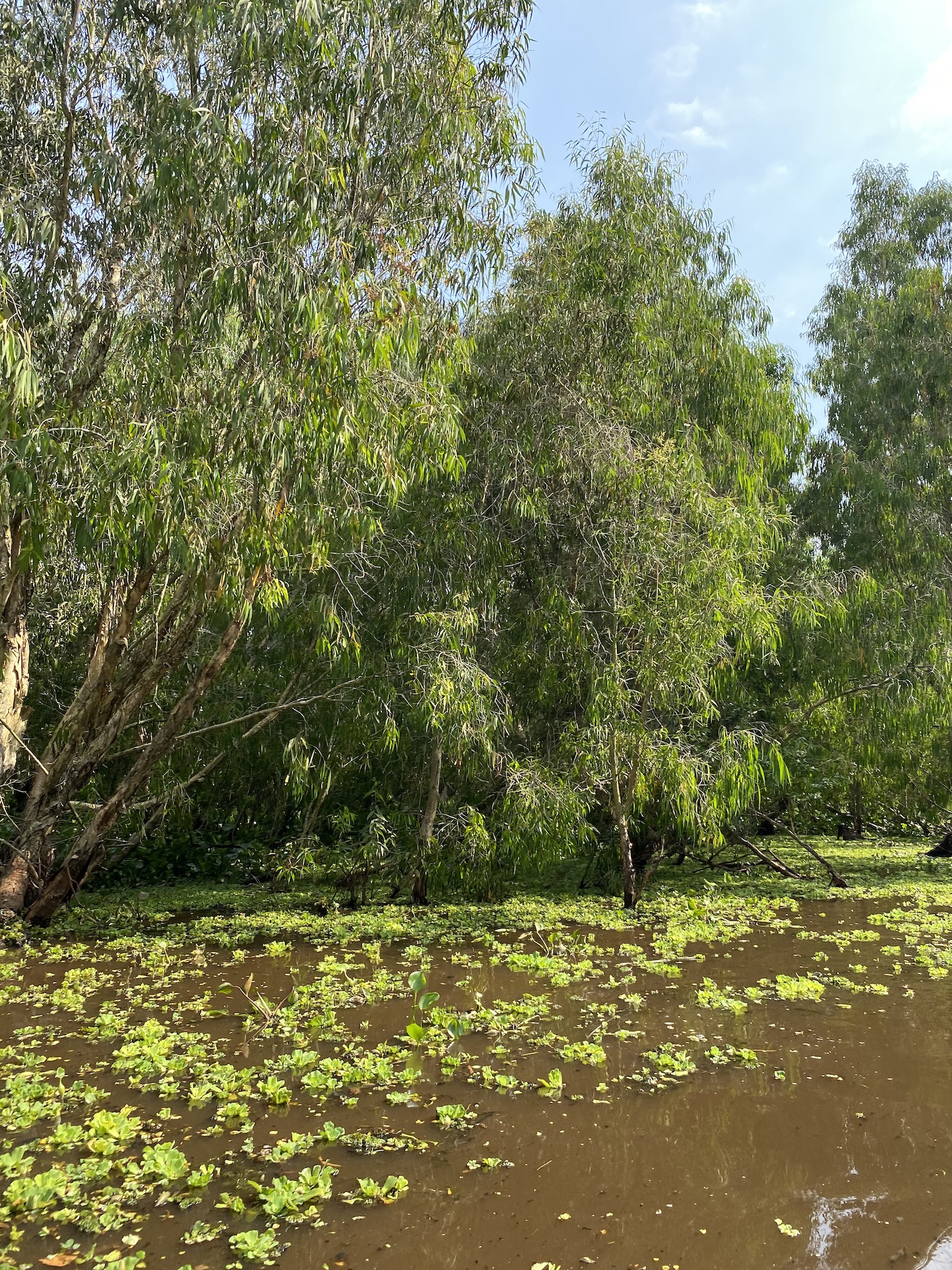
By Linda Štucbartová
Photos: Linda Štucbartová
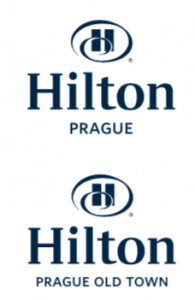
On December 18th 2019, Hilton Prague and Hilton Prague Old Town hosted the 23rd annual traditional Christmas Charity Concert featuring the Brno Philharmonic and clarinet soloist Anna Paulová, conducted by Debashish Chaudhuri.
The Christmas spirit was brought by the International Ladies Chamber Choir Viva Voce. The evening was presented by Michael Specking, General Manager of Hilton Prague together with Gabriela Lašková. Hilton Prague Executive Chef Franco Luise surprised the audience not only with a delicious Christmas dinner after the concert, but also with a duet performed together with Lenka Vitovská from the marketing department of Hilton Hotels in Prague.
A charity cheque in support of Teribear project amounting to CZK 50,000 was handed over to Terezie Sverdlinova, Director of Tereza Maxova Foundation by Michael Specking. Thanks to the partners who helped us make it happen again – AV Media, Leel Coils, Gesto Computers and BMS Creative.
The 3rd Future Port Prague, the largest visionary conference and festival in the heart of Europe, was all about moon-shots. There couldn’t be a better occasion than the 50th anniversary of Apollo 11 landing to remind ourselves about the immense power of human imagination, courage, and grit.
The Main Conference and also Festival Stage was an unending stream of eye-opening inspiration about the incredible opportunities future technologies offer. Over 60 brilliant speakers from around the world shared their personal stories and real-world case studies showing what’s possible already today and what comes tomorrow.
The main festival and conference stages were accompanied by three partner stages. The Experiment Stage by Czech Radio conducted live interviews with top speakers. The Novartis Stage focused on the future of education, work, and healthcare. And finally the Space Stage by CzechInvest and the Ministry of Transportation explored space as the new business frontier, featuring a dozen of highly successful yet little-known Czech companies working in numerous inter- national space missions and projects.
Top 5 Autumn Destinations
The mild sweet climate of fall in Greece is what makes short journeys to the sea and the mountains so tempting. The country’s landscape is in transition, from its summer to its autumn look. Read up on the renowned destinations that we gathered just for you and plan your trip to our Greece.
1. Chania

As summer in Crete lasts a bit more than anywhere else in Greece, you will enjoy the sea and the wonderful mainland throughout October on this island. An excellent place to choose for your upcoming autumn holiday is Chania.
Don’t miss out on:
- A stroll around the old Venetian Harbour of the town of Chania with its renowned fortress and lighthouse.
- A visit to the city’s market and tasting the drooling culinary delights of Crete.
- Canyoning at Samaria gorge and exploring an impressive array of flora and fauna.
- Participating in agritourism activities in the Vamos and Milia traditional villages.
- Basking in the sun on the golden exotic beaches.
2. Nafplio
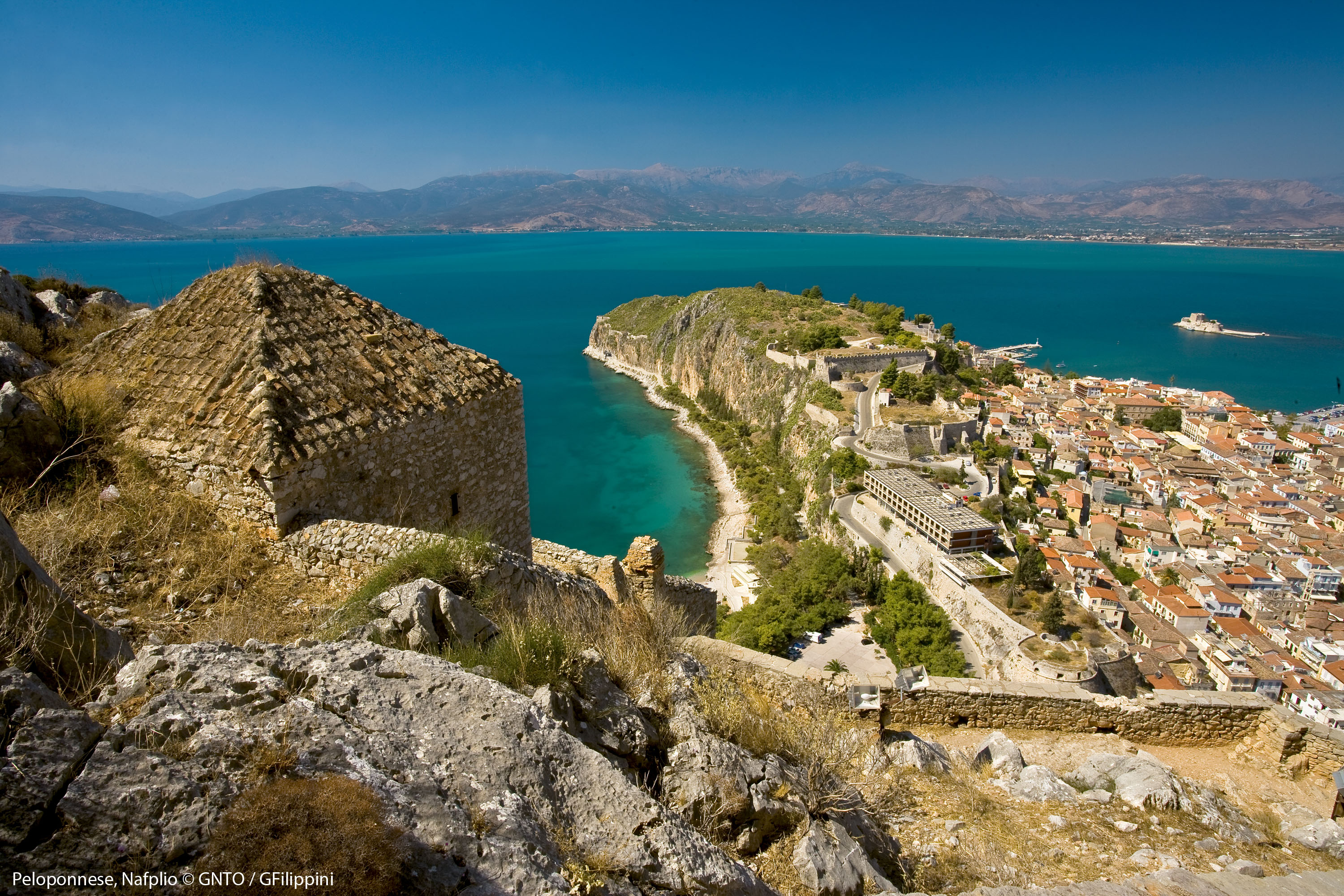
Nafplio, Greece’s first capital, is built in the innermost spot of the Argolic Gulf. The town’s romantic atmosphere and its rich history make it a perfect destination for families or couples alike.
Don’t miss out on:
-
A stroll along the narrow cobblestone alleys in Palia Poli (the Old Town) lined with neoclassical mansions.
-
A visit to Syntagma Square, which is surrounded by significant historic buildings.
-
Taking a picture of the landmark of Nafplion, Bourtzi. This small fortress is built on the islet of Agioi Theodoroi across the shores of Nafplio.
-
Climbing up the 999 steps to the Palamidi Castle, from where you can drink in the view
of Nafplio’s Old Town.
3. Ioannina
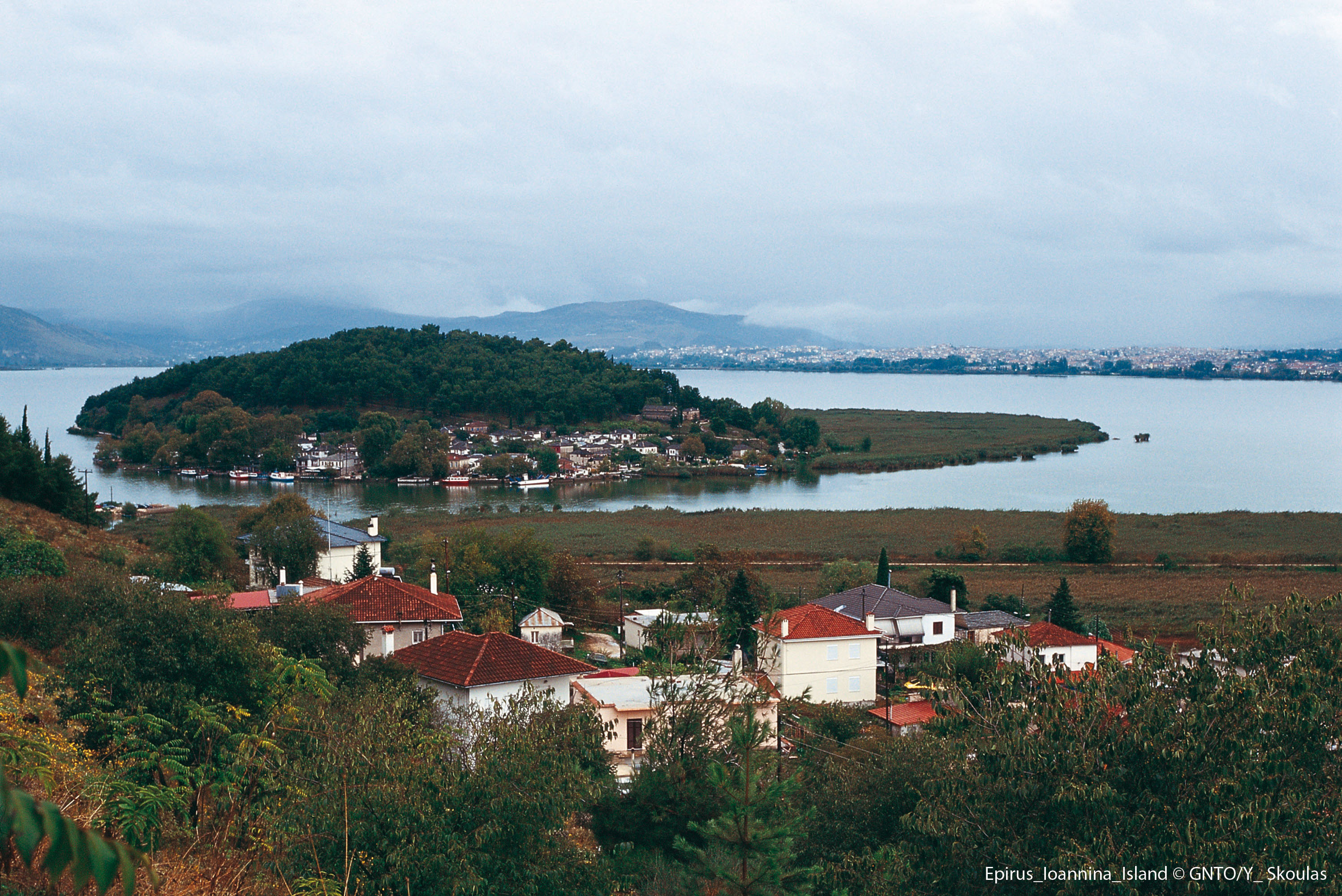
Ioannina City, Epirus’ capital, is adorned with Lake Pamvotida and its little islet. The town’s multicultural past is depicted in its historic centre.
Don’t miss out on:
- A walk by the shore of lake Pamvotida.
- The Castle Town of Ioannina, which is still lived-in in our days.
- The old town, which is located near the Castle Towns. Fortification, where you’ll come across the picturesque neighbourhoods of Siarava, Kourmanio, and Gyali Kafene.
- The unique architecture of Ioannina and the shopping arcades.
- A visit to the Archaeological Museum, the Wax Museum and the Municipal Art Gallery.
- A tour by the aesthetic forest on the hill top that looks over the town of Ioannina.
- A stop by the Perama Cave, dating back 1.5 million years.
- Buying some of the local traditionally designed jewelry.
4. Plastira Lake
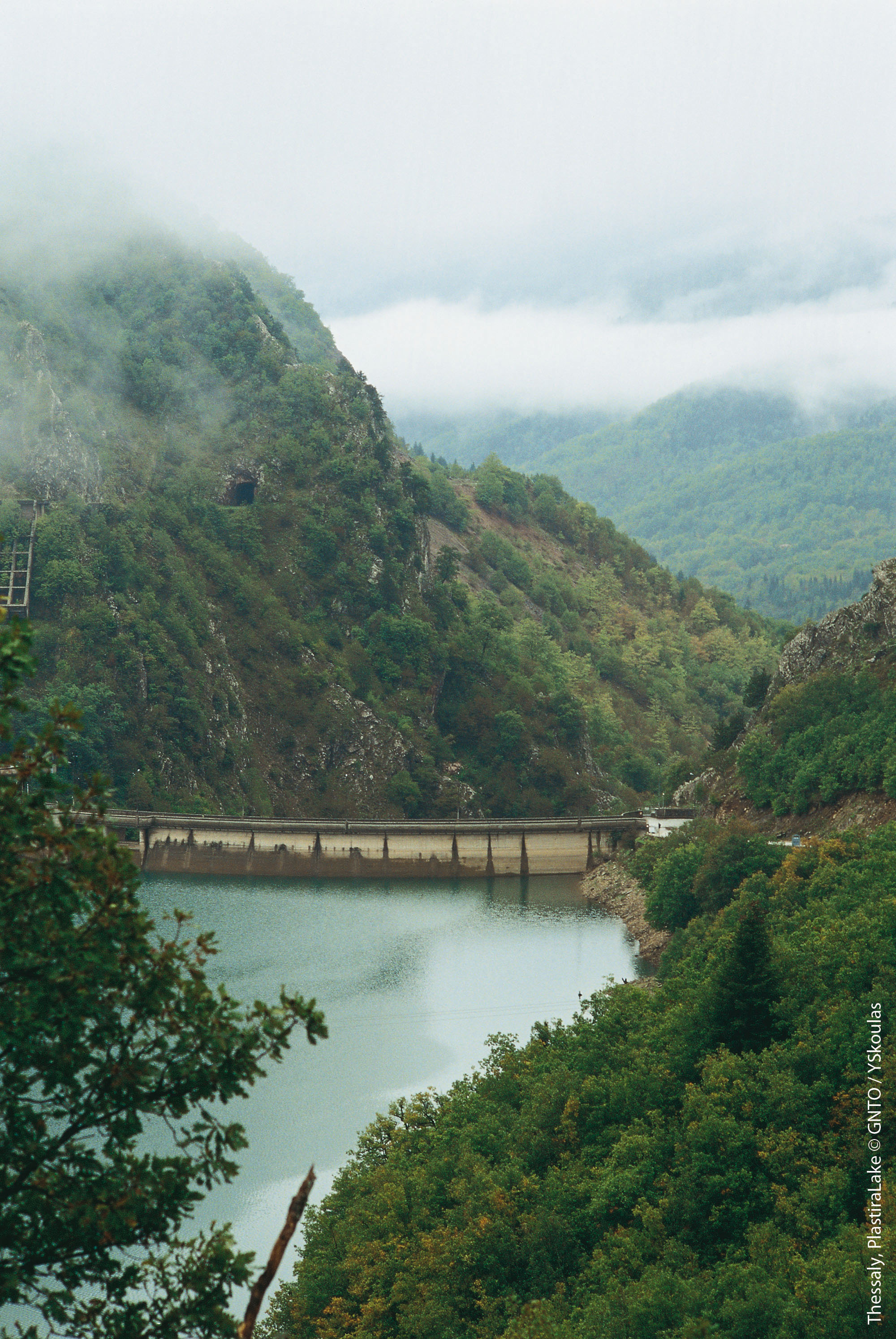
This is one of the biggest artificial lakes in Greece. Green mountain peaks bestow even greater beauty on the region and fast-flowing streams embellish the breathtaking scenery. Every season here has its own beauty. A handful of charming villages are located along the lakeshore or on the mountainous slopes which offer an idyllic view of the lake!
Don’t miss out on:
- Walks or bike and horseback rides along the lakeshore.
- Renting out a canoe or pedal-boat and enjoying the lake ride.
- Swimming and enjoying the various amenities offered on the beaches of Pezoula and Lamperou.
- Drifting through the air by paragliding or hang gliding at the air sport facilities offered at the mountain tops of Templa or Agonas (Neraida Village) and Koufolongos (Krioneri Village).
- Testing your skills in archery at the organized venues found at the villages of Rousso, Sekliza and Neraida.
- Rejuvenating walks in the mountains of Agrafa through an extensive network of shaded forest trails. Choose one of the eco-trails in the Educational Forest of Belokomitis and surrender to the magic of nature.
- Experiencing climbing at Karamanoli near Neraida village (here one can find a miniscule ski centre) in addition to the mountain shelter Elatakakos at the Belokomitis forest.
5. Monemvasia
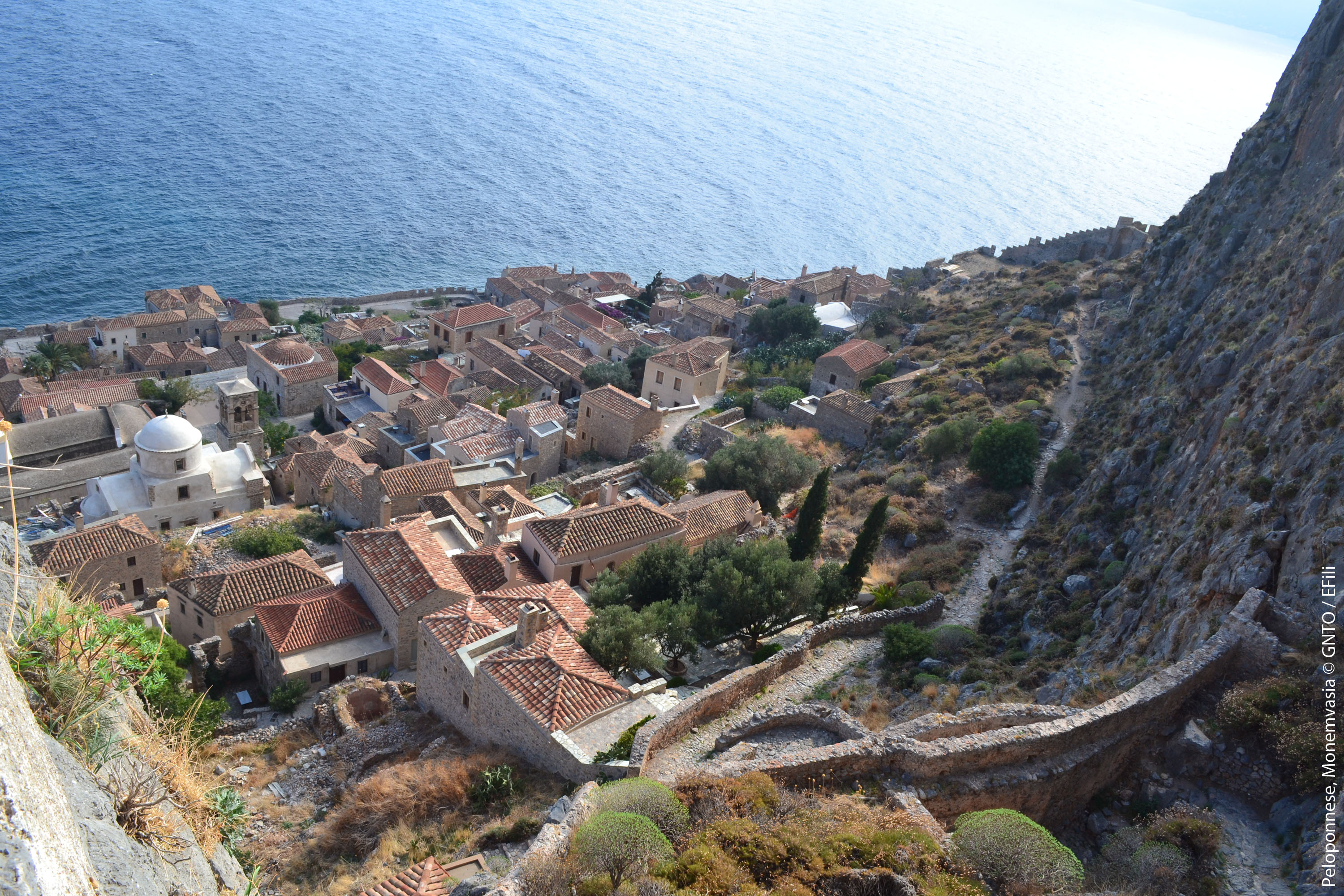
The walls of the medieval fortress town, Monemvasia, is a dream destination if you are a romantic at heart. Take your other half by the hand and start your walk by crossing the bridge, through the stone walls and the fortresses gate. Walk back into time as this destination exudes an atmosphere of a bygone era.
Don’t miss out on:
- A stroll around the narrow, winding streets and listen to the story of a town that once “hosted” the emperors of Byzantium!
- A tour of numerous stone mansions, medieval towers, historical buildings and old churches.
- A visit to the home of one of the most widely acclaimed Greek poets of the 20th century, Yiannis Ritsos.
- A walk up “Goula”, the upper castle, to enjoy the panoramic view of the city.
- A stop by the imposing Cathedral of Agia Sophia, which hangs between the rocks and the steep cliffs.
Can you introduce your initiative Global Slovakia?
I am the founder of Global Slovakia (www.globalslovakia.com). We are not-for-profit organization that aims to ‘share Slovakia with the world’. What does that mean? It means we want to codify, celebrate and transmit Slovak heritage and culture to foreign communities. At this stage we are doing it primarily through our books, and of course our workshops.
This year we have already travelled quite a bit, we have just returned from a series of presentations in Romania. Where there was once a very large Slovak community (dating back to the reign of Empress Maria Theresa), and this community is still active today. Since 2018 we have begun to tour the world with our books and have held presentations, from Washington DC to Moscow, from New York City to London, as well as in Bratislava and Prague.
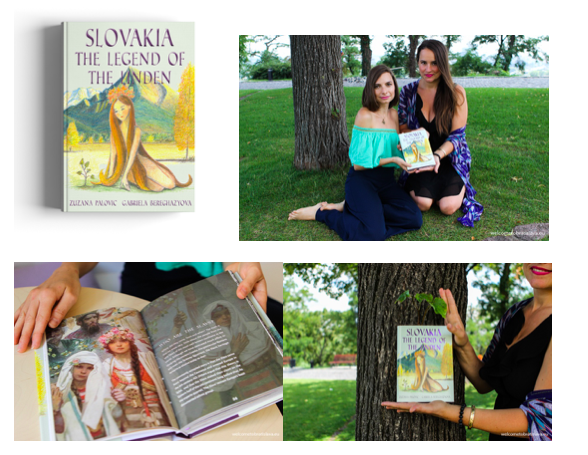
Our first book, ‘Slovakia: The Legend of the Linden’ (www.legendofthelinden.com) co-authored with Dr Gabriela Bereghazyova, is what we refer to as Slovakia’s first national narrative. It’s a complication of 200+ pages of evocative text, illustrations and photography that emotional tells Slovakia’s journey through history. From 500 years before Christ to present-day, ‘The Legend of the Linden’ is a tale told through symbolism, that of the Linden tree (Lipa) and its heart shaped leaf, which we refer to as the ‘code’ of our region.
Indeed, the Lipa code is something that unites Czechia and Slovakia. It is a cultural totem that dates back to Great Moravia, to a time when the ancient Slavs revered divinity in nature. The Lipa was embodied by the Goddess Lada, one of the most important deities of the Slavic pantheon of gods. And it is to this day, that the Linden is still referred to as the sacred tree of the Slavs.
In more modern history, the Lipa code was resurrected some 1,000 years later, by President Masaryk with the first establishment of Czechoslovakia. Papa Masaryk was a very clever man, who understood that the newly erected country, needed to legitimate itself. And how do countries achieve that? Through economic prowess, but also through mythology and symbolism. That is how the Lipa entered our national consciousness. Today, it is in Slovak passports and Obcianske Preukazy, but also on our state institutions, ministries, universities, national monuments and the list goes on.
The second book, ‘The Great Return’ is very different, but also complementary with our first. It offers readers a fresh perspective on Slovakia in the 21st century and looks at how our country is transforming, thanks to Slovakia’s lost daughters and sons coming home.
This is very significant since Slovakia suffers, and has historically suffered, from brain drain. For example, at the turn of the 19th/20th century, Slovaks were the second largest emigrating nation, after Ireland. Today, 10% of our active labor force resides abroad, and we have the largest student diaspora (per capita) in the European Union. Many of these students study in the Czech Republic of course.
I wanted to create a project that flips the common narrative. Instead of focusing on brain-drain, I decided to explore brain-gain. From time-travelers to cultural shifters, ‘The Great Return’ documents what happens when Slovakia’s young human capital: leaves, learns and returns to shift the culture of the country for better. The 300-page publication pairs cutting edge research, with personal interviews, and 58 portrait photographs that bring the journey of personal but also national transformation to life.
The featured respondents include young people from various industries and sectors, including start-ups, science, art and civil society. The stories of the young returnees are over-layed with more mature perspectives, from business, society and government. Some big names, like the CEO fo the ESET or the Minister of Foreign Affairs add their commentary on the phenomenon. As did Slovak national treasure and internationally acclaimed filmmaker Juraj Jakubisko, who said “home is where your bed is, or symbolically speaking, it is the soil you were born into”.
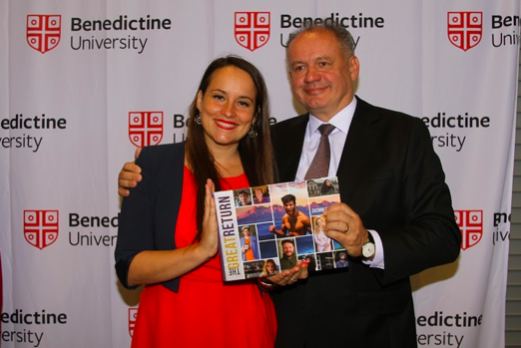
With former President Andrej Kiska in Chicago, Illinois at Benedictine University where Zuzana Palovic conducted a presentation on ‘The Great Return’ during an official Slovak Delegation to the USA in Autumn 2018
Last autumn, I had the great pleasure and privilege to travel with our former President, as part of the Slovak Delegation, to the United States. On the eve of the 100th anniversary of the establishment of Czechoslovakia, I presented ‘The Great Return’ before President Kiska and an esteemed audience in Chicago. This was an important moment in my career and deeply significant for me personally, because it was in honor of Tomas Garrigue Masaryk. A man I refer to as my intellection patron, and a man who helped carve a new country into the heart of Europe, also thanks to Chicago’s large Czech and Slovak community, that funded and supported him.
Your personal journey is quite remarkable. You were born in Czechoslovakia and then your family fled to Canada when you were very young. Do you have any memories and impressions (perhaps thanks to your parents) about the life behind the Iron Curtain?
I was five years old when my parents illegally crossed the Iron Curtain in the hopes of finding a better life in the free West. Before we were able to emigrate to Canada, we spent about 9 months living in and out of the various refugee camps in Vienna. Although I was very young, I remember this period very vividly. All of a sudden, my life was flipped upside down.
My family and I went through a period of great instability and this deep dive into the unknown continued when we moved across the Ocean. For example, during our time in Austria, I began to attend school, learn German and assimilate into a new culture. When we moved yet again, my little self-had a hard time adapting to yet another society and language — this time English, which is why I stopped for months altogether.
As per my impressions of life in communist Czechoslovakia, well, like most children I only have positive things to say of my early childhood. I remember being surrounded by lots of family and loved ones; aunts, uncles, cousins but also grandparents and great grandparents. We lost this social network when we crossed the ocean into the New World.
But, I do remember one very radical difference, the teachers and care takers in my kindergarten (in Austria) and primary school (in Canada) were a lot kinder. They spoke to us gently and at least in Canada, they encouraged me to express myself. This was very different from my daycare experience in Bratislava. I remember all the children, including myself, being scared of the caretakers. They were viewed as persons of authority and there was this huge power gap between us and them. We were just children – and expected to follow the orders the adults gave us.
Having experience living in 9 countries and across 4 continents, you decided to return and empower your country. Many people who return after living abroad for a long time claim that you must be prepared not only for living in a new culture, but also for return to your homeland if you were abroad for more than a couple years in a row. What were your expectations and what was the reality?
I may be young, but I have led a very exciting life, which includes living, studying and working in now -10 countries across 4 continents, including South Korea and Argentina. I most recently lived in the Czech Republic, more specifically in Prague, and found the experience incredibly rewarding. It gave me many more insights into the Czech experience and mindset, and also made me nostalgic for Czechoslovakia.
My far-reaching and perhaps excessive travels, are a reflection of a freedom once denied to my parents. I believe we are witnesses to a remarkable junction in history, my generation is the first generation that has the freedom to move. My own parents grew up behind the Iron Curtain, as did my grandparents, and their parents. The end of the Cold War, brought about a radical change in terms of access to new freedoms, and our accession into the European Union 15 years later only opened the access further.
I travel because I can – and my parents couldn’t. I travel because I want to discover the world, because through discovering the ‘other’ I actually learn about my ‘self’. It was my internationally exposure that catalyzed my hunger to re-connect with my Slovak roots. This discovery has spilled over into my professionally life, it is why I founded Global Slovakia (www.globalslovakia.com) and it is a knowledge we directly rely in our books.
Of course, return is far from easy, and I talk a lot about the obstacles one might encounter, in my second book (www.thegreatreturn.eu). If I were to compare the ‘departure and return’ cycle I would say that ‘return’ is much more difficult. When we are abroad, we are in the learning and adapting phase; living in another culture is exciting, and being accepted by another culture is rewarding. But, return home means the ‘integration’ of the knowledge.
There comes a time, when we must decide where we want to lay our roots down and with whom we want to share our knowledge, skills and energy. I choose to come back to Slovakia, because I feel inspired to give back, I also see a lot of gaps. But, integrating what I learned ‘out there’ with the realty back home, is complex and difficult. Ideas cannot be simply copy and pasted, nor should they.
Lastly, and I argue this point in the book, return in not mandatory. I believe, that you can also help your country from abroad, sometimes maybe even more effectively. Because what Slovakia is lacking, and this is also due to its experience of 41 years behind the Iron Curtain, are global perspectives. Slovaks that live abroad are part of the global networks that Slovakia needs to scale-up, also economically speaking.
In the beginning of the 21st century, many people decided to move from the East to the West. You published the book “The Great Return” that maps the fate of nearly five dozen Slovaks who left, got experience abroad and then returned back to Slovakia. Is there any common theme to all stories?
Since the turn of the century, over 100 million Eastern Europeans have gained ‘freedom of movement’, and many youth have taken advantage of this privilege. In the first years of the EU-8 accession (when 8 former Eastern Bloc countries re-joined Europe), over 1 million migrants entered the UK alone. The press referred to it as ‘a continent moving West’ and this raised the alarm.
But, 15 years later, the East-West migration has settled. For example, migration patterns are a lot more circular and cyclical, then unidirectional, in nature. They say that half of Polish migrants, are back in Poland at any given time. This is also possible thanks to charter airlines and their cheap plane tickets. When these young Central and Eastern Europeans are not working or studying abroad, they are back in their home countries enjoying their holidays and spending their money.
But one of the recurring returnees themes, was that those that came back, did so because they felt inspired to give back to their community. Of course, these were ambitious people, that were alos interested in their professional growth. But they wanted to pair their career development with national development. Abroad, they learned something new and of this ‘new information’ shifted their paradigm vis-a-vis how they saw their home country — and their role in it.
Overall, returnees have a higher level of self-confidence. And this more empowered perspective is critical, because it is something that is still missing in Slovakia. Confidence, communication, critical thinking and dare I say – creativity is not something that is prioritized by the Slovak education system. Memorization and repetition is the modus-operandi. Rather, than encouraging students to think for themselves. and then express those opinions before their teacher and classmates.
Slovakia has elected a new president, who has become very popular in the region. Mrs. Čaputová has been on several occasions mentioned as a president of both Czechs and Slovak. Do you see change in a way Slovaks have been presenting themselves abroad?
Madam President is a huge inspiration for young people in Slovakia. Her rise to success is remarkable, because she truly started as an unknown candidate with very little support. I remember when I first learned that she was running, I was pleasantly surprised to discover a female candidate, but was doubtful that she would make it.
I followed her campaign attentively and she was nothing short of a champion. Obstacle after obstacle she continued to preserve. No matter the challenge, or the near defeat, she continued to believe in herself. And maybe there were moments, where that too waned, but the important thing is, she did not give up.
Of course the rest is history, and her accession into the Presidency sent a strong message to many Slovaks. To dare to have set a vision for themselves and to have the courage to follow-it, despite the challenges and hardships that await.
I have to say I am proud to have her as my president. As a former environmental rights lawyer, she brings a sense of justice to the role, and I look forward to all that she will accomplish. As per her representing Slovakia abroad, she is absolutely killing it!
I love seeing photos of her foreign visits, because that is where you can see her thriving the most. Her story, her looks and her demeanor all add to the charming effect she has on the international community. And this attention can only benefit Slovakia. Our country needs more visibility and she is definitely catalyzing interest.
We are going to celebrate 30 years since the Velvet Revolution and you are going to publish another book. Czechoslovakia: Behind the Iron Curtain. What can the readers look for?
‘Czechoslovakia: Behind the Iron Curtain’ (www.communistczechoslovakia.com) is our third book. Dr Gabriela Bereghazyova and I take readers on an emotional journey deep into what life was like during communism. The project exposes how the greatest experiment of the 20th century inspired, persecuted and almost destroyed Czechoslovakia. The visually stimulating, action packed book comes to live through 30 unique illustrations and dozens of photographs, captured by some of the best photographers of the era, including Ladislav Bielik, Dana Kyndrova, Juraj Bartos and Jan Lorincz.
At the moment, we are launching a crowdfunding campaign for it and appreciate everyone’s contribution. This project is incredibly important because – ultimately – it is a celebration of freedom. A freedom that many of us take for granted today, especially the youth. This books is to serve as a documentation and reminder of what life was like in unfreedom.
Kick starter: https://www.kickstarter.com/projects/globalslovakia/czechoslovakia-behind-the-iron-curtain?ref=project_build
Of course, we also document the many good aspects of the ideology and what it brought to our region, including free education and health care. Slovakia benefited greatly under communism, our country was very rapidly modernized thanks to it. But, the fact that there was no freedom of information, no freedom of gathering, no freedom of religion or no freedom of movement cannot be denied. The book also documents how these four decades still affect Slovak mindsets and skillsets today.
https://communistczechoslovakia.com
You claim that Our future is greater than our past. What are your next personal plans and aspirations?
From a young age, I came into awareness that our time on earth is short. There is only so much one can do in a lifetime. This is why Gabriela (co-director of Global Slovakia) and I are so keen to continue to move forward. Our aspiration is to codify and transmit as much of the Slovak story as we possibly can. We already have a fourth project in the works, this is a children’s book that documents the large migration waves of Slovaks to America, from various eras, including the late 1800s, the communist era and the 21st century.
We also acknowledge the limitations of print, and of books in general. People don’t read so much anymore and the attention span of youth is even smaller. As storytellers we want to take our work to the next level, which is why we want to make videos. In the near future we will be putting together a pilot episode and pitching it to the major networks. So yes, our ambitious are huge, but we also believe we have the skills and drive to make them happen.
Thank you so much for this interview, speaking to Czech and Slovak Leaders is an incredible privilege and I am most grateful for this opportunity.
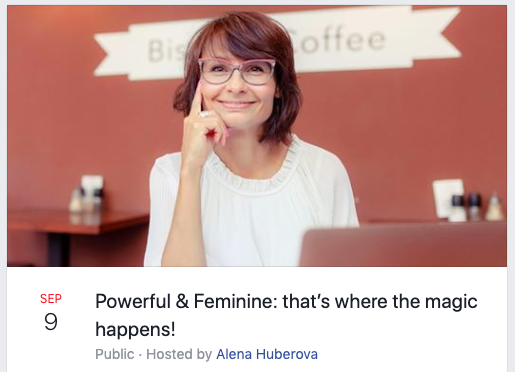
Our contributor Alena Huberova has a very interesting event that you don’t want to miss happening tonight. See the details here.
“Working with female managers, I realised that many of them consciously suppress some of their innate, unique traits and qualities at the workplace for fear of being seen as weak. Especially those qualities that have been traditionally associated with “being a woman”. If you do the same sometime, then there’s something that you should know. Join our webinar TODAY at 18.30 CET. See you there!”

Embassy of India in Prague in cooperation with the Ministry of the Environment and the Government of the Czech Republic, observed the World Environment Day on 5 June, 2019, dedicated to 150th Birth Anniversary of Mahatma Gandhi.
Mahatma Gandhi was not only political leader, but his teaching, philosophy and attitude to nature have contributed also to modern environmentalism. In view of this, the World Environment Day (WED) was an ideal opportunity for celebration of the 150th Birth Anniversary of Mahatma Gandhi in India and all over the world and thus help spread Mahatma’s philosophy of non-violence and respect for nature.
As tribute to Mahatma Gandhi and nature, 150 trees will be planted, which will be gifted by the Ministry of the Environment of the Czech Republic. The first symbolic tree was planted on 5 June in the garden of the Embassy of India in Prague. On this occasion, the Deputy Minister in the Czech Ministry of Environment gave a presentation of the places, where remaining 149 trees will be planted during autumn of 2019.
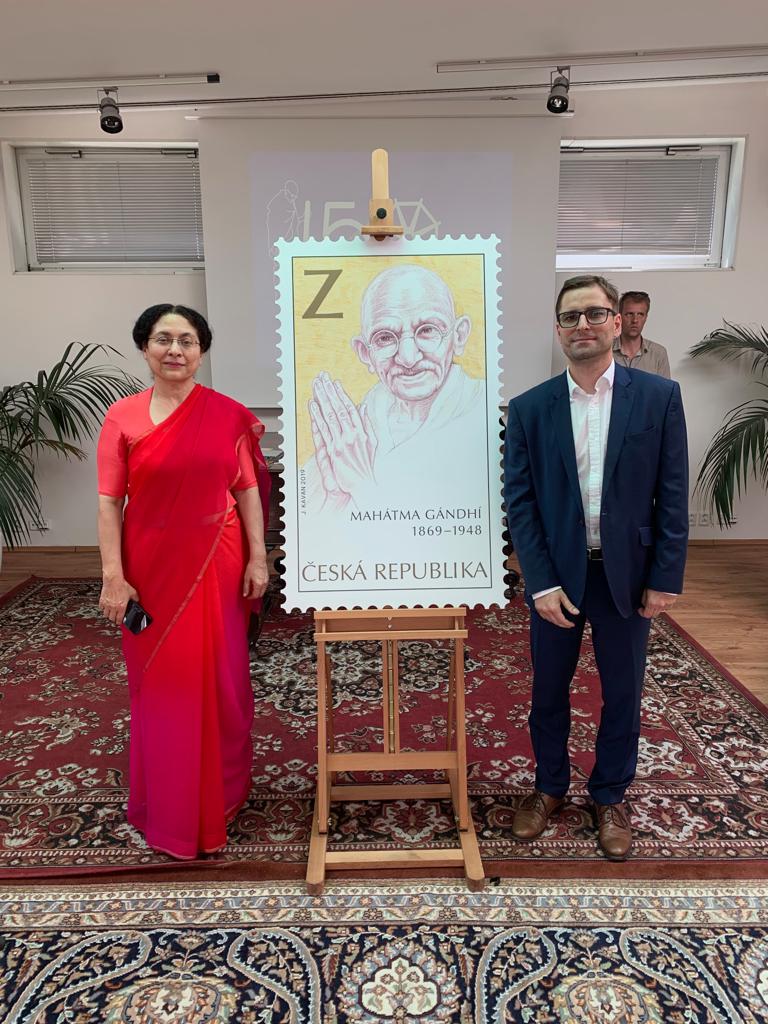
The Czech Republic is partnering with the Embassy of India in commemorating the 150th Birth Anniversary of Mahatma Gandhi, including through release of Bapu@150 commemorative stamp by Czech Post on June 26, 2019.
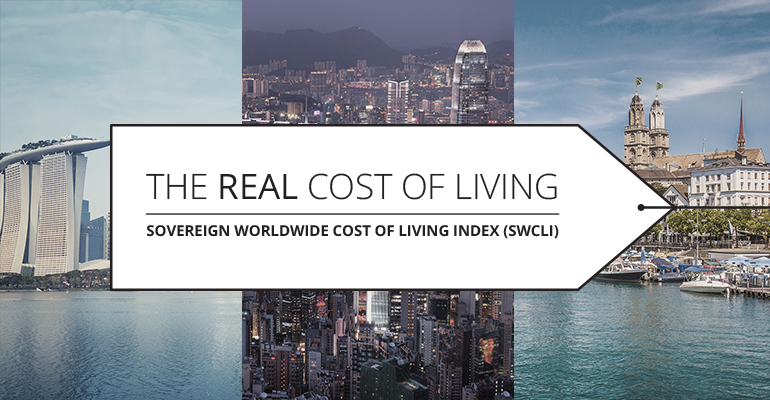
PARIS vs HK and SG? Which is REALLY the world’s most expensive city to live in.
The Economist Intelligence Unit (EIU) publishes a bi-annual survey of the cost of living in the world’s major cities, which compares the prices of 160 goods and services in 133 cities around the world.
In March, the EIU reported that, for the first time in the survey’s history, three cities shared the title of the world’s most expensive city: Singapore, Hong Kong and Paris.
However as those actually living in, as opposed to visiting, a particular city will most likely be earning and spending in the local currency, such a conversion may not be of relevance.
The tax-adjusted Sovereign Worldwide Cost of Living Index (SWCLI) presents a dramatically altered ‘cost of living’ landscape. Only Paris remains in top spot, while Singapore and Hong Kong plummet down the Index. This will not come as a surprise to anyone living and working in these cities.
To read the report click here
Guest of Honor: Mgr. et Mgr. Adam Vojtěch, MHA, Minister of Health of the Czech Republic
Topic: CHALLENGES OF CONTEMPORARY HEALTHCARE
Guest of Honor: Doc. Ing. Zdeněk Tůma ,CSc., former Governor ČNB
Topic: WHEN DO WE CATCH UP WITH AUSTRIA?
Wiener Grinzinger Heuriger at the Austrian Ambassador’s residence.

In the autumn of 1516, an unusual parade passes a throng of curious onlookers and through the gates of the Château d’Amboise. A solemn old man with a full white beard sitting on a donkey is looking around at the place that will become part of his everyday life. On the wagon behind him, a number of chests are piled up, full of books, scrolls and objects of all kinds, amongst which we can see the portrait of a young lady with a mysterious smile, a painting today admired by millions of people the world over. The old man is the 64-year-old Leonardo da Vinci.
“Here, you will have the opportunity to live, create, think and work freely.” He is welcomed by King Francis I of France, who invited him to the town of Amboise, bequeathing him the title “First Painter, Architect and Engineer to the King”.
The King lets him stay in the Clos Lucé manor house, alongside his two Milan companions, Francesco Melzi and Battista da Vilanis. From his very first day there, Leonardo tirelessly researches and works, but his paralytic hand no longer allows him to paint. When Leonard dies in his room at Clos Lucé manor in Amboise three years later, the King cries over the loss of a man he lovingly referred to as “padre”, and grants him a grand funeral. Thus on 2 May 1519 passed one of the greatest artists, humanists and thinkers in human history. He left behind an extraordinary heritage, celebrated around the world, led by that picture of the Mona Lisa’s mysterious smile. More than any other town, today the name Amboise is linked to the life and work of this Tuscan master.

Leonardo was the illegitimate son of notary Ser Piero and country woman Catarina da Vinci. His father adopted him and secured him a general education. No records of his childhood have survived, so we can only guess as to his youth. All we know of the young Leonardo was that he was of pleasing appearance and so strong that he could bend an iron bar. It is to this period that his dream of a bird is attributed, a bird that attacked Leonardo in his crib and inspired an entire book, “Leonardo da Vinci, A Memory of His Childhood” by the founder of psychoanalysis, Sigmund Freud. Another likely story from his childhood is an incident with a rough wooden shield, which its purchaser gave to Leonardo’s father to have it painted with a heart. Leonardo refused to do such a trivial painting, instead apparently painting it with an incredible portrayal of a mythical beast, striking all who saw it with fear. Ser Piero sold this painting to a Jew at great profit and gave the purchaser a peddler’s painting of a heart, with the poor countryman not even realising it.
When Leonardo was 14, he moved with his father to Florence and became a pupil of the artist Andrea del Verrocchio, alongside Botticelli, Perugino and Lorenzo di Credi. Here, he acquired his technical skills, learning the functional, precise and objective portrayal of objects. In his 20s, he was admitted to the famous Guild of Saint Luke for painters. He was 24 when he independently painted three famous paintings, Annunciation, Madonna of the Carnation, and the portrait Ginevra de’ Benci. By 1478, he had begun to take an interest in science, first studying military engineering, and he began to write the Codex Atlanticus.
In 1482, the young Leonardo left Florence for Milan at the invitation of the powerful duke, Ludovico Sforza. Here, he collected a group of followers, some of whom remained loyal to him till the end of his life. In Florence he had not enjoyed such admiration, as his distinctive style and avant-garde ideas were too innovative at the time for sceptical Florentines, who could never have given him the recognition he deserved.
As a genius of his time, Leonardo created a unique language. His style was balanced between strong poetical feelings and the will of an artist, complemented by unique mystical gestures. Leonardo rejected the geometric form of perspective in order to create deep landscape views in his pictures. He freely utilised compositions involving the rich relationships of all living things on the canvas. In his pictures, he expressed the internal dynamics of figures in a curved body shape, which became one of the core models for classical figures in the 16th century.
He was 30 years old when he began to study aerodynamics and physics, anatomy, meteorology, astronomy and cosmography. He was interested in Pythagoras’s mathematics, which he soon mastered, making it the basis for his own research. He applied the findings he obtained in his scientific research to his composition of paintings and sculptures. Thus art and science were inseparable values for Leonardo. In 1487, he took part in an architectural competition for a model of the dome above the crossing in Milan Cathedral. All his designs, however, were too novel and bold, and so the cathedral was completed according to plans that were more Gothic in nature.
In 1495, he began work on The Last Supper. He used new techniques with tempera and oil, but these proved unfortunate and vulnerable to humidity, and the work soon began to deteriorate. Leonardo’s composition of the painting exudes a mysterious, almost esoteric spirit and the viewer is transported to a world of emotion and unending light dynamics. His choice of colours became a means for describing atmosphere, a subtle combination of light and shade creating a new form and supporting the viewer’s imagination. Figures on the canvas are shown in typical Renaissance style, and in combination with the background achieve a final impression of monumentality and balance. By the mid-16th century, the work was said to be entirely destroyed, hence the Last Supper became subject to many future attempts at repair.

In 1499, Leonardo left for Venice because his benefactors, the Sforzas of Milan, were overthrown. His period of wandering had begun. A year later, he left Venice to return to Florence and illustrate the Divine Proportions for the mathematician Pacioli. On the basis of his studies of anatomy and the work of Vitruvius (architect for the Roman Emperor Augustus), he drew the image of a man in ideal proportions within a circle, setting new benchmarks for architecture and construction still used today.
Leonardo was 52 when he began working on La Gioconda (Mona Lisa) for a Florentine purchaser, Francesco del Giocondo, who commissioned a painting of his third wife, Lisa. It is probably one of the most famous paintings in the world, and Leonardo hones it to perfection using a blending technique known as “sfumato”. In the end, he doesn’t want to give the painting away, and he takes it with him to France in 1516.
In 1513–1514, two years before leaving for Amboise on the invitation of the King of France, he lived in Rome at the palace of Guiliano de’ Medici (the younger brother of the Pope at that time, Leo X) and received a wage as his protégé. This was a very welcome change for Leonardo, who until then had often lived in poverty, despite his renown.
Why is Leonardo today considered a genius? His life’s work is extensive and has influenced art and science around the world. He wasn’t just a painter and artist, but also an engineer, architect, scientist, inventor, cartographer, anatomist, botanist and writer. He was a master in all his fields. He came up with the concept of the tank and helicopter before anyone else. He drew maps before cartography was established as a field. He described and drew the growth and movements of a foetus before anyone knew the science of anatomy, and so much more besides.

A large number of his artworks and scientific papers were destroyed, but research of his diaries is ongoing. He left many plans for many buildings in his diaries, although it is likely that none were actually implemented. During his life, he endeavoured to write a number of books on various aspects of his knowledge. His notes, however, are fragmented and scattered. Leonardo’s literary legacy of about 7000 pages was later assembled, and today these pages can be found under codified titles in distinguished galleries and many European libraries, as well as in the hands of private collectors (e.g. Bill Gates). We know that Leonardo was working on a masterpiece of anatomy, painting, nature, light and shade. Unfortunately, none of his series of notes were completed in publishable form. Leonardo once said he had written 120 or 114 books, and he had not completed the Mona Lisa even after three years of work.
The last scientific study into why he did not complete many of his works of art and science concluded that he suffered from attention deficit disorder along with hyperactivity. Historical records show that Leonardo spent a large amount of time planning his projects, but that he also lacked patience in their implementation. It would not be historically correct to adopt a romantic image of da Vinci as a lone genius, unappreciated by his peers because his ideas were ahead of their time. Leonardo had a tendency to “flip” between jobs, and to work without break the whole night, sufficing with just a short period of deep sleep. His peers likely were unable to understand or forgive him for his lack of discipline, rather than for his vision.
Leonardo’s scientific works and research laid the foundation for modern science, and his masterpieces of painting remain today astonishing in their perfection. A Leonardo da Vinci portrait sold in 2017 for 450.3 million dollars at Christie’s, the highest sum a work of art has ever been sold for at auction. This too is proof of the greatness of this artist of the Italian Renaissance, perhaps one of the greatest geniuses of our era .
Author: Ing. Arch. Iva Drebitko
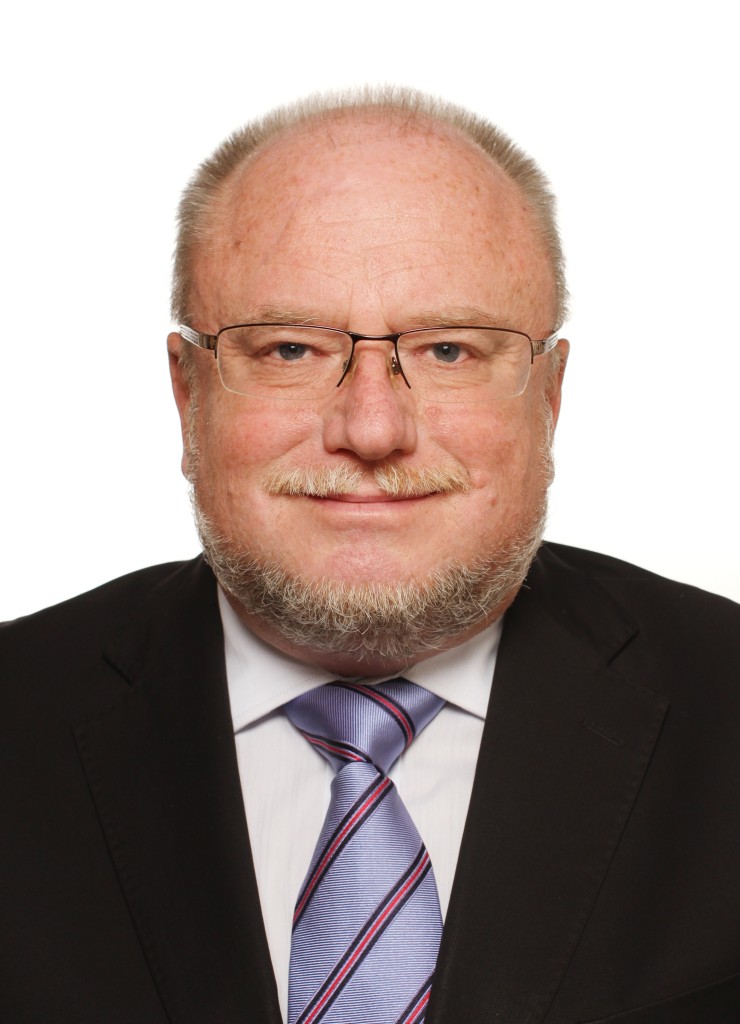
About three years ago our magazine brought an article where it was announced that, at the end of the financial crisis, experts again returned to the table the theme of high- speed trains in the Czech Republic. Now we can assess what has happened during this short period of time.
A considerable progress has really been made, which should be hardly possible without a broad political support covering almost all political parties of the House of Deputies, which found its expression also in several resolutions of its Economic Committee. This gave a decisive impetus to the Government to approve the Rapid Services Development Programme in the Czech Republic in May 2017 as the decade-awaited strategic document paving the way towards a new and ecologically favourable system of long- distance passenger transport. The future Rapid Services network should play a binary role: to mutually link major national centres of population as well as incorporate the country into the existing and developing international high speed network. The international connection has already been negotiated in bilateral relations, and was also embodied in a declaration of the Visegrád group of countries: Czechia, Poland, Slovakia and Hungary.
The network of the Rapid Services should consist of classical high-speed lines (with a speed over 250 kmph) and conventional upgraded lines of higher parameters (160 – 250 kmph). The lines should run along the following axes: Prague – Dresden – Berlin, Prague – Brno – Vienna, Prague – Pilsen – Munich and Brno – Ostrava – Warsaw. A high-speed line should e.g. allow to cover the distance of about 200 km between the two largest cities, Prague and Brno, in a less than an hour. The total cost of the network is to amount over CZK 600 billion (EUR 23 billion) and it should be accomplished during about 20 years.
The recent stage until 2021 is devoted to the elaboration of feasibility studies of individual lines that are to find the most convenient routes, determine their urbanistic, ecological and territorial features and assess their extent
of total costs and the cost-benefit ratio. The aggregate of results of the feasibility studies is then to be integrated into a final network- shaped complex. Some sections of the lines in the vicinity of larger cities like Prague, Brno and Ostrava, the route of which is already fixed and without serious conflicts, may be prepared for construction in advance as pilot projects to be constructed and put into operation about 2025.
Then a very complex zoning and negotiation stage for the rest of the network will follow, the contents of which will predominantly be formed by discussion with regions, municipalities and other stakeholders. It cannot be expected that everybody will be delighted to have a new track with frequent trains in or near to his or her backyard. The prerequisite of success when placing the route into the respective territory is to minimise negative impacts on both on the environment and on neighbouring settlements and businesses. This should be done with the help of supporting legislation containing also due compensation to seriously concerned persons. Only after this stage it will be possible to make all necessary preparations for the construction of first lines that should begin in the second half of the next decade. The first complete high-speed line, probably that between Prague, the town of Ústí nad Labem and Dresden, may be put into operation in the first years of the 30’s.
Even if we have the Rapid Services Development Programme many strategic issues are to be solved well beforehand. Beside the already mentioned supporting legislation (at least for the high-speed lines) it concerns e.g. the concept of direct trains and interchanges to connecting public and individual transport. If the high-speed trainsets are to switch to conventional lines those lines have to be thoroughly upgraded, and equipped with alternating current traction and compatible signalling and interlocking systems. Another task is to determine the standards for the stations where high-speed trains are planned to stop. The stations should enjoy full accessibility for passengers with reduced mobility, convenient disposition of transfer routes for public and individual transport, and – dependent on their significance and expected turnover of passengers – also information centres, high-quality waiting rooms, lounges, and accommodation, catering and shopping facilities. This will require in many cases a profound reconstruction and refurbishment of the existing historical station buildings or construction of brand new ones.
A special care must be taken of the structure and time schedule of financing. Even if a certain part of funds may come from European sources the decisive volume will have to come from Czech public budgets, the state budget in particular. The use of private sources like credits or public-private partnerships depends of their potential future repayment while they might be too expensive to be used for rough construction of tracks, bridges and tunnels (with the exception of several sections when it is imperative to finish the construction stringently within a shorter term and predetermined budget). The main role of private finance may be found particularly in introducing and operation of progressive technologies, exact train operation control, everyday preventive track maintenance, and also in station developments. Should the whole high-speed network be constructed in about 20 years, estimated CZK 30 billion (EUR 1.1 billion) in today’s prices is to be reserved on average per year for this programme, which is about three fourths of funds reserved today for the entire Czech railway. To ensure stable financing of the programme will be a challenging task in the situation when mandatory expense for social security and state officials’ salaries grow year after year.
By Emanuel Šíp
Partner at Allied Progress Consultants Association
Life Is Beautiful
Part XIII: Fearless Leadership[1],[2]
“The purpose of life is a life of purpose.”— Robert Byrne
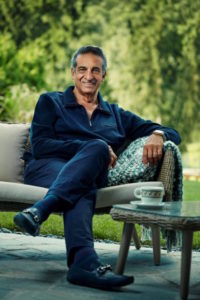
James A. Cusumano, PhD; Chairman Chateau Mcely s.r.o. Prague, Czech Republic
I have been an entrepreneur most of my life, founding and leading the growth of publicly-traded companies. Although I’ve enjoyed success, I made some mistakes along the way—I eventually appeased my afflicted ego by calling them “learnings!” These learnings taught me a lot about business, most especially about people and therefore about life.
I discovered eight guidelines, which if followed diligently, essentially enable growth to a successful thriving enterprise.[3]
None of these guidelines is more critical than number three, which expressed in its complete form is hire the right people for the right job at the right time and when you make a mistake—and on occasion you will—quickly and compassionately make the necessary changes. This is so important because success in just about any undertaking is always about three things— people, people and people—from the managing director to maintenance personnel. They may not all be equal when it comes to position, salary and potential impact on the company, but every one of them is IMPORTANT and must function in the right frame of mind and motivation to do their job well.
If we take this analysis to the next level, there is an important aspect that permeates the leadership and management of every long-lasting success in business and that is Fearlessness. It is especially important as the business cycles through good times and challenging times, which all businesses do at one point or another. Perhaps a personal story will help clarify this point.
As my colleagues and I were building Catalytica Pharmaceuticals from five people and a novel concept to the largest contract-manufacturing pharmaceutical company in North America, namely, more than 2,000 people with annual sales of $500 million, we encountered some of those tough times. Early on, as CEO, I made cetain key mistakes, which eventually became helpful learnings.
An important one of these learnings was how to properly handle business cycles. When times were good and we were meeting or exceeding our budget and goals, I must admit that I very much enjoyed my sense of accomplishment and the compliments that our management team and I received from our board of directors. But, in challenging times, when we were unable to achieve our goals and projections, I didn’t easily appreciate the input of some board members, probably because their constructive criticisms were right on target—but they hurt! I tended to blame our problems on the economy, or on other external factors. How could it possibly be due to the management team, right?
What did I do during those tough times? Unfortunately, even though I had worked diligently and creatively with our team to hire excellent people—people who certainly were much more experienced and capable than I in their area of expertise, e.g., finance, sales, marketing, manufacturing and technology, as we entered these challenges, I began to expose the management team to my fears and concerns. I often didn’t ask for their input concerning this or that potential solution to our problems, but strongly suggested my own ideas—even when I knew the team thought my suggested course of action would be ineffective and a waste of time.
In a moment of personal truth, I knew things were not right. Something was wrong with the way I was looking at our challenges and the way I was behaving. Later, I would find out that I was operating out of fear and with little or no consideration for the expertise, experience and feelings of the talented people we had hired as members of our team.
There was a possible solution. Living in Silicon Valley, I had access to numerous proven counselors in the areas critical to building a successful business. A good friend introduced me to one of them—Dr. Dorothy Jongeward. Dorothy was a world-class psychologist in the field of Transactional Analysis (TA), which teaches how to alter your ego and control your fears as a way of solving personal and professional issues. She had written many books on the subject, one of them, Born to Win, had sold more than four million copies [see Figure 1].
The first time I met Dorothy, I really like her. She was unpretentious, a great listener and showed an earnest concern to help me. During our discussion of business cycles, she advised me to think about the Chinese philosophy concerning the word “crisis.” The Chinese write “crisis” with two characters. The first one means danger, but the second means opportunity. In other words, in every crisis there is always an opportunity [see Figure 2].
In our first meeting she asked me several important questions.
- What is your mission?
- Are you still excited by and committed to your mission?
- What are your personal and company values?
- Are you still earnestly committed to these values?
- Do you spend quality time on the important things that need to be done in your role as CEO to be successful, or are you distracted by other things, which may not be relevant to your mission—especially during challenging times?
She was pleased to hear my affirmative answer to each of these questions.
She then told me that the best metric to determine if a company or any group of people is functioning well is if trust permeates the organization. This certainly made good sense to me.
She said that her sense was that Catalytica Pharmaceuticals had a very high level of trust in its corporate fabric. She ended with a simple straight forward comment. “Don’t screw it up with the propagation of useless and damaging fear!” I was taken aback. But as my ego recovered and I thought about her wakeup comment, I knew she was right.
Dorothy’s point was if you hire the right people at the right time to do the right job, then you must trust that they are doing just that. Yes, you can ask the team questions and make suggestions, but if these managers are more experienced and more highly trained in areas that are not your primary expertise, it would be ineffective to tell them what to do—worse, it could be demoralizing to them. Done too often, a smart and effective executive would soon find a different professional opportunity.
“Your primary job, Jim, as CEO,” she said, “Is to set a strategic direction, agree with the team on goals and priorities, check back occasionally to be sure things are on target and then—get out of their way!”
The complete opposite of this is what happens when the leader jumps into the fear mode of operation. He or she usually has sleepless nights because the organization is not performing well. What will the board think? Out of fear and thinking it will help, a fearful leader often gives direct orders to his or her immediate reports. Try this or try that! We’ve got to turn this thing around! In this case the outcome will only be as good as the leader is in a state of fear, and forego the benefits of the talented people hired into the organization.
Philosophers and psychologists figured out long ago, you always attract what you fear, and that which you fear most comes swiftly to your doorstep. The reason that you fail when you are overrun with fear is the same reason you succeed when you put your focused “fearless” attention and intention on a desired positive outcome. It’s the other side of the coin. Fear induces all of the physical, emotional and psychological feelings necessary to create a negative outcome. Fear is a powerful paralyzing force.
This is why the leader must learn to manage fear and in the best case be absolutely fearless [See Figure 3]. It’s not easy. It requires practice, but it absolutely can be achieved. Not only is it important to be fearless in the presence of executives, managers and other employees but, it is equally necessary to demonstrate compassionate understanding for their fears. A fearless leader helps them see past their challenges, so that the entire team can operate like a well-oiled machine. Otherwise, the company will be in the typical “fight-or-flight” mode, which is fine if you’re being chased by a bear.
In fight-or-flight operation, there is essentially zero creativity for solving challenging problems. “Fight-or-flight” stress works well in military operations—Keep your head down, or it will be blown off!—but not in business. When your body experiences fight-or-flight, the Immunoglobulin (IgA) antibody levels in your body go down and your cortisol hormone levels go up. This is perfect physiological chemistry for creating illness. In fact, the medical profession is moving increasingly towards the conclusion that nearly all illnesses, from colds to cancer, are caused in this way, namely by frequent stressful fear reactions.
It’s not easy to become fearless, but it can be done and the results are well worth the effort. However, we human beings have a great capacity to exaggerate the negativity and potential outcome of a challenge. This is due to prior conditioning by others and to remnants in our ancestral “animal brain.”
Two things can help overcome these two impediments—moderate physical exercise and meditation. The practice of both is best. Frequent exercise and meditation—just 20 minutes per day—have demonstrated that IgA levels increase and cortisol levels decrease leading to better health and increased longevity. Under these circumstances, the parasympathetic nervous system has been found to bring about radical healing of even the most recalcitrant diseases.[4] Life is truly beautiful.
Sat, Chit, Ananda!
Enjoy your journey, make a difference!
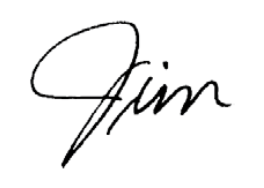
[1] EDITOR’S COMMENT— This is the thirteenth article in a series based on the author’s book, “Life Is Beautiful: 12 Universal Rules,”Waterfront Press, Cardiff California, 2015.
[2] The author may be reached at Jim@ChateauMcely.Com.
[3] James A. Cusumano, BALANCE: The Business-Life Connection, SelectBooks, New York, 2013.”
[4] There is an excellent award-winning documentary that can be seen on Netflix. Entitled “Heal,” it shows interviews with a number of world experts on the power of the mind—more accurately, consciousness—to bring about radical recovery from disease.

Figure 1: Dorothy Jongeward “wrote the book” on how to create successful transactions among people. She developed the field of Transactional Analysis and presented the details in an easy-to-read international bestseller entitled Born To Win.
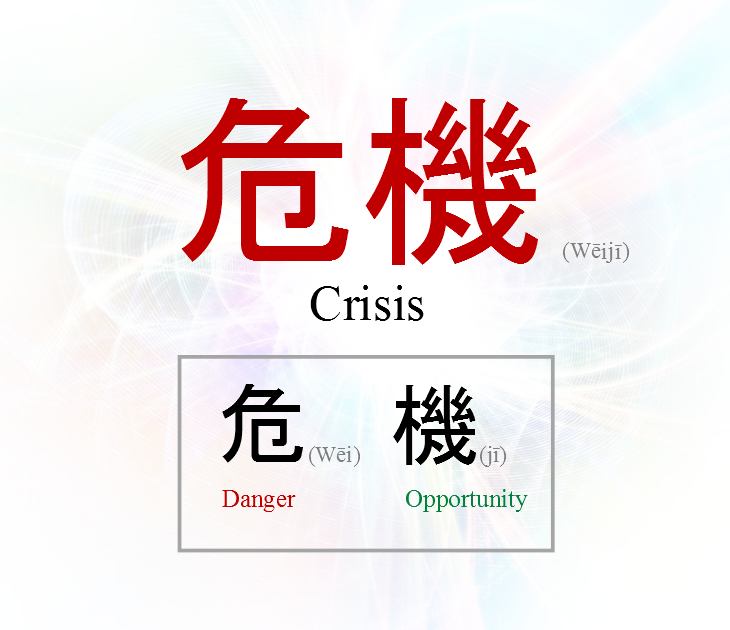
Figure 2: Chinese philosophy states that there is an opportunity in every crisis. Of the two characters that mean “crisis,” one means “danger” and the other means “opportunity.”

Figure 3: You attract what your fear, and that which you fear most, comes swiftly to your doorstep. The same mechanism is at play as when you manifest something positive by putting your Attention and Intention on a desired outcome.
In the 26th year of the Manager of the Year competition, announced by the Czech Management Association, the representatives of the technologically progressive fields won. Many personalities of European and world stature appeared among the TOP 10 and winners’ categories.
Prague, 25 April 2019
The best managers in the Czech Republic for the year 2018 are Prof. Vladimír Mařík from the Czech Institute of Informatics, Robotics, and Cybernetics, CIIRC ČVUT (Czech Technical University in Prague) and Tanja Vainio, the general director of the ABB company for both the Czech and Slovak Republics. They won the Manager of the Year competition, which has been announced by the Czech Management Association (ČMA) for 26 years. The award was accepted on the 25 April at Prague Žofín Palace during the celebratory Gala, where three hundred managerial personalities and guests had gathered.
The winners of the Manager of the Year come from different generations, but they both represent the area of modern technologies with Prof. Vladimír Mařík as an innovator in cybernetics and representative of the institution of European-class and Tanja Vainio as a bearer of innovation. “The use and development of new technologies is part of our DNA”, says Tanja Vainio.
The chairman of the 15-member National Commission, Prof. Zdeněk Souček commented on the result: “Both have shown excellent managerial attributes within the most modern area of present-day entrepreneurship.” Pavel Kafka, the president of the ČMA selected similar words. He was unable to hide his delight from the fact that the number of managers who represent modern, perspective fields grew among the finalists and laureates. “I am glad that the entire course of the 26th year and its results confirm the great, social importance of this long-term project,” he stated.
Petr Kazík, the chairman of the Evaluation Commission, who awards points to the participants during the first round of the competition, stated: “I consider it to be outstanding that managers from highly progressive fields with a great perspective have won. They are disrupting the stereotype of the Czech Republic as being only an assembly-based nation.”
Fifty finalists made it to the conclusion of the competition this year. The TOP 10 managers continued to the narrowest selection after having personally presented before the Evaluation Commission. From this narrow selection, the afore mentioned National Commission chose both the male and female Managers of the Year.
Eleven of the best managers placed in occupational or new categories. The totally new Visionary category was introduced and Tomáš Mikolov, a scientist of world importance and innovator in the area of artificial intelligence, was the first to succeed. Also, the category of Crisis Manager was new with Tomáš Milich, OVUS – a stock farming enterprise, as the winner. Foreign Manager was a new category where Niclas Pfüller, BROSE CZ, pulled through to the top. Adam Liška from Bekaert Petrovice Ltd. succeeded as the Young Managerial Talent.
Simona Kijonková from the company Zásilkovna won in the Services category, which also indicated the importance of new technologies. Miloslav Ludvík, FN Motol, shined in Health Services. Jan Duspěva, ČEPRO, was successful in Industry, Josef Mráz, AGROFERT, in Agriculture and the category of Public Administration was taken by Tomáš Elis from the municipality of Opava.
A special award was given for Innovation for Sustainable Development. Václav Matyáš was added to the Hall of Fame, a recognized personality in the area of construction and many years president of the Association of Building Entrepreneurs of the Czech Republic.
PragArtworks joined this year’s edition of the renowned international contemporary art fair Art Prague that was opened on May 13 thru May 19 at the namesti Republiky 7 at Prague 1. The PragArtworks booth showcased representative pieces by such great artists as Pavel Roučka, Jakub Flejšar, Václav Bláha, Dan Trantina, Marek Schovanek, Rudolf Burda, Lukaš Rais and Pedja Djaković. The event has been a huge success with the visitors and collectors.
While many people are interested in acquiring Art, they are often not sure were to look. Pragartworks’s central mission is to help anyone in buying first rate quality contemporary art navigate the present-day art scene.
Nowadays, institutions are too quickly turning to culture and identity to explain politics, especially at election times. As simple and convenient as it seems, it is not as accurate as such. All across Europe, the governments failed at distributive justice, not on culture or behavioural recognition.
We are discussing these highly topical issues with our special guest …

Grand-granddaughter of the glorious Hapsburg Empress Maria Therese
“We need culture to know where we came from”, says her Imperial and Royal Highness Archduchess of Austria and Princess of Tuscany Camilla Habsburg-Lothringen. “At a time when our western society is complaining, is frustrated and not making the best of what we have, there we need culture. The cultural field enables us to build up dialogues better and faster than administrations can.” Contributing to a better world is why the descendant of the Habsburg house that traces its roots back to Holy Roman Emperor Francis I and Empress Maria Therese of Austria chose the cultural field over a more political role.
How does it feel be the great-great-great-granddaughter of such a historical figure as Maria Theresia?
“Recently, we celebrated the 300th anniversary of Empress Maria Theresia’s birth. She was bright and very advanced for her time. Great policy such as the obligation to go to school, the vaccination against chicken pox, the opening of the stock market and the founding of the academy for diplomats was some of the many actions implemented by her. Her strong character and personality as a ruler, wife and mother impresses me strongly.
“It is a big responsibility to carry this name, which will always be imprinted on me. It is not easy to fulfil all people’s expectations but I try to be true to myself, not to lose my focus and keep remembering my history, where I come from.”
Do you consider this responsibility to be political?
“No, there is no role for me in politics. The time to get involved is very limited. First you have to get elected, and during the mandate you try to do as much as you can and then the electorate either replaces or re-elects you. All this makes it difficult to make real changes, not to mention the opposition parties that try to block all suggestions, even if they are good ones.
Politics lacks consistency and coherence over longer period?
“Indeed! One of the big dilemmas of democracy and modernity…
Politicians mostly take responsibility over a certain period. This is understandable because they receive legitimacy over a certain time. But the downside is that many do not understand the responsibility for future consequences of their actions. Monarchies, nobility and family-run companies all have to make careful decisions as these leave an impact and imprint on the future of generations and the empires or business. Politicians should learn from this, and vow to take consequences for the effects of their actions in the future.
“Besides that, I feel that real change should be realised via initiatives.”

Her Imperial and Royal Highness Archduchess of Austria and Princess of Tuscany Camilla Habsburg-Lothringen.
One of the most prominent international institutes from Central Europe, IFIMES that has even a consultative status with the UN, has entrusted you as their Director for the Euro-Med Diplomacy and Intercultural Affairs. In that capacity, you are all the time at the world summits and important meetings. Do you feel that we need a change?
“I am pretty thankful to live in a peaceful country with strong stability like Austria. But it worries me that people don’t recognise that. In the last years, throughout Europe, I observe the increase of a complaining and unsatisfied society that is questioning everything. Also, greed and materialism have become very dominant in our times and this leads to a feeling of emptiness. And so it’s understandable that people become very scared and receptive to any kind of manipulative information that threatens this artificial way of life.
… peddling reductive messages to electorate in the EU?
“Yes. In our times, there is a strong destabilizing fear for the future and of other cultures. The result is a lack of focus and investments. Constant worrying will lead us nowhere and won’t enable us to build a strong future. That is something we need to change.
“I would say that there is a need for respect. Respect is much stronger than tolerance. The population is growing fast, everybody is getting closer, and more people will live in our countries. Just tolerating others will not be sufficient, we need to respect each other and other cultures and learn from them.”
Do you see any role for yourself in this?
“I have a background in PR and advertising, besides that I am also very active in the field of networking. But most important for me are values: the stability of a society and passing on of ideas and sending impulses. I was never involved in representing companies, firms, but always more looking in the direction of a so-called atmospheric PR if you understand what I mean. That is a kind of seismographic feeling towards our environment and our global thinking and acting. Searching for solutions, to get together those people who feel and think in a similar way and then move things into action.”

Sofi B. and Director Camilla of IFIMES – soft power of subtle diplomacy
Do you consider that to be diplomacy?
“Yes. Diplomacy has a very important stabilizing function in this world. I prefer the cultural field because it is neutral and makes it easier to bind people and nations on a diplomatic base. As the IFIMES Director, I would like to connect the Euro-Mediterranean, Central-Eastern Europe and the Balkans and give a voice to those without one. For me that is one of the important aspects of diplomacy. Our Institute is active within the UN, OSCE but elsewhere too.”
Do you feel that the European Union contributes to a better world?
“The European project – the European Union, brought prosperity and peace to the continent. But now they are getting lost in a big construction of bureaucracy and regulations like on what kind of energy saving light bulbs we are allowed to buy. There are too many paragraphs blocking any fast action. I find this a waste of energy, time and money. There is a real need for solutions to the bigger problems, like immigration for instance. The European Union should focus on the bigger political issues and on the cultural field.
“The near future might be challenging, but we need to keep the dialogue going, because together we can tackle every crisis.”
Based on the talks of Djoeke Altena with Archduchess Camilla Habsburg-Lothringen, interview arranged by the Magazine.
Photos by IFIMES.
Mr. Roman Knap, CEO of Česká Pošta a.s., had a lively discussion with our members about the current situation at Česká Pošta, his future vision and plans with the company and also about the challenges he is facing.
Date: 11 April 2019 / 08:30 – 11:00
Place: Art Nouveau Palace Hotel, Panská 897/12, Praha 1

Every cosmopolitan business person is aware of who travels can be a demanding and tedious process. No matter whether you spend a week on your business travel or you are just staying overnight, the fact that you have to deal with weather and climate differences, jet-lag, and getting accustomed with different time zones is already overwhelming. However, packing for all the possible climate outcomes is vital for a business trip since you need to strive to look your best at any given moment. So, without further ado, there is no need to start panicking, but packing, and here is what you should do.
Start off with basics
First things first, you need to get extra prepared for the all possible outcomes, but unless you have the proper choice of bottoms it could all go ballistic. Whether you are going to wear pants or skirts on your business trip, you need to have in mind that if you are in a hotter climate you will be sweating (a lot) so white bottom-wear is not recommended. Go for black pants or skirt. On the other hand, if you are heading off to a business trip in a colder area, packing everything in classic black colour will be enough. This applies also for your socks and tights. Black or brown neutral colors blend with everything.
Pack by look
The easiest thing to do is to organize your daily outfit by day and pack the entire look prior to going on the business trip. Basically, you should pre-plan every look for the trip from head to toe, including bags, necklaces, and other accessories. It would be advisable to search for travel jewelry cases to buy and put all your valuable jewelry in order not to lose your precious stones during packing and trip. When you have everything sorted out and settled in advance, you will have the appropriate attire for each meeting and formal event, plus, you will save time and nerves.
Choose appropriate fabrics
The key is to pack light but smart. This may be hard to achieve if you are going to a colder climate and when you simply need to bring an extra sweater or jumper. If that is the case, make sure that you get quality fabrics, such as merino wool, that doesn’t take up much space in your suitcase, but which will keep you warm. On the other hands, for warmer climates, you had better opt for standard cotton blouses, linen suits, airy dresses, and maxi pants or skirts. Avoid packing layers of fabrics as they would make you feel uncomfortable, and if you can, avoid fabrics and materials like Lycra and some other synthetic blends.

Systematize your footwear
When it comes to shoes, no matter the climate you go to for your business trip, it would be good to pack at least two pairs. That is, one strictly business footwear, let your other pair be a casual but comfy combo of the two. Don’t over-pack with shoes. Rarely would you need more than two pairs of shoes? This rule differs if you are travelling for more than five days, then for instance pack one pair of sleek boots, modern flats and maybe one more casual flats. Bear in mind that boots can be rather heavy, so if you are heading to a cold climate, you might want to pack only one pair of warm leather boots and wear the other.
To carry or not to carry?
The cold weather comes with a variety of obstacles and possible mishaps during business travel, but the bulky and oversize garments can be a tricky thing. If you already know in advance that the weather will be extremely cold, you might want to carry your coat and scarf, leaving more space in your suitcase for a woolen jumper, cardigan or blazer. It might be hard to carry things, but you need to calculate how much time will you spend outdoors. Consequently, it is much productive to carry bulky coats and heavy garments, then pushing them into the suitcase. Thankfully, you won’t need to worry about this in warm climates, since the only thing you should carry there is a luscious perfume.

The bare necessities
Depending on your business destination, there are a few essentials that you always need to pack. To always look neat and groomed on the business meeting, pack the vital cosmetic kit. Both for the cold or warm climate avoid packing blouses with a low neckline, bare shoulders, shorts or skirts above the knee. Instead of a heavy coat, you can perhaps go for a packable down jacket instead, if the weather is not so cold. Bring a small umbrella, for the “just in case” scenario, and always keep the expensive stuff in your carry-on by your side.
Packing can be a fun and thrilling process once you have everything organized and settled in advanced. For that reason, mindfully read the above packing guide and head out to your business trip without having to worry about the climate.
By Claire Morgan
Claire Morgan is a marketing consultant and lecturer who, thanks to her integrated approach to business, stands behind many digital strategies of renowned brands. She enjoys travelling and passionately blogs about the latest marketing and lifestyle trends.
European Belonging
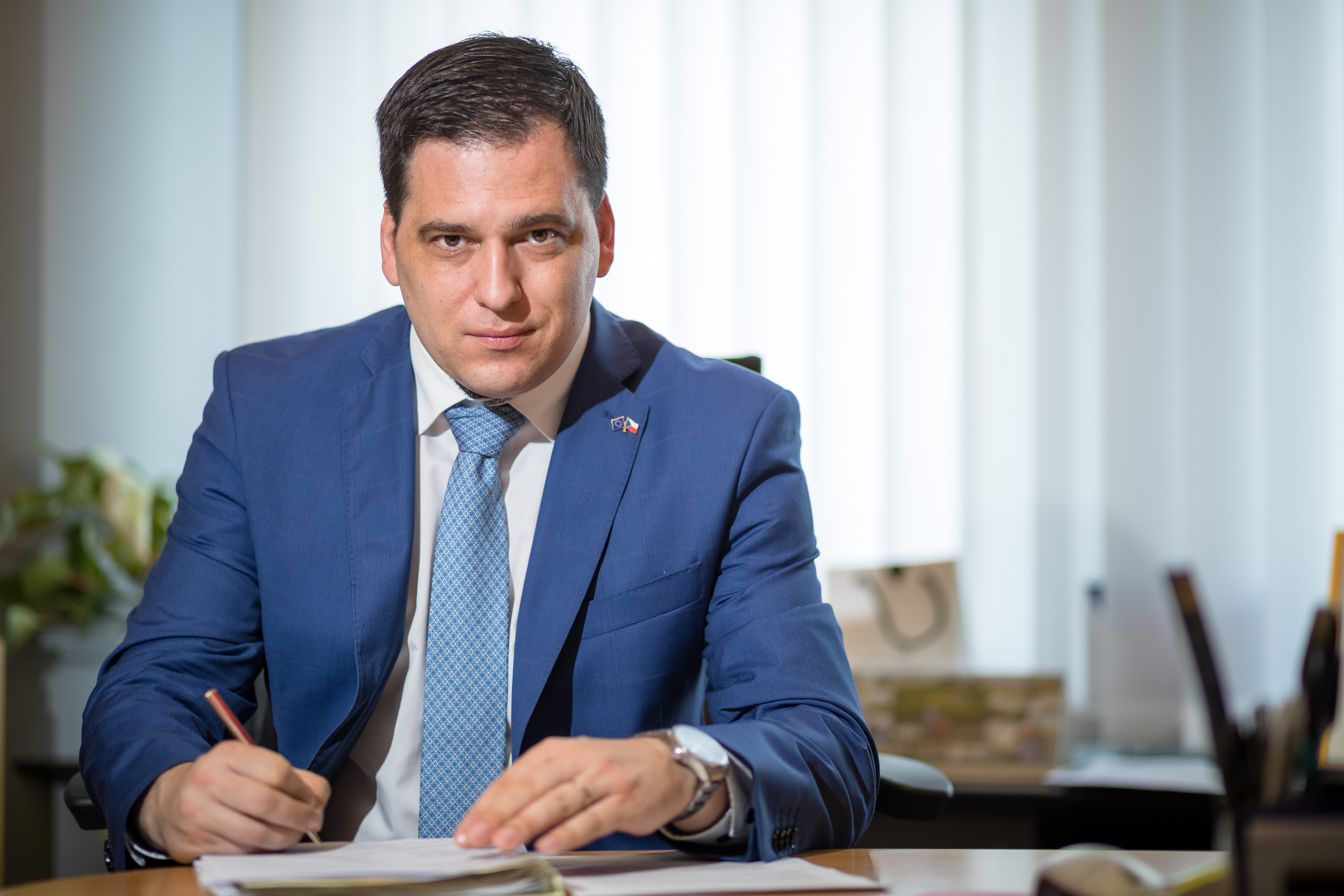
Tomáš Zdechovský, Member of the European Parliament
I met Tomáš Zdechovský in 2012 when he was still working as an entrepreneur and crisis manager. Even then, the issue of Europe, its reform and future direction was close to his heart. He’s been a MEP since 2014. He is regularly ranked as one of the most important Czechs in Brussels, and is one of the hardest working MEPs. He is married with four children.
KDU-ČSL proposed celebrating 15 years in the EU with the “Week without the EU” event in order that people realise our priority should be to try to reform the EU, and not to leave the EU. Your idea was to “implement checks at borders, return goods certificates and prevent orders being made on the internet, reintroduce mobile roaming charges and authorise visas to Slovakia. It also involved limiting higher education grants and Erasmus programmes, ceasing motorway construction and sending all employees of foreign companies on a week’s unpaid leave.” It seems to me that by stressing pragmatic benefits, the idea of peace and European belonging has been lost.
That idea was mostly a bit of provocation designed for those who think we’d be better off without the EU. Whenever I hear the arguments of most “Czexiteers”, I just think that all it would take would be a week and they’d quickly sober up because they’d realise the things they take absolutely for granted are not at all a given. Something like peace is too abstract for these people, and furthermore many of them are convinced that because of the EU we are in a kind of cultural war, and a war with migrants, liberals and so on. That’s why I try to utilise something they can picture better – and that’s these various restrictions, price increases, and lack of goods and labour.
Ideas such as European belonging are entirely beyond their understanding, perhaps because they have become aware of the different quality of food in countries to our west, with the idea promoted of the Czech Republic being the dustbin of Europe, alongside our lower salaries, meaning that we are merely Europe’s “cheap assembly plant”. As politicians, however, we are to blame for these ideas, because we have used exactly these arguments in stating that we want to solve such problems. But that doesn’t happen from one day to the next, and it just leads people to become frustrated, and ideas such as “European belonging” just add fuel to the fire.
In less than a month, the European Parliament elections take place. Czech voters are not particularly engaged in this type of election. In 2014, we had the second lowest turnout in them. What topics do you consider fundamental for Czech voters?
Security is foremost, and even though the migrant crisis has settled down significantly, numerous fears persist because people see problems with integrating foreigners in France, Germany, Sweden and other countries. Following this is reform, because more and more people are realising that our position in the centre of Europe, and the fact we are a small country with one of the most open economies in the world, means we’ve got to remain in the EU. But they don’t like its current overly left-wing orientation and are seeking alternatives. And then they need to feel the assurance someone has their back; to hear that someone “far away in Brussels somewhere” is sticking up for Czech citizens, companies and interests.
You yourself are a proponent of EU reform, not leaving the EU. How do you see this EU reform specifically, and can the Czech Republic as a small country have any influence on such reform?
For me, it is absolutely essential that we sit down and start discussing where we want the EU to be in 2030, and to posit the question of whether we will achieve this if we continue down the path we have set for ourselves. The EU is now inflexible in many regards, and approaches many things in a very left-wing way because its main tools are regulations and quotas. Another problem is that it takes an ideological position in many areas, not a rational one, with facts the last thing it takes account of, and this can be seen, for example, in the issue of emissions and its poorly thought- through support for electric cars. Furthermore, the Commission is unable to respond appropriately to unforeseen events, as was seen, for example, in its responses to Brexit and the migrant crisis. They look for errors everywhere except in their own actions, communication, and excessive push for certain phrases and political correctness.
In this regard, one can only hope that the next Parliament and Commission will be more conservative and right-wing in focus. The EU’s original objective was the free movement of people, goods and services. This has been achieved, so the question is why do we continue to produce more and more proposals? Personally, I would make major changes to various European agencies and institutions, because by abolishing the feminist committee FEMN and other agencies and groupings promoting gender equality, and leaving only a social committee with these subtopics, for example, we can also change the EU’s values focus…
Migration remains a bogeyman for Czechs; this is an area you specialise in. So how can the EU provide assistance in regard to migration, when the allocation of quotas was such a fiasco?
Quotas were a bad solution primarily because they did not reflect peoples’ free will. It was assumed that the migrants would be satisfied anywhere in the EU and would not look at whether there was a larger national community elsewhere, etc. Yet the EU can help at the sites where refugees are, such as by improving the conditions in refugee camps (e.g. by providing schools for kids, etc.), so that they can wait out the crisis period as close as possible to their home country without having to go further to Europe. The EU can help by providing structural restoration of their countries, or overall development so that people are motivated to remain in their home country because they can find work and generally good living conditions there. Morocco is a good example here, where a number of projects have been successfully implemented to improve their health service, food and technology self-sufficiency, etc. The EU can also be a mediator in various disputes. It provided help in this manner in setting up the Libyan coast guard, managing through a common goal to more or less stabilise relations between a few dozen fractious political groupings.
I’m not saying the situation is ideal, but it certainly helped to quell illegal migration to the EU across the Mediterranean Sea.
The EU can also set up a more effective asylum system. Holland can serve as inspiration here, with the entire admission process including return or appeal completed within 6 weeks. The fact that various security databases are linked up helps here, with the police getting the data they need very quickly. Thus, those who really need asylum get it, and there is better control over who we can still manage to integrate.
Simply put, there are more solutions than merely giving everyone the right to migrate anywhere.
You’ve been described as one of the 50 most influential Czechs in Brussels. What specific interests of Czech voters have you managed to represent?
Personally, I see three areas. The first I have called helping Czech citizens and companies, the second is support for the government’s long-term positions, and the third is promoting and dealing with larger areas that trouble most citizens, or where there is a structural problem.
In order for a MEP to be able to help Czech citizens and companies, you really need to travel to the regions to meet people face-to-face and visit companies. I have therefore never made the excuse that MEP’s work is just to prepare legislation; I have approached the temporary role I have attained as a service to the people, and gone the extra mile. If you put my name into Google or visit www.zdechovsky.eu, you’ll find out that I have helped dozens of people, companies and non-profit organisations during my term. Not all these cases are as well-known as the story of Mrs. Michaláková’s, whose son was taken away from her in Norway, or the case of the unfairly sanctioned drivers in France; they generally came to an early and positive end, and so not much is known about them; you’re more likely to remember “tough battles” than a single happy ending.
I include amongst my support for government positions, for example, active resistance to the nonsensical refugee quotas, opposition to gun control regulations, providing significant help to negotiating EIA exceptions so that the Czech Republic can build new motorways using European grants, and support for Israel. These were all in the interests of the Czech Republic, and I provided great support to our government in these areas. In the third area, I would include, for example, the battle against the double standards in food quality, and also aid for the depopulating regions of Broumov and Želivka. I would also include here the fight against a number of frauds, where I have endeavoured to measure everyone with the same yardstick within the inspection committee, whether in regard to Mr. Juncker’s Selmayrgate, the Czech “holding companies” case or the misuse of grants in Slovakia, where I undertook a number of inspection missions following the murder of Ján Kuciak.
By Linda Štucbartová
This interview is also available in Czech. Just click here.
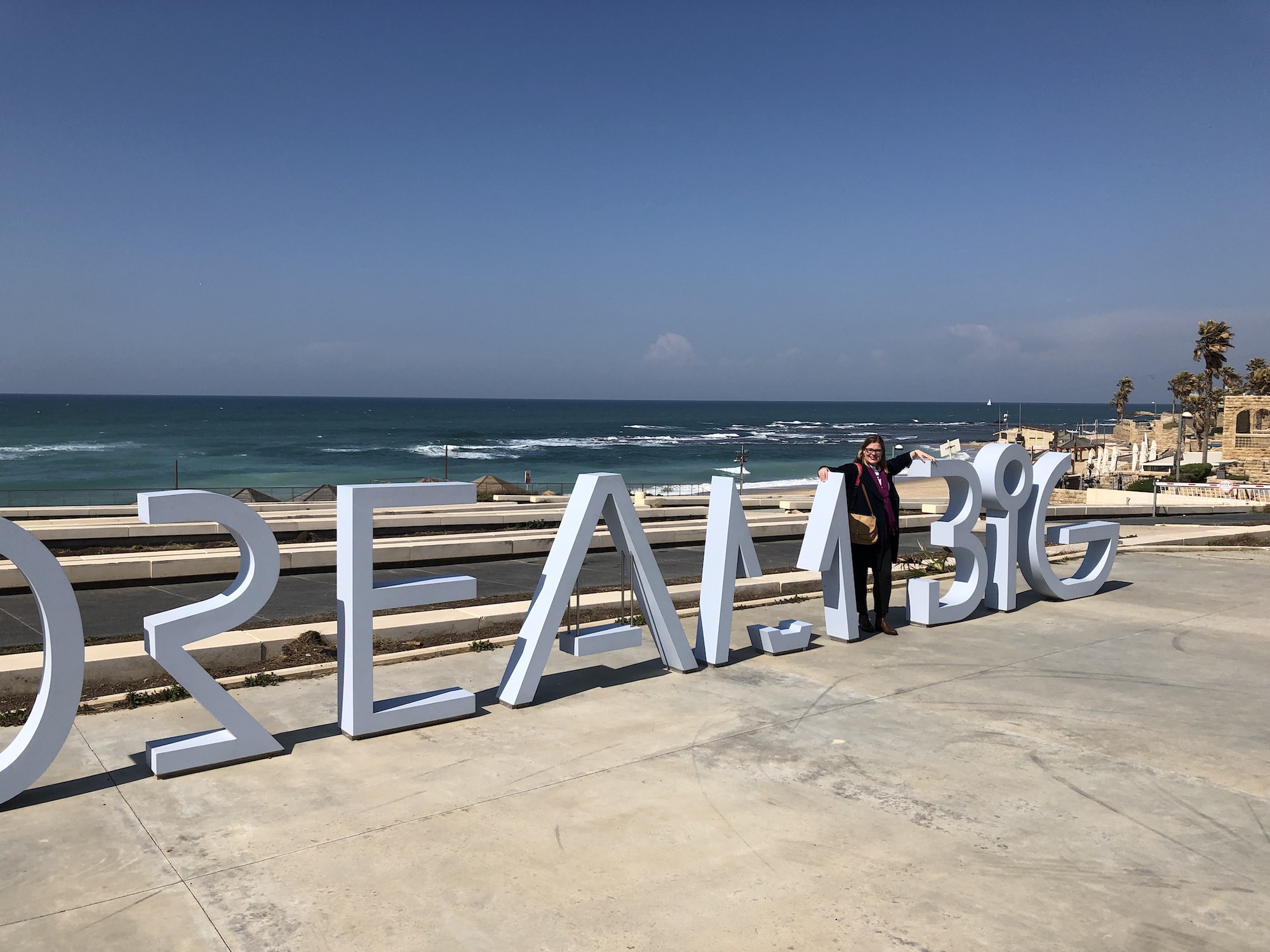
The Shimon Peres Innovation Center in Tel Aviv was opened in February 2019 in a pilot phase for visitors. The new spacious building built on the seashore at Jaffa is unique in that all the main Israeli inventions are concentrated in one place, regardless of their origins. The Center recalls Peres’s legacy, his visionary focus on science and technology, and his support for innovation to secure not just Israel’s economic prosperity, but also peace and stability in neighbouring states.
In front of the entrance to the architecturally distinctive building, the white lettering “Dream Big” draws the visitor’s attention and, contrasting with the surface of the sea, is a reminder of the often-stated Peres quote, “We should use our imagination more than our memory.” The fact that the exhibition is dedicated to Israeli start-ups and their role in the Israeli innovation system is noted in the welcome panel, which provides the encouragement: “Let’s begin together, entrepreneurs, your journey starts here .”
The inspirational entrance hall showcases the main fields of research in which Israel has achieved results of global significance. These are medical technology, IT technology and cyber-security, agricultural technology and technology related to mobility.
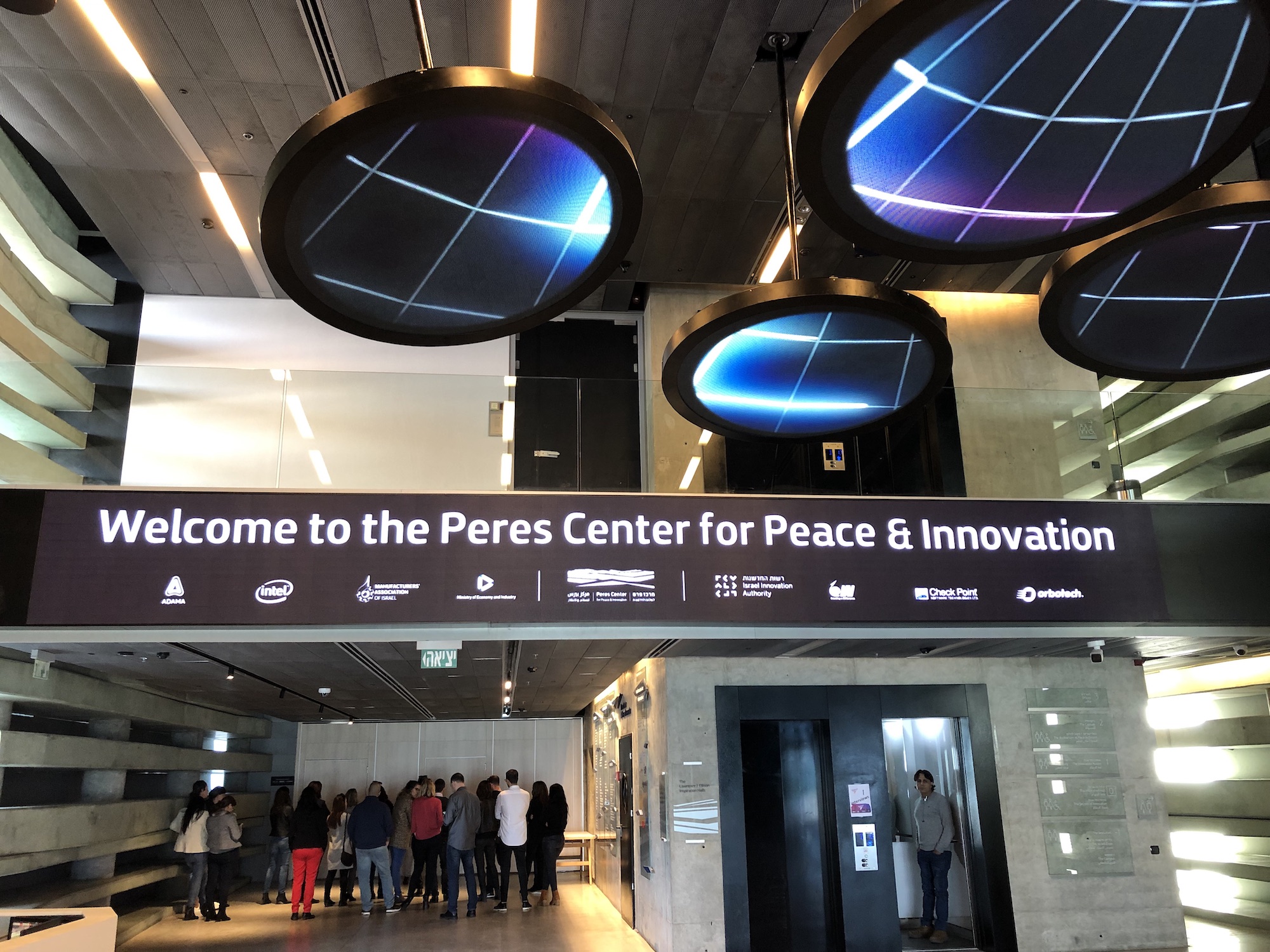
The guided tour begins on the first floor, which is focused on the recent past. In the “Secrets of Innovation” section, visitors can learn about individual key participants in the innovative ecosystem and their extraordinary stories. These include Nobel Prize winners, scientists and entrepreneurs of various generations and origins, to whom you can pose four questions. Using interactive panels, the person you choose will tell you about their childhood, describe their best idea, share a challenge they overcame, or give you advice.
Another room entitled Innovative Nation provides the answer to the question of how Israel built itself up to become a global innovation power. On a large interactive timeline located on the wall, you can see major Israeli innovations, along with their development and connections in the fields of high tech, medicine, agriculture and social sciences. What is fascinating about visiting the Peres Center is that it offers a combination of interactive and experiential learning. Group work is done on smaller interactive panels in which participants have the opportunity to more thoroughly investigate one specific discovery, while answers to specific questions can be found on the surrounding walls and display cases. After group work, it’s time to relax and reflect, so you can take a visit to Shimon Peres’s study. The film screened here introduces us to the life of a man who had a fundamental impact on the development of the State of Israel from the time of its founding to the present day, but whose visions have also directed the state’s future.
On the next storey, visitors are welcomed by a robot. We find ourselves in the future. We enter a time capsule, and using VR headsets we begin to perceive what challenges the human race is going to have to deal with, and how technology can help us overcome these problems. Which technologies in digital medicine, nanorobotics, smart travel and space travel will be fundamental to solving the key problems of the future?
From the future, we return to the present. The basement provides a showcase of 45 of the best contemporary Israeli start-ups with global impact. The presented companies arose from a public tender run by the Ministry of Trade to which over 1000 entities applied. These include world-renowned leaders on the start- up scene such as Mobileye, Orcam and the Beresheet space probe, currently heading for the moon. The Center’s generous sponsors don’t miss out either, with their activities also presented on interactive panels, so in addition to the standard thank-you message they also get befitting PR. The start-ups showcased, like the sponsorship companies, will be regularly rotated every six months so that the exhibition always remains up-to-date and inspirational.
I recommend anyone travelling to Tel Aviv to include the Innovation Center on their list of places to visit. For families with kids, I should add that a visit is recommended for children from ten years of age upwards. Tickets need to be booked in advance on their website.
By Linda Štucbartová
On Dreaming and Planning
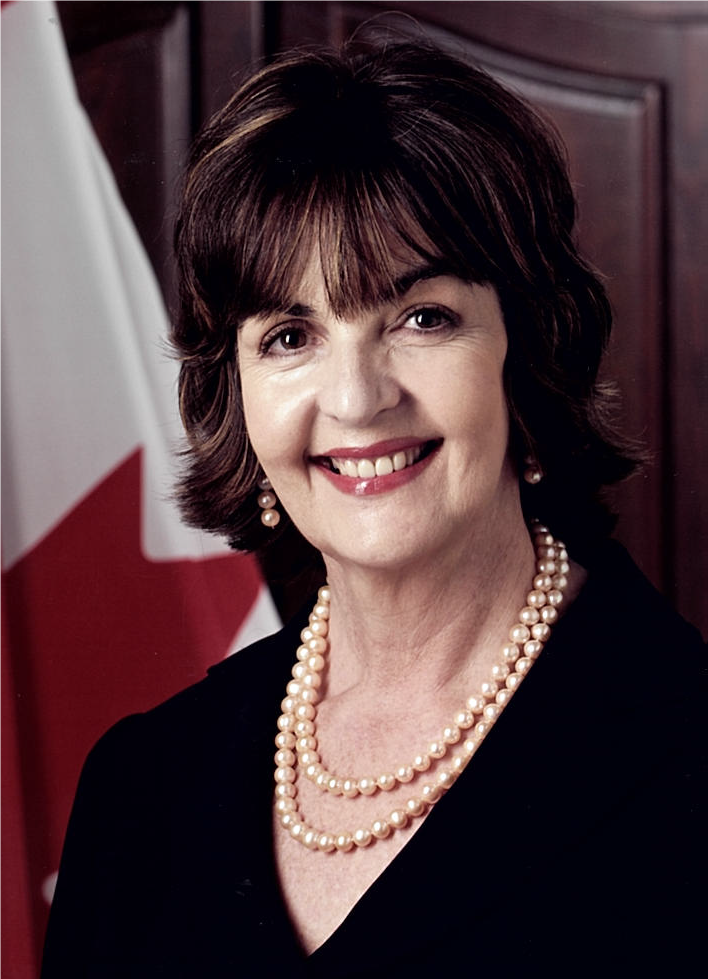
H.E. Barbara Richardson, Ambassador of Canada
Barbara Richardson has served in the Czech Republic for three years. She chose Prague to be her final posting and shares how special she finds her first posting in Europe. Prior to serving in the Czech Republic, she had a remarkable thirty year diplomatic career in Asia and Africa. Besides advancing Czech-Canadian bilateral relations, Ms. Richardson often speaks on the theme of diversity and gender equality. Her remarkable career makes her a true and aspiring role-model for working mothers in high positions. Find out more about what Canadians and Czechs have in common or what is her career advice to girls and women, but also to men.
Your Excellency, you have had a remarkable career journey, serving as a Canadian diplomat and three times ambassador on several different continents. What are your career highlights?
I have been so fortunate to have had this career and all these experiences. Not only have I had a wonderful life but I was able to share all my profound experiences with my son. I feel strongly that young people need to be informed about world politics. They cannot think about their own respective countries only, they need to understand that we are all part of something bigger in order to be able to make the changes the world and the globe are going to require. The Canadian point of view is that we cannot do it alone. Therefore, we need to understand different cultures and parts of the world and see them for what they are. I have been in different parts of the world and also some difficult parts of the world, my son grew up realizing that on the outside a country might look differently than when you live in it, interact with people, understand the history, peoples’ needs, and finally realize that we all share the same needs. As a young girl, I always felt I wanted to make a difference in the world. But then I had no vision how I could do that. My career enabled it and I feel very lucky that I found a job I could identify with, I loved and enjoyed. I have always told my son that when he is asked in future about what he does, he should be proud and happy about what he is able to reply.
You started your career abroad in Asia when your son was only five months old. Then you moved to Africa. All this was happening more than three decades ago in a male dominated profession. In fact, high ranking professional diplomats being mothers at the same time are still more an exception than a rule. Who encouraged you?
I had the great benefit of a female head of human resources at the time that I had planned to take the posting. When I found out that I was pregnant, I approached her saying that this was probably the end for a posting. She said: “Absolutely not, this is the time when you need to go to a posting, because you can go to parts of the world where it is easier to get help with childcare and running the household!” I went to the Philippines, where I had all the assistance I needed and raising a child there while working was actually easier than in Canada back then. The culture in the Philippines is a very child-centric one, so my son was very happy and pampered there. While I was in the Philippines, there was a temporary opportunity to go and serve in Singapore. Again, I felt that with a son only two years old, I might be excluded from the opportunity. At that time, I approached my manager and asked her that if I made all the necessary arrangements, in terms of taking my son with me – staying at the hotel room and arranging a babysitter to stay at no extra expense for the government, if she would consider me as an applicant. It worked out and I was given the opportunity. I was lucky to live in a time when companies realized that they need to become more flexible workplaces. The more models of different ways of working we have and the more demonstrations of the competencies that diversity, including gender, brings to the workplace, the easier it is for managers to make decisions with flexibility and different working schemes.
You seem to have been navigating your career with regards to opportunities while not being afraid of challenges. From Asia, you went back to Canada, only to continue your career in Africa.
Much of the younger generation talks about career planning and they have these five-year and ten-year plans. I admire people who are capable of that. I was never one of them. I have always chosen my job based on what sounded interesting and what I considered a useful thing to do. I chose my posting in Kenya as it represented a great challenge. From Kenya, we covered six countries: Burundi, Rwanda, Uganda, Eritrea, Somalia and Southern Sudan, not being independent then. I considered it the best political job within the department because of the scope. The peace-talks going on in two of the countries or the breakthrough elections enabled me to live throughout some extraordinary moments of history in that time and that part of the world. I am glad I made the choice, since Africa is going to be an increasingly significant continent for the future of the globe. From the perspective of a mother, I think my son developed compassion there. He was nine years old then, in many ways a baby for me. The Kenyans view a nine-year old boy as a young man. In some parts of Kenya, a boy of that age is given a spear and asked to go out to kill a lion. My son very much enjoyed being treated as a young man by Kenyans. As all parents eventually learn, children rise to our expectations. Later, I returned to Africa and served in Zimbabwe. Looking back at time spent in Africa, I suggest to everyone to go and visit this beautiful part of the world. Sometimes, I felt like I was living in a National Geographic Magazine.
After all your experiences, does not the good old continent of Europe sound boring?
I chose Prague as my last assignment. I chose the Czech Republic for many reasons. I have known a couple of refugees from Czechoslovakia and Prague sounded a bit exotic. Little did I realize that I came in an extraordinary and politically intriguing time. I arrived here after the election of President Trump, after the move to the right and far right in some other European countries, after the Brexit vote and all of that has made my assignment much more turbulent and complex than I anticipated. Let alone living in Prague which many people consider the most beautiful city in the world, in the centre of Europe.
Thank you for speaking so positively about my birth-town. I am sure you have noticed that Canada is like a dream country for many Czechs. Czechs like Canada and Australia, even though they have never been there. It seems we tend to love far away countries, but not superpowers. Were you surprised by the intensity and warmth of Czech-Canadian relations?
In some ways yes, in other ways no. Everywhere I lived, people mentioned Canada as a country where they would like to move. Particularly people from difficult parts of the world see Canada as a country that accepts immigrants. In the Czech Republic, people not only say they love Canada, but they immediately mention why. They always talk about the outdoors, the beauty, Rocky Mountains, the oceans and the Arctic. I have noticed passions Czechs have for the outdoors and all the outdoor activities, actually on much higher scale than most Canadians do.
What about Canadians and their relations to Czechs?
There is not a lot of knowledge about the Czech Republic in Canada. Canadians of a certain generation know about the Velvet Revolution or the split of Czechoslovakia that happened without a war which is very fascinating, but the younger generation is not as aware. The Czech Republic is known as a travel destination and its reputation for its beauty. There is a lot of scope for commonality between Czechs and Canadians. Neither of us is a superpower country. Czechs and Canadians share a view of the world and values.
It is time to discuss not only immigration but also diversity. “Diversity is Canada’s strength”. The motto of your Prime Minister Justin Trudeau is on the notepad I have received as a gift. However, many Czechs still seem to fail to appreciate the full potential of diversity. What is that the Czechs are missing?
I have met many Czechs who do value and support the idea of diversity. Many point out the Vietnamese community as a recognition what another culture can bring. They recognize the value Vietnamese businesses brought, they see them integrating and providing value for the Czech society. Diversity is a long process to reach the point when it is widely accepted and valued as being an important fabric in a society. However, we have such different history and geography, that I understand certain Czech people being skeptical and hesitant about someone coming from the outside. For centuries, the Czech society has been very homogenous. In Canada, except for indigenous people, we are all immigrants and we all share the common recognition that we and our families come from somewhere else. We also recognize what diversity has brought to our country in terms of languages, culture, innovation and skill sets. When we talk about an economic migration, we pick and choose those who can add value to our economy.
You mentioned Canada’s population reaching currently at 35 million people. I remember that 30 years ago, I learned the figure 27 million at school.
Without immigration, our economy could not grow. Already 70 years ago, we recognized that and started doing economic modelling related to the economy, which is determining how many new people we need in Canada to drive the economy. Based on that modelling, we have developed a very specific immigration program and model. Every year, across the whole Canada, a broad survey is done on what kind of experiences and positions are needed. We bring about 1% of population per year. For some, it might be frightening, for us it is seen as useful and essential. There is a recognition that immigration drives our prosperity, our future success and future vision. We target the best in the world. Equal to our perspective on immigration and providing the safe haven to those who need it, the inclusion comes next. Thanks to our work and program for inclusion Canada has not made some mistakes as other countries with regards to the true integration of newcomers to what has become the multiculturalism society. It is Canada who should be thankful to immigrants for choosing our country helping to build it. Like many Czechs did.
You are known to be an advocate and supporter of gender equality and you actively promote women empowerment. What would be your mentoring advice to Czech women? What would be your advice to Czech men?
Canada does not support the attitude of us preaching to the rest of the world, because we have many problems on our own. Canada may have a more progressive approach to gender equality but many issues feel similar to the ones our society has faced with regards to gender equality. When I talk to young women today, I always encourage them that their potential is limitless. When I talk to young women, I mention how often many women say “I was lucky” with regards to their distinguished career. Men usually do not say it. They think “I deserve it”. My advice is: “Plan to be lucky and do the hard work to be lucky”. Women work hard. There is a Canadian politician who said: “Women have to work twice as hard, be twice as smart, to do twice as much to be seen as half as good to men.” However, she finished the quote by saying: “Fortunately, that was not that difficult”. But that was way back in 1960s. I also suggest: “Dreaming is planning”. When I was a little girl back in Alberta, I dreamed big about all sorts of opportunities. Yes, there are going to be obstacles along the way. With regards to men, I encourage them to mentor young women. We tend to hire, mentor and give opportunities to people who are like us. Naturally, men are more likely to support other men. Therefore, I think it is important for men to mentor young women and to learn from that experience which can benefit them as well, as they can learn more about women’s perspective on both life and work. Like with immigration, there is an economic and business case. Gender equality is not about being nice to women, it makes economic sense for companies as it allows to attract the best talent and to be smarter, innovative and excelling. Is there any company that would not be interested in reaping the benefits?
What will the year 2019 bring to Czech-Canadian relations?
This will be a politically big year not only for Europe, but also for Canada, as we also will have our own elections. Canada has a set of priorities for the upcoming year. Security and defense will come first, as we will celebrate the 20th anniversary of the Czech Republic joining the NATO. The Czechs and Canadians both support democracy and rule-based order, and there will be an opportunity to commemorate values and principles while celebrating the 30th anniversary of the Velvet Revolution. Trade is also information. After the ratification of the Canada-EU Comprehensive Economic and Trade Agreement (CETA), the statistics show that mutual trade is growing and that such agreements are important. As far as culture is concerned, we will be involved at One World Festival, a jazz pianist David Braid is coming back to Prague. On July 1, the Canada Day, we will open the Czech-Canada production of Charlotte at National Theatre. The story of a Jewish woman from Germany who was killed in Holocaust shows what happens in a society that rejects values of diversity and inclusion. I must not forget hockey-diplomacy. There will be National Hockey League Games in 2019 and next year, the Junior Hockey Championship will be held in the Czech Republic. We also have been working on expanding the number of students who study in the Czech Republic and also how many people travel as tourists to the Czech Republic. It comes back to the question that the Czech Republic should have been known more in Canada. The Czech Republic has an impressive number of post- secondary educational institutions. The quality of your research facilities across the country, built with the help of the EU funds, working on knowledge- based approach to the future, should be more known in Canada, as this is another approach we share in common. I will be sad to leave the Czech Republic later this year, as it has been wonderful, enriching and such a different experience to all my postings. I am enormously grateful for the opportunity to come here.
By Linda Štucbartová
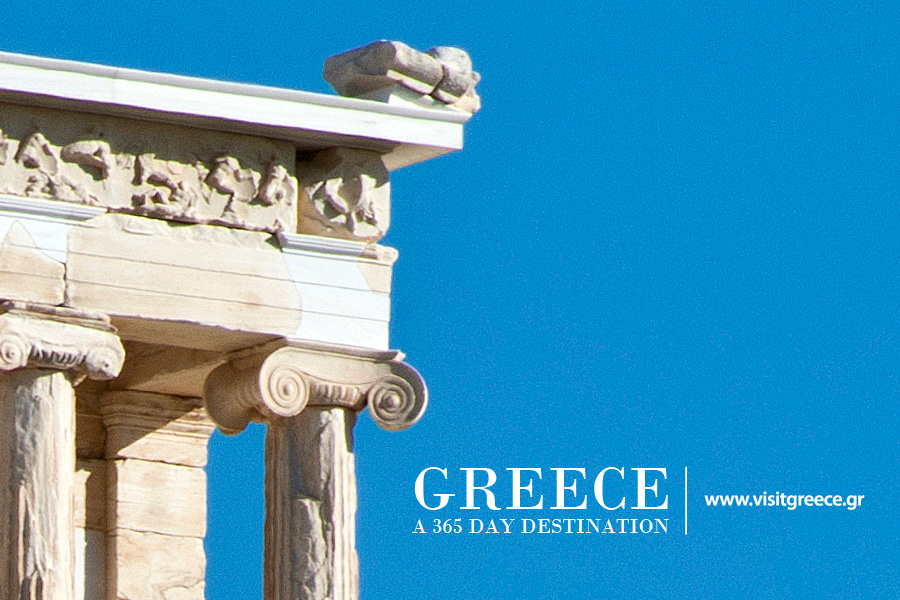
Athens
An attractive modern metropolis, is the historical capital with a fascinating history. The city’s unique, splendid monuments are connected in a 3-kilometre pedestrian zone, leading to the major archaeological sites (“archaeological park”), reconstructing – to a large degree – the ancient landscape (Acropolis Museum, Hill of Acropolis, Thiseion, Ancient Agora, Plaka). Kallimarmaron stadium, Column of ancient god Olympian Zeus and the theatres of ancient god Dionysos and Herod Atticus are also near the area. Visiting museums, galleries, attending events and shopping or tasting delicious cuisine and drinks are the must of the city tour.
In 30 minutes to the south, you are at the coast of the Saronic Gulf and southern suburbs to take a walk along the seaside, while you will also find many beautiful organized and free beaches, restaurants, bars, recreational and cultural parks and nightclubs. Also, in the area you may find many opportunities to hire a sailing boat or a yacht to the islands. The coast by the sea leads to Sounio’s archaeological site, where the amazing temple of ancient god Poseidon located on a rock by the beach. On the other way of the southern coastal line you may find the neighboring town of Piraeus, Greece’s main port with lively restaurants by the sea. Daily trips are operated from the port of Piraeus to the islands of Saronic gulf (Aegina, Poros, Spetses, Hyrda, Salamina), easily accessible all-year-round. Visitors here will enjoy natural beauty, historical treasures, unique architecture, and glamorous, yet romantic atmosphere.
On the other direction, to the northern coastal line, is Marathon tomb at Marathonas village, from which the “Marathon” races got their name, due to an ancient historical event. Near there, close to the beach, is Vravrona site with the Temple of ancient goddess Artemis.
Eleven kilometers (6.8 miles) northwest of central Athens, is Dafni monastery, a byzantine monument constructed on sixth century on the site of the Sanctuary of ancient god Apollo and one of the four Ionic columns of the ancient Sanctuary remains at the site. Dafni is lied on the “sacred way” that led to Eleusis, known as the town of the ancient Eleusinian mysteries. In Eleusis there is an archaeological site and a museum, which worth your visit.
Additionally, a lot of wineries for wine tasting, mountains (Parnitha and Penteli) for hiking, cycling and walking tours give more opportunities for unforgettable holiday experiences in Attica.
Thessaloniki
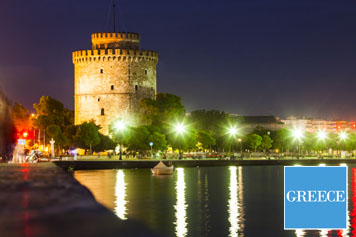
The numerous monuments, dating to many historical periods, coexist in a singular and charming way and manifest Thessaloniki’s historical multicultural and cosmopolitan nature. Elegant and refined, the “Lady of the North”, as it is called, is a modern city full of life, which welcomes those searching about its history and culture, or for fun, relax and shopping. History has deeply influenced the local cuisine as well, which offers a lot of recipes.
Near the city lies the Halkidiki peninsula, which is full of nice beaches and hotels. Here is the town Stageira, which is Aristoteles’ birth town, the famous Petralona cave and many wineries with famous excellent white wines, as well as, red wines mentioned in the writings of Aristotle. Also, only men can visit inside the Mount Athos (Agio Oros =Holy Mountain) with the monasteries on the rocks by the sea.
One hour by car from Thessaloniki, in the area Central Macedonia, you can visit the town Vergina, where was the ancient city called Aigai (“land of many flocks” in Greek) and it was the first capital of ancient kingdom of Macedonia. Here is the site of the Royal Tombs of ancient the Macedonian kings and the famous family tomb known as the “Tomb of Persephone”, with the incomparable fresco of the abduction of Persephone by Hades. The site is protected by UNESCO as World Cultural Heritage.
One and half hour far, in eastern Macedonia near Kavala, is the archaeological site of Philippi, which also belongs in UNESCO’s list of World Cultural Heritage Monuments. The town renamed by ancient king Philippos II (Philippos, means “friend of horses” in Greek), the Great Alexander’s father and used it to control the neighboring gold mines of Mt. Paggaio, where he installed the Royal Mint. The city held a leading role of the Roman Empire on Via Egnatia (Egnatia Odos =street). Apostle Paul visited in 49-50 BC, in his second and third missionary journeys, he founded the first European Christian church and the settlement went on being the metropolis of Christianism. By the 7th century AD people left the city due to big earthquakes and the Slavic raids. During the Byzantine Period the town was a fortress with an Acropolis. The site includes the agora, a 40 sq.m. mosaic floοr, a palaestra with a little amphitheatre, a Roman Cistern where Romans imprisoned Apostle Paul, the Octagon, a large temple complex dedicated to Apostle Paul and three aisled basilicas churches dating back to 5th – 6th century.
Source: www.visitgreece.gr

The first women’s entrepreneurial mission to Israel took place from the 12th to 20th of October 2018. The mission’s goal was to learn about the start-up ecosystem in the “Start-Up Nation,” to gain inspiration from relevant examples, and to establish personal contacts for future collaboration. Twenty-two women participated in the mission, including CEOs, investors, and top managers from corporations, NGOs, and academia. Gender diversity of the mission was also ensured by the participation of a male student from a private graphic arts high school. Linda Stucbartova organized and led the mission in collaboration with Igor Neumann from CK Kareta Tour, both as members of the Czech-Israeli Chamber of Commerce.
The mission visited ten different companies and institutions: Herzliya Accelerator, Pico Investments, Maskit, Red Hat, IDC Beyond, Pearl Cohen Advisory, Amazon, Ministry of Foreign Affairs of Israel, OurCrowd, and Mobileye. In the space of only five days, the mission participated in eighteen presentations and meetings with more than forty Israeli contributors from select start-up incubators, accelerators, investment funds, large corporations, as well as academia and the non-for-profit sector. The Israeli participants always greeted the mission with enthusiasm and appreciated the mission members’ proactive approach to learning and their desire to discuss potential mutual support and collaboration in the future. The mission got attention from media and was mentioned by the Israeli ynetnews.com portal.
The mission also visited the Czech Embassy to Israel in Tel Aviv and met with the Charge d’Affaires, Katerina Moravcova, and the diplomat in charge of science and technology relations, Delana Mikolasova. The Israeli-Czech Chamber of Commerce organized an informal evening networking session that introduced the Chamber’s activities and women members, as well as the new concept of Pepper banking. The representatives of the Israeli-Czech Chamber of Commerce promised to reciprocate and visit the Czech Republic in 2019.
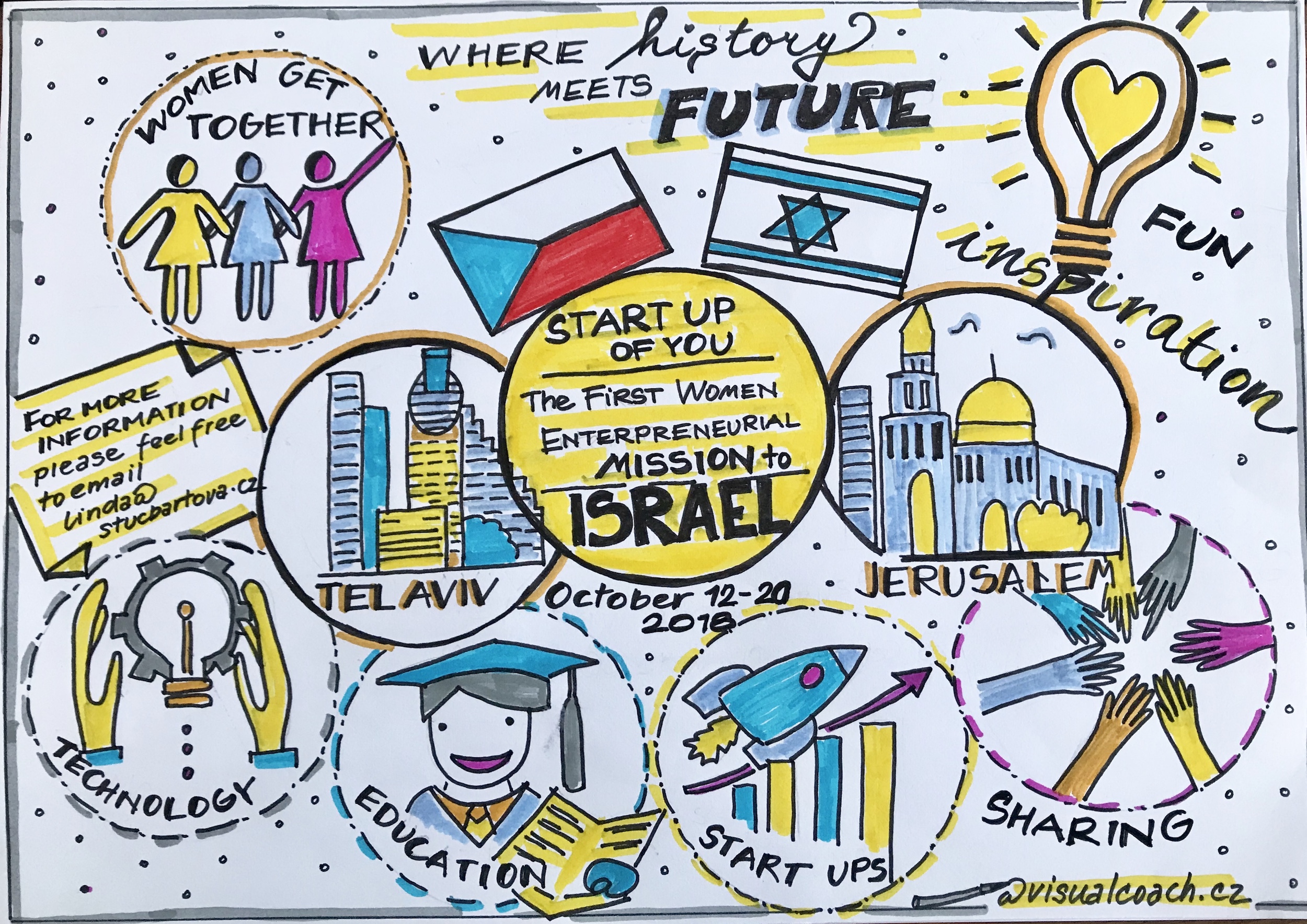
Marcela Janíčková, a founder of Visual Coach, as one of the participants kindly provided active life sketchnoting of all presentations
The cultural program consisted of excursions in Tel Aviv, Jerusalem, Massada, and a one-day trip to the Dead Sea. Most of the participants were visiting Israel for the first time and appreciated the opportunity not only to learn about the Israeli start-up ecosystem, but to also experience on their own a country whose image is often distorted by the media.
It is impossible to summarize all the insights and presentations that we had in this short briefing, and that is why I have extracted ten inspirational insights that were most often cited to explain how Israel, which began by exporting oranges, became a nation of start-ups and innovative new technologies:
- “Tachles” or “let’s do it” approach is fundamental for fast and effective connection with Israeli partners.
- The Israeli market is limited. All products and services are therefore conceived with the global market in mind.
- Failure and lack of success is not a stigma, it is only a step towards improvement and success.
- Status quo is not good enough. Even top-level services and products must be constantly improved upon.
- Every book has many pages. Do not be afraid to write your own story.
- Diversity is not only a slogan. Israel’s success is the result of more than 70 different nationalities and they like to emphasize this fact.
- Solidarity with others and the need to give back to society are very important in Israel. Large corporations allow their employees to spend up to 20% of their working capacity on practical projects with social impact.
- The recipe for success according to one of the most successful investment companies: V+M+C+A = S²
Values + Mission + Creativity + Action = Success Squared
- The role of the government and state institutions is not to regulate. Rather, their role is to provide optimal conditions so that businesses and other entities can fulfill their role to their best ability.
- The friendship between the Czech Republic and Israel is longstanding and built on common traditions and firm foundations. However, in the dynamic conditions of the 21st century, these are not sufficient for growth Let us therefore build on this extraordinary friendship and continue to develop and nurture it.
The success of a mission is often measured only by the satisfaction of its individual participants. In this case, the mission was successful because it led to both high satisfaction as well as specific follow-up programs that will be launched thanks to our Israeli inspiration. The participants were very impressed by, for example, the concept of the Herzliya Accelerator and OurCrowd and their implementation in the regions, the automotive security system of MobilEye and the company’s efforts to promote safety in public transport, and the increased support given to projects focused on combining technology with health prevention.

Linda Stucbartova and Diversio will continue to actively promote Czech-Israeli relations, make connections, and support individual projects. Future projects include a high-school initiative to develop students’ entrepreneurial skills in combination with robotics, a second mission to Israel in 2019, and the founding of the first Israeli-Czech accelerator focused on technology and supporting women.
This mission would not be possible without the support of His Excellency, the Ambassador to the Czech Republic, Daniel Meron, and his deputy Irit Amitai from the Israeli Embassy in Prague; the Charge d’Affaires, Kateřina Moravcová, and the diplomat responsible for science and technology relations, Delana Mikolašová, from the Czech Embassy in Tel Aviv; Dr. Raviy Zadok and Dr. Andy David from the Ministry of Foreign Affairs of Israel; Karel Kortánek and Tomáš Pojar from the Czech-Israeli Chamber of commerce, and David Hercky and Assaf Dovrat from the Israeli-Czech Chamber of Commerce.
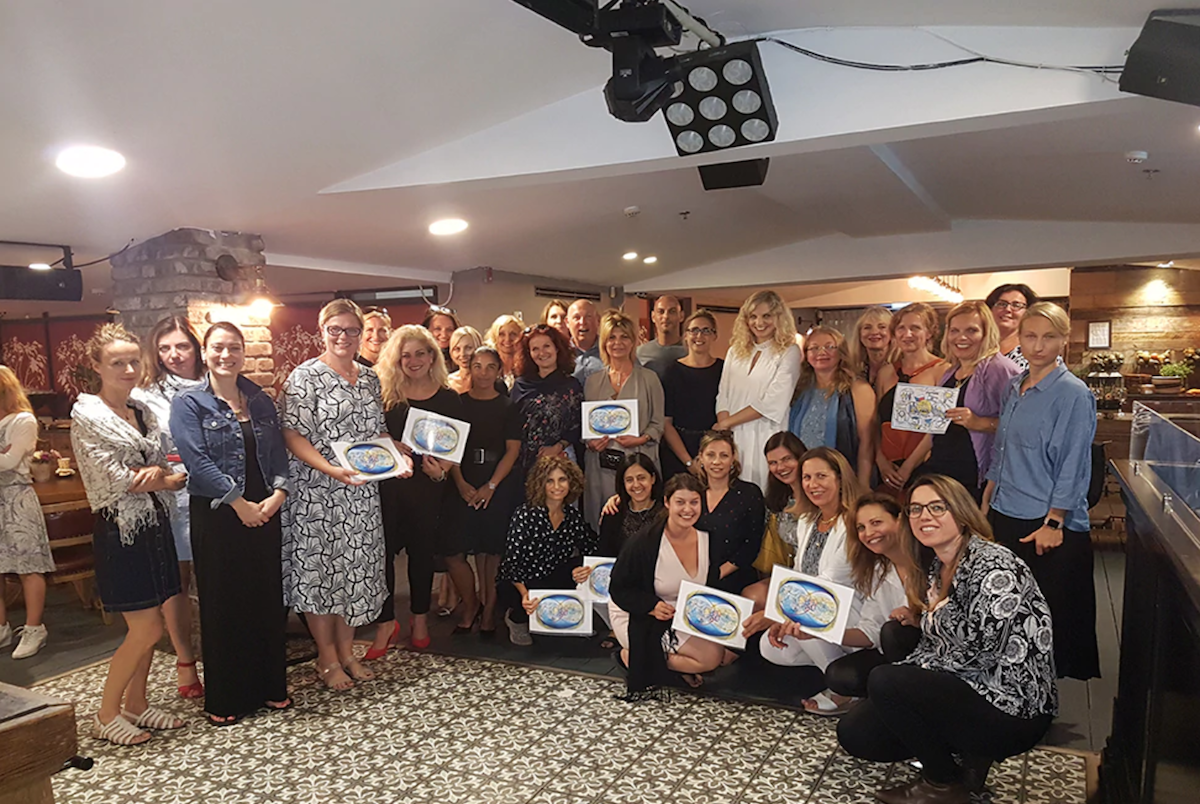
On behalf of all the participants I would like to cite feedback from Jana Hrstkova, Operating Principal of Keller Williams, Member of the Board of the Jan and Meda Mladek Foundation, and President of the Harvard Alumni Club in Prague:
“Missions are generally the modern way to support new projects and represent an effective tool for making personal connections with foreign partners. Another goal is to create synergies and a program that will satisfy the maximum number possible of the delegation participants. I think that this first women entrepreneurial mission to Israel fulfilled the vision very well. We had the opportunity to meet with partners from the Herzliya Accelerator Center, PICO Investment Fund, RedHat, IDC Beyond, OurCrowd, and MobilEye, among others. Personally, I was most taken by the example of the most successful Israeli start-up MobilEye, which offers a very sophisticated technology that assists drivers, and which can serve as inspiration for the Czech Republic. The program was very professional and thorough. A huge thank you to Linda Stucbartova from Diversio who prepared the program and supported it professionally, as well as to the Czech Embassy in Tel Aviv, the Ministry of Foreign Affairs of Israel, and the Israeli-Czech Chamber of Commerce. I would recommend the mission to all those who are interested in new trends in technology, investment opportunities, start-ups, and education. I’m already looking forward to the next mission which Diversio plans for Fall 2019.”
By Linda Štucbartová
Finally, a poem written by Lenka Cabelova, Communication and Storytelling Expert.
Welcome home
Welcome to the city
Whose backbone is a bike path
Where balconies breathe
And town squares smile
Welcome to the city of round corners
A garden in the desert
Despite the fragility of being
Again and again
It opens its whole heart to you
Abstract beauty composed in concrete
Modestly covered by a green veil
Like a pearl diver I float through the streets
And one by one string them on a thread of wonder
Many cities show off their street art
The art of city astounds in the white city
I am here for just one day
And I am not a stranger
Even I have the right to return
Welcome home, it whispers…
“I am here to give back”
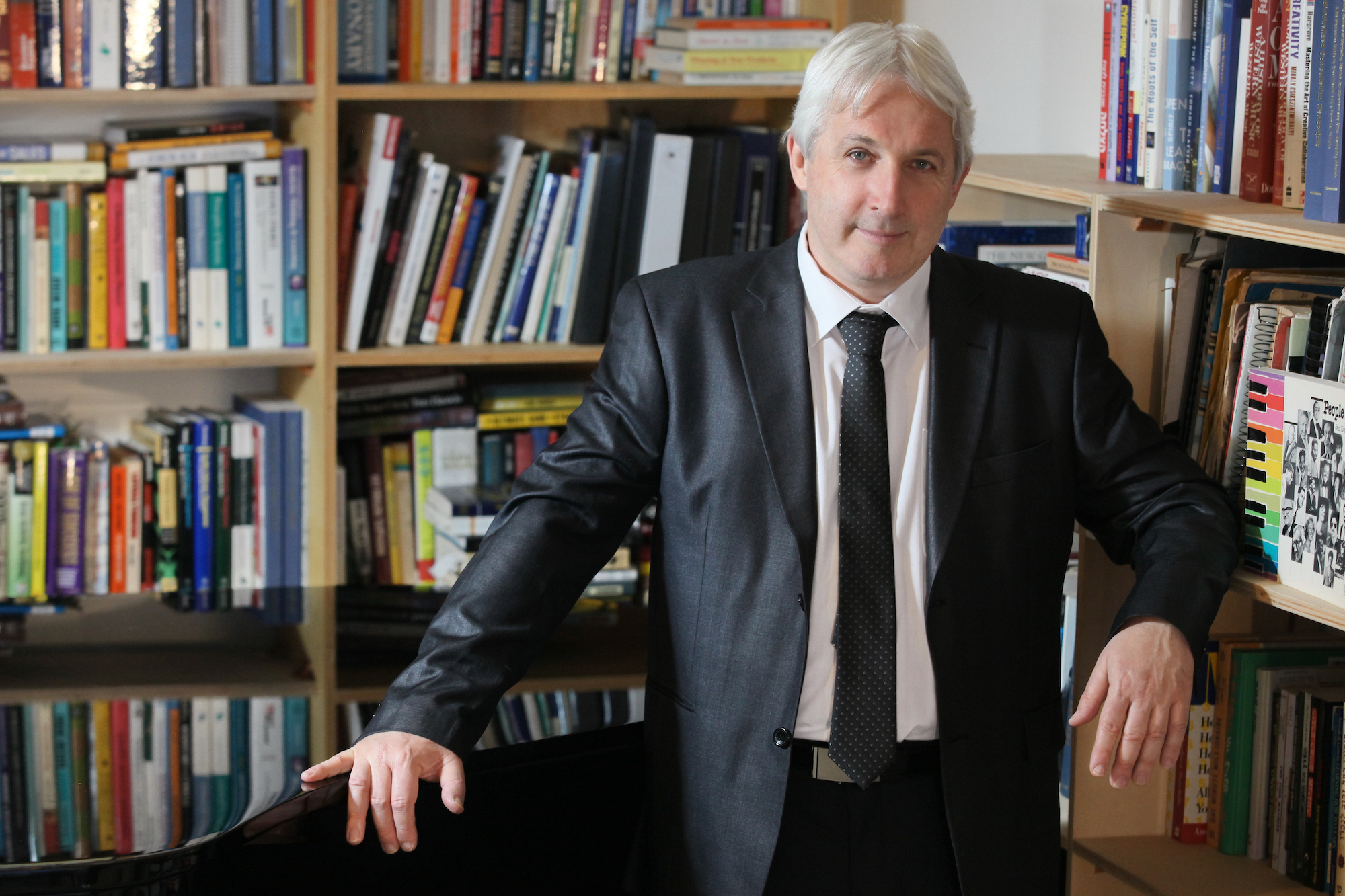
Opher Brayer, Israeli mentor, coach and teacher
Opher Brayer is a leading Israeli expert on talent development, mentor, coach and teacher, known for his activities in both the corporate and educational world. In 2016 he started his educational activities in the Ústí nad Labem region. In his interview he does not only discusses his activities but also his views of Czechs, today’s world and philanthropy followed by business opportunities.
For more information, go www.stages.global or to YouTube channel.
Opher, you started your educational activities in Ústí nad Labem. To use an Israeli parallel, will Ústí nad Labem become the second Ber-Ševa?
Each country has its own specifics. Ber-Ševa in fact can serve as an example of a city built in a desert, which thanks to a great university and continuous support of the Israeli government became a technology hub for many IT companies and is now leading in cyber security. Ústí nad Labem will have to find its own model. In general, I see the great potential the Czech Republic has to offer. Strategically, its position between the West and the East can truly impact Europe. Czechs are intelligent people with great intellectual capabilities. You need to add entrepreneurship, in the form of both action and courage, and then Czechs can make an impact on the European Union level. Having said this, I need to stress one important element that Czechs are lacking: the vision. I see that the country is living on its past results. You have many entrepreneurial icons, such as Baťa, but his success dates back more than a half of the century. Since then, the world has profoundly changed. Look at companies such as Amazon, Apple or Google that have emerged in the US. From many discussions with Czechs, I have the feeling that you want to live in the past which you tend to romanticize. I was not surprised to find out that the Czech Republic is a country being officially branded as a land of stories. However, the stories are based on past successes, not the current ones. Let us take an example of contact lenses. Such a great invention, but who made money out of it? Americans did. Regardless of nationalities people have the need to feel proud. What are Czechs proud about in regard to current achievements? What is the leadership they demonstrate with regards to a particular industry? I do not see any. On the other hand, I tend to see a focus on the comfortable life style. You tend to retreat to private life a lot, you go and pick mushrooms, ride bicycles, have a nice time with family, you smile, and you choose to be happy.
You mentioned that without a vision, there is no future. What is your vision for Czechs to achieve relevant results with regards to today’s value?
In the past, you were a successful country of engineers. Those were times where you had vision, you worked hard to achieve it and you succeeded. You were amongst the best in chemistry and engineering. This seems to be lost now. My aim is to take the Czech Republic and to change ten cities. It is hard to change the whole country. But if you take ten cities, you change the country. My project consists of four elements and it is centered around the very ecosystem of cities. Cities represent an ecosystem for growth. If you take an example of Ústí nad Labem, 30 percent of people left the city in the past seven years. There are no jobs, which means no future. More cities are likely to follow a similar path of decline, as the companies will be closing their subsidiaries due to international competition and other reasons, such as often mentioned Amazon factor.
The first thing to do is to educate people about what is going in the world to prepare them for the future. I talk to many parents and they themselves do not know what is happening or understand the current world. Most people do not speak English in the Czech Republic. Most information regarding the latest research and development, is easily accessible on the internet, but it is in English. I myself study every morning for two hours about the latest developments. Czech teachers do not know English. They cannot follow the latest trends at a YouTube channel, for example in the sphere of robotics which will take people’s jobs. If teachers do know themselves, they do not feel the need to prepare children for the future. Therefore, educating the people is the first step to the system change. Since people will be driving the change, they need to be engaged and to do so, they need to be aware.
Your project is called Stages. Your work with teachers represents only the first stage.
I started with educating the teachers as they impact the children. Teachers spend up to six hours with children every day. Currently, I work with 26 teachers at eight different schools in the area of Ústí nad Labem and Mnichovo Hradiště. These 26 teachers teach 531 kids. I started this project in three months, after I came as a visitor to the Czech Republic. I trained the teachers, they started to teach the kids and we have phenomenal results. All the information is available on our YouTube channel documenting the Stages project. We have many stories about how teachers transformed themselves and the children.
Now, we go to the second phase, when the parents will be educated through teachers and other parents. In August, I spent one-week training eight “Master teachers” who will become the teachers of the teachers in the future. Next year, I plan to work with 15 cities and our aim is to train 400 teachers, which will impact already 8 000 children. We did not change anything in the school curriculum, as the systemic level change is the most difficult one to pursue. We simply enhance the children’s ability to learn. The teachers spend three to seven minutes in the beginning of the lesson playing games that enhance the ability to learn. In addition to the numbers of teachers involved and teachers impacted, I am proud to say that we have received positive media coverage, without paying any PR agency. Currently, we are discussing the possibilities to get government support. We hope to spread the concept into adult education and new professions. I intend to bring investors from the United States to invest in the cities to change the whole ecosystem, as I have mentioned in the beginning. We have volunteers, we have supporters, such as ICUK (Innovation Centre of Ústí nad Labem Region) and UJEP University and until now all the investments has been made by me and my partner. So far, we have not received any financial support at all.
You mentioned that the reason why you came to the Czech Republic is to pay back the help Czechoslovakia provided to Israel by providing arms during the War of Independence. I understand this emotional part. However, Israelis are also known as good businessmen and investors. What is the business side of your project?
I maintain that coming to the Czech Republic and helping to advance the educational system is purely my personal motivation. I am not supported by the Israeli government either. The investment money will follow later but not from the education system. I came to change the education because this is what I know the best. Let us assume I will help to raise 2000 geniuses, true experts in science, technology and AI. They are most likely to leave the country because there is no ecosystem ready to absorb them. There is no need to raise the geniuses if you do not have the system ready to support them. That is why I talk about the ecosystem. I can illustrate this by a very moving story. In one of the teachers training, a teenage boy aged 16, came to me and begged the teachers to use “Stages system” to support his little brothers not to leave the region. He said: “You have already lost me as I see I have no future here. I wish I could change this for the others.” Had this statement appeared in the US on the Oprah Winfrey show, all the US would be crying. In the Czech Republic, it seems that no one cares, that is why we make money in Singapore, Silicone Valley and other countries.
Working with underprivileged children is a feature that makes your project unique. Often, educational projects concentrate on finding and cultivating the top talents.
Again, Israel can serve as an example. A unique project Unistream was founded approximately 30 years ago, bringing Jewish and Muslim children together to build start-ups. These teenagers are helped and mentored by CEOs of major companies, and they also get investments from venture capital. Imagine that children from underprivileged environment have much better ideas than some talented adults. The project was started by an individual who came from a similar poverty-stricken environment and he decided to launch the project to help others. It proved to be successful. In the Czech Republic, we work with Roma kids. What is their main challenge? The same faced by the majority of population. Remember how I talked earlier about people’s need to feel proud? Roma children have very low self-esteem. Working with my methodology, they realized that they are talented and that they can solve riddles very easily. In mixed classes, Roma kids see they have the same abilities as other kids, because they can problem solve like their peers. We are back to the self-esteem. In the Czech Republic; I hear everywhere “It is not possible”. Only people with low esteem have a fear of failure and that is why Czechs are obsessed with waiting for the academic proof. There was not academic proof behind Google, Facebook, and Airbnb before they were invented. We live in the disruptive world. In the US, people say “Yes, we can”. The world can change. In Israel, we say “Just do it”. This is what I do. I am always interested in partnering, get in touch if you know about an educational institution, city or a region that is interested in joining Stages or if you are interested to partner as a business.
By Linda Štucbartová
This year’s Future Port Prague will open the question of ethics in the field of artificial intelligence, among other topics, and ask how to define the relationships between humans and machines
Artificial intelligence (AI) and its role in the area of robotization and technologies, and related topics – how to define and solve ethical questions of a technology which will play a key role in the lives of people in the foreseeable future. Artificial intelligence has already changed entire disciplines – in healthcare it helps with diagnosing diseases including cancer; it is the central technology of autonomous transportation or even in the management of whole cities. It is estimated that within ten years AI enhancement will be an absolute must in most expert professions. However, although the benefits are unquestionable, it is necessary to initiate a transparent debate in the area of ethics as well. Currently, the EU Commission is discussing an EU Parliament’s Resolution regarding whether robots should obtain a legal status of a so called ‘electronic person’. It is a result of the expectation that artificial intelligence will experience a massive entrance into all areas of human activities in the future, including personal life. And that is the reason why Ethics in Artificial Intelligence is one of the main topics of Future Port Prague 2018 – an international festival and conference on the future, which will be open for public this year again in Pražská tržnice (Prague Marketplace) in Holešovice, in September 6–7, 2018.
“I believe that it is necessary to start a sensible discussion on the topic of ethics in artificial intelligence. Ethics in machines is beginning to become a huge new discipline, as big as Blockchain has become,” says Nell Watson from Singularity University (USA), a leading world expert on AI, machine intelligence and the relationships between machines and humans
This year’s Future Port Prague will host an international expert symposium focused on ethics in the field of artificial intelligence. Nell Watson, the supervisor and co-organizer of the symposium, is inviting leading world experts and influencers in the area of ethics and machine behavior, robotization, simulation of emotions and relationships between machines and humans. The invitees include such names as Wendell Wallach, Louis Rosenberg, Francesca Rossi, Max Tegmark and Stuart Russel, Steve Omohundro, Ben Goertzel and David Hanson from Hanson Robotics.
“The combination of Machine Intelligence, Blockchain and Machine Ethics creates new and revolutionary ways of organizing society and building trust between individuals and institutions. It could bring about a tremendous growth in human welfare in the next decade – if we do it right,” says Nell Watson, who would like to use the symposium to move these topics beyond the boundaries of research centers and bring them closer to society and the public.
“Touch the Future”
Future Port Prague 2018: Conference / Festival / Workshops
Future Port Prague 2018, similar to last year, is bringing influential persons from all around the world, as well as live presentations of future technologies – drones, autonomous and electric cars, mixed reality, robots for both industry and personal use, smart technologies and news focusing on the future of energy and healthcare.
Following the first year’s success, the festival and expo Future Port Prague will be expanded to two days and a larger area. The one-day Leaders Conference will be now accompanied by follow-up practical workshops, which will allow the participants to get practical and deeper understanding of specific toppics. The whole event is shaped in the spirit of its motto “Touch the Future” – innovations and technologies are not only discussed, but they can be literally touched there.
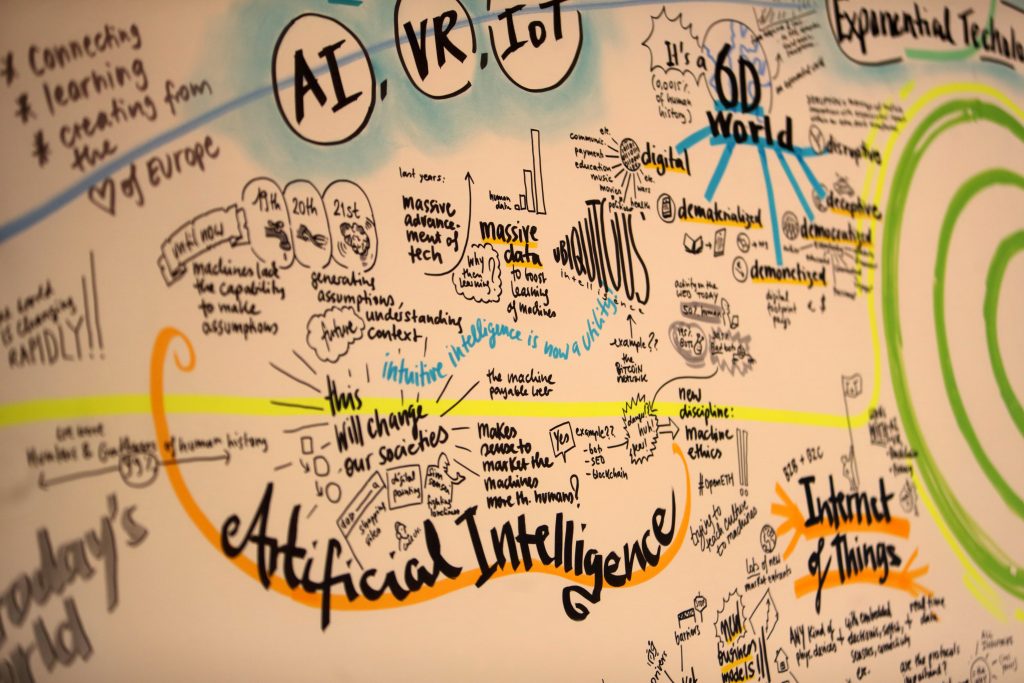
“We had a bold mission last year – to create a platform which would bring together a unique mix of top international experts, visionaries and hundreds of innovative companies, with the objective to present a living picture of the exciting development of new technologies and to show these to people up close,” says Martin Holečko, CEO of the Festival and co-founder of Etnetera Group.
The following topics have been selected as the main areas of exponential technologies for this year:
- Artificial Intelligence
- Future of Mobility
- Mixed Reality
- Blockchain (New)
- Smart Technology
- Future of Manufacturing
- Future of Energy (New)
- Future of Healthcare
Future Port Prague will again welcome dozens of speakers from all around the world this year. The following experts have confirmed attendance so far: Dr. Anita Sengupta – NASA cosmic engineer and vice-president of Virgin Hyperloop One, a company of the world-famous billionaire Richard Branson; Charlie Fink – American futurologist, Forbes correspondent and former vice-president of Disney and AOL; and Dr. Larry Sanger – Wikipedia co-founder and Everipedia CIO.
The Festival will present over 150 exhibitors from top world innovative companies, from start-ups to technology giants. As usual, the Future of Mobility will be a strongly represented section. Apart from the novelties such as the futuristic water taxi Seabubble, Prague is also looking forward to the return of the autonomous bus Navya, which will offer the visitors a ride this time around.
During the whole event, the participants of the Conference and Festival will now be able to enjoy practical Workshops presenting how to start using the technologies and methods of exponential leadership.
“Technological progress of the next twelve months will move as much forward as it did over ten years just a few decades ago. Considering such speed of advancement, there is no time to waste. Future Port Prague will not only offer you an updated overview of the trends and impacts of technologies, but also motivation; you will learn about specific steps suitable for your company or organization and get in touch with experts who can help you with the application of exponential technologies,” adds Holečko.
The Future of Cities, the Future of Play and even the Future of Humans, together with the Future Jobs trade fair and other events will supplement the main program
Apart from the main program, Future Port Prague will introduce additional sections such as the Future of Play, focusing on technologies in the area of toys and fun, and the Future of Cities which will present plans for using modern technologies in public space. Also last year’s concept of the Future of You is going to be expanded, exploring the impact of technologies on humans from the perspective of education, labor market, family and society. Another new element of this year’s Festival is the trade fair of job opportunities in the field of modern technologies – Future Jobs.
Under the umbrella of Future Port Prague, a range of meetings will be held where the key international speakers and the supervisors of the Festival’s sections will discuss visions for the Czech Republic in the areas of mobility, energy industry, healthcare and manufacturing with influential persons of Czech business, representatives of state administration and municipalities, as well as with other experts.
The main partners of the Festival are Škoda Auto Digilab, Deloitte, Google, and Etnetera Group.
Follow Future Port Prague:
www.futureportprague.com | facebook.com/futureportprague/ | twitter.com/FuturePortPRG
#FPP18
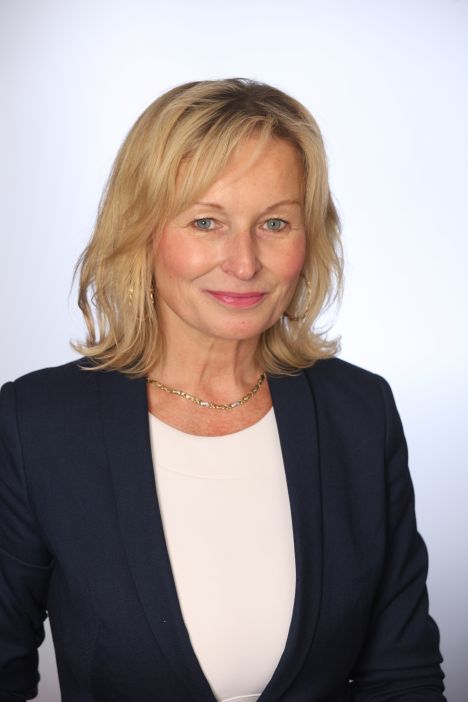
Tereza Urbánková
Many inspirational quotes on success seem to have one aspect in common – they combine both success and failure. Considering that some companies nowadays even ‘permit’ failure, perhaps there is something in this dichotomy worth exploring further.
Take Winston Churchill’s “Success is not final; failure is not fatal: it is the courage to continue that counts”. Or James Joyce’s “Mistakes are the portals of discovery”. Such statements may imply that failure is not opposite to success but actually a key factor in achieving our aspirations and goals; it is apparent here we don’t talk only about the act of failing, but about a journey on which we learn and change as we keep on progressing in our career and life.
Nowadays, in this fast-paced and continuously changing world, the ability to adjust is more important than ever, as well as the ability to learn through failures about how we need to adapt and grow to be successful. According to evolutionary scientist Charles Darwin, “it is not the strongest that survives; it is the one that is most adaptable to change.” For many, however, a failure may seem to be an unsurmountable hurdle. Be it failing in a job, community, social media, relationships, family, or elsewhere, it can bring down even some tough individuals.
Having grown up in the environment that didn’t support achieving success outside mandatory boundaries or being original and different taught me a lesson. In deep communism, many people were failing one way or another: professionally, when they tried to succeed outside the limitations and were pushed back to their place by ruling authorities; morally, when their success was achieved through collaboration with the regime; or personally, when they didn’t even have enough courage to try for the fear on implications on their dearest ones. Actually, a professional failure was at times perceived as a better option than success because success may have implied you became a regime ally. This naturally changed after the Velvet Revolution in 1989 when everybody suddenly acquired an equal opportunity to try to succeed, and many didn’t know how to handle it.
It may be, however, surprising that nowadays some companies encourage and allow failure, and effectively celebrate it; they perceive it as a necessary means to building an innovative culture. Businesses such as these aim at creating a fiercely experimental culture that is disrupting industries. The two that come to mind are Coca-Cola and Amazon. Do you remember the ‘New Coke’ fiasco in 1985? In the effort to reenergise the iconic Coca Cola brand, this move created the firestorm of consumer protest which ensued and subsequently ended with the return of the original formula. Last year, its CEO publicly talked about going beyond the fear of failure and shaking off a culture of cautiousness. Amazon CEO Jeff Bezos, arguably the most successful entrepreneur in the world, makes the case directly when he claims his company’s growth and innovation is built on its failures. To prove his words, the Fire phone fiasco is probably comparable to the New Coke attempt. As he explains: “This is about taking bold bets and if you do, they are experiments and you don’t know ahead of time if they are going to work. But a few big successes compensate for dozens and dozens of things that didn’t work.”
The message from these CEOs is as easy to understand as it is hard for most of us to put into practice. We tend to take failure hard because we forget that success is achieved through trying, and trying often ends in failure. Without failure that ‘forces’ us to reassess and rethink how we do things, progress would be impossible. There are many business leaders and organisations that espouse the virtues of innovation and creativity, yet so many of these same leaders and companies live in fear of mistakes and missteps, bringing barriers to innovative efforts.
Nevertheless, would you permit any failure? There are failures and there are failures. Some mistakes may be fatal – products which can harm people, for example. At no time can management be casual about issues of health and safety, so encouraging failure doesn’t mean abandoning supervision, quality control, or respect for sound practices. Just the opposite. It requires senior leaders to be more engaged, not less.
Although mistakes are inevitable when launching innovative programmes, management teams cannot shy away from their responsibility to assess the nature of failures. Some are excusable errors; others may be much more serious. Those willing to take a close look at what happened and why can usually tell the difference. Failure-tolerant leaders identify excusable mistakes and approach them as outcomes to be reviewed, understood, and built upon, and as an opportunity to learn, grow and move forward.
Obviously, every mistake comes with a short-term setback. While these setbacks may be impossible to ignore, try not to dwell on them as focusing on people’s mistakes will only make them increasingly afraid of failure and less likely to take the necessary risks to do truly outstanding work. In a nutshell, turning failures into opportunities and moving forward, a little bit wiser, is the best way to approach this topic.
Failure forms an integral part of our lives. And if you don’t try, and fail, you are failing to live.
By Tereza Urbánková
Tereza Urbánková is a PR, communications and marketing professional with 20 years’ experience and proven success in delivering award-winning communications programmes for multinational companies operating in industries such as hospitality, retail, IT, defence, broadcast, logistics, pharma and engineering. After having lived and worked in the UK for 11 years, she now works in Germany for Boehringer Ingelheim, a global pharmaceutical company, as Head of Global External Communication, Animal Health. Tereza is a member of the Executive Committee of the Czech British Chamber of Commerce in London. She speaks Czech, English, Spanish and Russian and can be reached through her LinkedIn profile.
On Keller Williams as an Extended Family, Values and Changing People’s Lives
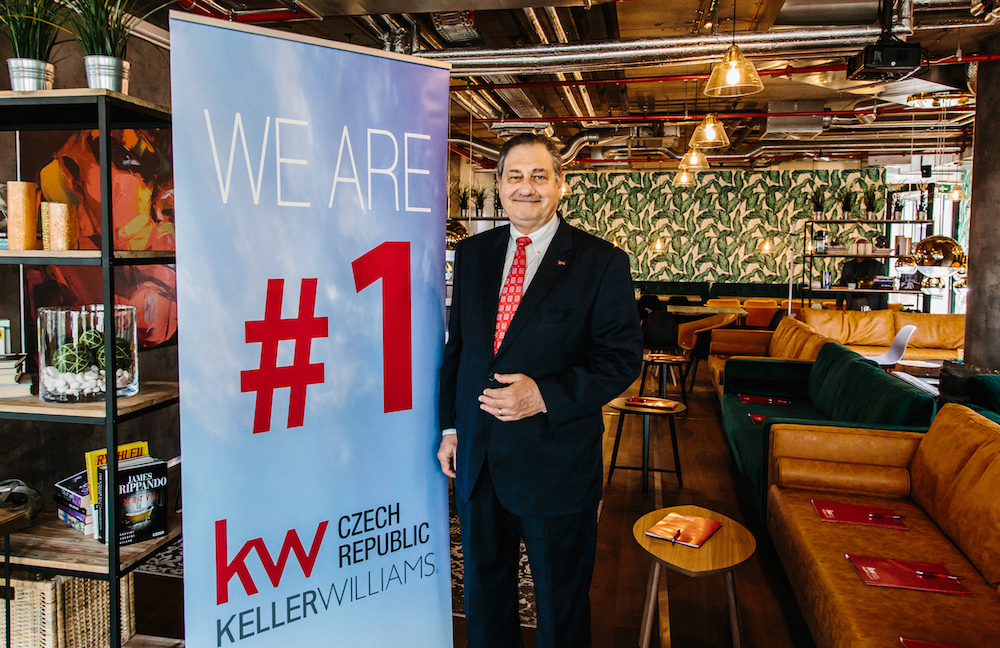
William E. Soteroff, President, Keller Williams Worldwide
“Did you start your day with a hug?” Well, you probably should have. William Soteroff, a true leader, an entrepreneur, an expert in franchising, and a motivational speaker, is a strong believer in the seven hugs per day practice. I would characterize him as a man of contrast and clarity at the same time. Contrasts as to his life story which took him from an archeology student to an accountant and eventually to real estate, followed by leaving the most successful company as he did not feel the values and people were respected, to join and help build Keller Williams, the biggest real estate franchise with more than 180 000 real estate agents in 950 Market Centers. Clarity as to the values and his walk the talk authentic leadership. He was born in Canada, but currently lives in Austin, Texas. He connects the seemingly unbridgeable in bringing values, modern technologies and community spirit to an industry that we tend to associate with solo-entrepreneurs, one-time deals and traditional haggling approaches. Our interview held at the opportunity of Keller Williams entering the Czech market, turned into amazing and enlightened discussion about history, business and leadership. We ended with a hug.
Great leaders can be recognized by the ability to connect, by showing a genuine interest in others, by their capacity to inspire others and last but not least by creating a comfortable environment in the volatile world of today. After I witnessed Bill launching the first official training day for KW market center agents, I fully understood why KW was mentioned as the no. 1 training organization across all industries, no. 3 on list of happiest companies to work for in 2017 by Forbes and one of the top 50 Franchise for Women.
Bill, welcome to Prague. The Czech Republic joined a big family of KW on June 4, 2018. How do you perceive the Czech Republic?
I truly feel connected to your country and to the region in many ways. I was born in Canada and since my childhood, I have been interested in history. Already as a school boy, I followed the news of the Hungarian uprising in 1956. Growing up in Canada, I knew many famous Czech immigrants, such as famous Tomáš Baťa or Tomáš and Marie Jelínek, the famous ice-skating pair siblings, who did not want the Canadians to forget what happened in 1956. As a high school student, I witnessed, albeit from distance, 1968 Prague Spring and subsequent Soviet Occupation. I remember that when I went to Berlin, from the West part I was allowed to visit, I could not see the front side of the Brandenburg Gate. I want to share with you the most amazing moment I had when my daughter took me back to Berlin recently and I was able to see the Brandenburg Gate, as I had never imagined I would live to see the regime change. And by the way, in 1989, I was working in neighboring Austria so again I had a chance to witness the fall of the Berlin Wall and subsequent Velvet Revolution from the region. Every city I visit, I want to know what happened there. Therefore, the first place I have visited in Prague was the church of Cyril and Method where the parachutes died after assassination of Heydrich.
My next question is about the current real estate market. I will refrain from the traditional question whether to buy or sell, rather I am interested in trends and outlook.
This is a question I am always asked. Everywhere in the world, people want to live in a house or an apartment and they always want to improve the living conditions. The challenge is that you do not know exactly how much your place is worth. That is why you need an expert to find out the exact price. The economy in today’s world changes so dramatically, that within just a couple of weeks, the price can skyrocket or plummet. I see three really good economies in Europe, Poland, Germany and the Czech Republic. The Czech market place is very robust and strong. But I always make sure people are cautious. Like men’s ties go wider and thinner or women’s dresses go longer or shorter, do not get too comfortable in any economy with a long period of recovery. Keller Williams leader and founder Gerry Keller points out that the shift in the economy will come eventually. Our job, as real estate agents, is to know when the shift is coming and it’s necessary to help our clients during the shift. Do not believe that the shift will not happen. Politicians seem to be always surprised but we as experts must be ready to advise properly.
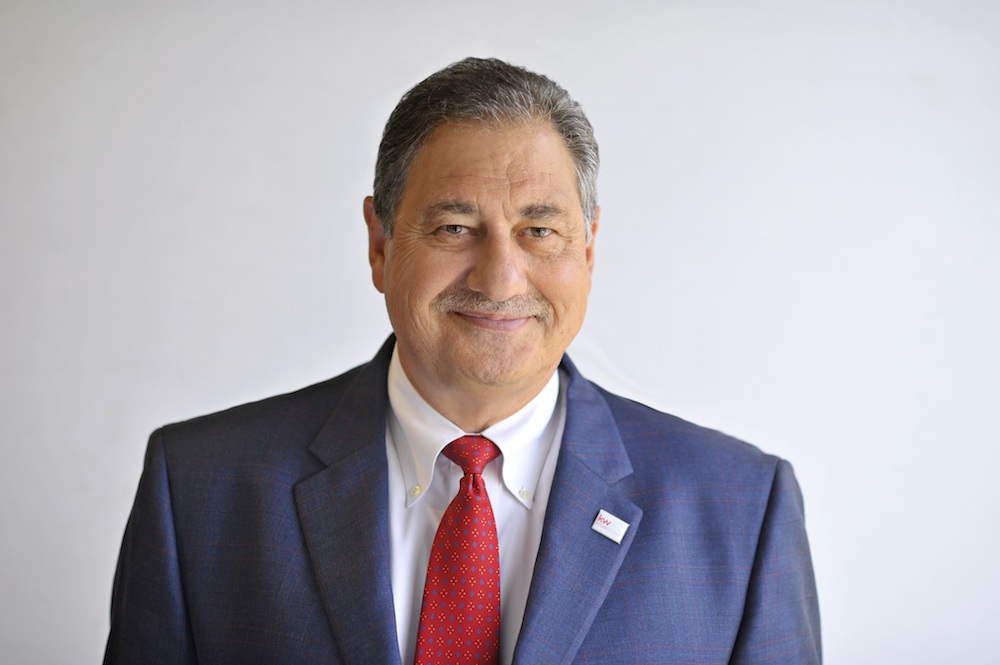
William E. Soteroff, President, Keller Williams Worldwide
You mentioned that this is the perfect time for Keller Williams to enter the Czech market. However, the main reason is not the current stage of the economic cycle, but the leadership represented by Jana Hrstková, the Czech market leader and Operating Principal of KW.
(Note: Those who know Jana Hrstková personally, are aware that she is one of the most modest people when it comes to her achievements. However, she has made a successful career, both as an entrepreneur and a lawyer. She is a graduate of Harvard Law School and the President of Harvard Alumni Club. With her passion for art, she is also on the Board of Jan and Meda Mládková Museum Kampa Foundations, a co-organizer of Burn’s Night in Prague, a founder of several start-ups with her husband, and a great mother).
My job is to look and search for the great leaders. Jana, being an excellent lawyer, and, entrepreneur, has gone through the challenging one-year process to launch the Market Center. Under the auspices of Keller Williams Systems, she has successfully formed a business within the Keller Williams system and she became the Operating Principal. She works closely with the Regional Director who is responsible for growth and the Regional Administrator. She found another great lady, Jarmila Rádlová, who will lead the first franchise Keller Williams Prague Prime and they also engaged 24 market center agents.
As you can see, our systems are more advanced, not relying on usual individual or a couple scheme opening a real estate office. We did not allow Jana to open the market prior to nine months of coaching and training, including several visits to Austin, Texas and finding the right people. Why? One person cannot change anybody’s mind. Currently, we have one market with 24 market center agents, my expectations to have four market centers quite soon. I have mentioned during the press conference that the future belongs to females and we are proud that we have Jana Hrstková and Jarmila Rádlová as visionary women leaders at Keller Williams.
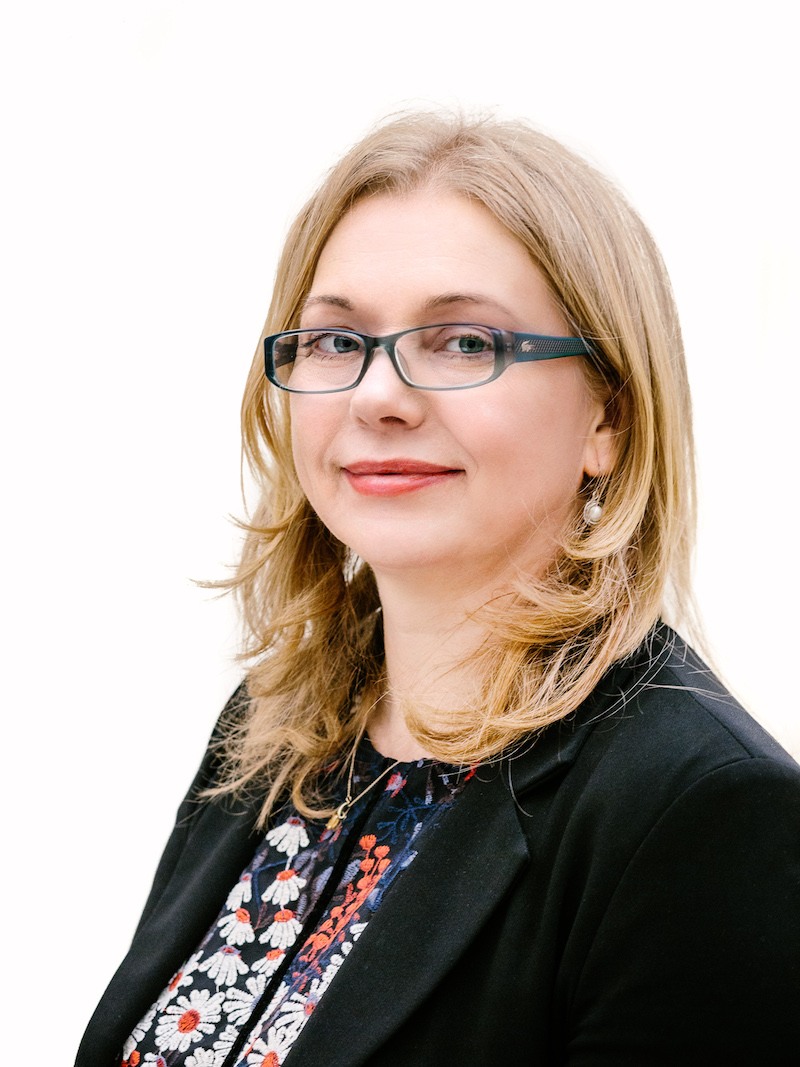
Jana Hrstková, Czech Market Leader and Operation Principal, Czech Republic
You are known to attend every KW family reunion that each country holds. How many trips have you scheduled for 2018?
This is the question for my wife! She will know for sure. She is the most important person in my life. By the way, in July, I will be celebrating my 38th wedding anniversary. Let me get back to your question. In 2018, I have travelled about 180 000 kilometers. I have attended family reunions in Portugal, USA, Spain, Mexico, Turkey, and South Africa. I have visited 10 more countries. In last ten days, I have visited South Africa, the Netherlands, Germany, Belgium, and now I am in Prague. The most important thing for me was to see hundreds of people who were coming to get special training, advanced education and were part of Keller Williams culture. Real estate agents are everywhere, some are better, some are not so good. As I mentioned, at Keller Williams, we offer training, education and the culture exchange that makes the difference. Yesterday, I witnessed a special moment. Imagine ten people having a conversation in different languages but at one moment they all simultaneously said: Keller Williams. I stopped them and mentioned that this is the momentum I want to create. We have representatives from countries where we are present or where we will launch our franchise, we have agents, we have market center leaders, regional leaders but altogether we are Keller Williams as one family.
You are successful in whatever you do. As a leader, an entrepreneur, an expert in franchising, a motivational speaker. Why did you choose the traditional business of real estate, as opposed to trendy areas of law, finance, politics or science and technology?
Except my wife, no one has ever asked me. I met my wife at university and I was studying archeology. I quickly learned that you cannot eat dirt. There were no wealthy archeologists I knew at that time. As you probably noticed throughout our discussion, I still love archeology and I have a passion for art and history. Then I wanted to enter politics because I wanted to change the world. I worked with the government for a while and I realized that politicians do not want to have vision and change the world. Governments do not create businesses. People do. When I wanted to get married and have a family, I looked for the most stable business. Guess which? I went into accounting. Can you imagine me in an office with 70 men, all lined up at little desks and working on big machine calculators? No one talked, no one moved, they just sat and were doing…accounting. One day I left after my lunch break and never came back. I realized I wanted to be an entrepreneur, but I also needed some stability. I got married and I joined the Canadian construction company which provided the stability but also allowed me to bring my entrepreneurial spirit. By the way, I currently teach this very subject “Corporate Entrepreneurs” at the University of Colorado. After 10 years I learned a lot and experienced both side of cycle, as we discussed before. On December 22, I got a message from the CEO about the recession coming and the need to reduce the staff by 30%. I had 16,000 people working for me at that time and I had to get rid of thousands of them. They did not do anything wrong, it was not their fault and many of them had became as close as my family. Companies never reduce payments to shareholders, they never sell property. They always reduce people. I hate that. In 1987, I gave the list with three names – the one of the CEO, the president’s name and my name. I said: “We are supposed to be leaders and we are the ones who did not prepare the rest for the change.” My wife mentioned: “Do you know that we have one year old daughter? And I replied: “I am doing the right thing because I believe that people are truly valuable”. By people, I mean team members, employees, customers, shareholders and suppliers. They should be treated equally, and nobody should be put in front of anybody else. In the US, where I live now, you hear mostly about shareholder value. I often ask and what do we do for team members and all employees? When recession comes, I always suggest reducing shareholders. If you reduce the employees, you reduce your business. To make the long story short, I joined the real estate business, RE/MAX company. I was responsible for RE/MAX Europe and RE/MAX International 98 countries. I left because I did not believe in the company anymore. Keller Williams called me five years ago to develop new markets for them. I said no as I had not heard about them before. They had been quite persistent and kept calling for about a year: “Come and visit us”. I went, and I found everything I had been looking for: valuing people, developing the culture, having a vision for the future. The one thing I regret is that I had not joined 20 years ago.
KW has been mentioned as the no. 1 training organization across all industries. No. 3 on list of Happiest companies to Work for in 2017 by Forbes and one of the Top 50 Franchise for Women. Is the secret sauce of Keller William the notion that you are not a mere organization, you act more like a family?
I joined Keller Williams when I was 58. I had a fear of failure, like everyone has. I moved to a new city, there was a different company culture, I did not know the people, I was not sure if I could be successful again. I met the company founder, Gerry Keller, and I heard: Fail often and fail forward. I replied: “Where have you been all my life?” I have been afraid to fail. We all are. The more often you fail, the more you will learn and the more you will do well. Every month we discuss not only successes but also failures. Good leadership shows how you deal with things that did not go well. What does it mean for my team? It gives us strength, power and confidence. We are afraid of nothing. Now, it is my job to support 33 countries in the world. We have monthly calls, quarterly business reviews, we get together up to six times per year and we openly shared what we tried and what worked or did not work. We do not work in isolation. Jana and the Czech team is supported by colleagues around the world. Jana will be featured in both our annual meetings in August 2018 and February 2019 and I want her to share her story. I have four other markets opening and they will learn a lot from her. To all newcomers to Keller Williams I say three things: “I want you to be part of the worldwide family Keller Williams. I want you to learn the systems and models that we have to work as estate agents. I want you to feel confident that you are not by yourself. And I want you to be successful, so you can make more money to take care of your families.”
Bill, thank you for one of the most amazing interviews I have ever done.
Following on what you said about the future belonging to females, I will ask Jana Hrstková for the final words for Czech and Slovak Leaders Magazine readers.
I will follow up on the Bill’s words. Come and visit us at our inspiring premises at Václavské náměstí 3, Prague 1. Whether you are looking for a place to live, whether you are selling, and you need a trusted estate agent or even if you are considering a career change. The extended family of Keller Williams has a lot to offer to everyone.
By Linda Štucbartová
On June 21, Hilton Prague Old Town hosted the gala reception to celebrate two important milestones – the 25th anniversary of the opening, as well as rebirth of the property after a six month renovation of all the guest rooms.
Around 100 esteemed clients, business partners, Ambassadors, Consuls, owner’s representatives and local celebrities enjoyed an amazing gala reception in the Great Gatsby style. The theme was a perfect match to the sophisticated Art-Deco ambiance of the hotel lobby and newly refurbished rooms.
Guests enjoyed not only the absolutely delicious food and beverage offering including Champagne, oysters, sushi and other treats, but also the creativity of the event brought in through a Gatsby story by professional actors immersed within the guests. Fantastic decorations including ice sculptures and other themed details only underlined the real classy and stylish Gatsby party atmosphere.
Finally, a birthday cake prepared by the Hilton Prague Old Town pastry team was cut by Christian Schwenke, General Manager of the hotel.
One Woman, Thousand Opportunities
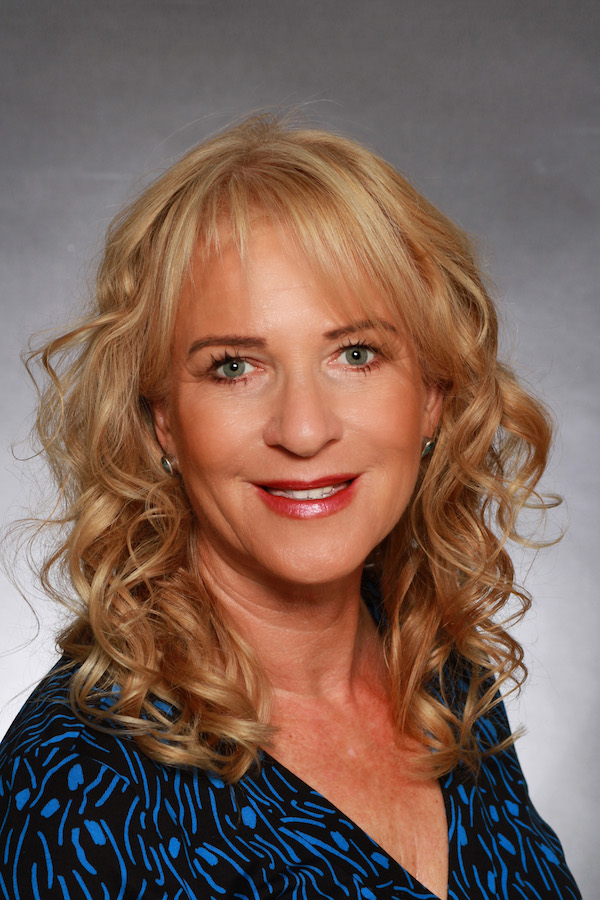
Silvia Lepiarczyk, Entrepreneur and Philantropist
Imagine that you run your first business at the age of 18. At the age of 32, as a young blonde woman, you become CEO of Autohaus Verlag, the biggest publisher for the automotive industry in Germany. By the age of 40, you achieve the position of CEO for Central and Eastern Europe at Ringier publishing, being responsible for 96 magazines in seven countries, a dream position at the corporate level for many. You remember the promise you made to yourself and to your friends and decide to leave the corporate world by the age of 40. After a sabbatical, you use this new beginning to follow your dreams and you return to university studies. In addition to running a consulting business, which might not be a surprising career trajectory, you pursue your passion and support new start up projects, in the emerging field which combines Artificial Intelligence and Alzheimer disease. She has chosen Prague as her hometown, however, she could rank herself to the millennial generation, as her businesses are connected to both Berlin and Vienna.
Meeting with Silvia Lepiarczyk was like meeting a kindred soul. It was one of those meetings that based on facts, you have known the person for less than an hour but based on feelings, you have known someone in another lifetime.
Despite the geographical distance, as she was born in “the West”, and I was from the “East”, we both experienced being exposed to leadership positions at quite a young age, in an industry not traditionally associated with women. We both gave up corporate careers to pursue our dreams and we both are passionate about new forms in learning and development. As a social cause, we both strongly care about Alzheimer disease and I was glad to connect Silvia to the Seňorina center, the leading care institution for Alzheimer in Prague.
Silvia started her introduction by saying that she was born in the last millennium which defines her to a great extent. Despite her interest in artificial intelligence, big data and technology, she was truly pleased to receive a hard copy of our magazine, as she claims she loves to touch and experience “the real stuff”, not the virtual ones. The second thing she mentioned, was the value of hard work and physical work, which she learned to appreciate during her childhood, being born in the industrial Essen area and her ancestors being coal miners.
Silvia, your career seems to be proof that the German “dual education system”, combining apprenticeship and formal education is working. In your case, you got your first job in management at the age of 18 while studying a university degree in psychology.
My father died when I was young. Luckily, I was able to receive some funding from the owners of the dancing school I attended. As a high school student, I tried to reciprocate, and I was giving dancing lessons. Suddenly, the owner of the school fell very sick and she asked me to take care of the place. Simultaneously, I managed to graduate from the high school and to enter the university to study psychology. However, being connected to the business, I was not interested in becoming a therapist, instead I was interested in applied psychology, particularly diagnostics and creating a suitable working environment. As to my first real job after the university, I became a headhunter for a prestigious company in Cologne and for two years I specialized in the areas of banking and science. I was 23 years old, and I found myself facing men two times older than me and asking them challenging questions while doing diagnostics or career advising.
Year 1989 marked the history. I was living the Velvet Revolution, Germany celebrated the fall of the Wall and on a personal level, that is when your career in publishing and media started.
I was 25 when I got the offer to join the Bertelsmann international media enterprise in Munich, joining the HR department and being responsible for its development. I truly loved the job and, at that time, Bertelsmann already had quite an elaborate system of educating and training young talents. I also had a great mentor who helped me a great deal. As the company was acquiring another publishing house in the USA, I was sent to New York to oversee the acquisition from the company culture point of view. You can imagine the clash of a small-town Germany culture of acquiring firm versus the New York style culture of the company to be acquired. So, I found myself living in New York at the age of 27 and, needless to say, I enjoyed it.
The following promotion led to the HR Director of Bertelsmann with the responsibility for professional magazines.
What was it like to be the HR Director under 30? I became the acting director of the Diplomatic Academy of the Ministry of Foreign Affairs at the age of 27 and I remember how many times I was asked to take the minutes, to prepare a coffee or to wait for a “male director”.
At Bertelsmann, we were all quite young and we were given the responsibilities but also the trust and freedom. At first, I oversaw HR, but later I had to restructure the whole company and downsize the staff, including firing people, by no means an easy task in Germany. Apart from HR, I was also in charge of operations, overseeing the internal infrastructure as well as the construction of the new premises. In addition to HR disciplines, I was again challenged to get closer to business, to negotiate with third parties and so on. I proved my management skills and another acquisition came. I was asked whether I would like to be the CEO of this company.
Let me guess…Was it Autohaus Verlag? 32, blonde and in charge of car publishing magazines.
Luckily, my psychology background has helped me to deal with this challenge. I was responsible not only for the magazines, but also for a training academy and a printing company. I learned everything about traditional publishing from beginning to end, with some on-line content slowly emerging. Just to remind you, we are talking about 1994 with heavy Nokia communicators. As the publishing house was expanding, the company became international as well as the nature of my job, we had branches in most countries of the Western Europe, but all that travelling happened while enjoying my life style in the gorgeous town of Munich.
Now, I am expecting the shift that brought you “Eastward”.
Some juicy stories are coming. My partner and I separated, my former boss also left, and he started to work for Ringier. I was in Munich alone, not enjoying being by myself anymore. I got the offer to come to Prague. I did not speak Czech, I was still rather young, and I knew it was going to be another big challenge. I had nine months leaving period from Bertelsmann, as they were not willing to let me go. This time, it played to my cards. The first position I was offered was the publisher of the magazines. During the nine months, the former CEO left and so eventually I became the CEO of Ringier, Czech Republic, with the responsibility for 1200 people, combined business of both magazines and newspapers (Týdeník televize, ABC and Blesk to name the most prominent), all this in a foreign country still having the former eastern bloc mentality. In 1997, people were still not leaving toilet paper in the company restrooms as it was stolen, most staff were wearing funny slippers and everyone was working from 6 am until 2 pm and then leaving sharply. I restructured the whole company and made many changes regarding the company culture. I remember constantly reminding most of the staff that the salary is not paid for one’s coming to the office but for getting the work done. I was working from 7 am until 10 pm every day. Slowly but surely, I gained the confidence of Czech people, as they saw my ability to make decisions, bring changes and get the results. Nevertheless, I did not get the best publicity from our competitors, calling me “German cruel lady not having a pity on people”, which was not true. Most people who left did so with relevant packages at the time of almost zero unemployment and they thanked me.
I am proud that with the help of my team, we became the no. 1 on the market, Blesk circulation at that time was 700 000 copies per day. We sold Lidové Noviny. At the verge of the millennium, I also became responsible for Slovakia.
Then you got the promotion to the regional role in Zurich, Switzerland. In many cases, this is the decisive factor, as the nature of the work changes completely and not everyone enjoys the shift.
As I enjoyed living in Prague, I accepted the offer based on the condition that I will fly to Switzerland. But as to the nature of the job, in my country role, I was used to the freedom and ability to make decisions. In Switzerland, at headquarters, everybody was telling me what to do. The first day I was asked, are you the trainee coming from Slovakia? My reply was: No, I am your boss. Being a female manager in the Czech Republic even not speaking the language was much easier that being a female manager in Switzerland. After I had the job for nine months I was considering leaving, because I was not happy, another shift came. I was appointed the CEO of Ringier CEE. I was not sure about accepting the position, but my colleagues also supported me to get this role as they knew me, and they preferred to work with me than with someone coming from outside. I had the position for five years, sometimes being on the airplane three times per day. I was travelling not only to get the staff, the partners but also the competitors and last but not least, the politicians.
Being a journalist myself, I will not press you to reveal sources or details. But how was the relationship between you, representing the media and the politicians, often resisting them?
One politician stood out from the crowd and I admired him. Václav Havel. As to the rest, I had no illusions, so I could not be disappointed and there were no pleasant surprises either. Unfortunately, I faced one of the most difficult personal and professional decisions, in an issue related to Václav Havel. The tabloid Blesk got the story of a scandal around Dagmar Havlová. To publish it or not to publish it? Well, for the type of the magazine, it was a good story and it was true. I gave permission to publish it, with a special edition on Sunday. Dagmar Havlová then invited me for a cup of tea, accusing me of being a horrible person. I tried to explain to her what I have done many times to others: it was not the press that created the problems, at least at that time, it was the improper behavior that got exposed and subsequently caused the problems.
It seems that you have seen it and you have lived it all, at least with regards to the publishing business. What made you to leave it?
At the age of 35, I made a promise with a group of friends to retire by the age of 40 to pursue our dreams. When the time was coming, I was 43 and I told the owner of Ringier that it was my dream. He tried to stop me, he offered so many incentives to keep me. I made a deal. If the company would reach 25 % ROI, I would leave for a one-year sabbatical. I surpassed the figure and my boss kept the promise. In 2007, I went to Myanmar for one month. It is a beautiful country, I was alone with a local guide and as there was no phone connection, only land faxes between the hotels, I truly could disconnect. This was important not only for me but also for my team members, as they truly had to realize I left and they had new leadership.
After one-year sabbatical, they tried to lure me back to work, but I declined. I enjoyed slower travelling, being able to stay at one place for several weeks. I went to see my friends and I was so glad to be able to keep so many relationships. I also wanted to support social causes, so I joined the CARE supervisory board. During my second-year sabbatical, I started to invest in start-up companies, on-line businesses etc. I also met my current partner, the perfect match for me, as it was impossible for me to have a relationship while working for Ringier. I accompanied my partner to Vienna and we lived there for three years. I was working for CARE and travelling to Uganda, Burundi, Zambia, Ethiopia, Nepal, India and other places.
Silvia, your life story could easily become a book. However, I have the feeling that the next chapter brings it full circle.
My partner also quit his job and spent three months in Berlin. We became familiar with the start-up scenes, particularly with the artificial intelligence (AI). Now, I am interested in solutions that AI can provide for Alzheimer and dementia related diseases. I hope that dialogue toys and other IT solutions will be providing stimulus for the patients and at the same time relief to the families. I am looking forward to collaborating with interested institutions and companies. Finally, I can truly pursue my mission by bringing all my life experience as well as my expertise from university studies together. I am excited about it.
By Linda Štucbartová
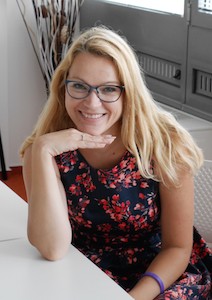
Petra Sršňová
Author of this article
Do not waste your precious time on something that does not bring you anything, instead focus your attention on what is important! How to do it?
Importance points out how the task contributes to meeting the set goals (personal or corporate). It answers the question of what positive benefits will come by doing the job. Urgency only highlights how the matter is in a hurry and till when someone thinks it has to be done.
Eisenhower’s principle is the technique of prioritizing tasks within the framework of self-organizing the decision-making of the manager (typically the top manager). It is one of the methods of time management, which is also usable in everyday life.
The essence of this method is to divide your activities into four quadrants:
- Quadrant – all that is important and urgent – all activities in this quadrant need to be done as quickly as possible, these are emergency situations and urgent problems – such as imminent danger, compliance with promised terms etc. First importance tasks. Do them now.
- Quadrant – everything that is important but not urgent – basically it is about preventing crisis situations before they arise (if the manager does not focus on them, they can easily move to the first quadrant) – e.g. planning, daily tasks, task control Tasks you must plan or they´ll become urgent → 1.
- Quadrant – all that is unimportant but urgent – urgent and unexpected disturbance – e.g. unimportant emails, phone calls, etc. (can be delegated!) Tasks to be delegated. Not added-value tasks.
- Quadrant – everything that is unimportant and not urgent! – activities that are in a disproportionate manner simply waste of time! E.g. useless time on social networks, excessive communication with colleagues, etc. Tasks to be eliminated or they´ll become urgent → 3.
For illustration please see the picture below:

How to use it?
- Think about how you spend your time.
- Write down your activities into individual quadrants, be concrete.
- Look at your quadrants and think about the following questions:
- Do I spend too much/too little time somewhere?
- Is everything so urgent/important?
- Can I eliminate or delete some activities from the 4th quadrant?
- Do I have control over my time? Can I delegate something?
- Do I have any everyday habits that I could change or delete?
- Where are the opportunities for me?
If you have any questions, feel free to contact me at info@petrasrsnova.cz.
By Petra Sršňová
Petra Sršňová is a professional coach, lecturer and Senior HR consultant who enjoys revealing clients potential through business and life coaching and NLP methods. With more than 12 years of managerial experience, (from running her own company through working as a manager in M&A business), Petra helps clients (managers/leaders) reach their goals and visions, increase results, improve their capabilities, overcome their limits, find their worklife balance, manage their time better etc. In her articles she is sharing with us interesting and applicable methods and technics from coaching and NLP (neuro-lingvistic programming) world which make your life and work more effective, balanced and simply easier.
She is a fan of neuro science, curious how the brain works and how our habits from the past limits us, always finding a way to change the set up. Petra studied the business management and corporate finances and visited many production companies in the czech republic and abroad as a manager in mergers and acquisitions field. Interested in a personal growth for more than 10 years.
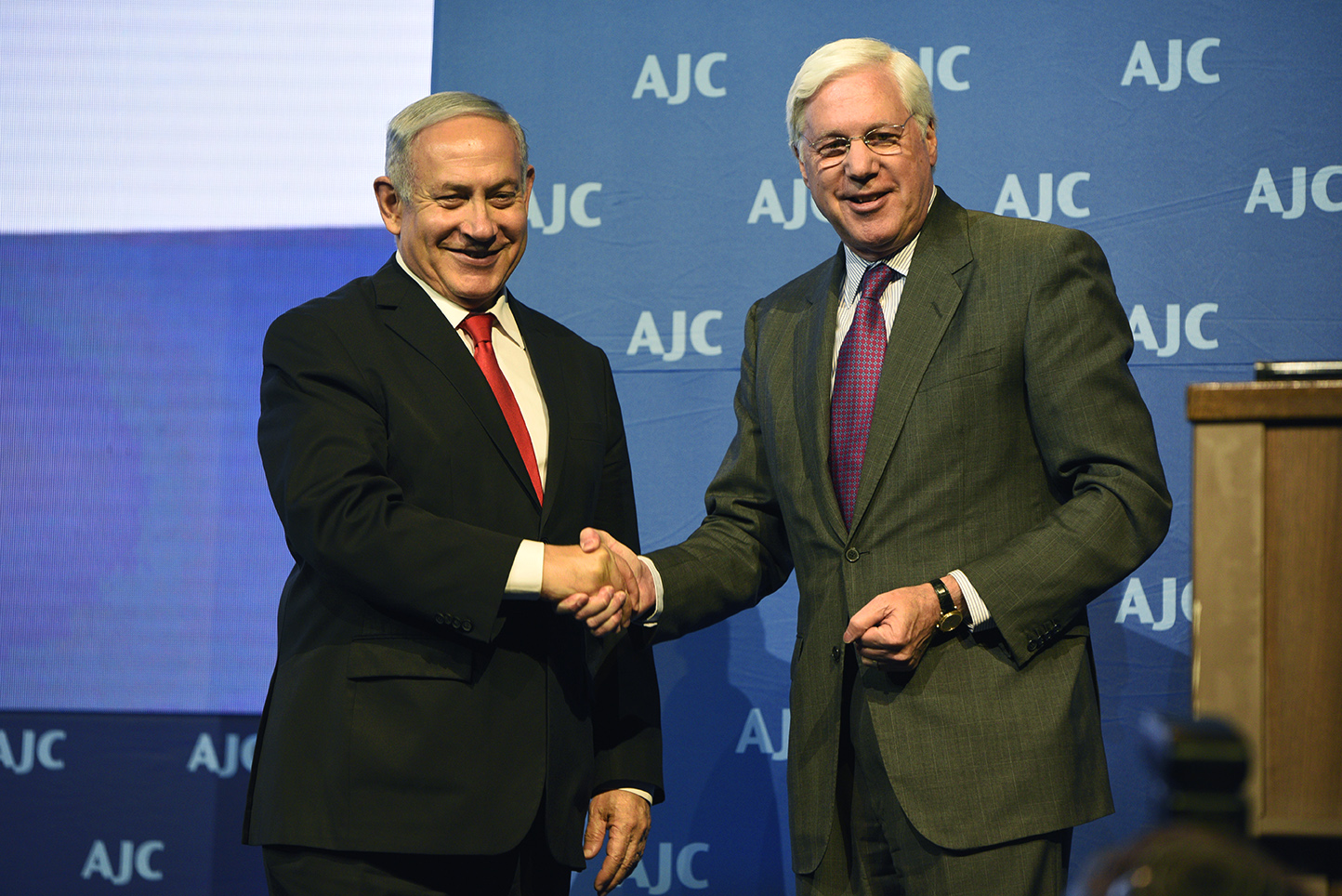
The American Jewish Committee (AJC) regularly organizes its anniversary conferences in great style, but this year’s meeting was exceptional. The AJC was founded in 1902 with the aim of defending Jewish interests in the USA and around the world. Just to give you an idea, AJC has regional headquarters in 11 countries, and 22 branches in the USA. In Europe, AJC has its headquarters in Paris, Brussels, Berlin, Warsaw and offices in Sophia and Rome.
More than 2400 delegates from 56 countries representing six continents met in Jerusalem shortly after the USA and other countries recognized it as the capital of Israel. They met under the slogan “This year in Jerusalem”, an adaptation of the known Pesach festival phrase “Next year in Jerusalem”. The Czech Republic was represented by Petr Papoušek and Tomáš Kraus from the Federation of Jewish Communities, as well as ČISOK representative Linda Štucbartová, who had received an invitation from Avital Leibovitch, the main organizer and director of AJC in Jerusalem. Over four days, the conference participants had the opportunity to get to know Israel, and to learn about the current affairs in the country and the region, and the themes of Israeli- American relations from many different viewpoints.
The conference was unique in terms of the events organized. The large plenary session was followed by expert panels for smaller discussion groups. Half of the day was dedicated to excursions. The opening of the conference, which for the first time in 112 years was held outside the USA, and the participation of top political representatives demonstrated how important this conference was for the two main stakeholders, Israel and the USA. Nir Barkat, the Mayor of Jerusalem, welcomed the conference participants. He described Jerusalem as a progressive city belonging to everybody regardless of their religion. Interest in visiting Jerusalem has doubled, and four million tourists visit the city each year. The aim is to prepare the city to receive 10 million visitors.
Jerusalem is a city of history but also a city of the future. It is home to 50 of the most influential high-tech companies. Jerusalem has tripled its budget to support the development of investment and infrastructure. As far as security is concerned, Nir Barkat joked, he is pleased to return home especially after travelling to the USA, because Jerusalem is statistically 15 times safer than Washington DC, the US capital, in terms of violent deaths.
It was my dream to experience the Prime Minister Benjamin Netanyahu not only from a journalist’s viewpoint, but also as an expert in leadership. It was not necessary to introduce the Prime Minister of Israel, so the president of AJC introduced the audience to the Prime Minister. Benjamin Netanyahu conquered the entire congress hall not only with his warm welcome, but also with the reproach that Antarctica was not represented. He reminded the audience that AJC had opened its first office in Jerusalem 60 years prior and said that the Israelis were pleased when companies and states opened their offices in Jerusalem. Then it was time for emotions. More than 300 US high school and university students received a special welcome because they were the reason why the Prime Minister works so hard and with determination. He explained that AJC mobilizes truth and it was important for visitors to Israel to see the truth for themselves. He was proud to share the latest economic data on Israel’s performance with the enthusiastic crowd. Israel has surpassed Japan in per capita income, while unemployment is at 3.8% and the gap between the highest and lowest earnings is getting smaller. One of the reasons for this economic growth is that more Orthodox Jews, Arab citizens living in Israel, and women have entered the labour market. He joked that Israel is the only country in the region that has free elections and free media. He has experienced both since he won the elections four times and lost once, and shared that every morning he learns something interesting about himself in the media. Diversity, he continued, makes Israeli society stronger. He mentioned equal rights for gays, the presence of women pilots in the Army, and Druze ministers in the government. As for the peace process, Netanyahu said he was ready to negotiate under three conditions: if the Palestinians recognize the Jewish state, if they invest in the peace process, and if they stop financing terrorists. By sharing research results and innovations, Israel boasts the best diplomatic relations with individual countries in history. Israeli research helps protect valuable water resources, supports agricultural development, air protection, and protection from cyber-attacks. Last but not least, Prime Minister Netanyahu mentioned Israel’s crises and humanitarian aid in affected areas. Recently, he has sent aid to Guatemala. In the aftermath of the earthquake in Nepal, Israel was the most significant provider of humanitarian aid after India. “Do you know where Iran has given similar aid to?” He ended by thanking the conference participants for their support of Israel and added, “We are thankful for the friendship shown to us from around the world.”
Being grateful for friendship and long-lasting relations was an important commemorative point of the conference. Each day of the conference featured a segment called “Remembering the Courageous Friends of Israel”. Tribute was paid to Harry Truman who as president of the United States recognised Israel’s independence 11 minutes after it was announced. Tribute was also paid to the leaders of the mission from Brazil and Guatemala who were present when the UN resolution 181 was being negotiated and voted for in 1947. Prime Minister Mitsotakis, who normalized the Greece-Israeli relations in 1990, was also mentioned.
During the conference and the following bilateral meetings, top European and world representatives took the opportunity to highlight their friendship and intensive relations with Israel. The Austrian Prime Minister Sebastian Kurz ceremonially addressed the AJC Forum, as did the Bulgarian Prime Minister Boyko Borisov, the representative of the European Parliament Péter Niedermueller and the Vice-President of the Georgian Parliament Tamar Chugashivili.
Twenty-three mission leaders and major representatives of different countries hosted a lunch in honour of their relations with Israel. In this context, it was somewhat unfortunate that the representative of the Czech Republic had cancelled his participation at the last minute. Although it might seem that Czech and Czechoslovak relations with Israel are profound and above standard, it is necessary to take care of them and develop them further. Given the example of other countries, it is obvious that Israel has many friends and it would be a shame if the Czech Republic was left aside.
My favourite part of the conference was the segment called “Faces of Israel”. Through the lives of special people, we realized how truly diverse the nature of Israeli society is. I have chosen the stories that most appealed to me.
Rivka Ravitz, head of President Rivlin’s office, is a Haredi or Orthodox Jew. Although she looks like a mature university student, she is the mother of 11 children and many times grandmother. She herself is one of 10 children, her husband one of 12, so a wedding in the close family circle of cousins amounts to 1000 people. Although she works full-time, she has never had to compromise the values of her faith or the quality of her work. She tries to fight the stereotype that Orthodox women have limited rights, are locked up in their homes and discriminated against. On the contrary, she sees herself as the proud bearer of the 3000- year-old tradition of Torah teachings and laws.
Belaynesh Zevadia is the current ambassador to Ethiopia. She arrived in Israel during Operation Moses, an undertaking that saved about 8000 Ethiopian Jews. Before Israel carried out this successful rescue operation, Ethiopian Jews had had to walk several hundred kilometres to Sudan to be detained in provisional camps for more than a year. Only few know that almost 4000 Jews did not survive the long journey or the bad conditions in the camp. Belaynesh successfully graduated from university, became the first Ethiopian to work at the Ministry of Foreign Affairs and Ambassador of Israel in Ethiopia. She is mother of three and her husband supports her career. Whenever she meets young girls on Ethiopian streets, she remembers her story of transformation from total poverty to the embodiment of success.
Ahlam Alsana, director of the girl’s school Desert Stars School Branco Weiss, is of Bedouin origin. Although she did not have the same conditions and support to study as her brothers did, her results show that through hard work she caught up with them in the end. Her aim is to get at least 70% girls to attend her school; today 30% attend. She literally goes from house to house and persuades parents to allow their daughters to study.
May. Gene. Doron Almog was a successful army general, who had taken part in several elite operations, including the liberation of air hostages in Entebe, secret operations liberating Ethiopian Jews or operations to free Israeli soldiers in Lebanon. After the birth of his son with severe disabilities, he left the Army and founded the Aleh Negev Nahalat Eran Rehabilitative Village, named after his son. It is a centre for children and young adults with severe combined disorders. An area of 400 acres offers a paradise for the clients, not the patients. For 140 clients there are 140 staff members. The Centre is not an institution, but a community where the clients receive love and care. The Centre is based on social responsibility because every society is as strong as its weakest member is. Eran died at the age of 23; however, the Village and its concept continue to grow with many European and American centres. I gave the Centre’s contact to Petr Třešňák who deals with autism in the Czech Republic.
Colonel Achiya Klein is a veteran of the Israeli armed forces who lost his vision during an operation to liquidate an underground tunnel leading into Gaza. He returned to IDF four months after his injury and became an expert in technology that helps search for similar secret tunnels. In addition, he takes care of other veterans, runs in marathons and is a member of the Paralympic team of rowers. Hamas took his sight, but not his desire to live, build and protect Israel.
Part of the congress was also the 70 years of Israel exhibition. It was dedicated to the past, but it mainly dealt with the future. Seven panels documented seven decades, and the influence of AJC in the context of major events. Far more space, however, was given to today‘s companies that represent Israel and its inventiveness, innovation, community, diplomacy, vision, diversity and progress. All these values are connected to the concept of tikkun olam, or the efforts of Jews to repair the world. Visitors could see and often taste products from the Jordan valley (delicious vodka made from dates, also dates, pineapple, and grapes) or wine from Jerusalem’s vineyards. Scientists from the Research Institute Volcani Center provided quality olive oil and introduced new research aimed at the nutritional enrichment of chickpeas. Companies such as OrCam and ReWalk Robotics are known in Czech Republic thanks to ELAI Week of Innovations. Watergen introduced the production of water from air, which could be an interesting solution even for the Czech Republic since the country repeatedly faces problems with groundwater supplies. Real View Imaging uses holographic 3D imaging for complex surgery and Rafael Advanced Defence Systems, supplier of the Iron Dome defence system, was present as well. Space was given to brand new companies that produce unique solar panels in the form of thin foils so that photovoltaic power plants don‘t need to take up too much land, and to the start-up ElectReon, which plans to install rechargeable batteries for cars directly in the asphalt of roads. When I began to feel tired, a chatbot or rather “a barbot” mixed a cocktail according to my wishes. This year Czechoslovakia will celebrate 100 years and I hope that a similar exhibition, focusing on the future rather than the past, will take place in our country in October.
Having written about the different events at the conference, I will now mention the presentations by two expert panels. The first dealt with the bias of the media in relation to Israel. Despite all the discoveries and inventions, the social diversity, the cultural and sport events, 70% of European news and 90% of US news focus on the conflict in the Middle East. This conflict is often portrayed as “the imperialist army fighting against peace-loving citizens who follow the principles of Mahatma Gandhi,” says Henrique Cymerman, a Middle East expert on the media problem. Thanks to the great work of Czech reporters, we don’t need to solve this problem, but at the time of various disinformation sites and unverified news from social networks, it is important to be cautious.
The second panel dealt with the more serious problem of anti-Zionism as a new form of anti-Semitism. Israel is often criticised and accused of wrongdoings according to standards that are different to those applied to its neighbouring countries.
Fortunately, in the Czech Republic, this phenomenon is not widespread. However, this is not the case in the rest of Europe. While the panel meeting was taking place, there was a demonstration by Islamic fundamentalists in Berlin; the slogan “death to Jews” often appears in Paris, and Barcelona has joined the BDS organization (boycott, divestment and sanctions). This new anti-Zionism seems to have become fashionable among young people in the USA. Radicalization, both on the left and extreme right, is a dangerous trend and doesn’t leave much room for objective debates based on concrete facts and history.
Finally, I would like to mention the excursions that were a real cherry on the cake. The participants could choose from 18 different excursions dedicated to history, innovations, settlements, the IDF bases, and religious matters. I chose the excursion to Kiyat Gat to learn about the process of acceptance and integration of new immigrants. Israel receives 20,000-30,000 immigrants a year. Kiryat Gat deals with immigrants from Ethiopia, who find the transition from their traditional farming communities to the modern industrialized society particularly challenging. It was interesting to see how Israel is based not only of the laws of acceptance but also on those of integration. Emphasis is placed on education, with children being immediately integrated into mainstream schools, and parents attending Hebrew lessons. At the same time, however, it allows nationalities to maintain their own traditions and identity. Ethiopians can work in the fields and meet in traditional huts, which is particular important for the older generations.
The AJC conference is a truly unique opportunity to get to know Israel. I recommend all those interested in learning about Israel in a wider context to experience this conference at least once. If I have tempted you, the next conference will take place in Washington DC on 2/6 – 4/6 2019. And for women I have one more offer: the first woman business mission from the Czech Republic to Israel will take place from 12/10 to 20/10/2018. If you are interested, contact the organizer Linda Štucbartová at linda@stucbartova.cz.
By Linda Štucbartová
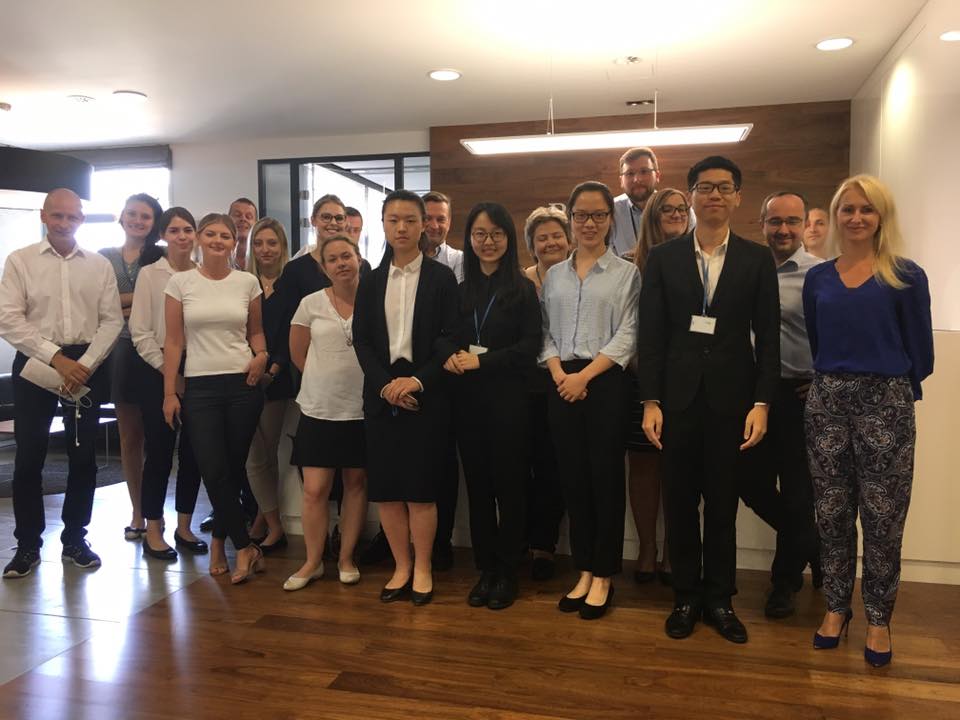
Bird & Bird’s team and interns in Poland
We all know it is close to impossible to accomplish the perfect ideas that come to us every now and then. People try to establish a business in thousands of ways, but usually get stuck on the step whether this idea will bring them profit. Trying to monetize your idea in the very early stage is something they would teach you at business school, right? ECCE not only challenged the model of the regular entrepreneurship but built its success on delivering to students the know-how for them to challenge it too. We engage the intensive experience from successful leaders with practice at top-tier companies – model that proves to be exceptional.
Our success story is not only another profitable business, we are proud with finding a long-term solution to 3 of the most disputed problems for the millennials generation: lack of experience combined with a vague understanding of their field, youth unemployment rate, inequality and gender employment gap. To contribute, even more, this year we invested about 80.000 euro in scholarships for students all around the world. Our rapid growing makes us open other branches than the European one. This autumn we are proud to announce the opening of our US branch in California. The school programs will have the same unique concept of combining the practical skills, real-life experience and will be available for the students across the ocean. The ECCE’s branches in Dubai and Poland will follow by the end of this year.
European Centre for Career Education’s summer school is a result-oriented experience ready to solve many problems that come to students when they start their career pursuit.
With about 650 applicants from more than 50 countries and 200 enrolled students from 20 countries in 2018 – ECCE successfully proves the need for practical skills on the market.
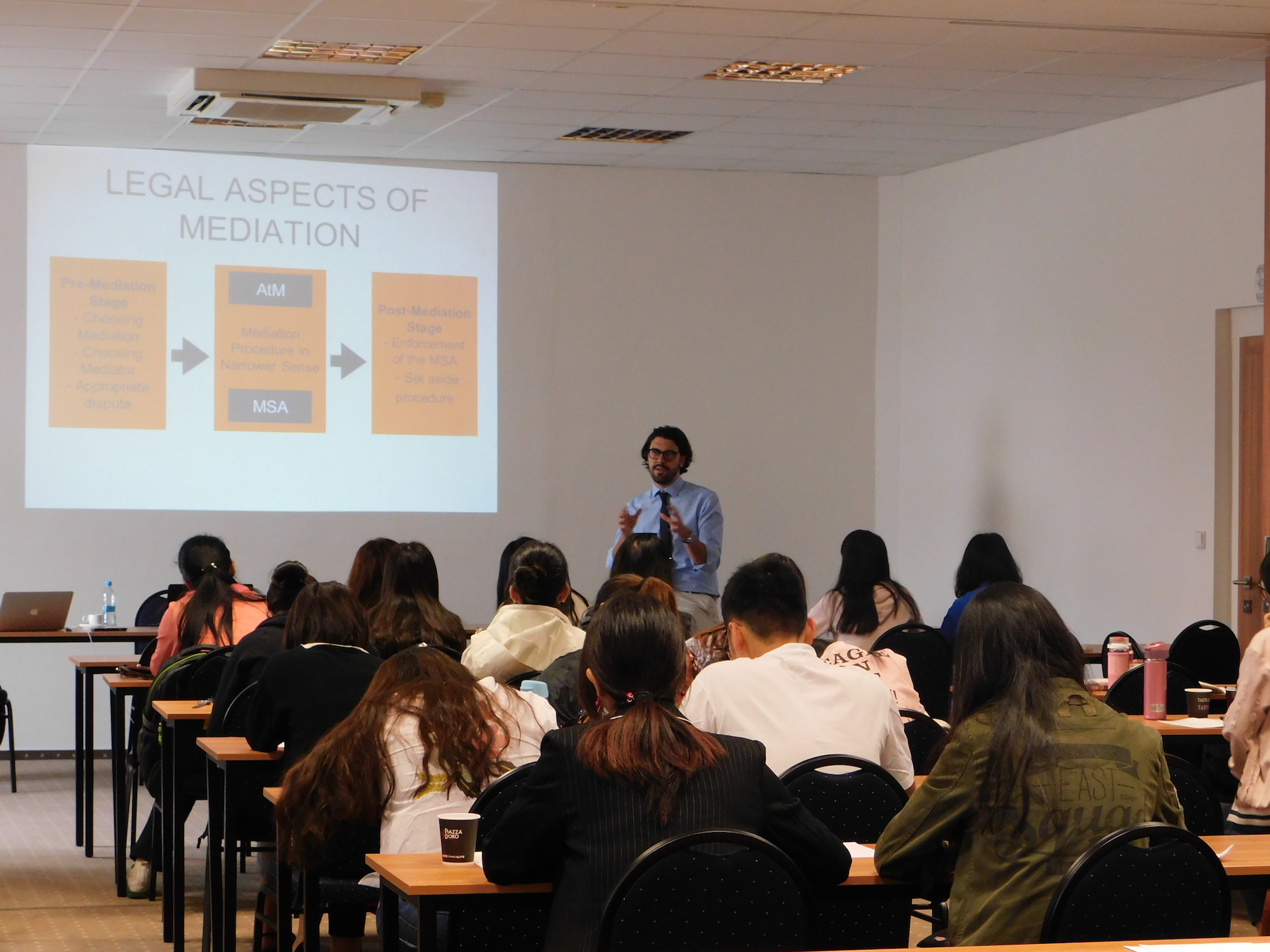
Why are we so unique?
- ECCE programs include 3 weeks of intensive practical courses and 4 weeks of internships in top-tier companies and law firms. We count on 200 international partners all around the Schengen area to give our students the insight. Companies like Siemens, Unicredit, ExxonMobil, T-Mobile, Lego or law firms as DLA Piper, Clifford Chance, Linklaters, Bird & Bird and many more, gladly administrate places for our students to prepare the young potential leaders with a detailed and relevant know-how.
- In 15 days we bring 30 hot practical topics by experts in their fields.
- Last year the ECCE summer program in law has become the biggest educational project in between Europe and China.
ECCE was created to grant a long-term solution for the inadequate practices of obsolete education systems and the career consulting with no practical ground.
We bridge the academic knowledge with the real-life experience along with the appreciation to the theoretical foothold universities provide.
Where is the problem in education?
We found that the practical skills required in the work and the theory from the university are two different things, which the students do not have the capacity or the opportunity to learn in the regular schools. Once they graduate and enter the work market, they struggle with finding the first job. The youth unemployment rate in EU-28 is 23% (Eurostat). This result is not encouraging.
ECCE didn’t just respond to statistics but to real-life needs.
Many of the current educational practices are outdated, do not respond to the needs of the students as well as to the needs of their future employers. When graduates go to job interviews they feel unprepared. Millenials have no idea why they are asked specific questions about the job positions. Suddenly, all the knowledge from the University disappears. Another case is the problem of some students to focus in their field of study and realise their ideas.
How to find a solution?
The real-life practice is essential. Students need to see how the companies work, try to understand what skills do they need to develop.
It is not only what you want to do, but what is the future.
ECCE started building an educational transformation from scratch. At this moment, ECCE is in the post-seed investment round gathering VC capital support. The substantial interest is linked to ECCE’s further expansion into the USA, Dubai and other countries in upcoming years. We suspect this is happening due to our globally unique educational model, innovation and market penetration when it comes to our partners. Where else the students could directly have workshops and lectures by people working for companies as Google, Siemens, Unilever, Unicredit, CITIC Capital or WeWork?
We carefully research what skills are currently required on the market before preparing every summer program’s schedule. The lectures in ECCE are not presented by professors from universities but from real life successful practitioners who share with students the challenges of the work and teach them what is “Society 4.0”. We develop our programs in those 4 fields which are the most demanding when it comes to the practical experience. Architecture, Law, Business, and Medicine are highly practical degrees, for which students always need internships to excel in their career. Furthermore, those areas of study are some of the most affected by the growing industrial development. All those certain issues for the millennials generation are not relevant only for the European market. There is a hunger for innovation in education all around the world. The proof is the success of our centre on the Chinese market. For the second year, ECCE received around 300 applications from Chinese universities.
We help each participant to focus in their field of study. We train our students the most useful practical knowledge – how to get through a dream-job interview by engaging them with potential employers and professionals of similar profile. The tailor-made experience for every student is guaranteed. Our team observes the transformation of our graduates. We see the jobs they get, the universities they enter, the leadership they express. Most of them come shy and leave as one of the future leaders in their field.
ECCE breaks through yet another colossal issue of the past years – the gender equality dispute and women leadership support. Around 90% of our students are female and we have been dedicated to embracing their education, practical skills and future career development in order to close the gender unemployment gap.
We encourage the young generation to change what they don’t like and find a solution for it. Who if not you and when if not now?
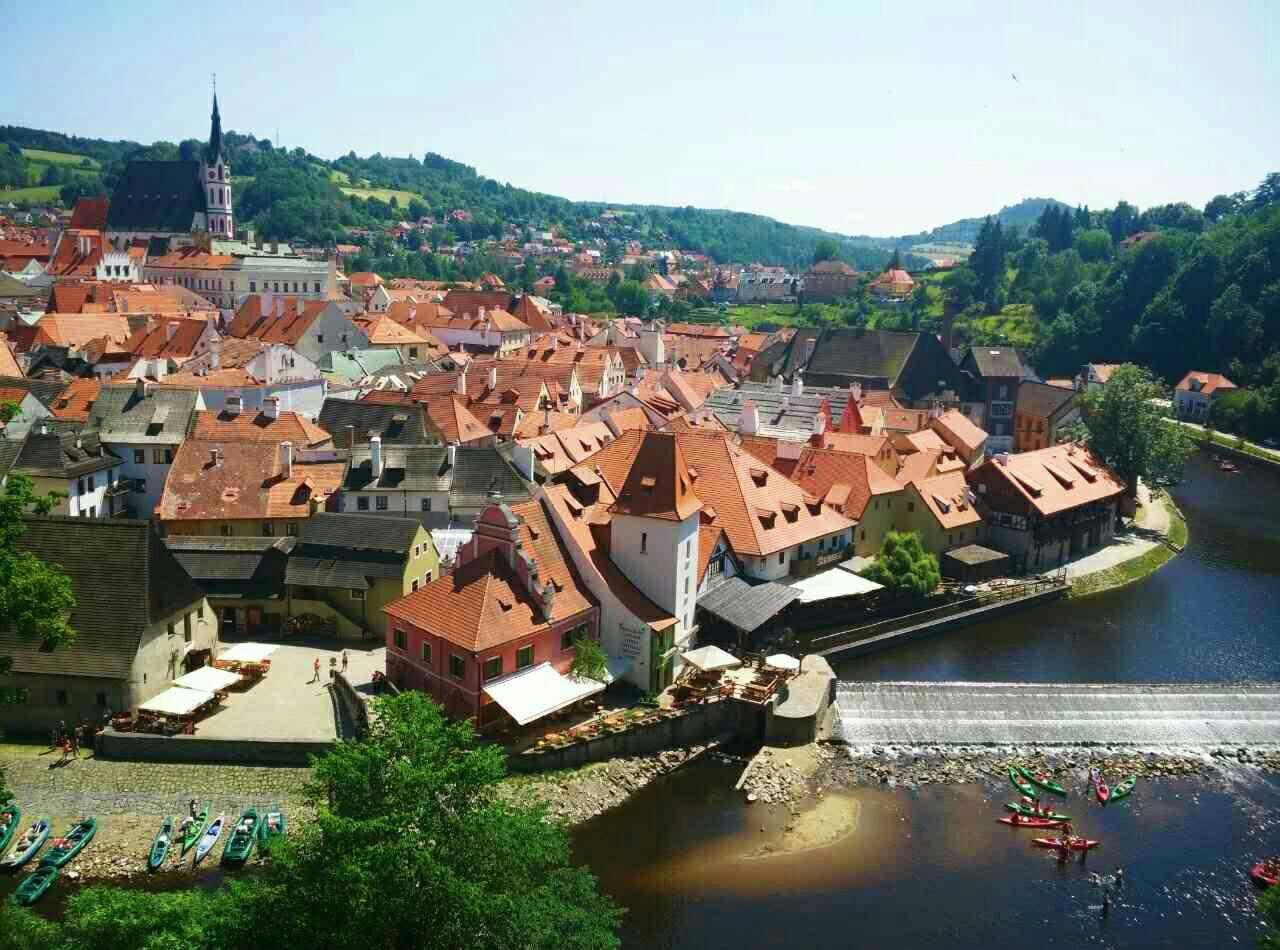
What will come aside study this summer?
Grand reception – 9 July in Prague, where we gather app. 300 senior guests from various sectors and all of our students on a dinner with entertainment. Last year, this special event was prepared with the support of Tesla Motors and Johnnie Walker.
Field trips around the Czech Republic and neighbouring countries. Students will visit the most prominent companies and other institutions to experience and see how work is done.
Graduation ceremony, where all the students receive feedback on their performance.
One-month internship in some of the best companies in the world. All the successful students receive recommendation letters from their internship placements.
This is a big jump not only in experiencing the different life and education in Europe but also advantages for the future career from one wonderful summer in Prague.

Reflection on 2018 Summit and Three Reasons Why In Particular Female Leaders Should Put Berlin on Their 2019 Agenda
The 2018 Summit’s motto read “The Values of Leadership in Times of Transformation, Disruption and Artificial Intelligence” and its aim was to provide relevant insights for female executives to master the four challenges of change: new world order and global economic outlook, transformational technologies and ethics, corporate leadership and responsible finance and climate challenges, energy solutions and the future of mobility. As the world is becoming more and more complex and interdependent, today’s leaders face the need for not only top expert information but also a broad perspective overview of current events. The summit provides both; the format, ranging from inspiring talks, interactive think tanks, stimulating panel discussions and time for networking, ensures that participants are not only informed, but also engaged and able to exchange ideas with like-minded peers.
This year, the summit featured 60 speakers from 30 countries and more than 300 executives, both female and male, participated.
The summit was hosted at the legendary Hotel Adlon Kempinski in Berlin, just a few steps from the Brandenburg Gate. For me, being born in 1976, I always cherish the moment when I can walk through the Brandenburg Gate freely. The opening cocktail reception held at the China Club Berlin, is not just one of the most exclusive locations in Germany, overlooking the trendy and hipster city of Berlin, but also an example of a venue that you can enter on the invitation by the best company only.
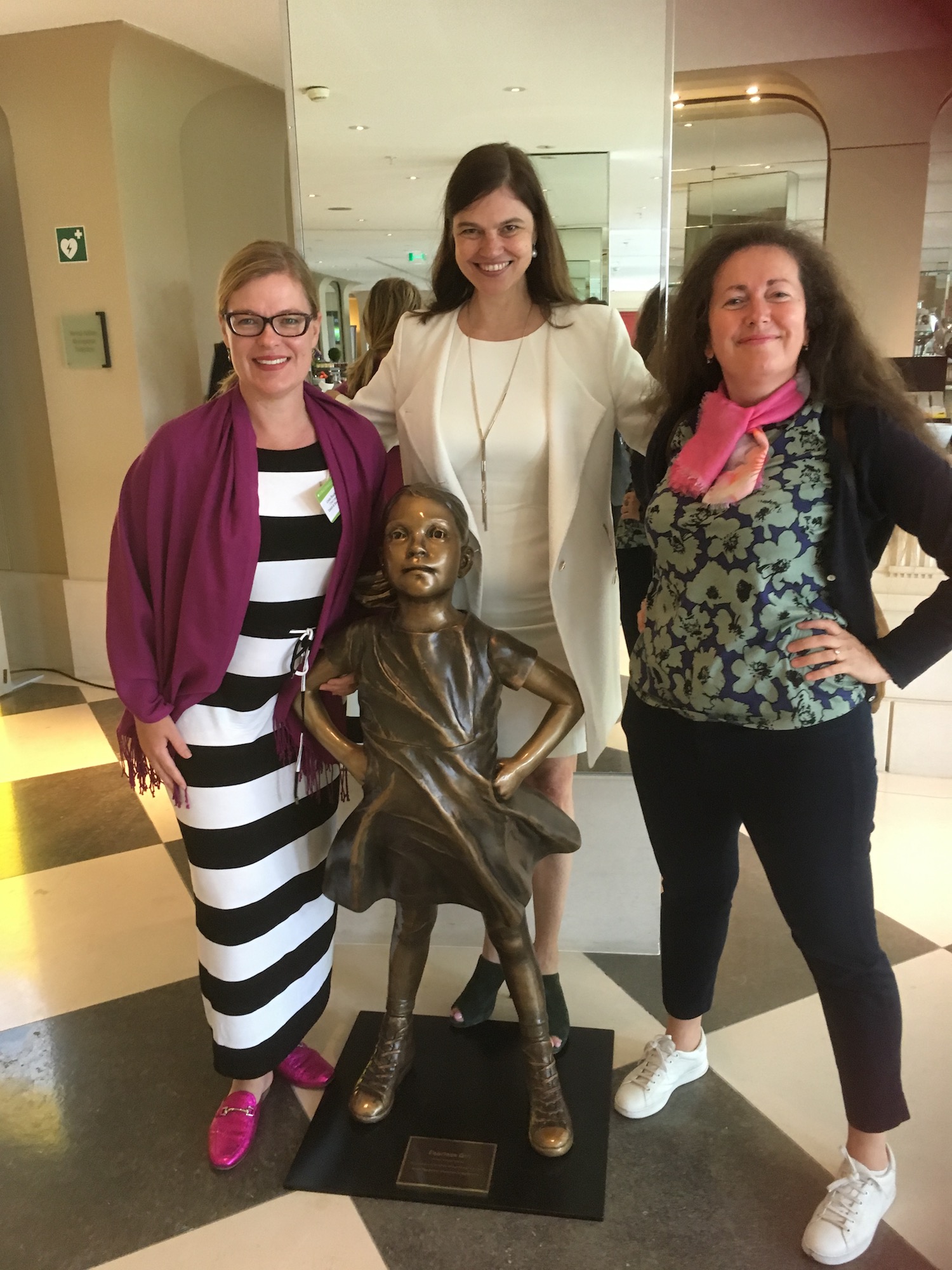
Information
In this age of information overload, one has to make sure, that the information is not only correct, but also relevant, concise and applicable. As opposed to one-topic special conferences, the Global Female Summit, provides both, depth goes hand in hand with the broad spectrum. Current trends were discussed from the more general topics of geopolitics, multilateral and bilateral relations, current economic order, to more specific issues such as cybersecurity, digital literacy, artificial intelligence, the future of work, Industry 4.0, Blockchain to corporate social responsibility, corporate compliance, the future of mobility, sustainability and smart cities, the future of energy to the newest trends in tourism, both on Earth as well as outer space.
Content driven agenda was presented by industry leaders like BMW, IKEA, Morgan Stanley, Fujitsu, SAP, DHL, KPMG, as well as by industry challengers, such as Booking.com. This is in stark contrast to other conferences, where academics usually tend to exhaust not only the issue but also the audience. The environment in the Czech Republic, lacking visionary leaders, does not provide any similar opportunity to become familiar with these trends already shaping our society and impacting businesses, customers and various stakeholders.
Inspiration
Each individual has a story and everyone’s story is unique. On the other hand, let us not succumb to egalitarianism. Some stories are more powerful than others. The summit offers the “crème de la crème”, simply the best, speakers and I have picked these three to share.
Roya Mahboob, the first female tech CEO in Afghanistan, shared her challenging journey: being a girl who grew up under the Taliban regime and with no means, she decided to study computing as she saw the potential, means and sense of purpose that technology can provide to women. She then founded her own company and subsequently launched a mission to “Educate a New Generation of Women Through Digital Literacy and Community Building”. You may recall the highly publicized story of the Afghan team of female coders fighting to get a US visa to participate at the international coding competition? Roya concluded with a powerful statement, “It starts with one girl, one woman, one dream, one computer. One step at a time, we will change the world together.” Such speeches contribute not only to the notion of the “global sisterhood”, a term used by Annie Lennox but if this statement does not get you more engaged, nothing else probably will. Leadership and the need for more people to shift from the consumers to global citizens was a theme that surfaced during various moments.
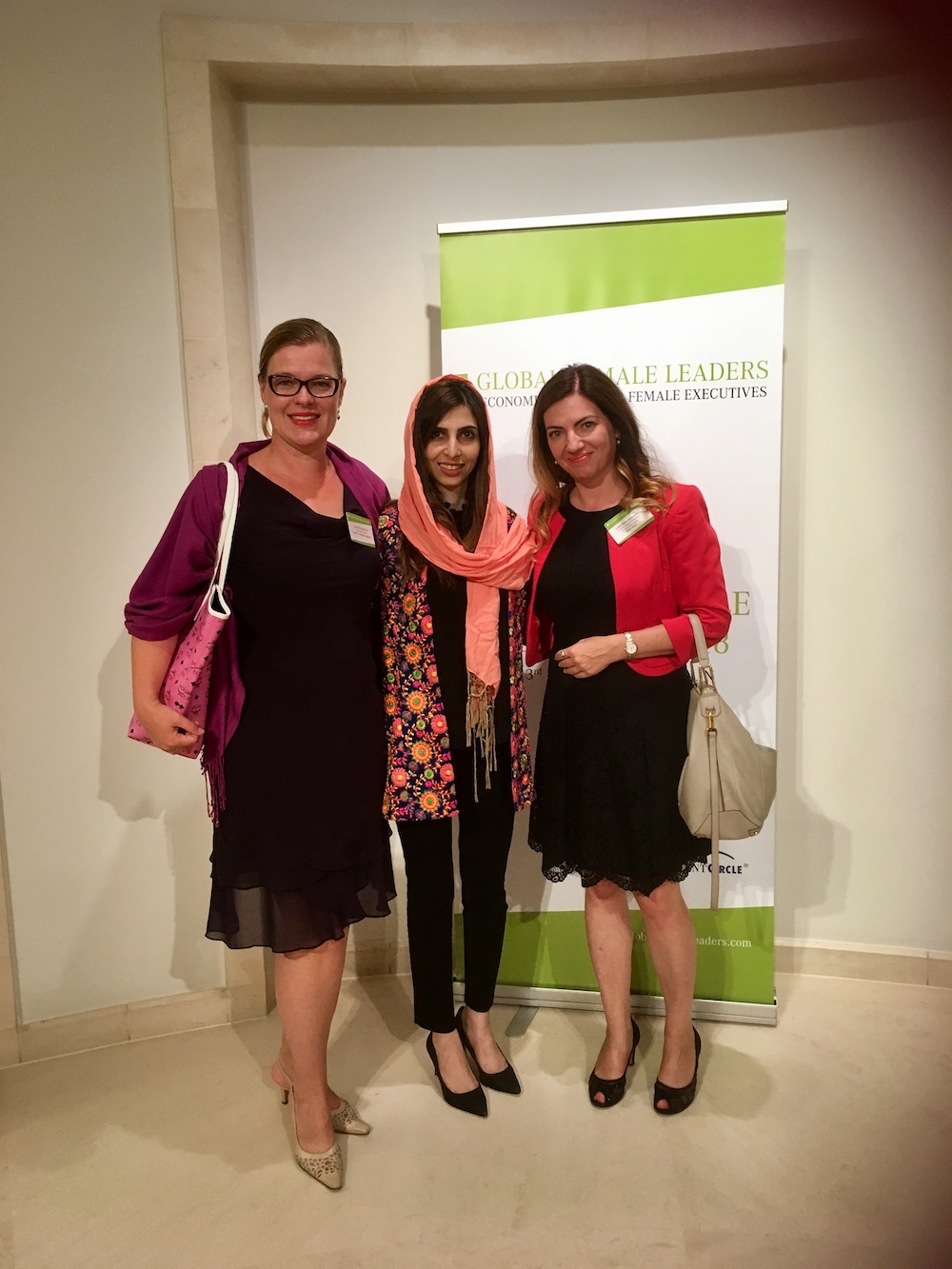
The gala ceremony was hosted by MCM luxury goods company. The company, established the same year I was born, was acquired by Sung-Joo Kim, Chief Visionary Officer of MCM Holding. Sung-Joo’s story began when she was disinherited by her father, a wealthy South Korean entrepreneur, when Sung-Joo refused a pre-arranged marriage. Instead, she set out on a journey to prove that she could do it. Being successful herself, she also started supporting other women on the journey. Incredible not only what kind of a person she is, but also how she looks at the age of 61; she proves her second motto “health is new wealth”.
Rasha Oudeh’s story is reminiscent of the Cinderella fairy-tale, except there was no prince. Rasha did it all by herself. A girl from Jordan, the eldest of eight siblings, she was allowed to study but received no support from her parents. Things then got even worse. Her dad retired at the age of 50 and she had to take care of the whole family. Eventually, she switched from IT to pharma business. She persisted and now she is the CEO of Cedem Pharmaceutical company based in Germany and Switzerland, doing business in the Middle East. Her first message was related to fear. She said that fear is the biggest problem, however, it is always out of the comfort zone where miracles happen.
Community
Having been to the conference for the third time, I am always surprised to see, meet and exchange with both new leaders joining the event for the first time as well as those who attend regularly. The networking opportunities during coffee-breaks, lunches, opening reception, gala dinner, as well during workshop or informal events such as a “morning sight-jogging” make sure that attendees will get perspectives from different corners of the world and various industries and also meet new business partners and/or clients, establish valuable career contacts and even lasting friendships. By the way, women are not often pampered at expert conferences. At the Global Female Summit, you can be surprised either by a pop-up store selling discounted brand handbags or by getting cosmetic gifts and make-up by Shiseido and Babor.
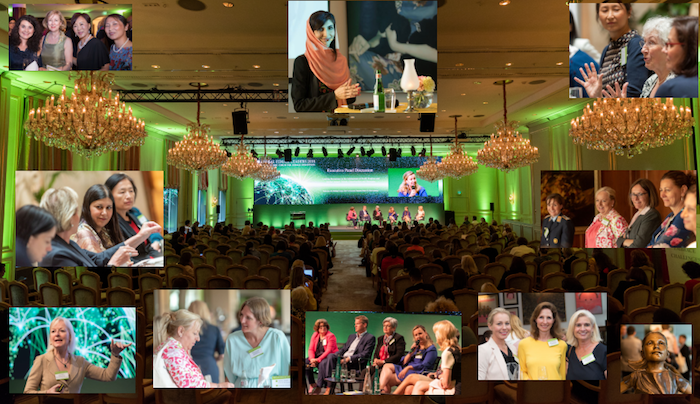
Why is this conference for women?
First of all, it is not exclusively for women. You can meet many influential male leaders and CEOs. Stephan Werhahn, grandson of the one of the biggest statesmen of the post-war Europe, Konrad Adenauer, is one of them.
On the other hand, let us face the fact that the female point of view tends to be different and often complementary to the one of the men, which is typically more known and represented across the industries. For a long time, we have relied on artificial intelligence and machines to overcome gender-based bias. However, we should start to be concerned where the machines take data from and what kind of data is procured because it is being distorted. Only 4 out of 1000 women work in the digital sector. From 1000 women with a bachelor’s degree in Europe, only 29 hold ICT degrees, compared to 95 men. Women leaders hold still less than 20% senior leadership positions in the digital sector, which is comparable with most of the sectors in general. The statistics for the Czech Republic are even dimmer. It is high time to do something about it.
Therefore, mark your agenda for spring 2019! The hosting organization, Management Circle, will be celebrating its 30th anniversary, so I am sure that next year’s summit will be even better. On top of that, Czech and Slovak Magazine Leaders have benefited from the special price, as the Magazine has been one of the supporting media partners since 2016.
By Linda Štucbartová
Iveta Babulenkova, Country Sales Manager, Red Hat, Czech Republic and Slovakia
Why did you attend the Global Female Summit?
When I looked at the topics to be discussed during the summit, like transformation through digitization, disruption via technologies, it instantly caught my attention. Coming from the IT sector, I was really very curious to hear how women executives are going to embrace those topics. And the outcome was just amazing: many of them have very bright and insightful ideas and knowledge in this area, very encouraging and engaging.
Can you summarize three take-aways?
For me, the three main takeaways are: courage, self-confidence and inspiration. You can be a fearless girl (as the meme of bronze statue of a girl facing fearlessly a bull down to Wall Street) and self-confident to realize your dreams and become even an inspirational woman.
Why do you recommend participation to other women?
The event was a very enriching mixture of great ideas, inspirational talks, interactive approaches – briefly, as a female – and NOT only female executive – the conference is high profile and a must for everyone who is really caring about its company and society in general.
Patricia Vicente, CEO, Panama Jack
Many women who attend this summit are working for corporations. You are part of the owner family of Panama Jack shoes in Spain (ladies, check it out www.panamajack.es). This year, for you, like for me, this has been the third summit in a row.
What is the main reason you keep coming back? And can you summarize some take-aways for you as an entrepreneur?
This is a great forum to keep updated in social, economic and business news. It is also very inspirational to have good conversations and insights from many women business leaders, I always come back full of energy and ideas.
My take-aways:
- Many organizations are working to create a culture of innovation on every level,
- A strong trend to make the working space a friendly and home alike space,
- Artificial intelligence and robotics helping the organizations but not changing them dramatically like expected from many the last two years,
- And the need of tons of braveness and hard work to succeed.
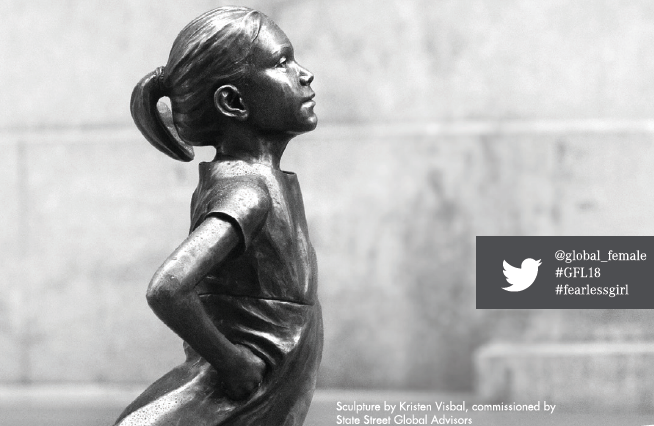
Since the installation on International Women’s Day last year, Fearless Girl has made a great impact as a symbol for gender equality and the power of women in leadership. State Street Global Advisors was inspired to create Fearless Girl by research showing that having women in leadership can positively affect company performance and the economy. However, the number of women in leadership positions is only slowly increasing.
On the same day State Street placed Fearless Girl in New York, they also called on the thousands of companies in their investment portfolio across the globe to increase the number of women on their boards, and they reached out to more than 700 companies that currently have no women directors. The results so far: 152 publicly-traded companies that the firm reached out to – through either its voice or its vote – have now added a female board member, and 34 more have committed to doing so.
This year, the firm announced it would be expanding its board guidance to companies in Japan and Canada.
“Know the power of women leadership”
As Fearless Girl continues to stand as an inspiration for companies to increase gender diversity on boards and in senior leadership, the good news is that the lively discussions amongst female leaders are growing! The Global Female Leaders, the Premier Economic Forum & Network for Female Executives, started five years ago with its annual summit to discuss global economic topics on a top female level.
This year’s diverse and rich summit programme will once again convene another trailblazing community of leading voices, visionaries and change makers.
Click here for an exclusive discount code for our readers.

Fearless Leaders Face Global Challenges
“The Values of Leadership in Times of Transformation, Disruption and Artificial Intelligence”
In line with the 5th summit’s motto this year our content driven agenda will address cutting-edge topics ranging from the global economic outlook and political trends, responsible finance, transformational technologies and ethics to energy and climate challenges. From inspiring talks to interactive Think Tanks and stimulating panel discussions delivered by top-notch speakers from industry and finance leaders like BMW, BNP Paribas, Fosun, HP, IKEA, JLL, MAN, Morgan Stanley, Novartis and Unilever, the high-profile summit agenda also ensures enough networking time with your peers from around the world.
We are grateful that our Premium Partner State Street Global Advisors share the vision with us to bring forward-thinking female decision makers and change drivers together.
Join this must-attend international networking event, be part and take the chance to look beyond your area of expertise for new inspirations, you will gain fresh perspectives and explore new opportunities for personal and collective growth.
You certainly do not want to miss to be there and be part of the unique spirit of the “Female Davos”.
Use the code GFL18CZECH for an exclusive reader’s discount!
For an even more special discount, please contact Linda at linda.stucbartova@czechleaders.com.
Read the story of the “Fearless Girl”.
Linda Štucbartová interviews Jonathan Wootliff about the European Union for Progressive Judaism conference being held in Prague.

From Sustainability to Regeneration
Jonathan Wootliff is our regular contributor on Sustainability Development and he is also the Chair of the local organising committee for the European Union for Progressive Judaism conference in Prague.
While he usually writes about such issues as corporate responsibility, environmental protection and social issues, in this issue he is interviewed by Leaders Magazine correspondent Linda Štucbartová about the conference which takes place in Prague from 26 to 29th April.
With more than 300 delegates from 27 countries, this will be the largest religious gathering of Jews in Prague from around the world since the Second World War. Almost 40 men and women rabbis will also be attending the conference, including the World Union for Progressive Judaism president and Europe first Progressive female Rabbi.
Why did you decide to bring this conference to Prague?

Jews have lived in this country for many centuries and Prague was one of the most important Jewish citiesin the world until 1939. It was the Holocaust and the subsequent communist regime that almost decimated the Jewish community.
The European Union for Progressive Judaism has been supporting the resurgence of Jewish life here since the Velvet Revolution. As a non-orthodox organisation, we offer an accessible alternative for many Jews, particularly through our two congregations in Prague, Bejt Simcha and the Jewish Liberal Union. While religion is at the heart of our Movement, we welcome people from diverse backgrounds who a kind of Judaism with which they feel comfortable.
Also, it is exactly 100 years since the establishment of Czechoslovakia and there is surely no other country that can match its both passionate and consistent support for the Jews and Israel.
Consider these words of Tomáš Masaryk expressed in 1918: “The Jews will enjoy the same rights as all the other citizens of our State… As regards Zionism, I can only express my sympathy with it and with the national movement of the Jewish people in general, since it is of great moral significance. I have observed the Zionist and national movement of the Jews in Europe and in our own country, and have come to understand that it is not a movement of political chauvinism, but one striving for the rebirth of its people.”
What is the purpose of the conference?
It is an opportunity for like-minded reform and liberal Jews to come together to learn, share experiences and celebrate the revival of Jewish life in the Czech Republic.
The conference includes a rich range of plenary lecture, debates and workshops. The topics to be covered will include antisemitism in Europe, mixed interfaith marriages, leadership across generations, community development, progressive Judaism and entrepreneurship, environmental and social sustainability, as well as Israel and its lessons for Europe on immigration.
We hope people will leave the conference feeling that they are part of a vibrant international group of Jews who are all determined to enhance and expand Progressive Jewish life across Europe.
We hold our European conferences every two years, and it was decided the time was ripe to recognise and acknowledge the importance of Progressive Judaism in the Czech Republic by staging the event here in 2018. The conference provides an opportunity to showcase Progressive Judaism and further enhance the credibility and standing of our form Judaism in this part of the world.
Who are you aiming to attract?
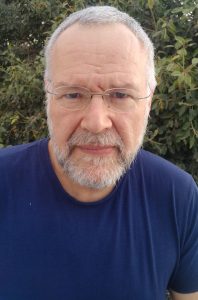
Jonathan Wootliff
People of all ages who are either currently involved or are interested in leading our communities are our primary target. We are especially interested in young adults, but everyone with a passion for shaping Progressive Judaism for the future is more than welcome. Everyone is welcome!
Can you tell us more about the distinguished speakers?
Some most interesting speakers are included in the programme including David Hirsh
Senior Lecturer in Sociology at the University of London who specialises on crimes against humanity and international law; Jean-Marc Lilling, Executive Director of the Center for International Migration and integration, Mark Podwal the artist and physician who has undertaken a considerable amount of work in the Czech Republic, and Director of the Vaclav Havel Library, Michael Žantovský, who is Czech diplomat, politician, author, journalist, lyricist and psychologist.
Why is the theme of the conference Regeneration – Building the Future?
The annihilation of a large part of Europe’s Jewish population doesn’t mean that we are consigned to history. On the contrary, the Jews of Europe are now flourishing. After the horrors of the holocaust, any opportunity to rebuild Jewish life was snuffed out by communism in this country. But now there really are strong signs of regeneration. Our numbers may be depleted, but our determination to rebuild is strong.
There can be no better example of Jewish regeneration that the Czech Republic where there is growing demand for religious, educational and cultural activities.
This conference provides the platform for celebrating the renewal of Progressive Judaism which really has its roots in Prague and elsewhere in Central Europe
What is the aspect of “Regeneration” that you are the most proud of with regards to the Czech Republic?
When I look at the enthusiasm among so many young Jews here who are committed to our regeneration, I feel very proud. And we have the exciting prospect of the inauguration of a Czech-born rabbi in 2019. Currently studying at our Progressive rabbinic college in Berlin, he will contribute enormously to the rebuilding of our communities.
Many people are sceptical about the conferences, as they are one-time event only. In what aspect the longer “sustainability” of any conference can be enhanced?
This conference will have failed if it simply provides some pleasant memories. We are determined to create a massive legacy out this event whereby Progressive Judiasm is firmly on the Czech map. We hope that the event will help to convey the fact that Judaism is accessible to all people in this country with some Jewish heritage. We want to communicate the very clear message that Jewish life is strongly returning to the Czech Republic and to give people a postive feeling about being Progressive Jews.
The EUPJ is the umbrella organisation linking and supporting more than 170 Liberal, Progressive and Reform communities in 17 countries, with new communities regularly seeking membership. The movement’s continued growth across Europe is testament to the widespread interest in non-fundamentalist, inclusive, egalitarian and modern interpretation of Judaism. This conference represents another major step forward for the further development of European Progressive Jewry.
A former director of Greenpeace International, Jonathan Wootliff lives in Prague and works throughout the world as a sustainability consultant to business. He is Chair of the Board of Experts of the Czech Business Council for Sustainable Development. He is also represents the Czech Republic on the Executive Board of the European Union for Progressive Judaism and is the local chairman of the conference organising committee
“Doing business is in my genes”

Hana Němcová, CEO, Infiberry
You may not be entirely familiar with the company Infiberry, but if your resolution for 2018 is to do something to protect the planet and reduce plastics consumption, I recommend you check out its product – the FRUSACK original bags. Hana Němcová, along with Tereza Dvořáková, pioneered and developed these trendy Czech environmentally-friendly and compostable bags for holding fruit, vegetables and bread. Their successful start-up company is evidence that even students of traditional fields can come up with innovative ideas and make their mark in the business world. How does a medicine student become a businesswoman? How can she manage study, building a global company and bringing up her small son? And what did she get out of her participation, and a great 4th position, in the global Women Start Up Competition?
We had had to postpone our meeting because Hana’s young son was sick. When the same thing happened three weeks later, I decided to make the trip to Hana’s home. We completed the interview in one hour, during which time Hana made a number of telephone calls, with an investor and with her colleague regarding co-ordinating pre-Christmas orders from the e-shop, we filmed a video of the interview and discussed the poor range of appropriate waste sorting bins available for the home. Perhaps another new product? It was clear that Hana is a young woman with a lot of energy and hard work.
Hanka, you decided after almost four years to stop studying medicine at Charles University, and return to first year. You have started studying at a private university focused on business and financial management. Was this a difficult decision?
It was obvious to me, although I was always being told how much of a shame it was. I had my finals and compulsory practice ahead of me in medicine, and these are very difficult in themselves. Besides business, I also look after my four-year old son. I knew I didn’t want to work in medicine itself, so I made the pragmatic assessment that it would be a waste of time and energy. I would have been just an average doctor, and this would have been hard to come to terms with for me. I want to dedicate myself fully to doing business, something I enjoy and which fulfils me. The part-time aspect of the course suits me and I’m happy I’m able to use the knowledge I acquire in my specialisation of Financial Management in practice.
How is your Frusack product doing three years in?
They’re doing really well; thanks for the question. We’ve moved on from our dreams to implementing specific plans. We’re growing on the Czech and Slovak market, and in the new year we’re planning to develop global international distribution in collaboration with Amazon. I’m glad that we have made progress in developing the material further, in collaboration with our supplier. The process wasn’t easy; nobody knows how a new material is going to behave. The material is still compostable, made from corn starch, but we can now make it more quickly and more cheaply, and this is key when transitioning to wholesale distribution. Transition to wholesale distribution is a stress test which many projects are unable to pass. Very often, a product and its design are very good, but production costs are too high. I should say that Frusack is just one product, and a key pilot project. Our company, Infiberry, aims to continue to focus on environmental solutions to food purchase and storage, to go on to offer large shopping bags, and then boxes for storing foods. Food waste is an area very closely related to food packaging. Many foods are distributed pre-packaged. But back to Frusack. We need to be sure we can handle all the steps not only involved in production, but also in distribution, in order to succeed globally. Incidentally, little is known, and little is written, about these phases. In the fascination over new and successful projects as part of various crowd-funding campaigns, it is not mentioned that people have not always been able to bring an initial idea all the way to a successful end. It is frequently logistics, a distribution network and all subsequent processes which are missing. As such, it is these issues we want to look at now. Until recently, it was only my colleague and I, with assistance from the investor and his team, although they were not part of the company. Now we have an assistant who helps with administration, and we have a trainee who takes care of co-operation with stores. Now Frusack isn’t just available from our e-shop, but also in brick and mortar stores. There are about a hundred people involved in production, and the owner of the Czech company which sews our bags together has essentially become our head of production.
What drives you personally? Business in general, or environmental business, or is it rather a matter of social responsibility?
I’ve always enjoyed business in general. I could choose from loads of simple or even profitmaking areas. But I need to see positive impacts and the changes they bring. I just found those plastic produce bags really annoying. I led a healthy life, bought loads of fruit and vegetables and the bags which built up at home basically led me to my current line of business. I wanted to start using reusable produce bags, but there was nothing on the market. I didn’t have as much information then about the harm caused by plastics, in particular in terms of their accumulation at the bottom of the oceans and their impact on sea creatures. That makes me even more pleased that public awareness is greater, particular in terms of the new carrier bag charge as of 1 January 2018. I’m pleased to be able to contribute towards dealing with this problem; whether through people purchasing and using Frusack bags, or because we have helped make people talk about the problem.
What are Czech consumers like in terms of acquiring new habits?
I don’t know whether this is peculiar to Czechs only, but I feel that we are rather lazy. Loads of people really like the look of Frusack, but then they say they would forget to bring the bags to the shop. But it always takes effort to build up any habit! It’s like regular exercise. I’ve learnt to bring my keys, mobile, wallet and Frusack bag containing four other reusable bags when I go shopping. This situation will be dealt with when such plastic bags are charged. There are now charges for carrier bags, and you can suddenly see how everyone carries foldable fabric bags with them, and net bags can once again be seen in the pages of fashion magazines. Statistics show that each year up to 400 plastic bags per person are consumed in the Czech Republic. Last year in Great Britain, charges were placed on even the smallest, thinnest bags and within half a year their consumption fell by a full 80%. Basically the economic aspect will always have the greatest impact. Yet according to our research 70% of people have information available to them on the harmfulness of using plastics.
You and your story in business demonstrate the success of Charles University’s Centre for Knowledge and Technology Transfer in supporting transfer in practice.
Yes; I took advantage of the opportunity to study Science and Information Management. This was the first time I had had the opportunity in my studies to come across socalled soft skills, both in terms of management and presentational skills. The rector of Charles University himself is a great advocate of students knowing how to sell what they learn at the university. Another benefit was that this subject was open to students at all 17 faculties. I met a colleague there who was studying marketing and PR, and he helped us at the outset. I remain in contact with the Centre for Knowledge and Technology Transfer, and they have helped furnish us with contacts for potential investors.
Your generation is spoken of as a generation of start-uppers who want to do business and are not interested in being employed.
I think the pressure is a double-edged sword. All those successfully publicised stories of student entrepreneurs can put pressure on others who might get the impression just studying is not enough. Or for other women, studying and raising a child. I think it is important for us all to know what makes us happy and what we want to do. Then we have the chance of being the best at what we’re going to do. There are many options, and establishing a company is easy.
You represented the Czech Republic last year at the Women Start Up Competition; congratulations on your fourth place. Looking back, what specifically did the competition give you?
It was fascinating to meet the winners from all the countries; the bar was set really high. We still remain in contact. We also had the opportunity to take part in a three-day mentoring programme. We’ll see which of the recommended steps and in which form we execute them in the end. In general, I think mentoring is really important; we chose our current investor because he is also a mentor to us.
Where do you see yourself in 10 years?
I trust that Frusack and Infiberry will still be around, and we’ll be doing well internationally too. My son will be 14. I’d like to travel more. And I’m looking forward to getting to a stage where I have more time for personal development. I haven’t had a holiday for two years. I’ve been to visit my parents in the USA, but the whole time I was in contact with and managing the company. I feel that I’m getting to a stage where I’m going to need more time for myself and my partner. So I’m looking forward to building a strong team.
By Linda Štucbartová
Wait for fortuitous circumstances, or be well-prepared?
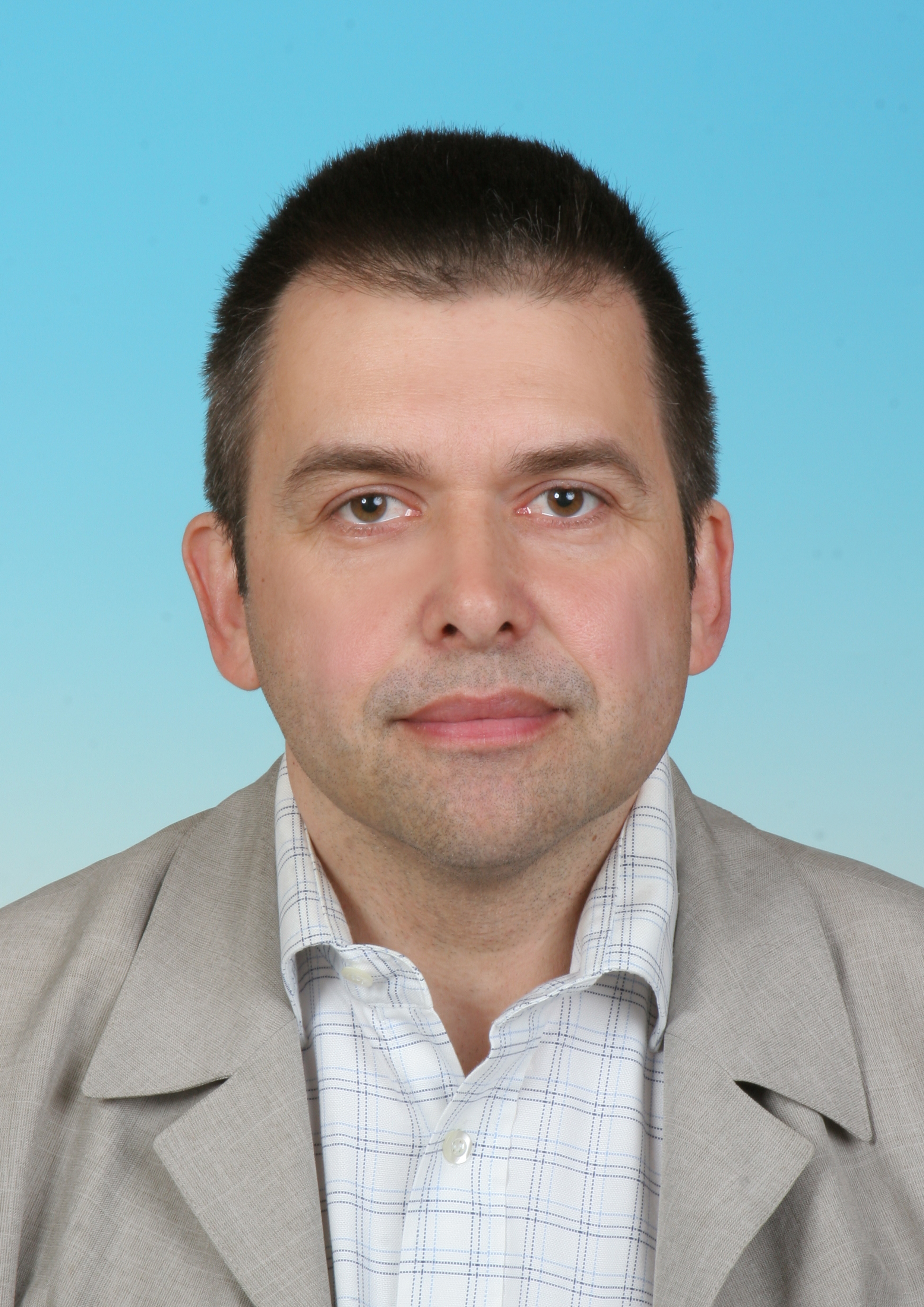
Aleš Baran, CEO, Serendipity
In his work, Aleš Baran brings together different continents, spheres and projects. He links corporations up with start-ups, companies with possible grant projects, experienced workers with students. His companies, surprisingly enough, are not based in Prague or Brno, although he spends a lot of time in both cities, as he remains loyal to his home town of Přerov.
Aleš, your first company was named Serendipity. The term “serendipity” has also been described as one of the ten expressions in English most difficult to translate into another language, and is loosely translated into Czech as “fortuitous circumstances”. How many times have you experienced fortuitous circumstances? And what about your clients?
I’m grateful for every “fortuitous circumstance”. Besides my wife and family, who are fortuitous indeed for me, in my professional life I see fortuitous circumstances in the establishment of co-operation with Martin and Miriam Margala from Massachusetts University (author’s note – you’ll find an interview with Martin Margala of Massachusetts University in the Ambassadors without a Diplomatic Passport section). I share the same values as the Margalas, and also the energy and vision to kick-start co-operation between the Czech Republic and the USA in the field of science, research and innovation. Getting to know them has allowed me to meet other fascinating people and given me opportunities for which I am extremely grateful. I really appreciate the opportunity to speak about international projects within the Czech and Slovak Leaders magazine.
Your motto is: Don’t share your plans, instead show results. What results are you proud of?
In 2017, Serendipity prepared the “IT, Languages and Polytechnic Education in the Town of Přerov Accelerator” project, which offers young people in and around Přerov the most cutting edge facilities for informal education and meaningful use of leisure time, especially in afternoons and at weekends, i.e. at times when schools are closed. I am proud that this project has received full marks in an anonymous assessment.
Another Serendipity project is ENAGO. This time, this isn’t a foreign word, but rather an acronym for European North American Grant Office. There is still little awareness within the Czech Republic of the opportunity for funding through European Union and North America joint grants. Why is that the case?
Four years ago, I took part in Kenneth Hoffman’s seminar, “Fundraising from the USA and Opportunities for Czech Charities” at the American embassy. The host posed a key question there: Why do so few non-profit organisations in the Czech Republic apply for grants from the USA when the option is there? Two years later, I came up with the ENAGO project idea in response to this question. I endeavour to accelerate and facilitate the process of establishing contacts, placements and study visits, and thus initiate the implementation of more projects between the USA, Canada and the Czech Republic. In order to successfully exploit grants from the USA and Canada, not only is a perfect knowledge of the English language important, but also the presence of a local representative in North America who is familiar with local conditions. The Margalas I have already mentioned play an important role, because they are familiar with both the European and American perspective.
In terms of joint grants, here you can’t just rely on fortuitous circumstances, but you need to be perfectly prepared. What is fundamental to success?
The actual process of applying itself, regardless of the outcome, can be considered key for the reputation of the institution applying for a grant. It is important to realise that even these projects help boost the Czech Republic’s visibility on the North American continent. Applications for these grants require not just innovative, but also commercially viable ideas, convincing references, partnerships with local institutions, stamina and will, and last but not least a lot of effort. As of yet, we have not acquired any grants from the USA or Canada. We have, however, acquired a valuable partner and supporter. This is Ms Kristal M Johnson of FundJoy from the USA, with whom we plan to contact leading American foundations to offer them the CSR Index project. This is a kind-of LinkedIn focused on the social responsibility of citizens, corporations, municipalities and nonprofit organisations with the option of setting up your own social responsibility index with a number of other functions leading to improved global sustainable development.
You are also a member of the expert council of the Science Research Innovation Fair, which is taking place in May 2018 in Brno. What makes this fair unique?
The Science Research Innovation international fair offers a unique opportunity to provide a space for discussion and presentation from researchers, application companies, science, research and innovation supporters and young scientists at one site. It is a new platform for bringing together the science and research and application sectors. The fact that the number of fair participants, both in terms of exhibitors and participants, has doubled over the past two years demonstrates its continuously growing potential. No researcher who wants to commercialise the outcomes of his research should overlook it, and nor should any company which wants to exploit the latest scientific knowledge within its innovative products. Exhibitors are sending their registrations for the third year right now. Serendipity has decided to take on organisation of the accompanying Youth Startup Festival on 16 May 2018 which involves the presentation of up to 500 leading youth projects and start-ups from the Czech Republic and beyond. As such, I am a member of the expert council and am happy to be there. The fair’s motto speaks for itself: “Creating a great future together”.
We’re meeting up at the start of 2018. What are your plans for this year? And have you made any resolutions?
For 2018, we have decided to focus on the ENAGO, Accelerator and CSR Index projects. Future grant funding available will help guide us as to what further challenges may lay ahead for us. On the basis of the Czech Ministry of Labour’s published calls for funding proposals in December 2017, there may well be one original project we might initiate, but I don’t want to get ahead of myself. In terms of personal resolutions, I want to spend more time with my family, improve my professional English, see myself more frequently in the gym mirror and find an investor for the already mentioned CSR Index project.
What is your final message for readers of Czech and Slovak Leaders?
I hope that all your readers will find fortuitous serendipity on their side many times in 2018, and that all instances of “unfortuitous serendipity” pass them by. We are donating two free tickets to the Youth Startup Festival as a gift for readers who tell us of the fortuitous serendipity they encountered when they began their business. The Czech Republic is commemorating 100 years since the establishment of Czechoslovakia. It was small and medium-sized companies which played a key in the past, and it will be my honour to support such entrepreneurs.
By Linda Štucbartová
Ambassadors without diplomatic passports
How do you perceive today’s world?
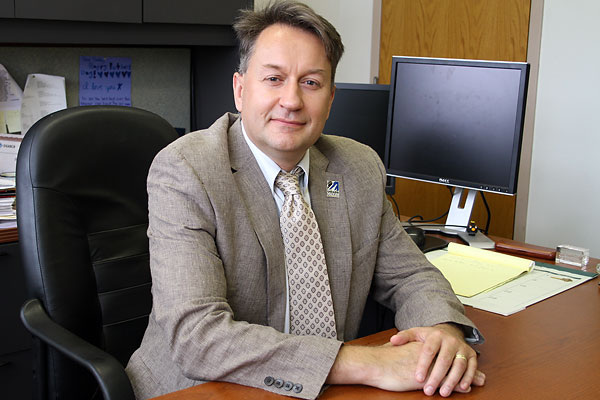
Professor Martin Margala, UMass Lowell
Dr. Martin Margala is a Professor at the University of Massachusetts and a Fulbright Distinguished Chair in Electrical Engineering. He was born in Bratislava where he also completed his first university degree in engineering.
After the Velvet Revolution, he earned his PhD at the University of Alberta in Edmonton, Canada, where later he became a professor. After living in Canada for about ten years, he moved to the Unites States. Since 2006, he has been living in Massachusetts, fulfilling his dream to live in a state where education is the main “industry” and focus.
I met with Martin and his wife Miriam two years ago. Our meeting immediately confirmed the saying that great minds and kindred souls think alike. Right away, we started to discuss how to change the approach towards education in the Czech Republic.
Out first meeting took place at the US Embassy, where Martin was chairing a panel on innovation and entrepreneurship with other three leading education specialists from the US. I was the only panel participant representing the Czech side. While the event attracted a lot of attention from the private sphere, academics, NGO representatives, and officials from the public sphere were missing. There is still a lot to be done! I admire Martin’s experience, drive and his ability to connect the Old and the New world. Having grown up in Europe and becoming very familiar with the “old continent’s” attitudes does not prevent him from challenging the status quo and bringing fresh and innovative ideas. And he definitely wants to see results sooner rather than later.
So, how do you perceive today’s world?
I am a great optimist. Even though today’s world might be perceived by some people as too challenging and some may even have a rather defeatist attitude, I see it as a world full of new opportunities. In fact, to me, these are exciting times to be living in. The advancements of technology are penetrating all areas of our society and will help increase markedly the standard of living everywhere. New significant discoveries will become more and more frequent. Major diseases will be eliminated, many discoveries will help fight poverty and close the inequality gap in the world. It may sound too idealistic – but there is so much happening, so many people do work with one large goal – to make a difference and make life better. If you work in research and education, if you are surrounded by people with a positive mind set – preferably in a very international and global context – then I think you can only be optimistic and driven to work every day on positive things.
How do you perceive today’s Czech and Slovak Republics?
Both countries are still very young. I see both countries undergoing a generational shift. You can observe a push and pull dynamic between the old thinking and the new thinking; the past and the future. Young men and women that were either children or not even born at the time of the Velvet Revolution are becoming more involved, more interested in what’s going on around them and more liberated from old traditions. Again – I can only repeat myself, I am an optimist. I do see exciting times ahead – but it is a long process; it is not easy and not at all smooth. There are and will be many challenges, many failures – but I do believe that in both countries, there are people who are able and ready to take risks and contribute to positive changes. In my work, especially through my international collaborations, I interact a lot with young people from both countries – there are many dedicated, excited, hard working young people and every day, their goal is to move ahead, whatever challenges they have to face.
When we come to the topic of the US-EU scientific co-operation and its potential, is the glass half empty or half full?
It is definitely half empty. I am not turning into a pessimist here – but the status quo is really not suited and efficient for today’s global world. The funding systems setup in the US and in Europe have always been inward looking. There has been a very limited support for truly international collaborations in research and education and virtually no funding mechanism that would connect willing global partners. However, many national governments have recently started to realize that there is an untapped potential with many benefits for all involved partners. These efforts are growing and new programs are being set up. It is important that people interested in true international collaborations and global partnerships do not give up and simply charge ahead. From my own experience, I have to say that it has been frequently an uphill battle but a battle that one can – and should – fight because the results are really worth it. One has to be very vocal – I have been talking incessantly for very many years to anybody who would listen: researchers from universities all around the world, funding institutions/managers, government representatives, diplomats, attaches, ambassadors – any opportunity, I just take it and use it. Of course, you actually have to show results – once you have concrete examples of successful collaborations, it becomes easier. There are many exciting opportunities and I have been fortunate to be part of, or in charge of, many endeavors. The Czech and Slovak Republics have been trying to launch such efforts – and again, they have to persevere. Just because there will be ideas that may fail does not mean they should give up. Any failure or mistake is a learning opportunity – and will help you to fine tune your efforts, formulate better plans and forge better, successful collaborations.
You have been very active in the sphere of higher education, bridging various spheres together – municipalities, corporations, NGOs and universities. While such approach is common in the US, the Czech Republic still has a long way to go. What do you suggest to start with to bring about a change?
As I mentioned previously, it is the drive of likeminded people that get behind a mutual goal: setup a new program, new activity, new project, whatever it is, and go after it until you see results. The problem in the Czech Republic and Slovakia is that the societies have been built as sets of silos, a sum of entities that co-exist, but were never built to network/interact with each other. What I mean by that is a local municipality was never setup to collaborate on new innovations with the local university or high school to solve everyday problems and improve services for its citizens. No programs exist that would support such collaborations and if they do, nobody knows about them or how to go about taking advantage of them. Another example is that there is no mechanism where municipalities – large and small, NGOs, companies and the education sector can interact to bring new innovation ideas to practical implementation.
To bring about a change in such a system, one has to work from bottom-up and seek supporters/likeminded men and women to get behind one project at a time and use any medium possible to publicize all the sucess stories that there are. We have been cooperating on the new project of Youth Startup Festival in May 2018 in Brno.
Can you tell us more about this unique and truly revolutionary project?
The Youth Startup Festival aims to combine several elements that I mentioned previously. It links innovative ideas and projects with the next generation of young men and women, the millennials, and will try to demonstrate how to become a transformative individual in the modern society. There are many programs around the globe that try to invest in the education at the elementary, middle and high school level to teach young students to become comfortable expressing new ideas that support innovation and change, especially ideas that are high risk/ high reward so that young people become comfortable with and learn from failures. Plus, this festival will be located in Brno for a good reason. This region has been at the forefront of the innovation revolution and is an example from which many other regions are trying to learn how to navigate the world of innovation, research and collaboration in a silo-based society and how to find an effective way to implement changes and innovation; bring innovations to practice as fast as possible.
Your final words and a New Year’s wish or message for Czech and Slovak Leaders Magazine readers?
Let the year 2018 be even better than 2017.
By Linda Štucbartová
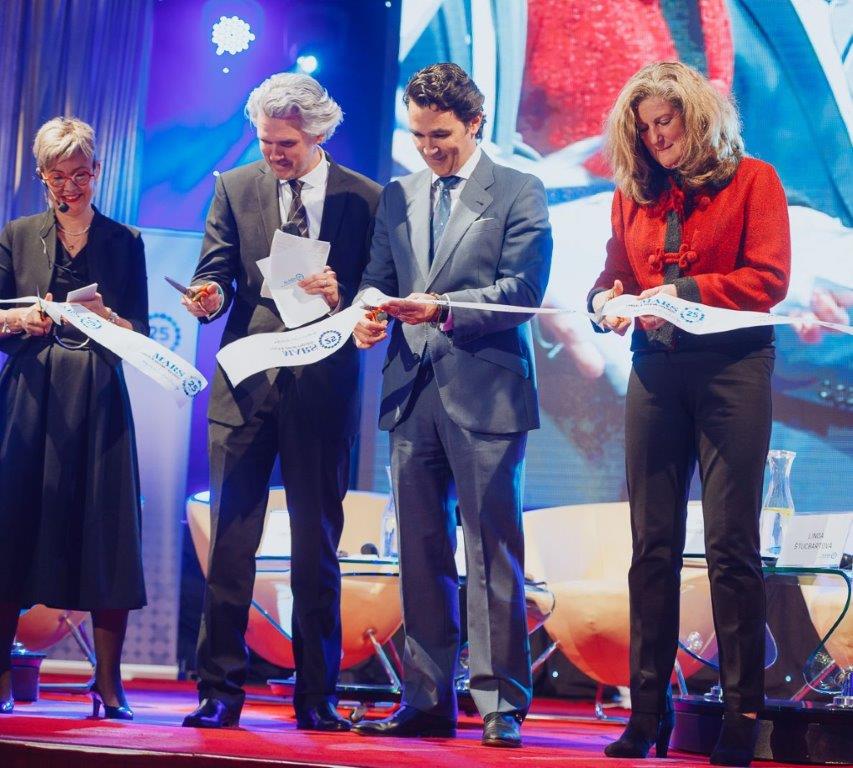
Stéphanie Le Béchec, General Manager of Mars Multisales Central Europe; Bill Heague, Market Director of Mars Czech & Slovak Republics; Juan Martin, President Mars Multisales, and Pamela Mars-Wright, 4th generation member of the Mars family opened another quarter-century of active market presence.
Mars celebrated its 25th anniversary on the Czech and Slovak market and introduced its new „Sustainable in a Generation Plan“ at a gala evening held at Žofín Palace on November 15, 2017. The strong presence of external partners as well as senior Mars leaders marked the importance of the event in the region. Pamela Mars-Wright, representing the 4th generation of Mars family, was amongst the guests.
Both globally and locally, Mars has always believed its business will thrive and endure for generations to come only if the people Mars works with thrive, too. To highlight that, a creative panel discussion was held as part of the program hosting both internal and external experts including Pamela Mars-W right to share their insights on sustainability and generational change. The panel also presented a unique occasion to ask few questions to Pamela Mars-Wright.
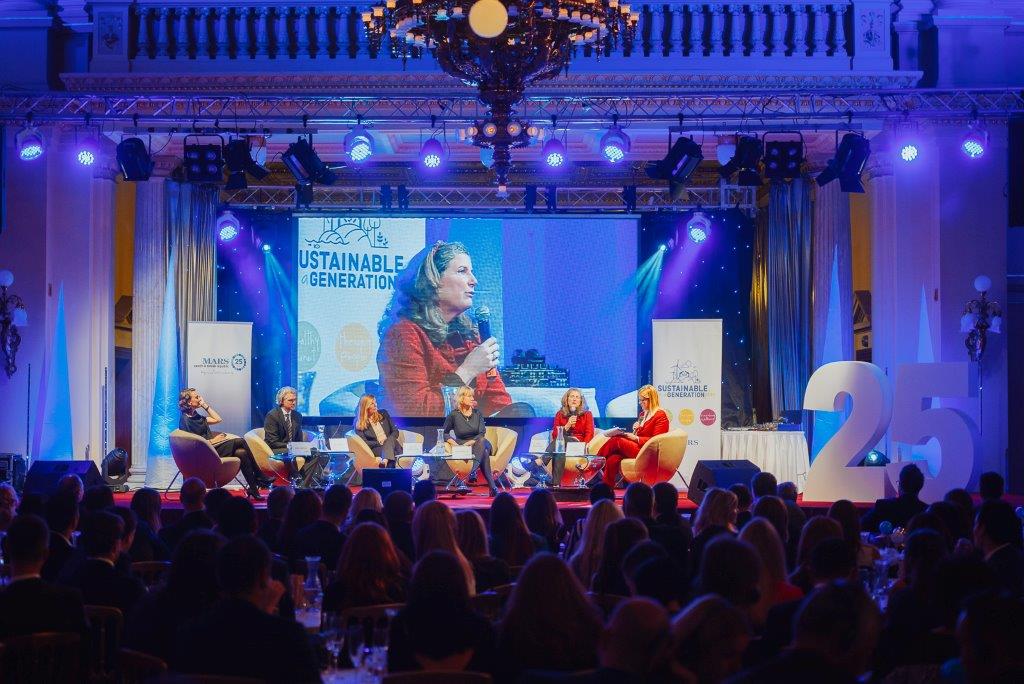
Soňa Jonášová CEO of Circular Economy Institute, Bill Heague from Mars, Rostya Gordon-Smith, MINERVA 21 Founder and CEO PeopleIMPACT, Petra Průšová CEO of Kantar Insight CEE together with Pamela Mars-Wright and the host of the panel Linda Štucbartová.
How does it feel to be a fourth generation member of the Mars family?
It feels just normal, it’s all I’ve ever known. It’s great to be a part of this business, and I’m proud to be a part of carrying the legacy of my great-grandfather, grandfather and father forward. And, the the best part is knowing that we have a generation five and generation six – to continue that tradition. As members of the fifth generation are coming of age as adults, many of them are very excited to also have the opportunity to engage as their parents, aunts and uncles have done.
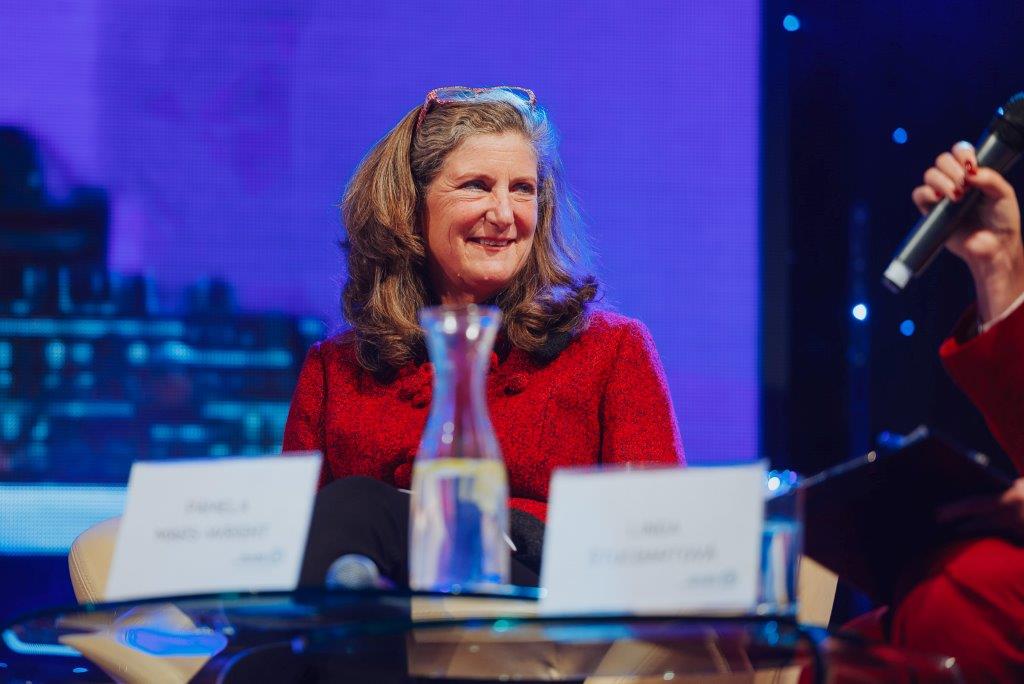
Pamela Mars-Wright, 4th generation member of the Mars family
Now let me ask about the change, because over the course of 100 years the business changed but also the family changed, so how?
Our business has changed a lot, it has grown, we have made acquisitions, and we have gone to a lot more countries. But I don’t think that the fundamental values of our business are any different today. It’s still the same roots. It’s a bigger business but we try to keep that family feel, regardless of how big we’ve gotten. And our Associates are making this happen by keeping our culture alive.
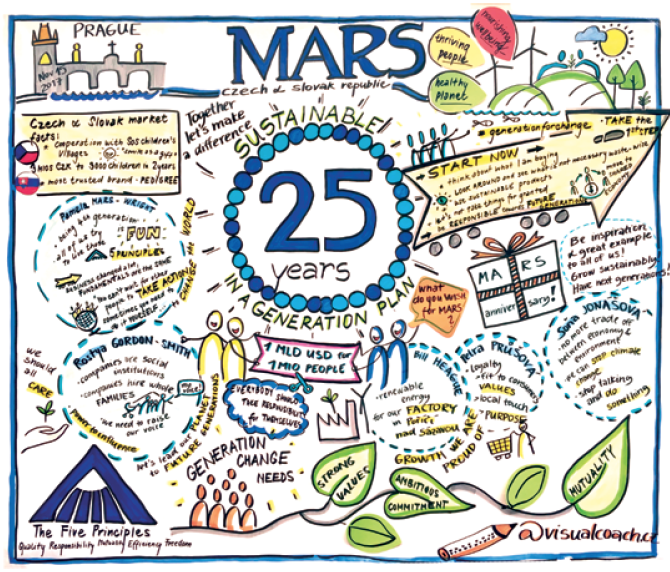
The whole event was also captured by Visual Coach company which provided graphic recording.
The Five Principles have guided Mars for generations and made Mars a company that is growing and thrives to make a difference. These Principles are: Quality, Responsibility, Mutuality, Efficiency and Freedom. My question to you is how you have managed to uphold these values, not only over one century but over so many countries and different markets?
People ask whether I grew up with the Five Principles. We may be a slightly crazy family, but not that crazy, so we didn’t have a sign in our house with the Five Principles on it. There is a couple of non-negotiables at Mars and one of them is the Five Principles, it’s what we live by. We all try to live them every single day as best as we can, both personally and professionally. And it’s worked very well for us. When we’ve lost track of them, which we sometimes have because we don’t do it perfectly all the time, we find our way back to those Principles and then we know we are on track again. Our Principles help us to be the company we are, but it all depends on our Associates striving to bring them to life every day. That’s what guides us and connects us all around the world.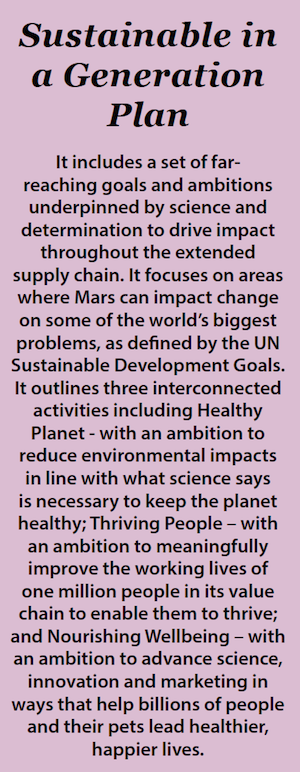
Last but not least, you’ve recently introduced the “Sustainable in a Generation Plan”. You’ll invest over 1 billion dollars over the next few years to improve the working lives of 1 million people in your value chain. In the past you haven‘t been known to be a company that is very public. So, why now, and why in Prague?
Mars has always believed its business will thrive and endure for generations to come only if the people Mars works with thrive, too. Of course, our first focus is on our Associates, but we need to go even further to ensure that the people in our extended value chain are thriving as well – particularly the small holder farmers that grow the crops we use in our products. While the industry has been working on this as a whole, sometimes you have to step up and lead and be a catalyst for others to follow. And we as a family are very committed to sustainability. What we need is some uncommon collaborations, partnerships across industry and with governments and NGOs that will help to change the world and ensure that we still have a planet for our grandchildren and that the children of the small holder farmers in our value chain have a future. We have to do this now. By stepping up, hopefully others will follow and join us so we can make a difference.
By CLM
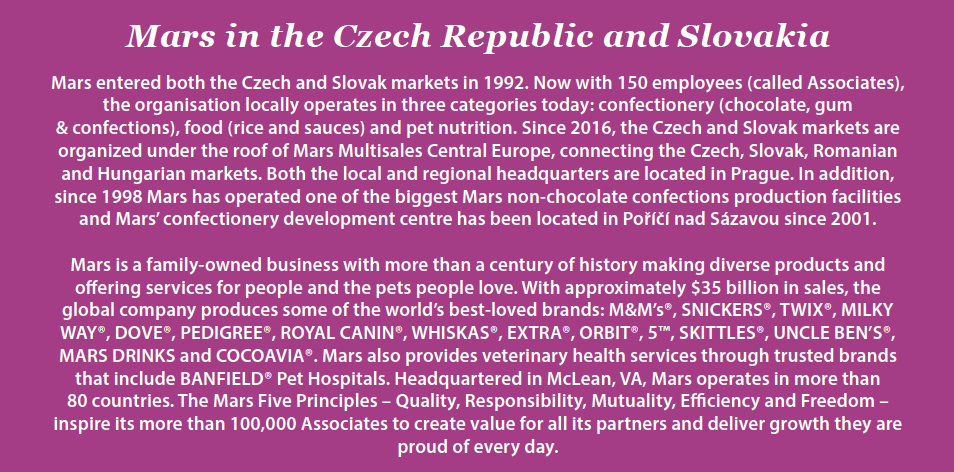

Photo from the 16th Annual Trebbia International Awards
Dear friends of culture and the arts, we are pleased to inform you that the Trebbia Foundation in cooperation with Czech & Slovak Leaders are currently organizing the
17th annual International Trebbia Awards Ceremony,
this time affined to the 100th anniversary of the foundation of Czechoslovakia,
the Spanish Hall of Prague Castle on June 17, 2018, at 8:00 p.m.,
broadcast live on Czech Television and Slovak Television www.trebbia.eu
The programme will include a performance by Czech soprano Alena Miro and Slovak tenor Pavol Breslik, who will be accompanied by the FOK Prague Symphony Orchestra conducted by Rastislav Štúr. The world premiere of Symphonic Picture Trebbia 2018 composed by Varhan Orchestrovič Bauer will also be performed. Seven laureates from the Czech Republic, Italy, Mexico, Germany, Slovakia and Switzerland will be presented with diplomas and bronze Trebbia statues created by sculptor Stefan Milkov. Furthermore, the gala evening will include a traditional benefit auction of paintings by famous personalities, who are not the professional artists and lithography by Miroslav Pošvic “Balance”, which was exhibited at the North Pole. The proceeds of the auction will be divided equally between two selected foundations. The programme will be followed by a social gathering and buffet in the Spanish Hall.
See below for information about tickets!
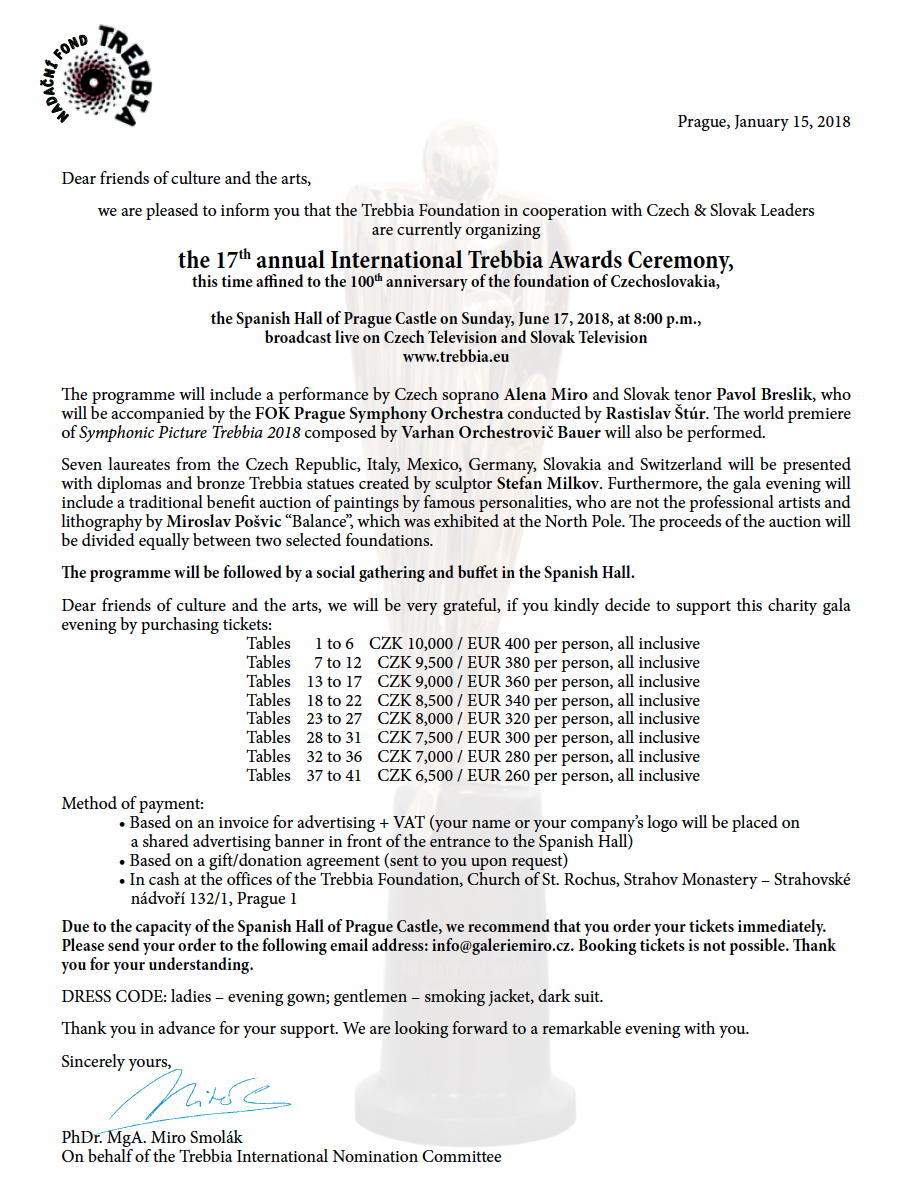
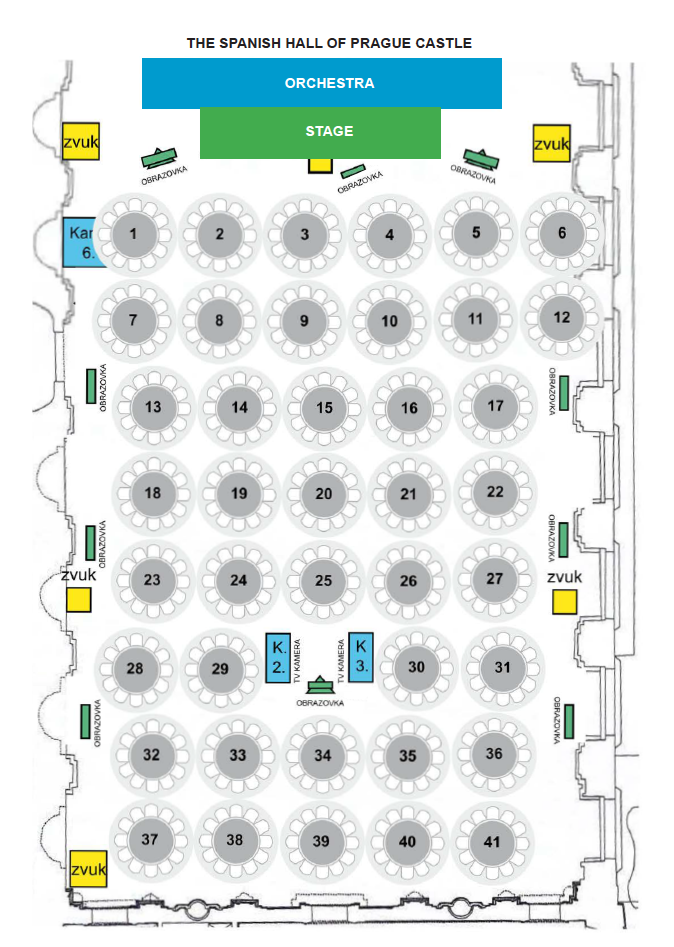
Have a look at our exclusive photo coverage of last year’s event!
Kinnarps together with RICS sponsored one of the popular Thirsty Thursday events at Restaurant Mlynec right on the banks of the river Vltava, a stones throw away from Charles Bridge.
The event with Kinnarps participation was it’s third consecutive year and was attended by around two hundred guests who were served with delicacies from Mlynec, Cuban live music and rounded off with a DJ.
Digital diplomacy
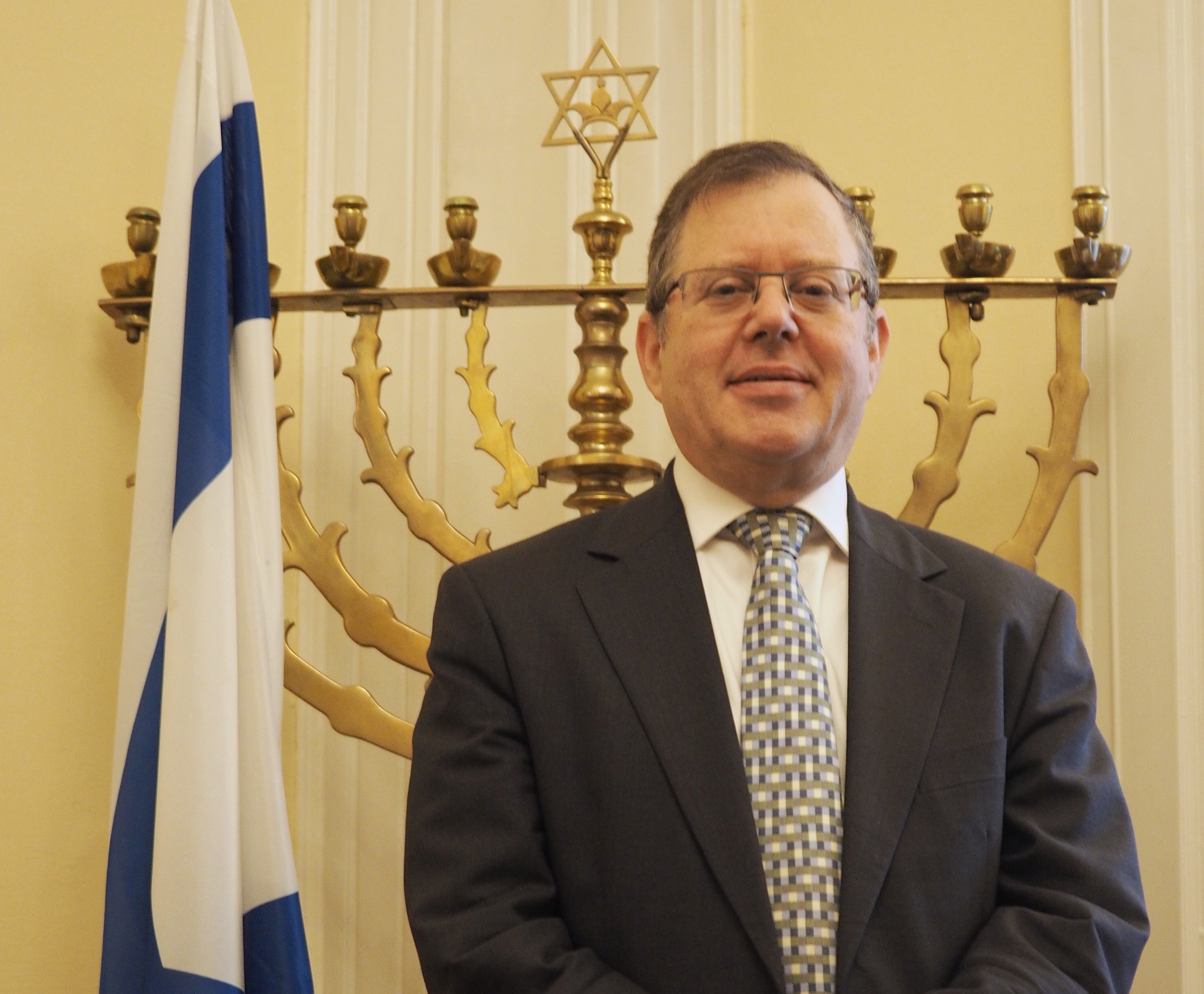
H.E. Daniel Meron, Ambassador of Israel in Czech Republic
The fact that each interview is unique is hardly a surprising statement. However it was during my meeting with the Israeli ambassador that I experienced a role reversal; the interview did not start with me asking the prepared questions but Mr. Ambassador asking about me. I was able to experience firsthand the fact known to many: Israeli diplomacy, especially towards the public, is the best in the world. It came as no surprise that Mr. Ambassador, being not only a great speaker but also a very attentive listener, addressed the issues of my interests, beyond the originally outlined questions. Here you can expect some insights on digital diplomacy, women in technology and also a rather refreshing expat view on both Czech society and culture. Daniel Meron has previously worked at Israeli embassies in USA, Norway and Cyprus. In Washington, he was a commissioner for the Congressional affairs, which mediated relations between the Israeli government and the US Congress. In Norway and Cyprus, he held the post of deputy ambassador.
Mr. Ambassador, we started our interview talking about the changing nature of diplomacy in the 21st century and the role of Ambassadors without diplomatic passports, which was the title of my book and a subsequent series of the Czech and Slovak Leaders Magazine. These people are not diplomats yet, by being leading personalities in various domains, they promote and influence the image of a country abroad.
I see the role of such individuals growing and becoming more important. I can name few leading personalities representing Israel: Gal Gadot, an Israeli actress and a model, famous for portraying Wonder Woman in the DC Extended Universe movie; a violinist and a conductor Pinchas Zukerman; and an Israeli professional footballer Eran Zahavi, currently playing in Guangzhou, China. However, even many of my colleagues, being traditional diplomats, are expanding beyond diplomacy. One of my colleagues has just started culinary diplomacy at Twitter, as she likes cooking.
How has diplomacy changed and what is the right diplomacy for the 21st century?
I love this question. Just today, I spoke to our department of digital diplomacy. This department did not exist five or even two years ago and many countries still do not have this department. We put a lot of emphasis on social networks. This is just one example of changing diplomacy due to technology. I am known for challenging the traditional way of diplomatic reporting back via cables. I maintain that we should use more open communication. I believe that headquarters should go to my Facebook, Twitter and Instagram account to find out about my activities in the Czech Republic, rather than waiting for some formal large reports. I see the trend coming, it will take another five to ten years.
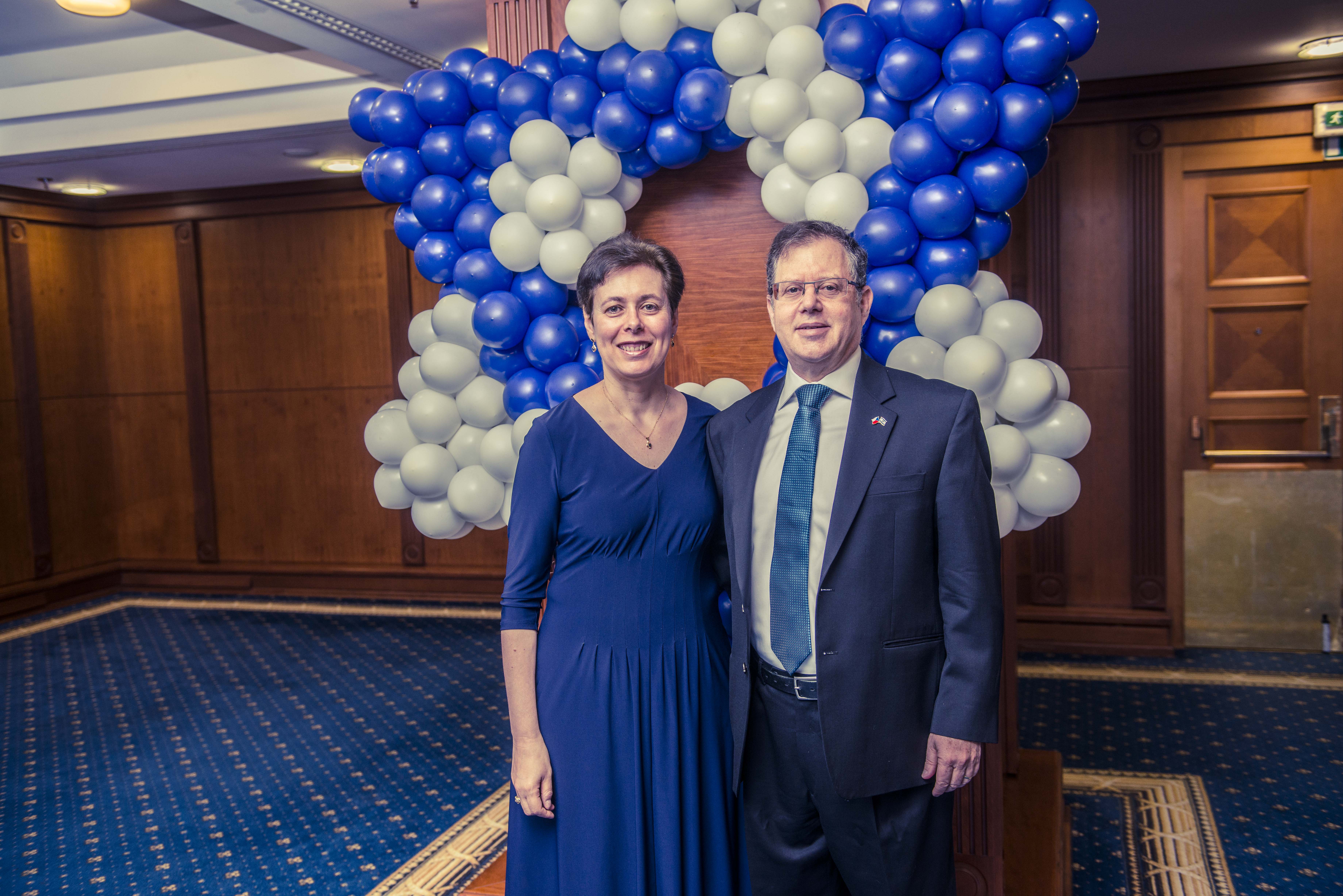
H.E. Daniel Meron with his wife Jill Meron
I have seen your Youtube message you used as an introduction to the Czech Republic (you can see it below). Is this the new way of introduction for each Israeli ambassador?
Each new ambassador gets a gift from the Ministry of Foreign Affairs. You get a team of a movie director, a cameraman and a writer of the script. You give them an idea and they prepare the story for you. I come from Jerusalem and I pointed out many similarities between Prague and Jerusalem. One of my colleague is from Tel Aviv, so he talks about the city of tomorrow, regarding the high-tech. Another colleague is a daughter of a Holocaust survivor. She talks about her story and what it means to her to be a diplomat, representing a Jewish state in Europe, having special memories and legacy.
How did it feel shooting a three minute movie and being a star in the spotlight, rather than a diplomat in the background?
It was exciting. It was great to have my daughter joining me for a beer in the market. I have shown this movie to many young people, as I go to schools very often. When young Czechs see this movie, they usually say that they did not have an idea what Israel was all about. I try to convey a message that Israel is a very modern, developed country, in the front line of technology and culture. Some people still had the image of a desert country with camels walking around. Yes, we have camels but we have much more modern features. My daughter is in high tech, now finishing her fourth year at the university, specializing in computer and electrical engineering. She works in Jerusalem in a company designing an autonomous car, also featured in my introduction video. Moreover, she volunteers in a special program at Hebrew University, called QueenB. A group of young Israeli women with high-tech backgrounds decided that there had been enough talking about the need to get young women into sciences, high tech and other technical disciplines, it was time to act. The university students now teach the high school female students, my daughter is teaching coding.
You have mentioned one thing I find disconcerting: the fact that young Czechs do not know Israel. How is that possible, given the fact that the Czech Republic is the closest ally of Israel in Europe? The Czechoslovak and Czech Israeli relations have very long and deep roots. Did we fail to pass on the common history to the younger ones?
I do not wish to compare one generation to another. I believe that the young people know a lot thanks to social media. The Israeli band Lola Marsh had a concert in Acropolis and it was totally sold out, even though it was their first visit to Prague. The culture is known thanks to the personalities. It is rather due to the complexities of the politics in the whole region that makes it more confusing. Let us not forget that during the communist times, it was also challenging to get to the right information. We have to go even further back in time, to Tomas Garrigue Masaryk, his fight in Hilsner affair, him coming to Palestine in 1927 and then the sad history of the Holocaust and its survivors and Jan Masaryk and his fight for the State of Israel, helping displaced Jews come then to Palestine and then sending arms. All this information used to be shared within a generation concerned. Now, it is up to us to teach the younger generation also about these historical events.
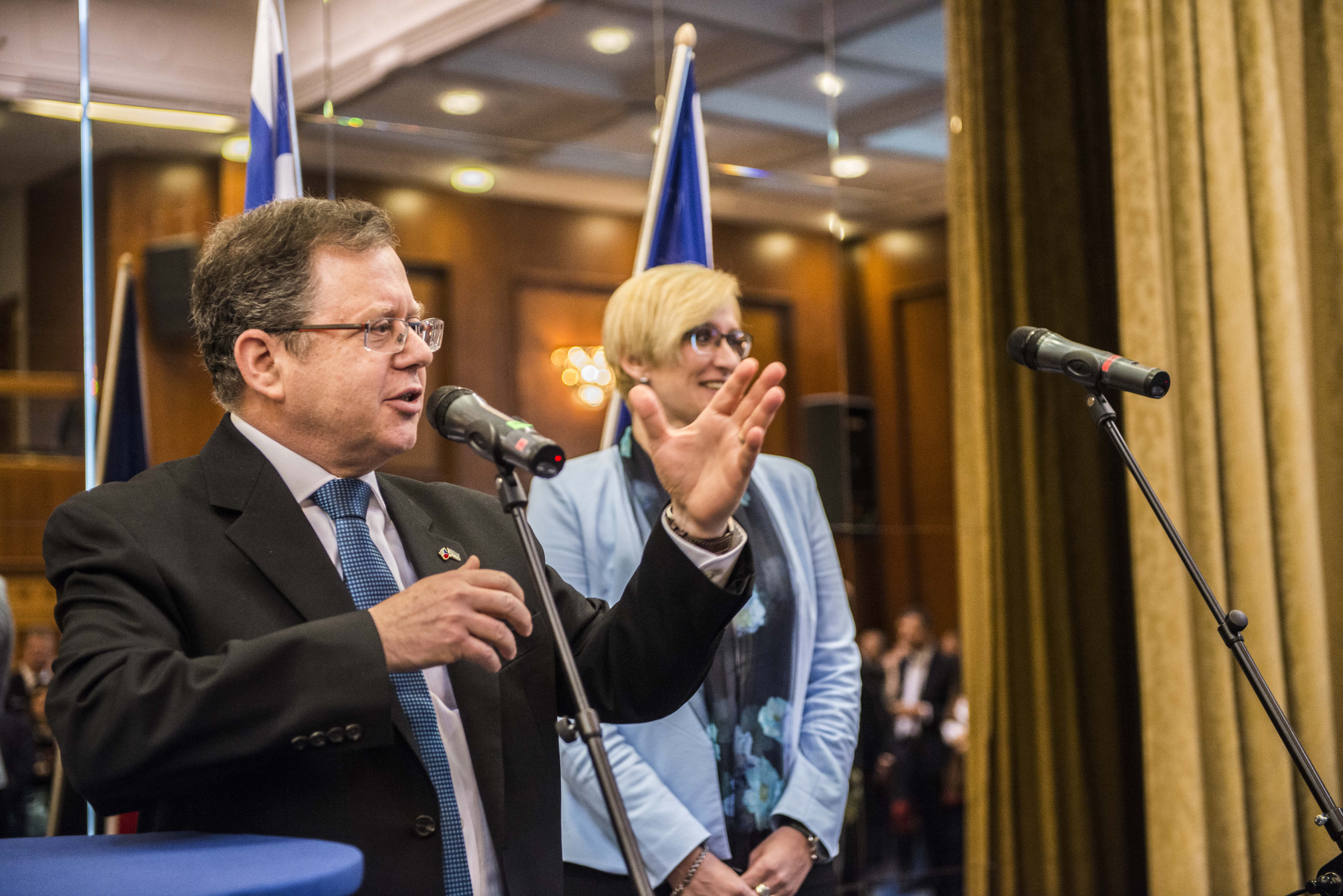
H.E. Daniel Meron with Karla Šlechtová, current Czech Minister of Defence
What do you personally do to bridge the knowledge of culture with the knowledge of shared history?
As I mentioned, I visit many schools, I show my introductory video and then I have a presentation. I usually talk about the great relationship between the two countries. I tend to mention three specific examples. Our two countries have a great cooperation in the field of water technology; the Czech Minister of Environment came to Israel has met me and shared his concern about the lack of underground water the Czech Republic is facing. At first, I thought it was a sort of a joke. A country with abundant rainfall, snowfall, with green hills, forest and pastures is coming to a desert nation, asking for advice? It is true that Israel is among the top countries with regards to water technology and water management, practices such as drip irrigation, desalination, reuse of water for agriculture etc. In September 2017, a delegation of 50 people went to Israel to learn about water technology. On the other hand, the Czech Republic can help Israel with ideas for solving the issue of water pollution. ŠKODA AUTO and the automotive industry is the second example of our mutual cooperation. The automotive Czech industry can connect to the digital industry in Israel. They both complement each other. In Israel, there are more than 150 start-ups producing various technological solutions for the automotive industry, such as radars, communications, smart batteries, sensors etc. ŠKODA AUTO will partner with an institution in Tel Aviv and will open an innovation center. By the way, ŠKODA is the third most frequently sold car in Israel. Cyber security is the third domain where we have great exchange of communication and cooperation.
It is often mentioned that the Czech-Israeli relations are the best in history. What can be done to improve already strong and stable relations?
In short, we are further exploring the cooperation that will bring the best from both countries. High-tech, start-ups and scientific cooperation are other areas where we can progress a lot. I know that Czech scientific diplomat, Mrs. Mikolášová, is also featured in this issue, so you are familiar with the exact details of our cooperation in this field. The next topic that is becoming very relevant, is the future of smart cities. And I could continue with many topics from the sphere of economy or commerce which can prosper thanks to mutual cooperation.
How do you like the Czech Republic?
The Czech Republic is a beautiful country. I find the people very friendly and I appreciate the fact that they are friendly and positive toward my country, Israel. Czech culture is not affected by antisemitism. I arrived nine months ago and I have listened to the advice of my friends, recommending me to visit also the countryside. I am proud to say that I have been to all 14 regions. Every second week I leave Prague to get to know the people, visit ancient Jewish synagogues, monuments and cemeteries, attend schools or universities. I love doing that. There are many beautiful places and a lot of Jewish history that is still not very known.
This is also my advice to other foreigners coming to the Czech Republic, make sure you explore the whole country.
By Linda Štucbartová
Photos: Archive
“My life-long talk show”

Andrea Vadkerti, Executive Coach
I have a lot in common with my friend and colleague Andrea: coaching and writing, interviews with wellknown personalities and the desire to support women in their careers. Andrea herself has presented not just many hundreds of Slovak news reports, but also major interviews, including with such personalities as Placido Domingo and Niki Lauda. She left television suddenly in order to prioritise her marriage. She left not just her job, but also her native Slovakia, following her husband to France. She currently lives and works in Singapore. She has moved from the highest levels of journalism to the highest levels of business. As Executive Coach, she focuses on neurobehavioral modelling and accessing the emerging business development.
Does this all sound like a story from a pulp author? Well you shouldn’t be surprised, as all famous writers agree that the best plots arise from life itself.
Some may remember Andrea Vadkerti as a presenter on Markíza Television, which she joined in 1995 after winning an audition of over 5000 candidates. During her television career, she also managed to study International Finance and European Law at Faculty of Management Comenius University in Bratislava. She presented the main news on Markíza until 2000. Despite her heavy workload, she missed the opportunity to be creative in her role as presenter, and so in addition to the news she also presented a radio talk show. She left Markíza in 2000 when her then-fiancé was starting the rival TA3 television station. She helped him to create this new television channel, which was described as Central Europe’s CNN, but did not join the channel because she could not imagine working for her partner and for her boss and manager in one person. She then penetrated the world of business, taking on the post of Head of Communications and PR in Slavia Capital between 2000 and 2003. She penetrated the world of mergers, acquisitions and trading while also meeting her current husband.
In 2003, she accepted an offer to return to the television studio, this time for Slovak public television RTVS. This marked the start of the risky, but she says most interesting, “Vadkerti talk show” format, in which RTL journalists were also involved. She broadcast her final talk show during her eighth month of pregnancy, something which involved an in-depth interview with three female murderers and an 80-member audience made up of other prisoners. The fact that Andrea does everything to the full also applied for her career break, when she focused on her children and family, with her son Raphael joining her daughter Sophie within 13 months. Again, she was missing creativity and continued writing scripts. In 2007, she returned to the media, with another offer from Slovak Television. Once again, just one career was not enough and at this time Andrea began to work in coaching, receiving her first international certification. In 2010, she returned to TA3 to launch her new interview show, Portret. She received the Journalism Prize for Best Interview in Electronic Media two years in a row for her in-depth interviews with the rescuer of Jewish children, Sir Nicholas Winton, and legendary CNN host, Larry King. Next year, French television channel Arte will be broadcasting her interview with Pierre Richard as part of a jubilee documentary on this unforgettable comic.
2018 marks not just 100 years since the founding of Czechoslovakia, but also 25 years since the dissolution of the Czechoslovak Republic. Andrea, you were born in Czechoslovakia, and then you became a citizen of the Slovak Republic, you’ve lived in France and now you work in Singapore. What is your identity? Czechoslovak, Slovak, European, or do you see yourself as a citizen of the world?
As Adriana Sklenaříková has said, I was born in a country which no longer exists. In a Hungarian family in the south of Slovakia. My mother tongue is Hungarian, and I was taught Slovak at school. English has become my language at work, and French is a language I have worked on through my heart and life in Nice. I am a citizen of the world with the blood of old Europe coursing through my veins.
Imagine looking at your biography in the introduction as a journalist. What would the first question you ask be? And what would your response be?
I would probably be interested in each new beginning. What it’s like to keep pulling the rug out from under yourself and try to do something you’ve never done before. The first commercial television news, the first daytime talk show, the first non-dubbed interview with a foreign figure, the first neurobehavioral modelling coaching in a land which does not even have a professional term for this speciality. And the response? It is incredibly exciting to be an experimenter and adventurer in your profession. To believe in something and go for it. Your belief drives you, you play your cards on luck and talent. There’s no waiting, only doing and success is not guaranteed.
Okay so now to my questions. While they say cherchez la femme, from your experience up to now, it seems that you have often instead responded to your partners’ situations. At the same time, you have managed to keep your own identity. What has been your underlying mission?
I’ve never lost my head because of my career or relationship. Whether I’m doing something or believe in something, I go for it. But not to extremes. When one thing got the better of me I have moved on to something else. And that has always helped me stay unsinkable.
I get the impression you have missed the space for creativity in the roles you have held, whether as a presenter or even mother. What brought you from writing to coaching?
Coaching and presenting have a lot in common. You pose open questions, you seek various perspectives. You are driven by curiosity and you are constantly finding out more. Except that coaching takes place in complete intimacy; in a television interview you try to induce intimacy, but the whole world is watching you. Writing is a highly intimate affair. For me, when I’m in complete concentration it has always been a kind of meditation. Creativity is my escape from everyday reality.
How do you see yourself as a coach?
I see myself as a consultant who knows when to call upon coaching as the best tool to achieve an objective. With my client, we might be focused pragmatically, dealing with a problem resourcefully. Complexity and finding a solution is our platform. As I’m coming from background in neuropsychology, this is an opportunity for me to literally change the client’s paradigm of thinking. To open up new worlds to them. I am witnessing my clients becoming more humans every single day.
How do your clients describe you?
An open minded, pragmatic, someone who can hit the nail on the head, unravel a problem. Holistic, disciplined, understanding. These are the kind of characteristics I see most in my reviews.
They say the media is addictive. Do you miss the shine and fame of the television studio?
I don’t miss the television studio so much as the opportunity to spread valuable ideas through the media. Many times I come across someone and I tell myself what a great interview we could do, how many people could get a really meaningful message …
In your experience, is a double-career marriage possible?
Yes, but both of you have to be willing to sometimes sacrifice your career for the good of others. Your career is not a dictator.
Three years ago, you moved from France to Singapore. What other chapters in your life are you planning to write?
I’m literally writing one now. I’m writing a book on the power of the ego and how to live with it. It is a compilation of my own true stories and those of my clients and neuroscience. In Singapore, I have everything I need to complete it. My ten-month old third child Philip is slowing me down a little right now. I’m trying to enjoy all the times I have with him. We’ve also begun Atairu leadership training for women and the Odyssey mentoring programme.
Your final message for Czech and Slovak Leaders readers?
When ego shuts down to silence, your heart starts singing.
By Linda Štucbartová
“We face obstacles head-on”
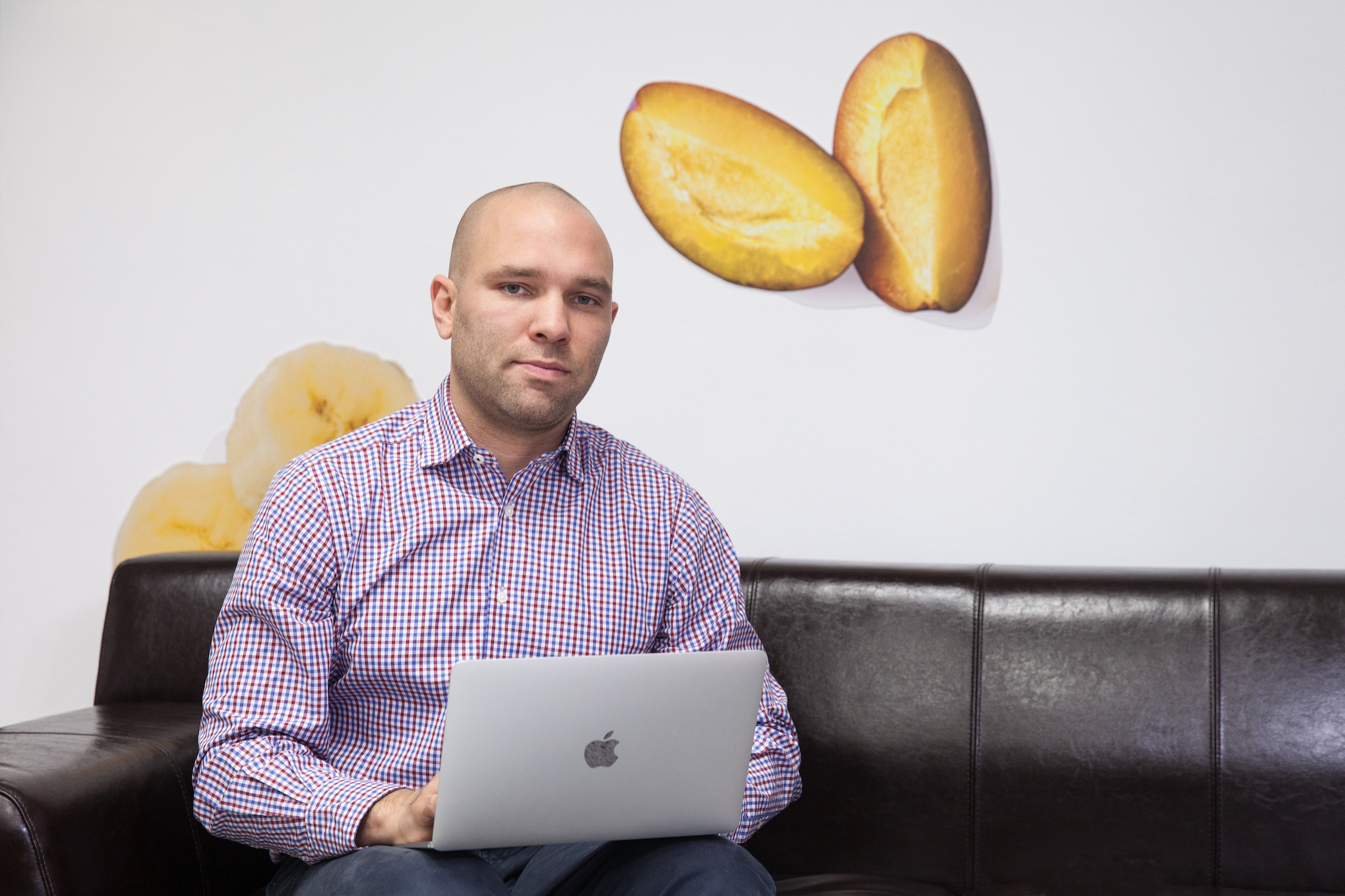
Thomas Melios, CEO, DMHERMES Trade
You began by importing Greek food to the Czech Republic; when did the idea of producing your own products come about?
I’d had the idea of health bars in my head a long time before. I often – at home, while doing sport, on my travels – thought I needed something healthy and tasty to give me energy always at hand. I’d first thought about kolaches made with dried fruit and nuts, but in the end practical bars won out. I came across them when visiting the USA and Australia, where there is a really diverse and very inspiring range of such bars.
Over the course of the whole process, I bore in mind the vision of producing a healthy energy bar made of purely natural ingredients which doesn’t just provide fast energy at times of increased activity, but also gives your body the vitamins, minerals and fibre it needs in the right amounts. I decided our company would only use the highest quality ingredients and would take maximum care to ensure the bars had a unique taste as well as functional benefits.
What obstacles did you come across to begin with?
Probably mechanisation. Moving from small manufacturing to the world of industrial equipment. Getting out of the “kitchen” into production sites, coming up with our own know-how and beginning to produce in large quantities. The production process is very complex and its development is a never-ending affair. Similarly, expanding distribution was not easy – we are a local Czech company and “small” compared to multinational companies, so negotiations with retailers was difficult; in a number of cases we simply said outright that we would not go down their route – high listing, facilitation fees, etc. Our determination and hard work paid off and you can now find us in almost all health food stores, and also in DM drugstores, Tesco and Albert supermarkets and I’d say Starbucks is the icing on the cake.
From 2015, we began expanding into neighbouring countries – mainly Slovakia and Poland.
How do you see the current political and economic situation? Is it helpful to entrepreneurs?
I perceive the growing Czech economy positively, like other citizens. In terms of the political situation, I regularly vote in elections but I’d rather not comment on the political situation. What I should note, however, is that I think bloated bureaucracy at a national and European level is a fundamental problem for the business environment, and it slows down development for all of us.
The current situation in the labour market is difficult for employers. How are you managing to attract new employees?
We don’t perceive this problem in our sector, and specifically within the Krnov region; I have never yet had the experience of having to work hard to attract new employees. I try to secure the conditions such that I and my employees are satisfied and everyone feels I appreciate the work they do.
How do you perceive the hot topic right now of double food quality standards?
My opinion is that the state should not get involved. I think most intervention ends up backfiring on those it was originally designed to protect – the customers. I believe that customers should make their own decisions on the quality of the food they buy, how much they spend on food and how healthily they eat.
You chose the health food segment which is very popular today – organic, raw food – did you realise when you began the upsurge would be so big?
I must confess that I had the feeling the segment would become very popular, and that has happened, but I remain convinced the main upsurge is yet to come.
It should be added, however, that you can’t just stick an Organic label on a product and hope it sells itself. The whole process is much more complex – we begin right with the selection of pure natural ingredients. Then in developing the recipe we base ourselves on the latest findings in health and active lifestyles. We carefully select high quality natural ingredients and in order to preserve the maximum amount of vitamins and minerals, we don’t heat process our products in their production. Our products contain no additives and are not just a source of great taste, but above all they keep the human body and mind in perfect physical and mental balance.
Which of your products is the most successful, and why?
It’s hard to answer that question; we like all our products, each of them has its own story. Both the chocolate and fruit varieties of our Bombus bars are very popular. The date syrup and now also date paste make it popular – these are great ingredients to use in raw confectioneries. Our portfolio is so diverse that we are grateful for almost everything we have managed to show success in, and we don’t intend to abandon this.
What are your development plans for the future?
We’re planning loads; space currently limits us, but we are a very active and hard-working team so we face such obstacles head-on. We absolutely want to continue on the path of producing healthy and tasty food at an acceptable price. We would like to work on developing innovative products and spending time on the health food segment, which we want to be able to offer to the widest possible spectrum of customers.
How do you see yourself as a leader in your company and in your sector?
From my perspective, you’re not born a leader, but become one through hard work and diligence. You need results to be a leader; without any you might be a boss, but you won’t be a naturally respected leader your colleagues can rely on in an emergency. That’s the idea that I’m trying to pass on to my people, to my team. I’m not engaged socially or politically and I don’t plan to be in the close future due to my work and family commitments.
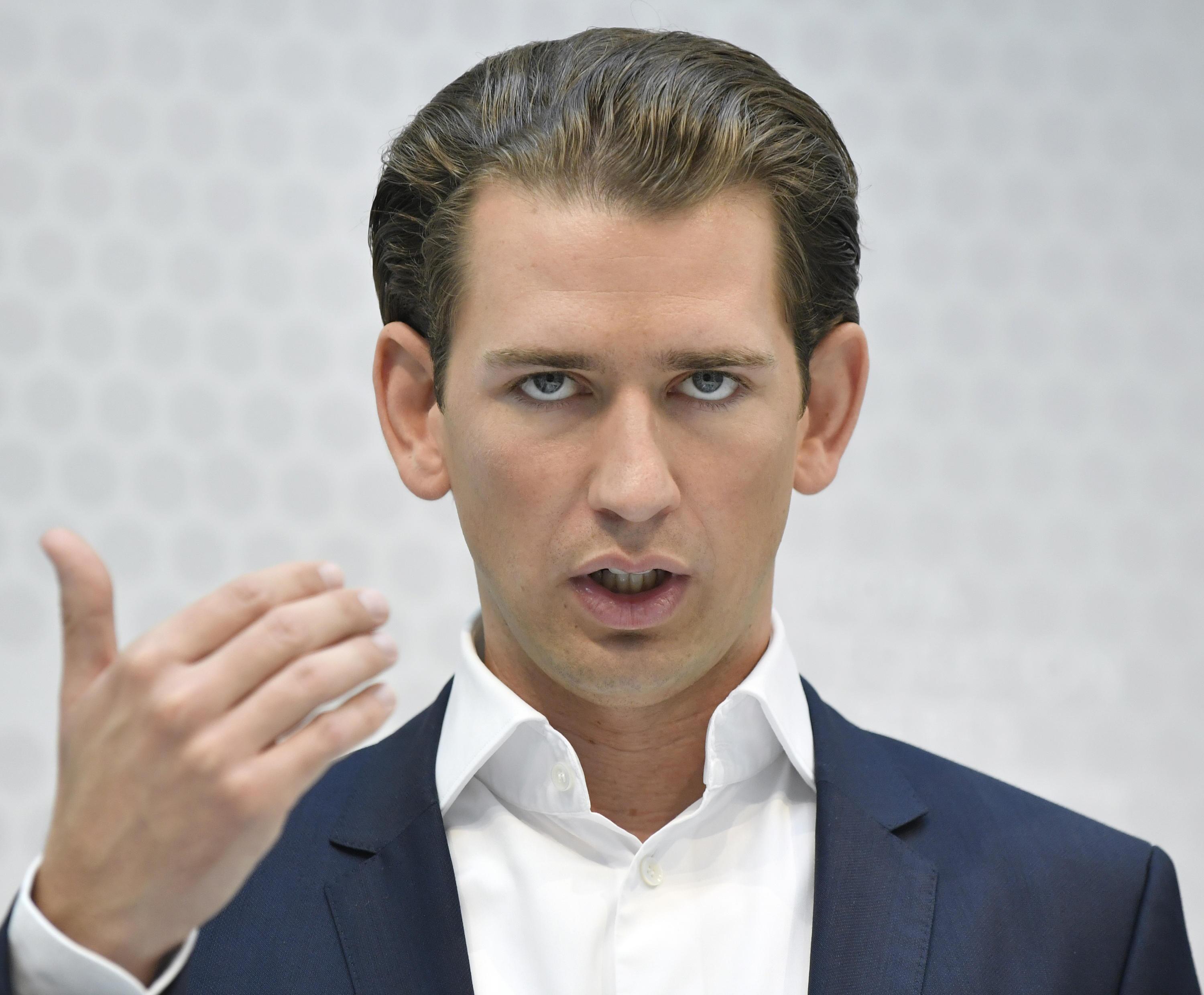
Sebastian Kurz
“There is a claim constantly circulating the EU: ‘multiculturalism is dead in Europe’. Dead or maybe d(r)ead?… That much comes from a cluster of European nation-states that love to romanticize – in a grand metanarrative of dogmatic universalism – their appearance as of the coherent Union, as if they themselves lived a long, cordial and credible history of multiculturalism. Hence, this claim and its resonating debate is of course false. It is also cynical because it is purposely deceiving. No wonder, as the conglomerate of nation-states/EU has silently handed over one of its most important debates – that of European anti-fascistic identity, or otherness – to the wing-parties. This was repeatedly followed by the selective and contra-productive foreign policy actions of the Union in the MENA, Balkans and Ukraine.” – wrote prof. Anis H. Bajrektarevic in his luminary and farsighted essay Denazification – urgently needed in Europe .
Last two parliamentary elections in Central Europe are indicative enough: Europe inevitably loses its grip over the grand narrative, fatherly eroding its place in history. Hereby a few lines about the latest of them.
Sebastian Kurz, 31, is likely to become Austria’s new Chancellor following the 15 October election. He would be the youngest-ever head of government in the European Union and to many of his supporters will be seen as a bold new face ready to lead Europe through and past the ongoing crises over migration, integration, fiscal authority, and identity that have dominated European politics, within and without the EU, in recent years. A new leader of Europe’s populist right is likely on the horizon, yet he has received little international attention compared with candidates such as Marine Le Pen or Nigel Farage who were always long shots.
Kurz’s Rise – Aus Iuridicum
Rapidly rising through the youth wing of the Austrian People’s Party (ÖVP), Kurz was elected its head in 2009 and then promoted directly into the party’s upper echelon in 2011 when he was named to the newly-created post of state secretary for integration at age 24.
From the earliest days, Kurz embraced a populist right-wing worldview although he initially steadfastly avoided divisive rhetoric that could have derailed his rise. Kurz used his post as state secretary to publicize these ideas, while also astutely employing the leeway afforded by his youth to take positions deviating from the ÖVP platform.
In 2013 Kurz was elected to the national legislature, also winning the most direct ‘preference votes’ of any candidate and a third more than the ÖVP’s then-head Michael Spindelegger. The ÖVP received less overall votes than the Social Democrats (SPÖ) and again went into government as the junior coalition partner. Kurz was rewarded with the second-highest post of any ÖVP leader when he was named foreign minister.
Austrians see themselves both as core members of the ‘West’ but also as traditionalists and the inheritors of a unique culture. The historic heft of the former Austro-Hungarian Empire, a separateness from Germans and Germany that was cemented by the divides caused by the Enlightenment and birth of Protestantism, and steady decades-long growth in income and living standards all have served to shape an image of Austria and Austrians as reasoned yet traditional, sober yet dandy, and reserved yet welcoming. It is precisely in this image that Kurz has tried to cast himself.
Even Kurz’s critics are quick to acknowledge that from the beginning of his career he had a remarkable ability to gauge the prevailing zeitgeist, all the while grounding himself in the core Austrian conservatism that the ÖVP represents. In contrast to populist politicians who have at best half-convicningly attempted to portray themselves as outsiders, Kurz embraces the fact he has had his sights set on a political career since his youth. Kurz recognized the quickest route to ‘authenticity’ was to never speak the word.
Kurz, the Foreign Minister
As Foreign Minister, Kurz was able to play host and diplomat to Austria’s wide variety of partners. He also judiciously avoided controversy in mainstream international media. On issues where Kurz would perhaps have been more vocal, he accepted his role as a government minister and did not speak out overly loudly when he disagreed with his party’s leaders, while tweaking those of the SPÖ, the senior coalition partner, in a way that did not offend Austrian sensibilities.
Kurz’s four years in the foreign ministry saw a series of regional and political crises, attesting to his political skill. Three months after taking office, Ukrainian oligarch Dmytro Firtash was arrested on a visit to Vienna on the request of US authorities. The arrest came two day’s before Moscow’s controversial referendum in Crimea and struck at the core of domestic politics in Ukraine, where Firtash long played an outsize role. Yet Kurz did not shy from being thrust in the spotlight, in fact he appeared to be hungering for it, with the then-27-year old even offering to mediate Russia and Ukraine’s disputes over Crimea.
Kurz ultimately backed sanctions, sensing the prevailing winds in Europe. However, he was vocal in calling for European business’ interests to be considered even before Italian, Hungarian and Cypriot politicians subsequently took up such positions. The move played well domestically in Austria, where many criticize great power games, perhaps with a slight, albeit unstated view towards the rearview mirror given their fatal role in Austria’s own history. Austria’s Raiffeisen bank also derives most of its profits from Eastern Europe and is the largest foreign player in Russia’s banking market. Russian President Vladimir Putin also travelled to Vienna in June 2014, his first post-Crimea visit to a Western country, with Kurz vocally defending the invite and signing of a controversial pipeline deal at the same time EU and US officials were deliberating sanctions on Russia’s energy sector.
Kurz’s time as foreign minister also coincided with Europe’s migration crisis, which was nearly simultaneous with his push towards the spotlight when he backed the stance of Austria’s eastern and southeastern neighbors even while then-Chancellor Werner Faymann waffled on the issue. By February 2016, Kurz was publicly embracing not only the positions of Warsaw, Budapest, and Ljubljana, but their rhetoric as well. In March 2016, Austria had closed its borders to most asylum seekers. By the end of May of that year, Faymann resigned. He was subsequently replaced by Christian Kern, the current head of the SPÖ.
Kurz took advantage of the weakness of the senior leadership within the SPÖ and his own ÖVP to push his personal agenda and reputation to the fore. Kurz has even sought to use the largely-symbolic rotating chairmanship of the Organization for Security and Cooperation in Europe (OSCE), which Vienna holds for 2017, to promote his political agenda. Kurz was bold enough to broadcast this intention, declaring in an interview with Der Spiegel that he would use the post to push for the lifting of sanctions against Russia. He has also used the platform to again propose he mediate a solution to the conflict in Donbas, even writing an English-language op-ed for Politico on the subject this September. Demonstrating Kurz’s eye for the future, however, a number of senior staff members have left Kurz’s Foreign Ministry since the start of the year, promoted as Austria’s new ambassadors to some of its leading partners. A further major reshuffle is expected after the election, a possible indication that Kurz will continue to cut a prominent figure on the international stage.
Kurz, the Candidate: Dressed to Impress
A year after Faymann’s resignation, the Kern government collapsed, prompting the elections that will be held on 15 October. The interim period saw the contested and contentious 2016
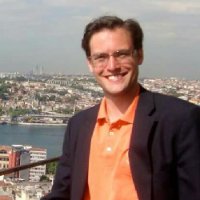
Max Hess is a senior political risk analyst with the London-based AEK international, specializing in Europe and Eurasia.
presidential run-off election, in which the initial result was annulled and the far right Freedom Party’s (FPÖ) Norbert Hofer was narrowly defeated by independent candidate Alexander Van der Bellen. Kurz had refused to endorse either candidate. Yet it was the fact that the run-off featured neither a candidate of the SPÖ nor the ÖVP for the first time that appears to have most shaped Kurz’s current candidacy.
Van der Bellen, an alumnus of Austria’s relatively minor Green Party, was seen by many on the Austrian right as nearly as radical as Hofer. The Austrian presidency is also largely symbolic – although Hofer’s platform included steps that would have been unprecedented by the Austrian executive. As a result, there was little domestic political cost to Kurz remaining neutral.
The lack of an SPÖ or ÖVP candidate in the final round highlighted the shifts underway at the heart of Austrian politics, and the weakness of then-ÖVP leader Reinhold Mitterlehrner, who stepped back in May, enabling Kurz’s ascent.
Kurz, however, attached a number of conditions to the proposal that he lead the ÖVP. The decades-old party fell in line behind Kurz quickly, even agreeing to campaign under the joint branding of ÖVP and ‘Kurz List – the New People’s Party’. Kurz’s image, rhetoric, and bold proclamations on the campaign trail have put the party comfortably in the lead in the polls.
The lead Kurz maintains in the polls has come primarily at the expense of the far-right FPÖ, although incumbent Chancellor Christian Kern has done his party no favors following a series of scandals. Kern’s SPÖ is polling behind the FPÖ in most polls and he has declared that he would prefer to lead the opposition than re-form a coalition with the ÖVP.
Kurz and Kern’s relationship was already poor but the latest scandal around the SPÖ alleges a controversial former election advisor set up social media pages aimed at besmirching Kurz, only dampening the possibility for a renewed coalition. Yet Kurz also knows the difficulties inherent to forming a government with the FPÖ, despite having adopted much of its rhetoric in his own campaign. Such a government could come under some degree of EU censure, as it did the last time the ÖVP and FPÖ formed a government in 2000. The FPÖ then was the larger of the two parties but would undergo a series of splits while in government.
Although the FPÖ of today has long since coalesced under the leadership of Heinz-Christian Strache, it too will be wary of a coalition with the ÖVP, albeit less over concerns of an EU rebuttal than over Kurz continuing to encroach on its political space.
Get Shorty – the Chancellor? the future EU Commission President?
Kurz is likely to become Austria’s most prominent Chancellor on the international stage in decades. His willingness to be outspoken and take on issues far afield from Austria steadily grew during his tenure in the foreign ministry. Beginning with his early proposal to mediate between Moscow and Kyiv towards the end of his term, he was sufficiently confident to publicly endorse incumbent Macedonian Prime Minister Nikola Gruevski ahead of that country’s December 2016 election.
Kurz’s alliances in the Balkans and Eastern Europe are extensive and he was one of the few leading EU politicians outside the region to defend Hungary’s crackdown on migrants and refugees. Kurz’s economic policies are more traditionally liberal than those of the Visegrad Group but are also tinged by his populist bent. Nevertheless, he sees himself as a leading exponent of the same cultural conservatism embraced by leaders such as Viktor Orban or Nigel Farage. He is telegenic and well-spoken and has shown a knack for youth politics, of particularly importance in Austria where the voting age is 16.
On 8 May, France elected Emmanuel Macron as president in a vote that many hailed as a landmark victory for Europe’s centrist establishment. On 15 October, Austria is likely to elect Kurz as its next chancellor, in a vote that the populist right will hail as its own landmark victory.
By Max Hess
In cooperation with IFIMES
“I wanted to secure the best possible education for my children”
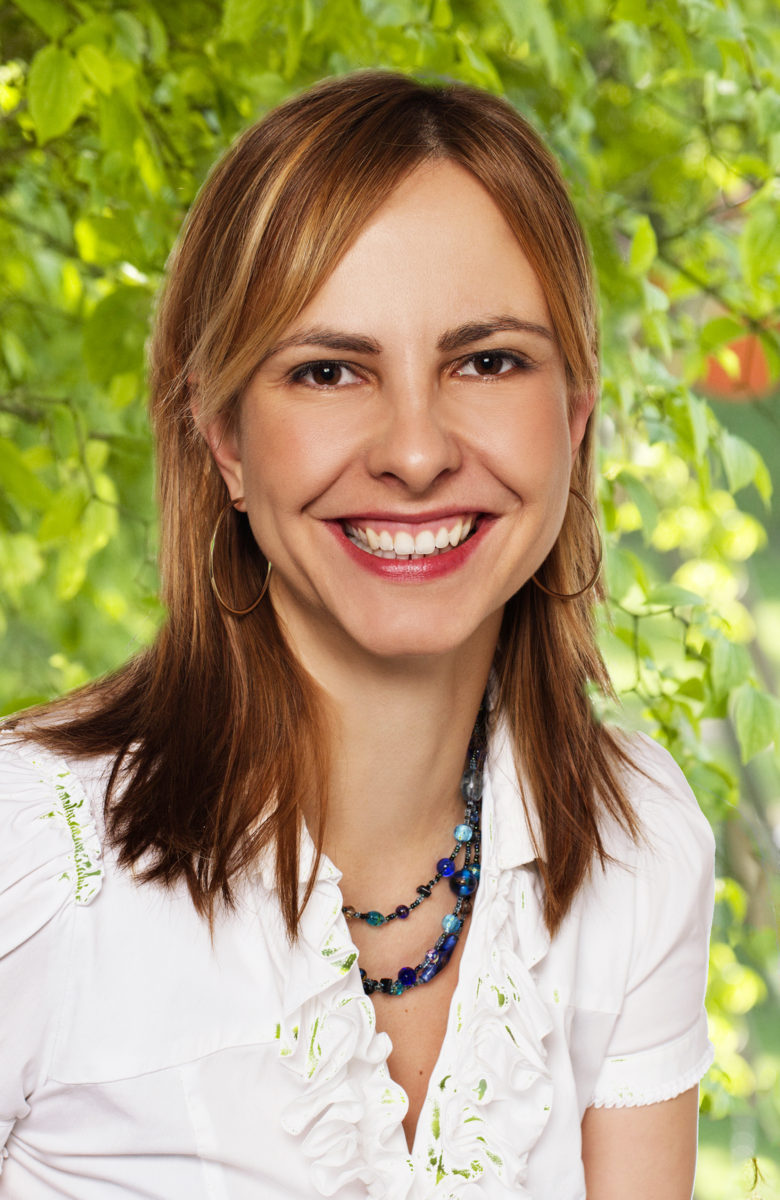
Kateřina Bečková, Founder and Executive Director, International Montessori School of Prague
The story of the International Montessori School of Prague brings together a number of fascinating worldwide trends. The first of these trends is glocalisation – a combination of globalisation and localisation, with the American Montessori Society global accreditation creating a framework, while the school is also adjusted to the Czech environment and conditions. Kateřina Bečková, founder and executive director says: “We have to, and we want to, meet not just the American accreditation standards, but also take into account the Czech environment and its distinctiveness. Children from 27 different nationalities attend IMSP, but half of our children are from the Czech Republic. As such, our curriculum must not just accommodate the European metric system, but also the method of teaching mathematics, for example the method of multiplication and division which is specific to us.”
The second trend I would like to note is that Kateřina is an example of what one could term a “self-made female entrepreneur”. Female entrepreneurs offer something specific. In contrast to men, who focus on doing business in fields which are perceived as economically beneficial such as construction, electronics and IT, women more frequently focus on doing business in social services or small retail. This female type of enterprise is often at a disadvantage in terms of access to funding and technologies, while it is also highly regulated by complex laws.
A third major trend is the issue of leadership and education. At the start of the new school year, the Czech Management Association published a report stating that the Czech Republic could become more competitive if it had more self-confident leaders. The standard Czech education system does not consider working with leaders, despite research which suggests that the key characteristics of future leaders can be developed mainly up until a child’s 10th birthday!
Kateřina Bečková founded the private International Montessori School of Prague in 2002. The spark for doing so was an endeavour to secure high quality education for her own three children. Over 15 years, IMSP has become one of the best schools in the Czech Republic with places for 110 pupils aged from 15 months to 13 years. Today, the school employs 16 full-time teachers and 4 part-time teachers. As well as preschool and school education, IMSP also provides after school play and other clubs. The teaching staff includes specialists in art, Spanish, drama, music, physical education and library science amongst other fields.
Kateřina put her energy, vision and herself into building the school. When you meet her, you would hardly believe that this naturally shy woman is the director of a major educational institution and her mission is to bring an integrated and holistic approach to education to prepare children for the future. Kateřina is one of the greatest Czech experts in education and the Montessori method, having achieved the necessary training while running the school. She originally studied economics, and subsequently completed a master’s degree in Special Education. She has completed the Montessori Leadership programme and continues to learn about leadership in the Czech Republic and abroad.
Kateřina, IMSP celebrated its 15th birthday in spring 2017. How do you look back on this time?
I take stock. As you noted, my kids were my main drive for founding the school. But they’ve already finished school and I am pleased that they are so well prepared for further studies and for life in general. I still love working with kids, which gives me great satisfaction and I am proud of our school and the stable and professional team I have managed to build up. I think we have achieved the optimum in terms of size and operation. I don’t plan to expand the school with additional branches, nor do I want to increase the number of pupils in our classes, or increase the number of classes. I think we have gone through the difficult phase of building up the school, and we have constructed a solid foundation. Now, we want to focus on further increasing quality. We enjoy continuing to work on communication, focusing on increased effectiveness, and achieving sustainable results. I think that this kind of work is a great reward for me. Most recently, we have been focusing on defining a new mission, the values linked with that mission, and how to put them into practice.
What are you most proud of in relation with IMSP?
Of all the accreditations we have achieved, because we are the only American Montessori Society fully accredited school in Europe. Our most recent accreditations, both American and Czech, gave us top marks. The fact we are full to capacity demonstrates our quality and popularity. I couldn’t achieve that alone; I rely on a stable, professional team of accredited colleagues. I am also proud of our premises; our school has a large garden over 4000 m2 in size next to a wood. We have an aviary in the garden, fruit bushes and trees and a vegetable patch, and looking after our plants and animals is an integral part of our teaching. Last but not least, we are successfully building a community of parents and school advocates who are spreading Montessori education principles further throughout Czech society.
There remains great interest in Montessori in the Czech Republic. The method is suitable not just for children, but also for older people. In July this year, Prague hosted the International Montessori Congress. For those who didn’t take part, it was a prestigious event which takes place once every four years, with 2000 participants and more than 100 experts from around the world visiting the Prague congress. What makes Montessori different?
It’s important to realise that the Montessori method is not just about tools, but above all about the approach. One pitfall here is the fact that the Montessori method is not a copyrighted patent so, often, schools purchase the tools and immediately put “Montessori method” into their name. The Montessori method is about the philosophy and putting it into practice, about the ability of the teacher to manage to work with both the whole class and with individuals and about seeing the unique potential of each child. The tools themselves are secondary. Another challenge is the fact that many Czechs advocate traditional educational methods and it is difficult for them to entirely trust a new approach based on free choice. There is a general prejudice that the Montessori method means chaos, but actually the opposite is true. We have to work to balance the expectations and boundaries while offering free choice.
IMSP is a leader in bringing new trends to education. Which trends do you think are fundamental?
I think there are three fundamental trends: recognising your own unique talent, the ability to cooperate and a love for education. When interacting with children, we focus on holistic child development, helping them to grasp and also express their uniqueness. We teach children not just to solve problems, but also to cooperate effectively. Today, individual development and assertion is often stressed, but without interaction and effective cooperation with other individuals you cannot do anything on your own in society. Montessori is based on the principle of “help me to do it myself” from an early age. Even the youngest children take part in cleaning and tidying and the preparation of snacks; they are much more independent in communication, and also hygiene habits and the ability to look after themselves compared to their peers. We focus on the different components of intelligence – social intelligence, emotional intelligence, bodily/kinaesthetic intelligence and moral intelligence. We work with four key values – respect, consideration, responsibility and kindness, and we place great stress on overall integrity. Last but not least, we make appropriate use of technology which is going to play an even greater role in education.
How do you see yourself as a leader?
We use the Talent Dynamic profile tests at school, meaning we build on the natural talent of individuals, not on acquired skills. Using this approach, my profile is “Trader,” and my leadership is based on long-term relationships, care for others and building a community. My approach is to undertake individual actions together with a team. People can rely on me; my door is always open both to my team and to parents. And now I’m learning to delegate more; I want to focus more on strategic decisions and spend less time on day-to-day operations. As I said, I’m looking forward to sharing everything we have managed to build with the wider community which we are helping to build.
What advice do you have for parents of school children in relation to the start of the new school year?
I’m an advocate of good routines which can save time and energy. Take enough time to sleep and then for your morning, your breakfast, journey, so you aren’t stressed every morning. Trust your school and children and make enough time for them. Especially at the beginning, don’t just speak to your children, but also the teachers and school management. You are our partners and we are here for you.
What are your plans and vision for the future?
My mission is to bring a holistic approach to education in which every child can express their uniqueness. Specifically, I am trying to bring the above discussed Montessori methods of education to our country so that we can truly activate the uniqueness of each one of us. I have already spoken about the community of parents and advocates we are building, and we are preparing a series of educational workshops for them. We want to focus more on working with our youngest children, where we see the greatest potential. We want to provide parents with a detailed guide for creating a Montessori home environment. And, of course, we will continue to evaluate and improve all our approaches within our holistic approach to education. One of the problems of Czech education is not just its focus on knowledge, but also how rigid it is.
By Linda Štucbartová
In August, a new musical Institute of Terezín Composers was founded and its first concerts were organised in the small Czech town of Terezín as well as in Prague, supported by LOM Praha Trade a.s., PRE, a.s., and the City of Prague. There were 30 musicians composing in Terezín under the Nazi imprisonment – this year the festival focused on compositions of Pavel Haas, Gideon Klein, Hans Krása and Viktor Ullmann. The series of the four concerts culminated with Gustav Mahler’s First Symphony at the Wallenstein Garden of the Czech Senate and the festival also hosted a two-day professional conference focused on the topic of Terezín composers. The next concert is planned for the 1st November 2017 in Terezín.
“Our doctors are on a par with our Harvard colleagues”
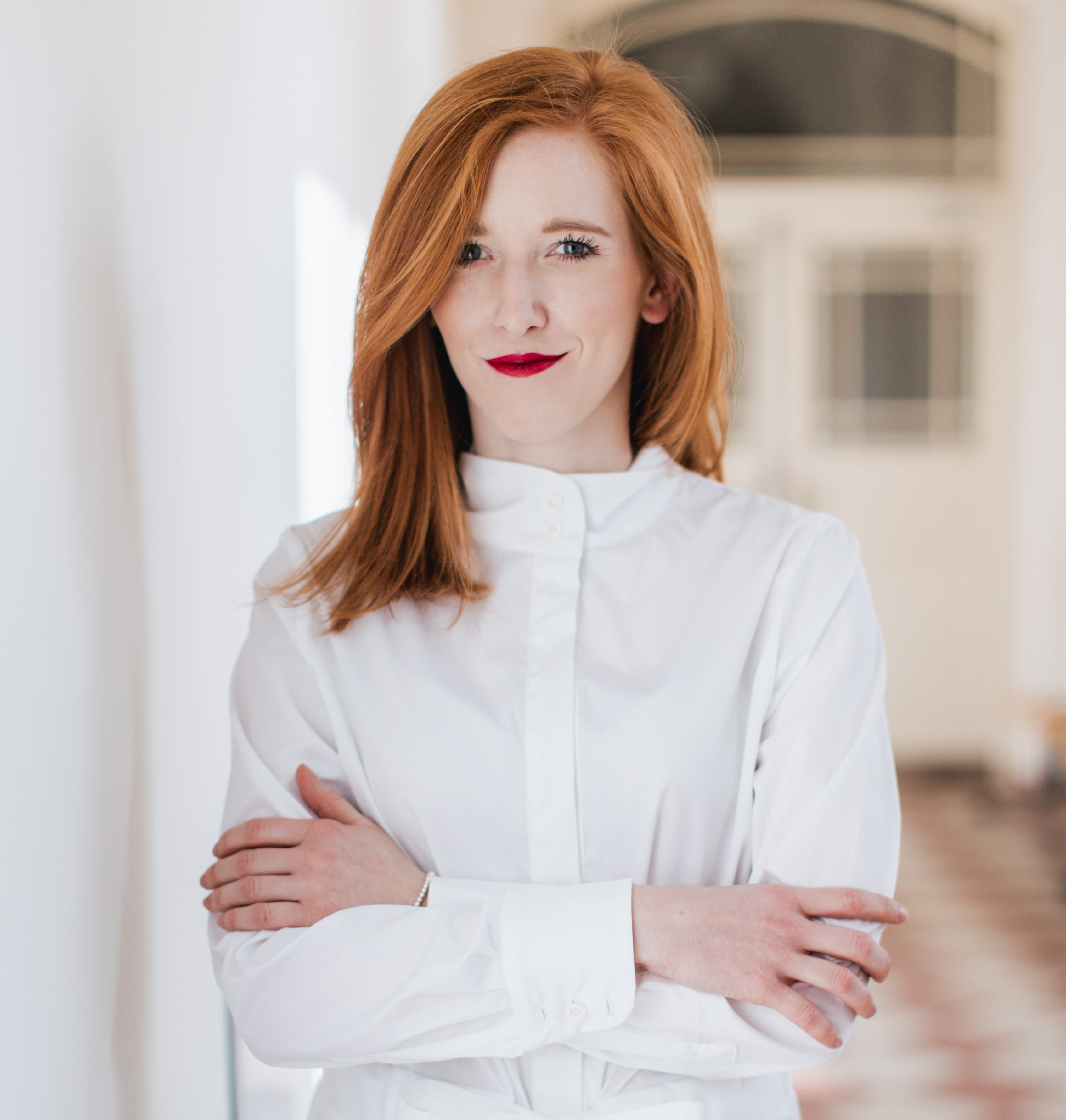
MUDr. Kateřina Vacková, Loono. Photo by: Martin Faltejsek
Although she officially received her MUDr title at her graduation ceremony in Karolinum’s ancient Great Hall in July, Kateřina can boast of having saved 36 lives – cancer was discovered in 34 people in time through Loono’s preventive programmes, and two more people recognised they had serious heart problems on the basis of Loono’s new campaign. Kateřina founded Loono three years ago in order to promote the importance of self-examination, and awareness of and responsibility for your own health amongst the general public. She founded Loono based on her own experience as a patient, when at 22 years of age she was given that dreaded diagnosis: cancer. Kateřina set out to combat not just the disease, but also the low level of public awareness, particularly amongst the young. In 2016, Forbes nominated her amongst the “30 most talented Czechs under the age of 30”. Loono and its witty information campaign which does not frighten, but rather informs of the necessity to self-examine your breasts and testicles, drew the attention not just of young people, but also the general media. Over the whole time Kateřina was studying hard at the medical faculty, she had two jobs, one paid as a project manager and the other in Loono, unpaid until this August. During her studies, she undertook specialist placements in Austria and Portugal. Loono today comprises over 70 volunteers – educators and the main organising team made up of 10 collaborators. This year, besides completing her studies at Charles University’s First Faculty of Medicine, Kateřina also completed a placement at Harvard, undertook an inspiring trip to San Francisco and launched another campaign with the Loono team, this time focused on prevention of cardiovascular diseases. Each meeting I have with Kateřina is incredible inspiring. I admire how much energy this beautiful and petite young lady has in her, I listen with wonder of her vision and plans and I cross my fingers for her. Kateřina calls herself a citizen of the world, and her desire to change the world is not just a proclamation, but something she is demonstrating in real life every day and in every step she takes. I first met Kateřina at a talk for Oxford and Cambridge university alumni. Speakers are often nervous in front of an audience used to high-level debate, but Kateřina didn’t show it. She began her talk with the firmly posed questions: “When did you last have a preventive examination at the doctor’s? Do you know what examinations you are entitled to? And when did you last undertake a self-examination?” One might be so bold as to claim that Kateřina looks after fitness within her own team. As the organisation name, Loono, is not subject to declension as standard Czech words are, anyone from the internal team who says it incorrectly has to do three push-ups. Luckily this only happened to me once during the interview…
Kateřina, in July you got your MUDr title. What has changed since your graduation?
I’ll begin with the graduation. I was at the graduation ceremony, a wonderful occasion, with my whole family; it was moving and my parents were proud. Personally, I had been wondering for a while whether to do clinical practice after graduation or whether to concentrate on Loono. I think I would have felt bad not focusing on Loono. So I started in August, becoming the first person working there on a full-time basis, and now I’m enjoying spending every day dedicated to the organisation, and even in the first 14 days we have made incredible progress. We have expanded our team, we’re still recruiting, we have successfully applied for a grant and we’ve gained another sponsor. Sponsors are really important for us right now; I’d like to be able to employ more people full-time and I would also like to expand the scope of our education, to focus not just on the general public but also to have the opportunity to educate medicine students who will then educate others. I don’t want them to have to take up part-time work in fast-food joints, but rather that they have the opportunity to acquire practice in the field they are going to be working in, while also receiving a certain remuneration to help them, e.g., in financing their student dormitories. Over the past two years when I have had the opportunity to work with medics, I have observed what experience they have gained and how this has subsequently helped them in their medical profession.
You yourself represent the emerging generation of doctors, and you have also had the opportunity during your placement to work in the hospital at Harvard University. What insights have you taken from the USA?
Positive ones. I believe in us, the new generation of doctors, but I also greatly appreciate the previous generation. Healthcare is at a great standard in the Czech Republic, well organised, compared to abroad we have markedly shorter waiting times both for examinations and operations. Since healthcare here is paid for from the public health insurance system, a comparison with the USA or the UK is not always appropriate, but even compared to countries with the same funding system we come out very well. Our doctors are skilled. I would advise the upcoming generation to support two areas in particular: interest in innovation, and also communication with patients. At Harvard I saw that although our American colleagues have better equipment
and a different style of work, our qualitative medical education and approach to patients are entirely on a par.
You didn’t want to stay in the USA; you returned to complete your studies and focus fully on Loono. In the meantime, however, you also stayed in San Francisco. What did you bring back for Loono from there?
I went to San Francisco on holiday to relax and practise yoga. I enjoyed the coffee bars and galleries. Naturally, I had loads of discussions about preventive healthcare in the USA, and I visited Silicon Valley in order to find out more about the latest projects and start-ups in the healthcare field. I received great feedback on our work and the results we have achieved despite our limited funding. Everyone around me supported my belief that we should expand Loono and its activities into other countries. I also had the opportunity to meet with Czechs working in Silicon Valley in some great companies or start-ups. The stories of people who have decided to set out and take up work in a foreign country for large projects are always a great inspiration for me. I myself have had this experience during my placements in Austria and Portugal.
What are you most proud of about Loono?
Definitely the 34 lives saved through prevention, and also my whole team. When I was beginning, I was worried whether someone would join me, would believe in my idea and spread it to the world with me. People want to co-operate with us; Loono is now perceived as a brand others want to work for, and we are given as an example of good practice in non-profit organisation communication. I’m blushing, but I’m glad we can inspire others in how to spread your own mission effectively.
Regarding prevention, do Czechs value their health?
I wouldn’t want to relate this question to Czechs alone. In general I think the situation is improving. People are seeking out health information on their own, are more open to changing their habits in regards to a healthy lifestyle, very often on the basis of a personal meeting. After my stay in the USA, I consider myself a citizen of the world, so I think everyone on this planet, regardless of race, gender and nationality, deserve high quality accessible information on preventive care. And this is the mission I’m now setting out into the world for.
Loono is a leader in terms of non-profit organisation communication, this interview is for Leaders magazine; how do you see yourself as a leader?
I personally still see myself as a junior leader. I’ve been leading Loono for under three years and I learn something new every day. Every bit of feedback I get from the team or people I work with through Loono also moves me forward. I also ask a lot of questions of older and more experienced businesspeople and mentors.
Leadership as such, for me, is about kindness and an individual approach. Only in this way can you support and motivate your team at the same time. A strong vision is also important, and your management and actions must follow this vision, both in your working and personal life. It would be very difficult for Loono to serve as an example of a healthy positive lifestyle if I myself didn’t exercise five times a week, didn’t meditate or didn’t eat healthily.
Let’s discuss your vision more; what will Loono look like in the coming years?
It will certainly become a global organisation, though I can’t give you a precise timescale. I myself want to find out more about other countries and their cultures, and I also want to help develop people. I think everyone needs to know about prevention, regardless of their country of origin. We can open this up anywhere where there is a medical faculty, and hopefully we will then be able to even in areas without one. And there’s more! Imagine some kind of Erasmus work programme being established in Loono for students who want to try working not just in another country, but also with other specialists from other fields to aid them in preparing for their careers. Loono is not just about medics; our team includes specialists in communication, PR, marketing, social media, HR and more. Team members can enrich each other. I want to help everyone equally, and I have great plans and also great self-confidence.
A final word?
Look after yourself in time, be active for the good of your body and for life in general. If my story and Loono’s message has touched you, then support us!
By Linda Štucbartová
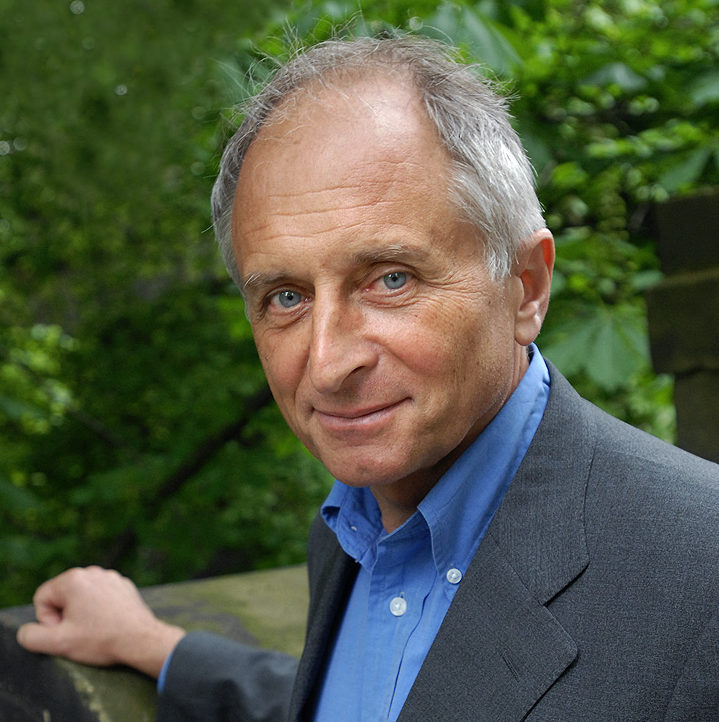
Martin Herman, President, American Fund for Czech and Slovak Leadership Studies
Martin Herman is the president of the American Fund for Czech and Slovak Leadership Studies (AFCSLS, www.afcsls.org), a fund of Czech and Slovak Americans dedicated to the pursuit of excellence in education in their old homeland. AFCSLS is a successor to the American Fund for Czechoslovak Refugees founded in 1948 by Dr. Ján Papánek, the first Czechoslovak Ambassador to the United Nations. The fund helped thousands of Czechs and Slovaks escape communism and settle in the United States. In 1976, Martin emigrated from Czechoslovakia to the United States. For twenty years he worked as an economist at the World Bank, later free-lancing on projects all over the world. His experience as a teenager, a university student in Prague, and later as a student in the United States convinced him of the importance of education, especially of a solid foundation gained in primary and secondary schools. AFCSLS gave him an opportunity to make a practical contribution. Martin conceived, developed and has been managing AFCSLS education programs since 2008.
In 2016 he became the president of AFCSLS, succeeding Henry Kallan, a longtime president and one of the fund’s most generous contributors. Martin studied at University of Economics in Prague in Prague and Cornell University and George Washington University in the United States.
Talent is a precondition for excellence. It tends to fizzle out without the desire, determination and discipline during formative years. Children need a system to help them develop their talent. This is the premise on which AFCSLS builds its education program. Martin brought in the Center for Talented Youth (CTY), Johns Hopkins University, a leading world authority on talent development, with the objective of establishing a CTY affiliate in Prague. This idea encountered immediate and massive local resistance. Influential experts on education labeled it “elitist, commercial and helping talented teenagers escape to prestigious universities abroad”. Martin persisted. Two years into the program, he brought in the Center for Talented Minds (CTM, www.ctm-academy.org), Prague non-profit, which has become the extended arm of AFCSLS. Only last year it has become possible with the help of CTM and RSJ foundation to secure the program for the long term.
Mr. Herman, before we get into the specifics of your program, please tell us first how you perceive today’s world?
Where do you want me to start? The whole world is confronted by massive and accelerating advances in science and technology. Yet, partly be- cause of failing education in too many parts of the world, many people are ill equipped for today’s world and the future. They have difficulty to cope, to hold their jobs, to secure a worthy purpose for themselves and their families. Often, they find purpose in money, amassing worldly goods. If they fail, they tend to blame others. They are vulnerable to voices promising easy fixes. Their leaders promise but fail to deliver compromised by special interest and unable to deal with mounting problems. Local and global conflicts tend to persist, fresh ones lurking around the corner. How will mankind cope with all this is in the stars. I believe knowledge, spirituality and strong ethical code bring more satisfaction than just money and consumerism. This is why I focus on education. It gives me an opportunity to help teenagers find their purpose, develop their talent and one day possibly make the world a better place for us all.
And how do you perceive today’s Czech Republic?
Czech Republic is confronted with much the same issues as the rest of the civilized world. Moreover, it is still struggling to recover from the nightmare of communism imposed on it by Stalin and helped by local useful idiots 70 years ago. There is no doubt with Marshall Plan and as part of Western democracies, Czechoslovakia today would be one of the richest countries in the world. Instead the communists made it one of the poorest. It is now back, member of the European Union and NATO. It is becoming more prosperous as time goes by. Still, years of communism and persistent Kremlin influence keep many confused and disoriented. Some even equate Brussels with Kremlin, perhaps because too often people have been betrayed. They mistrust their leaders. They tend to be suspicious of anything foreign, envious of natural talent, suspicious of success by others, and believe they have superior answers for everything.
Education is a key indicator of prosperity. Yet, education in the Czech Republic has been neglected at all levels for years. Teachers have the lowest salaries in the civilized world. Schools at all levels are stuck in the past. Boredom and disinterest prevail. Proposals for improvement remain on paper. Still, at all levels there are pockets of excellence but rather than others learning from them these pockets become targets of envy and abuse by those less capable. I have experienced it firsthand with our program. Disgruntled parents are taking matters into their hands starting private schools for their children. Those seeking superior university education prefer to study abroad.
You also have activities in Slovakia, do you perceive the countries being same or different?
They are similar. I am happy Slovakia is independent and becoming more prosperous. The Slovaks are more decisive. The Czechs favorite decision is “maybe”. The Euro is a case in point. The Czechs would debate the Euro forever waiting for some- one to decide for them. Slovakia is even more dependent on car manufacturing than the Czech Republic, a risk for both with robots taking over assembly lines and repetitive manufacturing jobs in the near future.
Education in Slovakia suffers from much the same neglect. However, Slovak teachers actually strike for better salaries. Czech teachers debate strikes. Perhaps the biggest difference is superior university education in the Czech Republic. About 25,000 Slovaks account for about 70% of all foreign students at Czech universities.
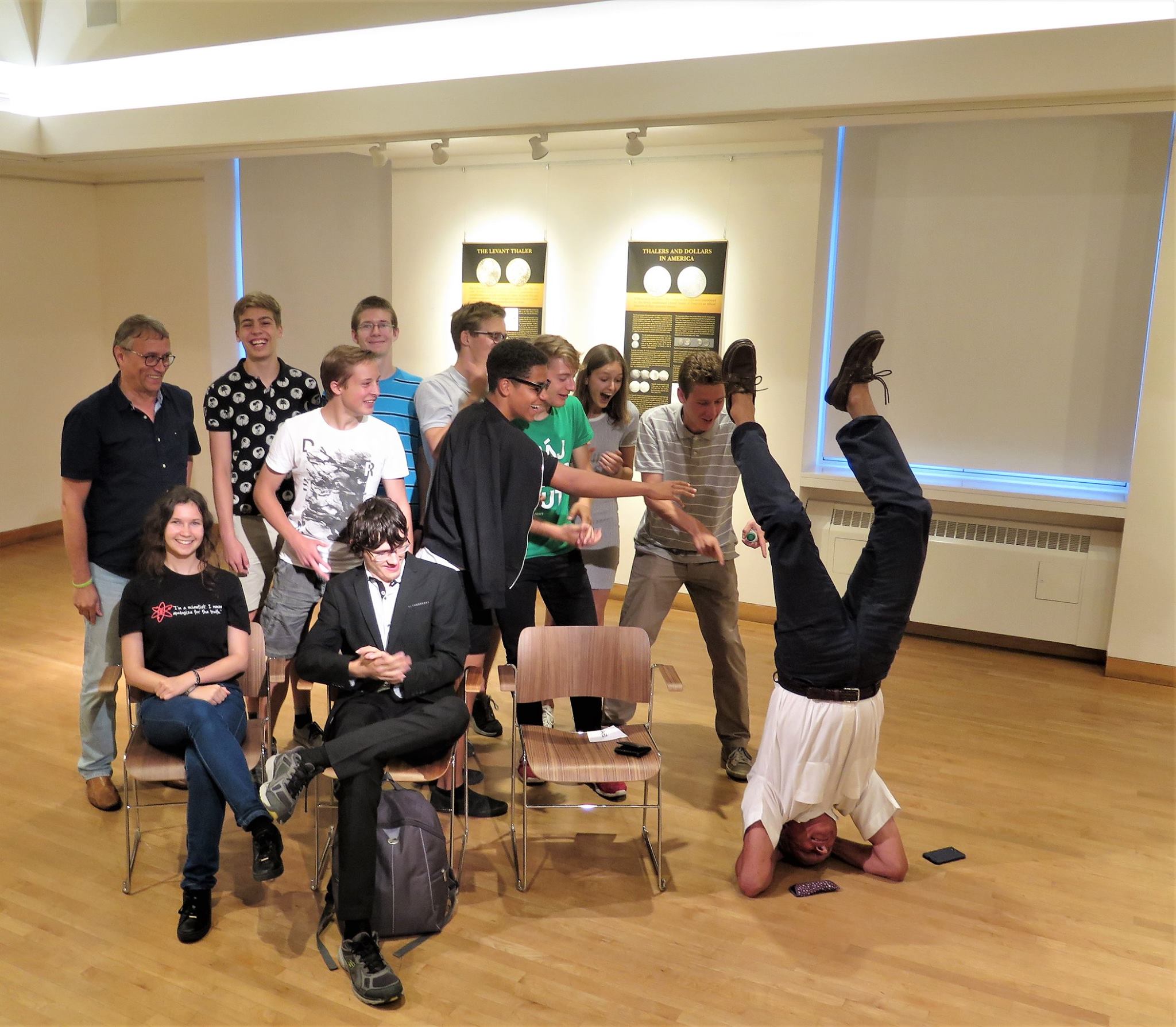
Mr. Herman, please tell us now more about your program.
We offer Czech and Slovak children opportunities to develop their talent, to accelerate and enrich their learning with CTM Online, Discovery Saturdays and CTM and CTY Summer. CTM Online is the most popular. It offers students 12-18 years of age online courses in English guided by experienced CTM instructors leading eventually to Advanced Placement (AP) exams of the American College Board. Students can choose from over 100 courses in mathematics, physics, chemistry, biology, computer science, and many other subjects. CTM Online is the only opportunity for students in Czech and Slovak public schools to measure their academic accomplishments directly with their peers in the rest of the world. Students find it highly motivating and rewarding. They really learn. Some schools integrated CTM Online into their school curricula. For the first time this coming school year, CTM Online will be used directly in class at three participating schools. CTM Online evolves from our long-term association with CTY to which we added Florida Virtual School Global (FLVS) and the University of Nebraska High School (UNHS); all prestigious online learning institutions, to provide effective, affordable and flexible ways to learn. Also, CTM offers its own online courses for younger students to get them used to online learning environment, technical English and instructor support. I keep scouting all the time for the best possible online content for our students.
What are the results of the program?
I cannot be happier with the results of our students. They excel in the most popular and the most demanding courses in the AP system of the College Board. AP courses offer college-level curricula and exams. They teach critical thinking, reasoning and learning through inquiry. Students gain detailed knowledge of key subjects, substantially improve their technical English and become well prepared for AP exams. By taking AP exams, they prove their interest, ability and determination to succeed in university studies. CTM is a College Board partner for administering AP exams at Czech and Slovak schools.
CTM students rank consistently among the best in AP exams earning on average a 4.06; much superior to the global AP average of 2.89 with “5” the top grade. Every year in May, more than seven million students from all over the world take AP exams. Over 1,000 CTM students have participated since 2011. Great results helped over 100 to scholarships and admissions to universities including Oxford, Cambridge, Yale, Johns Hopkins, NYU, MIT and others. Most students continue at Czech universities, some moving later to graduate work abroad.
Where are the biggest obstacles to achieve more support?
By now, CTM Online would be making a huge impact if most schools would be like the five we started with in 2011. These schools have excellent directors. They have appointed effective school CTM coordinators who inform students and parents, and with the teaching staff integrate CTM Online courses into the school curricula. These schools plus a few others are the most active, some with 15-20 students every year. This school year we expect about 350 students in CTM Online. We are immensely grateful for the support of RSJ foundation in sharing the program cost.
Our biggest obstacles are people – school directors, teachers, and some education experts (those with their superior answers). They are out of step with the times, resisting change, killing the natural interest of children to learn. We have visited most Czech and many Slovak schools; some many times over. When we come, they are excited promising to take part. After we leave, nothing happens. From some directors we even hear: “No, we do not have any talented students here”. Some teachers tell students: “Why CTM Online? Is my class not good enough for you?” These and similar stories we hear all the time.
How do you wish to see AFCSLS and CTM in 10 years’ time? (what is your vision?)
We do all we can to build CTM into a force for excellent primary and secondary education in Central Europe. We are making solid progress in difficult Czech environment, in Slovakia and with occasional interest elsewhere in the region. In four years, we would like to see 800 – 1,200 students in CTM Online, maintaining AP exam scores well above the global average. This year, we start preparations for AP International Diploma, equivalent to the International Baccalaureate (IB) Diploma but more flexible and affordable. Naturally, some education experts are suspicious of the idea. With no access to the IB program, many parents may find CTM Online ideal for their children. But first they would need to convince their school director. Our top priority is to hire the very best CTM Online instructors with salaries equivalent to top professionals. Instructors make a huge positive difference in students’ outcomes as confirmed by responses from students and parents in CTM Online evaluation surveys.
Your final words…
We would love to do much more to help Czech and Slovak children prepare well for the future. The best possible education for all must become the top national priority. We look all the time for partners and supporters to join us in our quest.
By Linda Štucbartová
Lessons Learned While Travelling in the Summer to Make Everyday “Ordinary” Life Extraordinary
I love both summer and travelling. It’s hard to say what matters more. But summer and travelling is truly an ideal combination. After many years, I was fortunate to be able to take three weeks to explore life in the beautiful state of Colorado, USA. I was not completely disconnected from work; I just switched into remote working mode. During the first week, my children attended a summer camp, so I had a few hours between the drop off and pick up time for myself. During the second week, we stayed with our friends so we had a busy schedule but we did not get to live a nomadic life on the road. This came during the last week of our travels, when we stayed in six various places within eight days.
Reflecting upon my very intense yet pleasant experience I realized that there are four approaches that could be easily adopted into my everyday life, so I do not have to wait several years to experience the same sense of flow, exploration, amazement, appreciation of being out of my comfort zone and much more…
Focus. I realized that I was much more focused during my vacations than in my working days. Multitasking was simply not an option during the many challenging or exciting moments such as: driving to our final destination after 28 hours of travel (Prague – London – Charlotte – Denver) in the middle of the night to an unknown place (and being grateful that TomTom got it right this time!). Likewise, driving a normal rented car on a dirt road for the first time to get to Lake Cataract hiking place required full attention. This came easy when marveling at the views of various peaks, mountain ranges, continental divide and other natural beauties.
Relax. Even though I consider myself a cautious, informed yet flexible traveler, there were moments that I just had to accept force majeure. Getting stuck at the top of the mountain after the gondola service was interrupted due to lightning and thunderstorm? No problem! It was a great opportunity to have two glasses of Chardonnay and a nice chat with my friend. The children exploited the situation well and the amount of money spent on ice-cream would probably cover a babysitter for several days. However, it was worth it, as two working mothers enjoyed an unforgettable hour of meaningful conversation and a good laugh. Arriving to the overbooked hotel and not getting the room you booked and paid for? (yes, you guessed right, it was through booking.com), presented me with an opportunity to negotiate for a complimentary drink and meal and a day later I appreciated the right/upgraded room even more. Last but not least, my plans to work on a book project got completely set aside. I did some writing but rather than enjoying the process, I found it very laborious and frustrating. I blamed myself for not proceeding fast enough. I decided to let it go and enjoy the present moment, going on hikes, exploring nature and doing NOTHING. I spent one evening with a group of women, preparing a women’s weekend seminar and sharing life stories. Besides experiencing the notion of a global sisterhood (a term coined by Annie Lennox), as a side effect, I got some new ideas for the book project, this time in an almost effortless way.
Explore. I love Eleanor Roosevelt’s quote, “Do one thing every day that scares you.” Being on the road guarantees being out of the comfort zone a lot. I use the following motto when working with my clients, “uncertainty is the place where miracles happen.” Walking around the Florissant Fossils Beds during rain, and later, a thunderstorm made all the photos and learning more valuable. All of us being soaked, we enjoyed our time inside the museum, listening very attentively to a documentary about the area. Discovering the beginning of the Rim track hike to the top of the hill in Snowmass village on our own was a moment to cherish and to be proud of. It also provided a great joke to share, we had asked a hotel concierge for the direction and we were guided to a local shopping mall as a worthwhile attraction instead.

Enjoy. If I were to choose the most important lesson, I definitely want to keep a more relaxed attitude. During vacations, I let go of perfectionism and just try to enjoy whatever it is in the moment. After buying the perfect hiking shoes, I badly kicked and injured my little toe. For the rest of the trip, I was mostly hiking like a local, wearing sandals. When we arrived to a bed and breakfast at the vineyards (this time not via booking.com but recommended accommodation based on a local guide), we found out that the only vineyards were at the sign post. We simply asked the hosts to arrange an excursion to them and we got it, even after the closing hours. Further on the road, I declared the 22nd day of our travels as a rest day. Even though we were in Manitou Springs, a town offering many sights, museums, peaks and activities to explore and discover, we spent the day in a Sun and Water Spa, soaking in cedar barrels in local mineral water. At the end, the journey is more important than destination, isn’t it? We did not make it to Pikes Peak, we did not see the Wild West Museum. I believe that there must be always a reason to return.
My family and I will remember many experiences of being in the present, surrounded by like-minded souls… such as celebrating my birthday surrounded by my family and friends and wearing my “birthday girl hat”. We sang John Denver’s songs such as “Rocky Mountain High”, “Country Roads” or “Leaving on A Jet Plane” next to the campfire while making special American s’mores (roasted marshmallows with a chocolate and a biscuit). I felt proud to share with a group of women the history of our special Czechoslovak-USA relations thanks to our first Czechoslovak president Tomas Garrigue Masaryk and his American wife, Charlotte.
Re-uniting with my high-school classmate Ray, now an evangelical pastor at Grand Junction, and sharing our paths taken close to a quarter of a century ago made us both reflect on our journeys since I was an exchange student in a senior year in Palmer, Alaska in 1993-1994. Enjoying typical US steaks and appreciating the US service when being truly served in a shop or in a restaurant is another item I cannot pack but I will recall often when back in Europe. Admiring natural sand sculptures at Colorado National Monument, trying out echoes in a canyon or studying fossils at the Florissant River Bed on the other hand made me aware about the fact that the present is only a glimpse between the past and the future. Let us make sure we live the moment fully.
“We must be willing to let go of the life we planned to as to have the life that is waiting for us.” – Joseph Campbell
Quoted from the book “Excess Baggage” by my friend Tracey Carisch, to be published in August 2018. This blog post is dedicated to her and her family. We met in Prague in 2014 and continued our friendship on-line for almost three years. Thanks to her kind hospitality, we were able to explore Colorado with locals as well as on our own.
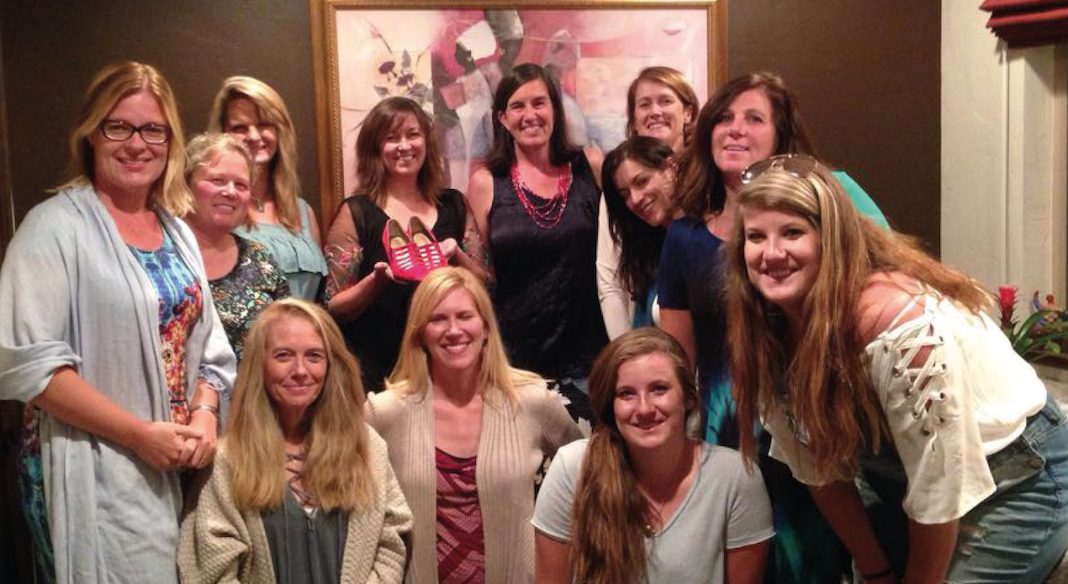
By Linda Štucbartová
On the anniversary of the July 23 Revolution, H.E. Abderahman Salaheldin, Ambassador of the Arab Republic of Egypt in Prague held a ceremony at the Egyptian Embassy in Prague in the presence of Mr. Jan Hamacek, President of the Czech Parliament, as a guest of honor, with the attendance of the members of Embassy, Senior Czech officials from the Ministries of Foreign Affairs, Education, Culture, members of the diplomatic corps accredited to Prague, presidents and representatives of major Czech companies, media professionals and academics, as well as members of the Egyptian community.

Impressions from the Prague Intercup 2015 and 2016.
Check out the Facebook page for up to date information about Prague Intercup 2017.
Is it missing a key component?
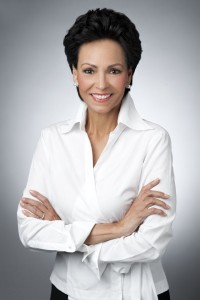 Deloitte announced a “bold” move in their strategy to shift the momentum regarding gender parity. They have decided to concentrate on men. “A lot of their leaders are still white men who need to be part of the conversation and advocate for women”.
Deloitte announced a “bold” move in their strategy to shift the momentum regarding gender parity. They have decided to concentrate on men. “A lot of their leaders are still white men who need to be part of the conversation and advocate for women”.
So I decided to look at recent data from the Czech Republic to see if this “trend” could be applicable to the Czech context. First I looked for female presence in the workforce and found that you have a 57.2% participation of women in the workplace.
I also looked at potential cultural boundaries that impact the promotion of women in your market and this is what seems to be the overall thematic:
“The most serious discrimination of women takes place on the labor market. Women are discriminated against when looking for a job and if they have small children they tend to be the first to be laid off. But the biggest and most visible type of discrimination that women face in the Czech Republic is called pay discrimination as can be seen in the gender pay gap.”
Pay parity continues to be a painful issue in the US as well. However, other cultural stereotypes such as “women aren’t interested in leadership roles, women lack the confidence to go for top positions, and there aren’t enough qualified women out there” are even bigger roadblocks. (Huffington Post Male Attitudes of Women in Business 8/1/2017).
So the timing of the Deloitte project seems to be aligned with the hard reality here in the US, as well as in the Czech Republic. Social and cultural context continue to create “emotional” obstacles that keep this issue alive. A new “mind set” is needed.
But I wonder if the new trend is missing a key element? Emphasizing the financial loss of attrition. Would this approach make a difference? Could this attract the attention of the “white men” that Deloitte is trying to engage?
Take a look at this recent article. (Huffpost High Turnover Costs way More 2/11/2016) “Doing the math, that means that for an employee salaried at $60,000 will cost the company anywhere from $30,000 to $45,000 to hire and train a replacement. Other research show that the average costs could be even higher. In a study conducted by the Center for America Progress, the cost of losing an employee can cost anywhere from 16% of their salary for hourly, unsalaried employees, to 213% of the salary for a highly trained position! So if a high trained executive is making $120,000 a year, the true loss could be up to $255,600 to the company.”
Do these numbers sound reasonable to you? Should you do the math and see what your costs are? Should you use this metric (cost of attrition) as a way to move the conversation forward?
Elisabet Rodriguez Dennehy
President Rodriguez and Associates LLC
Two important clubs – Czech Business Club and SKAL and their networking lunch. Friendly meeting with a short presentation on Vocational education and training (VET) in Czech Republic.
“My attitude towards the Euro is evolving”
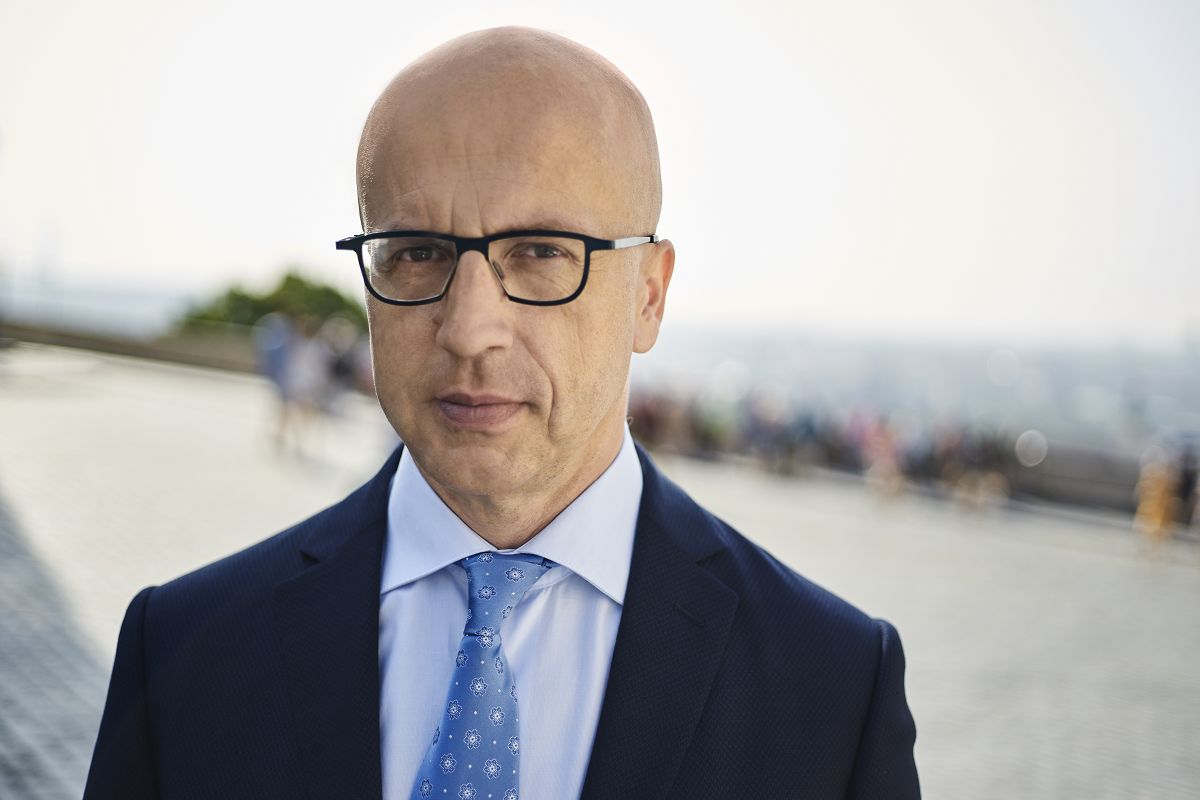
Pavel Telička, Vice-President of the European Parliament
The European Union is confronted with a migration influx. Is there any ideal solution? You are not a big supporter of quotas, are you?
Let’s look at the issue retrospectively. A year and half ago, the migration influx started to grow. At that time member states went for the migration quotas. However the real numbers were changing on daily basis, there were no other measures in place, migration was out of control and the EU drowning in unilateral steps. For this reason the quotas could not have the desired effect, you do not start by relocation of refugees at a time when protection of external border is non-existent, return policy does not work or incoming migrants re not being identified. And obviously it has not. We should keep in mind that this issue falls in Member States competence and many of these wanted effective measures and not a measure which led to dividing the EU. There are limits to the absorption capacity of the EU and the capability of integrating a certain number of refugees and there are limits for each individual Member States as well. I stand for solidarity with those member states that are severely affected. However, we need to have migration under control and have to know the real numbers we are talking in before taking any action. The distribution of quotas, or rather refugees, is one of the steps to be taken at the right time and rather on voluntary basis. The main focus has to be on the situation in the home countries of the refugees. We have to motivate them to stay there. We should invest in these countries, provide people with safety and security, education, jobs and so on. If the need be and if invited to do so also intervene in managing a conflict. Systemic measures are the objective. Migration has to change from illegal to legal, we need to provide protection to real refugees as well as safeguard security of our own citizens. Having said that, I would rather prefer to address the causes of migration.
We cannot ignore the pressure of western countries on the CEE region to converge to their salaries. We see it strongly in posting of workers. Do we need the convergence at any price?
Definitely not. The salaries are linked to the economic situation and social environment, GDP is not an irrelevant category. We also have to ensure the sustainability for investors who invested in our countries according to certain conditions. At the same time, we have to recognize that some activities which are not completely in line with the rules take place and the conditions of posted workers are sometimes beyond the limits of being acceptable, in fact we might not even speak of them being posted, at least in some sectors. Reactions of some member states have been translated into unilateral measures which are not in line with the internal market rules. The Mobility package presented by the European Commission at the end of May represents an effort to align the internal market. The question is whether it will reach an optimal situation and whether it is itself balanced. I would argue for a solution which will ensure consistent rules with legal certainty and low administrative burden. One legal framework is needed though I do not hide that the proposal will divide the House (European Parliament).
ALDE Group requires that all members of Eurozone should have one representative in the international economic institutions who would also be a member of the European commission. What is your view on the Euro?
My attitude towards the Euro is evolving. When entering the EU we could not negotiate an opt-out of the Euro like Denmark did as it was a member state at the time of negotiating the Maastricht Treaty. Now, we should work on better economic governance in the Eurozone. Our preparedness must be sustainable, as I believe it now is. In the past, the politicians decided that there was no will to join euro. Now it is time to reopen the issue in the Czech Republic and lead a discussion with the wider public about the pros and cons of being part of the Eurozone. Me personally, I would like to intensify this debate. It is an important topic for the next government after the parliamentary elections later this year. Hopefully.
Should the Czech Republic be part of the hard core of the EU?
There is no other alternative then to have influence and if there is to be a core, then one should aim for having influence on it. But we should not create barriers and draw lines. The aim of the new government should be to be more mature, take initiatives on relevant issues at EU level, be constructive and be in regular contact with other EU heads of states. Let me though say that we should avoid an artificial construction of a core. It is clear that at a certain point in time we will have many issues on the table and there we will see what is acceptable for us and what is not. This will shape our position within the EU.
The UK is leaving. Do you perceive it as a threat to the EU project or as a natural evolution? What form of economic cooperation with the UK would be the best for the EU?
It is not a threat to the project. If it should weaken the EU, then it means that the European project is really weak. And that is not the case. The negotiations might be difficult and they might create tensions among member states and bring problems. Now we start the negotiations on the divorce and later about future cooperation. Within two years, we have to solve the most important issues and be aware of potential impacts. Of course I would welcome if the UK would stay in the internal market or in Customs union but we know that the British go for the so called hard Brexit. Therefore the most probable form of cooperation will be the free trade agreement supplemented by bilateral sector cooperation in whatever treaty form. I would argue for a strong cooperation on defence, education and R&D and others.
Do you think that TTIP still has a chance to survive?
There is a lack of consistency in Trump’s decisions and therefore it is more difficult to anticipate his further steps, both domestically and vis-à-vis international partners. That leads me to more sceptical speculations. But I am an optimistic person. I deem that the US business will be aware of the impact because in TTIP there are many positive aspects for US business. The negotiations might go back to the point where they were at the time of US elections. The strategic partnership at a global level in creating regulatory order to confront the practices that are not always optimal might be the trigger effect of the negotiations. TTIP could be a great strategy towards third partners such as China. I know there are many supporters of the EU – US agreement on the US side but it seems Trump’s a paradox.
In mid-June new rules on roaming will apply. It is a great achievement for the European Parliament. What else does the EU plan for its citizens within the digital single market strategy?
There are many new initiatives that we are working on. The consumers will benefit from new rules of geo-blocking at the beginning of 2018. They will be able to shop online without being blocked because of their geographic location. In May, the European Parliament has also adopted new rules which will enable the citizens to have access to their prepaid online services like subscriptions to films, sports events, e-books, video games or music services when travelling within the EU. I am fed up with being blocked from seeing a rugby match when traveling. This will be a great achievement. We have also progressed on the proposal of 5G deployment. At the end of May, the European Union institutions agreed to set aside 120 million euros to provide free wireless internet connections by 2020 for up to 8,000 municipalities in the EU in areas with no internet coverage. The Czech Republic has to focus more on the digital economy, not only industry but also the government. We lag behind Estonia by 15 years. We are still the country where the goods are assembled and not created.
Thank you for the interview!
By Alena Mastantuono
Pavel Telička graduated from the Law Faculty at the Charles University in Prague in 1986. His professional activities started at the Ministry of Foreign Affairs. From 1991-1995, he held different positions at the Czechoslovak/Czech Mission to the European Communities in Brussels, including Deputy Head and Head of Mission. He served as a Chief Negotiator for the accession of the Czech Republic to the European Union and as a State Secretary for European Affairs. In 2002, he took up the post of Ambassador and Head of the Permanent Representation of the Czech Republic to the European Union. He was the first Czech Commissioner though very shortly. Afterwards, Telicka set up BXL Consulting Ltd, an EU Affairs consultancy. In July 2014 he was elected to the European Parliament (ALDE/ ANO 2011) and in 2017 he was elected the Vice-President of the European Parliament. He is keen on sports and healthy lifestyle.
Laurent Laval held another of his Opera Conferences in the Czech Business Club to present his experience and ideas related to finding talents within an organization. Going by the title “Find the diamonds in your team to double your sales” Laurent’s presentation outlines the steps he has taken in the corporate world and how he can apply his experience to organizations as a consultant.
The conference combined opera with a presentation around Laurent’s experience, as he believes opera emotions open the mind and heart to new ideas and inspire a level of thinking higher than our current state. Participants enjoyed not only good company, good wine and cheese and an interesting conference but also a unique operatic presentation of “recognizing the talents, the diamonds, in team and authorizing them by giving them an appropriated mission makes companies unique and competitive. When people are happy at work they stay in the company and give the best of themselves: they work with passion and will attract naturally other talents” as a conclusion.
Club discussion with Pavel Kysilka, former Chairman of the Board of Česká spořitelna and founder and Chairman of the Management Board of Project 6D Academy.
On the anniversary of the July 23 Revolution, H.E. Abdrahman Salah, Ambassador of the Arab Republic of Egypt in Prague held a ceremony at the Egyptian Embassy in Prague in the presence of Mr. Jan Hamacek, President of the Czech Parliament, as a guest of honor, with the attendance of the members of Embassy, Senior Czech officials from the Ministries of Foreign Affairs, Education, Culture, members of the diplomatic corps accredited to Prague, presidents and representatives of major Czech companies, media professionals and academics, as well as members of the Egyptian community.
H.E. Amb. Abdrahman Salah Ambassador of the Arab Republic of Egypt in Prague in his speech stressed the depth of the historical relations between Egypt and the Czech Republic. He highlighted on the recent bilateral cooperation in the economic and commercial fields. He also noted the remarkable growth to the number of Czech tourists coming to Egypt in the first quarter of 2017 that reached 50 thousand Czech tourist, with an increase of 150% compared with the number of tourists in the same period in 2016, expecting that the total number of Czech tourists who will be visiting Egypt will reach 150 thousand tourists by the end of 2017. Also, he praised the increase in the number of direct flights from Prague to the cities of Sharm el-Sheikh Sheikh, Hurghada and Marsa Alam, which reached 13 flights weekly, emphasizing on the ongoing efforts exerted by the Embassy to restart the direct flight line between Prague and Cairo.
H.E. Mr. Jan Hamáček, Speaker of the Czech Parliament, congratulated the Embassy on the occasion of the Revolution of 23 July, stressing the depth of the historical relations between the two countries, which dates back to 1920, stressing his country’s interest to develop and strengthen cooperation with Egypt as a strategic partner in all fields. He also welcomed the remarkable growth in the number of Czech tourists visiting Egypt, noting that during his last visit to Egypt, he witnessed the improvement of stability and security situation in Egypt especially in tourist resorts in Sharm el-Sheikh, Hurghada, Marsa Alam, encouraging Czechs tourists to travel to Egypt and enjoy the beauty of its beaches and its distinguished cultural and historical heritage.
Charity – social evening in Austria Palace
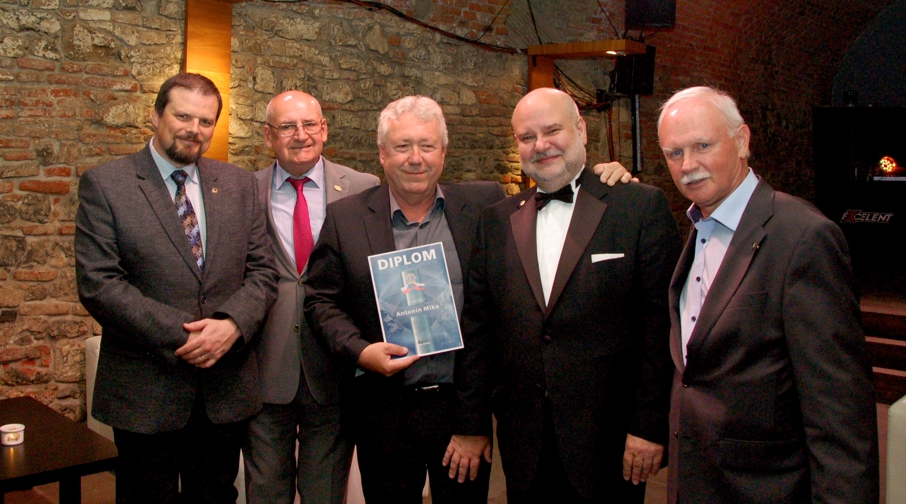
From left: Mgr.Jan Haur, Entrepreneur ,JUDr.Vojtěch Trapl, Lawyer and former Governor, LCI D122 Czech Republic and Slovak Republic, Ing.Antonín Mika, Director, Foreign Trade Company “LAMMEX Ltd.” and former President, LC Praha Bohemia Ambassador, Miroslav Hříbal, Entrepreneur, and Ing.František Novotný, President, Associations SDSS and APST and Secretary, LC Praha Bohemia Ambassador
On 14 June 2017 Canadians and friends of Canada got together in the magnificent Waldstein Garden in the Lesser Town of Prague to celebrate two important anniversaries: 150 years of the Confederation of Canada and 20 years of the Canadian Chamber of Commerce in the Czech Republic. The late afternoon reception was held under the auspices of HE Milan Štěch, President of the Senate of the Parliament of the Czech Republic, and co-hosted by HE Barbara C. Richardson, Ambassador of Canada to the Czech Republic, and Jiří Krejča, President of the Canadian Chamber of Commerce in the Czech Republic. The excellent cooperation of the Embassy and Chamber team with the Senate staff, the generous support of numerous partners and the extremely favourable weather produced a truly unique event befitting this special occasion.
Photos by: Adéla Půlpánová, Pavla Hartmanová
The annual Spring Security Conference with a provocative title “Swords and Plows” took place on Friday, June 2nd 2017 in Professed House, Prague. The conference with around 200 attendees was traditionally organized by the Center for Security Policy, IPS, Faculty of Social Sciences, Charles University in cooperation with Friedrich-Ebert-Stiftung e.V. representation in the Czech Republic and European Commission representation in the Czech Republic. On the eve of the conference, the Ambassador of Italy in Prague hosted a reception for speakers and partners.
Photo: Michal Pavlík
June 18th, The Spanish Hall, Prague Castle
The Gala Evening was held under the auspices of:
Miloš Zeman, President of the Czech Republic
Lubomír Zaorálek, Minister of Foreign Affairs of the Czech Republic
Daniel Herman, Minister of Culture of the Czech Republic
Vladimír Dlouhý, President of the Czech Chamber of Commerce
Hilton Hotels in Prague organized a spectacular party for their clients and business partners. The party took place at the Hilton Prague Congress Hall with Rio Carnival themed decorations and projections and was attended by 500 clients.
The Sales team of Hilton Hotels in Prague welcomed guests in Brazilian carnival costumes. Partygoers had a lot of fun, enjoying a dance performance by almost 20 members of the hotel Business Development team, indoor fireworks, a professional dance performance by the Tradición group, a drum show by Tam Tam Batucada and much more. Guests also took part in a best costume competition and participated in various activities in the foyer. The party was presented by Tonya Graves.
Like every year, a charity raffle was part of the event with valuable prizes such as stays in Hilton Worldwide Hotels and a main prize: flight tickets to Sao Paolo for two persons donated by Turkish Airlines with a three-night stay at Hilton Sao Paolo Morumbi. The total amount collected from sales of raffle tickets reached almost 50.000 CZK. Hilton Hotels in Prague matched the amount, raising it to 100.000 CZK and a charity cheque was handed over to Terezie Svedrlinova, Director of Tereza Maxova Foundation by Michael Specking, General Manager of Hilton Prague.
Guests sampled creative international and Brazilian delicacies presented by Hilton Prague CzecHouse Grill & Rotisserie and Hilton Prague Old Town Zinc restaurans as well as a selection of signature cocktails from Cloud 9 Sky Bar & Lounge.
One of the main partners AV Media who has been the main audio visual technology supplier and partner of Hilton Hotels in Prague since 2004, arranged for the full technology set-up for the event and introduced some of the latest technology news – Robe Spiider lights and 4K Panasonic projectors.
Special thanks go to partners of the event – AV Media and Turkish Airlines being the main partner, BMS Creative, C.I.P.A., Coca-Cola HBC Czech Republic, Fany Gastroservis, Ice art, Mattoni, Mikenopa, Papei, Pepsico, Pilsner Urquell, Samsung, Smile Brothers, Wine Events, XO Foods and Znovin Znojmo.

Robotic hand using a laptop computer, illustration.
Studies by Oxford University suggest robotics and automation will replace 47% of knowledge worker jobs over the next two decades. So if you are not planning on retiring in the next ten to twenty years, and let’s face it with average lifespan on the up and pension pots on the down many of us may never “retire” in the future, then you’ll probably find this article a great source for thought. At TomorrowToday we actually predict that by 2030 retirement as we know it will have disappeared, at least the concept as we know it will have been replaced with something else. Either way, the impact on automation will be felt by most of us. So we have to ask ourselves the question: What can humans do that computers, AI and smart machines can not do, well at least into the foreseeable future? The answer lies within six uniquely human values.
- The Empathy to care about things that are wrong and have the passion and energy to seek something better.
- The Curiosity to explore and go where others have never been.
- The Creativity to find exciting and new solutions.
- The Intuition to know when you have it wrong and the ability to the follow your gut instinct experimenting with a new route.
- The ability to Inspire others to join you on your crazy impossible and meaningful adventure.
- The ability to Collaborate with people and machines flexibility and in large numbers.
These are the six values every leader and person will need to harness to future proof themselves from robotic replacement.
Read more here.
The launch of an impressive book by Gerhardt Bubnik “Life between paragraphs” was held on June 13th 2017. The ceremony took place at the headquarters of the Czech Bar Association in Kaňka Palace in Prague under the auspices of its President Dr. Martin Vychopeň who also performed the christening of the book.
Dr. Gerhardt Bubník, LL.M. (the first Czechoslovak graduate of the Harvard Law School) is not only a prominent Prague lawyer who has been introduced into the Czech Lawyers´Hall of Fame last year but also a life-time sport organizer and international official who has been awarded the Olympic Order by the International Olympic Committee. This Committee has awarded him yet another prize, namely the Prize for Fight against Doping. The story of Gerhardt Bubnik´s life is illustrated by a number of unique photographs and historical documents.
The launching Ceremony was attended by 70 persons including a number of personalities and was a great success as shown by the photos.
The book can be bought on internet on the following website: http://obchod.wolterskluwer.cz/cz/zivot-mezi-paragrafy.p3949.html
On June 15th, the annual summer party of the German-Czech Chamber of Industry and Commerce (DTIHK/ČNOPK) took place at the historical site of the German embassy in Prague. The garden party attracted more than 1000 guests, among them high-ranking members of the Czech-German business community and government institutions and associations. Apart from networking, the chambers’ guests had a perfect time by checking out current and vintage Škoda models, learning how to dance flamenco on the dance floor or taking a look at the Genscher balcony. Beautiful weather, cocktails, delicious food and vibrant music completed the atmosphere of this unforgettable summer night.
PHOTO: Jaromír Zubák, Michal Štěpánek, Vladimír Weiss
2017 very talented graduates from the Prague College of Fashion and Design have prepared and presented their collections inspired by the theme of encounters with Morocco in the prestigious premises of the Prague Museum of Music on 13th June. Each student made her own creations accordingly to one of the 9 themes selected and inspired by the Kingdom of Morocco, namely: the sand Marathon, Zakaria Ramhani’s paintings, the art of Berber carpets, Moroccan street art, Blue Majorelle and the city of Chefchaouen, Moroccan cultural diversity, the colours of the Sahara Desert, the Hammam and Spa rituals, the rose of Kelaat Mgouna. The collection was truly and simply beautiful! The event was organised by the Vyšší odborná škola oděvního návrhářství v Praze in cooperation with the Embassy of the Kingdom of Morocco in the Czech Republic and the Czech-Moroccan friendship and cooperation society in Prague.
“Asia remains a great unknown for us”

Martin Klepetko, Director of the Asia Pacific Department at the Ministry of Foreign Affairs
Martin Klepetko played trumpet at the conservatoire in Pardubice, studied Musicology at Charles University’s Faculty of Arts and studied Conducting at the Academy of Performing Arts’ Music Faculty. He taught for five years at the conservatoire in Pardubice.
In 1993, when the need arose for new diplomats following Czechoslovakia’s partition, he applied to a recruitment process led by the Ministry of Foreign Affairs on the basis of a newspaper ad. He was successful and since that time he has followed a career as a so-called universal diplomat, who has covered various fields of expertise and territories over his diplomatic career.
Martin Klepetko was involved in the International Observer Mission in the former Yugoslavia, then worked at the embassy in Tehran as chargé d’affaires e.p., and at the embassies in Baghdad, Sofia and Hanoi as Ambassador Extraordinary and Plenipotentiary. At headquarters, he has worked for the South-East and Eastern Europe department, Analysis and Planning, was Director of the Human Resources Department and currently heads the Asia and Pacific States Department.
Our interview focused on parallels between conducting and diplomacy, career diplomacy in general and last but not least we spoke about Asia as a region which is still misunderstood and underappreciated in terms of its history and potential in the Czech Republic. And our meeting incidentally took place over a cup of tea brought back from his journeys in China and Martin told me of the rule he had learnt that in China tea is steeped briefly and repeatedly. The third steep is meant to taste the best.
Martin, in line of your previous studies and work, I must start with the question of what parallel there is between conducting and diplomacy.
As was mentioned in my introduction, my journey from conductor to diplomacy was not a planned one. But after it happened, I discovered that both professions have a whole lot of shared features. The principal commonality is management skills. It is well known that a conductor must be a good musician, must be able to play one or more instruments, yet he himself plays not one note. He must convince the other players, whether they are large in number as in a symphony orchestra or a few individuals as in a chamber ensemble, of his idea, enthuse them with his own concept and this is then reflected through overall shared efforts. Diplomacy is similar. If you’re sent abroad, it’s not a symphony orchestra you’re given, but rather a chamber ensemble and so it is all the more important that the collective act as one and not rather as occasional solo performances which do not resonate or complement each other. This parallel convinced me how important it is to be able to enthuse others and convince them of your own vision. As for myself, I am not someone who likes authoritarian management.
Your words validate one of the latest trends in management training in which managers try to improve their style through working with an orchestra.
I realise that it is easier for some people to manage others using a traditional authoritarian style through orders and tasks. I believe that despot conductors are a thing of the past now. A wise conductor knows that he has very high quality players available to him, and his task is to make sure everyone is working in harmony. This is also the task of a good diplomat. That’s why I prioritise opportunities to sit down with my colleagues and discuss what we can expect and then everyone knows what their role is and carries it out as they see fit.
What was it that led you to a career in diplomacy in 1994?
There is a Czech saying that necessity led Dalibor to play the violin, but for me it was the other way around; necessity led me to diplomacy. After five years working in the field I studied, I realised there were limited opportunities for career development. I didn’t want to wait for my older colleagues to retire so I could move into their positions. Remuneration in education remains a subject of debate today, but in the early 90s the situation really was terrible. To begin with I tried to earn extra money through various business activities but this just made me realise what a poor salesman I am. One day I came across an ad in the newspaper for diplomatic roles requiring a university education and two languages. I met both these conditions, applied and succeeded from amongst hundreds of candidates.
What was it like to undergo such a major change in occupation?
The change really was tough. I transferred from the relatively free career of a teacher with 22 teaching periods per week and all the school holidays into an institution where the working time was at least from 7.45am-4.15pm with 20 days’ holiday. From the outset, however, I was working in fascinating countries and so I dealt with the new situation well. In contrast to today’s new recruits, I was able to choose my agenda. I was able to choose between culture, Slovakia and the Middle East. I had left the cultural sphere, I didn’t consider Slovakia abroad and so I chose the Middle East. My work covering the Middle East was fascinating; I was in charge of Syria, Lebanon, Israel and Jordan, countries which are today the centre of attention and taking up the front pages of newspapers, but at that time the situation wasn’t quite as tense.
It looks like you chose your departments strategically; today China, another department you managed, is also on the front pages …
You’re right, I deliberately haven’t chosen easy or might I say time off countries… I tell myself I have time for time off countries when I’m coming up to retirement. Time off countries can be considered those which in terms of development are calm, or countries far from Czech foreign policy’s main focus. Even in such cases there’s still stuff to do; monitor developments in the country, prepare reports and meet with colleagues and partners, but these are safe countries where there are no emergency situations. I have operated in countries which were not safe, or where things were happening…
I know it’s very hard for a diplomat to name names, but in light of the above, could your position in Sofia be considered a time off one?
But my position in Sofia preceded my position in Iraq. I grew fond of the Balkans, and Bulgaria is unique in terms of close relations, and also unique in terms of the large Czech expatriate community resident there with a history dating back over a hundred years. I’d like to say here that warm friendly relations are really important, because diplomats aren’t always positioned in countries favourably inclined to them. I also added to my role there by collaborating with a number of orchestras, and I conducted more than 10 concerts, including one opera performance.
What’s it like to work in a country not favourably inclined to us then? The task of diplomacy is surely to nurture close relations…
There are territories where we are simply on different sides politically. Take my position in Iran, for example. The Czech Republic is highly critical of Iran’s current political class, and although we endeavour to develop economic relations, differences in our perspective on democracy and human rights persist. In Iran, there were significant areas of friction, and for me as a diplomat my work was not easy because it was extremely difficult to organise a meeting on any topic at all. Furthermore, there are not a lot of visits or delegations travelling to the country. But diplomacy isn’t just about simple and pleasant topics and destinations. On the other hand, Iran is a wonderful country, the people there are incredibly hospitable, so you need to differentiate between ordinary citizens and the political representation with whom you disagree.
You and your career are an example of a universal diplomat, where you interchange between countries, bilateral and multilateral relations and further specific agenda at headquarters. What is the opposing model?
The USA to some extent, but especially Russia and China, have diplomats who have very narrow specialisations. They can then speak the language of the particular country and repeatedly return there. Here, we try to avoid sending people repeatedly to the same country.
Although only eight candidates a year are accepted at the Diplomatic Academy, diplomacy is still attractive to young people. What is your message to young people who want to enter diplomacy with a desire to change the world?
If you want to change the world, then do something else. Diplomacy is about change, but very slow, indiscernible changes which move the world forwards. Diplomats should instead try to maintain stability, not make revolutions in international relations. Diplomacy really is about learning to say not entirely pleasant things so that they don’t sound offensive, retaining credibility. One of a diplomat’s main characters should be loyalty; loyalty to the Ministry of Foreign Affairs itself. Political representations frequently change, and Czech foreign policy emphasis changes with them. A diplomat should not have their own idea of what agenda to implement and to stick to it. Diplomats must respect the policy of the government and specific minister, and must also be able to identify with these steps. You can’t do things in the long-term which you are not persuaded by. So it’s about seeking compromise and that’s how to recognise who is suitable for diplomacy in the long term, and who isn’t. Basically, diplomacy is a service of the state; today we are part of the civil service. For me personally, the ratification of the Civil Service Code has not changed much; since joining I have perceived my role as to carry out a service to the state within an institution in which I cannot reflect my own political convictions.
You’re now in charge of the Asia Department; you’ve just returned from China. What is your message about this territory to close this interview for Czech and Slovak Leaders readers?
I’ve been on two brief trips during which I wanted to see the workings of our missions in Beijing, Shanghai and Chengdu. You can’t describe China in one sentence. Each region is different; you need to realise that China as a country is incredibly large and diverse. Regions differ not just in terms of natural conditions, but also in mentality and even cities differ from each other. I was surprised how well China works, how ordered and clean it is. The standard of living is a lot higher than people here usually imagine. On the basis of our own experience, we associate socialism with things not working and a pervasive dysfunctional bureaucracy, but that just doesn’t apply here. And as an artist I admired the long history and maturity of Chinese civilisation. When you take a walk through gardens, parks and past churches, you can see a true reflection of a culture going back millennia. There is an engrained and natural harmony there. That can’t just come about from one day to the next. Asia as a whole is a great unknown for us. Asia is a region of the future, it is the most dynamically developing region of the world and it certainly deserves attention. We don’t know how the countries there work, and our entrepreneurs still don’t know how to behave correctly there. You need to deal with Asian partners differently to how you deal with Europeans or Americans. We need to approach the region with greater humility. With the exception of Japan, Korea and partially also China, we look at the region as we do at a developing country which is more or less below our level of development and to whom we can impart our knowledge. Yet these are ancient civilisations who live in a different manner, with different values, different priorities and a different idea of how to manage things and how things work. It is certainly inappropriate to impose things on them. We may well disagree with their concept of human rights, for example, but it is not right to impose our ideas of a political system or institutional arrangements upon them.
Linda Štucbartová
“We observe the rise of female talent”
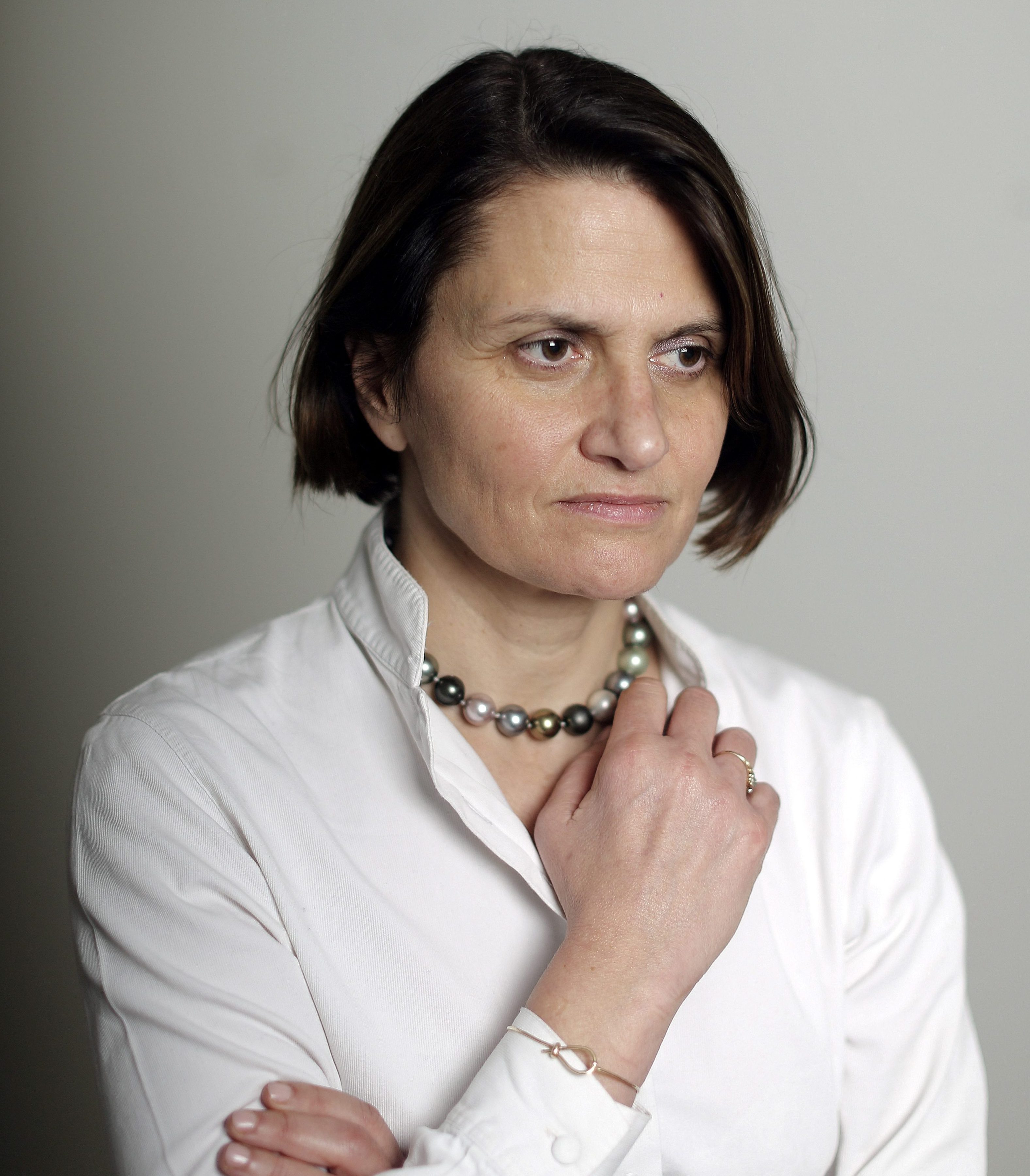
Leyla Boulton, Special Reports Editor and Executive Editor, Financial Times
Leyla Boulton studied Russian literature and history at the University of Cambridge. She started her career as a foreign correspondent in Paris and Brussels for Reuters before joining the FT in Moscow, followed by a posting to Ankara. She spent a decade as a news editor and digital pioneer, before moving into editorial management position. She is married to a Reuters journalist with whom she has a daughter, 21, and son, 18.
This British-American dual national is editor of FT special reports, which every year include a series of articles on Women in Business. We met while covering the Global Female Leaders Summit in Berlin in May. I used the opportunity to ask Leyla to give an exclusive interview to the Czech and Slovak Leaders Magazine. Not to add to the typical gender-biased interviews, I decided to skip the questions about combining motherhood and work, and working abroad. Instead, we focused on the profession for which we share a passion – journalism – and its future.
Leyla, we met at the GFL summit in Berlin. In what aspects did you find this summit targeted for women but not addressing purely “women’s issues” different?
What was so good about the global female leaders forum was the way it combined a discussion of some of the most important issues of the day – whether technology or health care – with an environment more conducive to women speaking out, and networking. In a male-dominated gathering, whether at conferences or senior corporate boardrooms, women may be more hesitant to speak up than their male peers. But in a female-majority setting like the GFL, I found it much easier to meet fellow professionals with whom I had more in common on the personal front. So instead of say football or golf, conversational icebreakers for me included my department’s watches and jewellery report, and my son’s healthcare drama (ft.com/max)
Do you think there are any women issues and men issues and women writing as opposed to men writing?
I believe there are no female or male issues or types of writing – but there are differences in tone of voice or approach to issues. And it is this we think of at the FT as we work to increase our proportion of female readers. So we are experimenting with things like our mix of commentators and stories to discover what appeals to both sexes. And this is also why companies pursue diversity of gender in management and thinking – it is good for business. In politics we observe the rise of female talent to join the ranks of Angela Merkel, the German chancellor. The most recent example of a rising female political talent was Ruth Davidson, the gay head of the Scottish Conservative party who is seen by many as the only winner of the latest UK election. At the same time, Theresa May and Hillary Clinton’s setbacks after lacklustre campaigns show you cannot win on gender alone. To succeed you also need to be a good and authentic communicator with policies people can support – as Marine Le Pen in France, a good orator with poor policies – discovered when she lost the presidential election to Emmanuel Macron.
You are a special reports editor for Financial Times. Recently, FT within this series presented a story about two girls growing up, one from the US, one from China. What are the themes that you try to accentuate and how have they evolved throughout the years?
The Financial Times special reports department which I lead produces 150 reports a year on countries, sectors and themes of interest to FT readers. But we are testing and introducing new approaches to the issues our readers are interested in. Showing how girls’ fates are often sealed by decisions made in adolescence (ft.com/growing-pains), for example, helps readers think how to make more of half the world’s potential labour force. Closer to your readers’ geographical home, I hope to have by the time this magazine appears, a new online tool for covering the Czech Republic and Slovakia. This will complement our existing coverage of central and eastern Europe ft.com/reports. Our recent highlights included a great interview with the Slovak finance minister who talked of steering his country past ‘a lasagne of deceit’ (ft.com/kazimir) – a reference to Europe’s different layers of populism.
Classical journalism and printed newspapers and magazines face the same disruptive changes as happen in other spheres. In fact, the Czech and Slovak Leaders magazine has remained the only printed English language magazine in both countries. We both listened to the session where Bloomberg mentioned cooperation with Twitter. How do you perceive the future of journalism?
The first priority is to promote more able women on merit where they are in short supply regardless of their age. Once they achieve a critical mass in management, good female leaders can help good male leaders effect other positive changes – like ending an unhealthy focus on younger female faces in some broadcast media.
We discussed age diversity in the journalism sphere. In the Czech Republic, there is a trend to have particularly young journalists, anchorwomen and anchormen, yet they do not represent all generations in society. Do you see it as a problem?
Journalism needs to adapt to disruption by providing what readers want and need and will pay for. The good news is that this increasingly includes demand for reliable and balanced reporting. That is what we at the 129-year-old FT have been doing ‘without fear or favour’. So has the Washington Post, whose new Trump-era motto declares that Democracy dies in darkness. That is one reason I love leading the FT department which produces high-quality Independent journalism that advertisers are willing to pay for – because that is what our readers will read.
How would you define leadership within the context of journalism…
Leadership in journalism is nurturing talent and anticipating and leading change.
Your final words for Czech and Slovak Leaders readers…
I would love to learn from visiting your part of the world what a Britain divided over Brexit can learn from your two countries’ experience of a formal split. When I last visited, Czechoslovakia was a single country behind the Iron Curtain. I loved Prague and I also enjoyed working on a youth exchange forestry project in what is now Slovakia. As a reporter in Moscow for the FT in the early 1990s, I was greatly helped by the Czechoslovak representative in reporting the unwinding of Comecon – the Soviet-led trade bloc. And I have had a couple of important friends over the years of Czech origin, including one of my professors at Cambridge University – and my favourite Cold War TV drama is Tinker Tailor Soldier Spy – whose Brno scenes were apparently shot in Glasgow! So on a both professional and personal note, chatting to you has been a delight!
By Linda Štucbartová
“Women (don’t just) enrich the army”
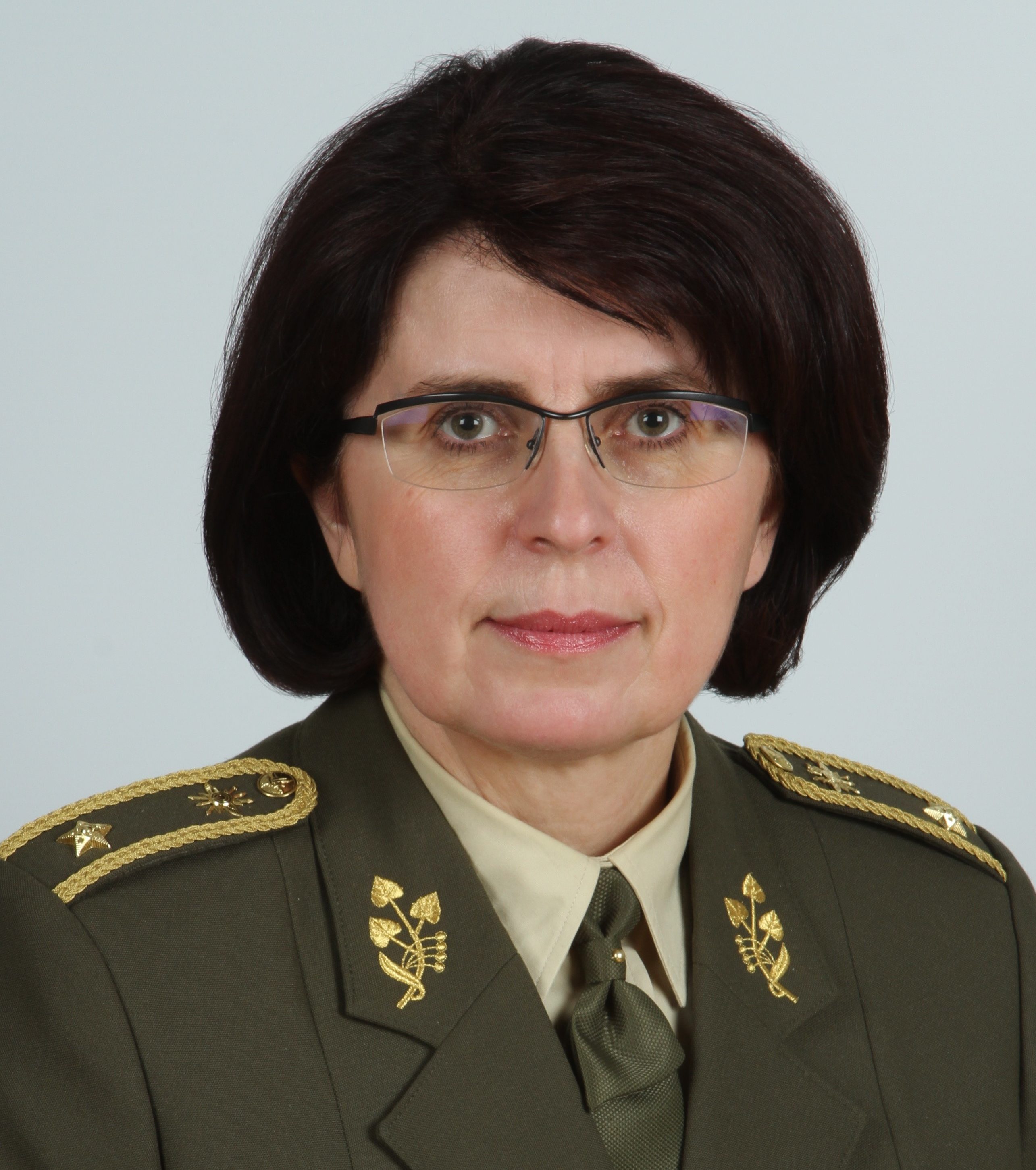
Lenka Šmerdová, first female Brigadier General in Czech Republic
It’s been three weeks since you were named in your role, Brigadier General… What does it feel like to be the first woman in the position in the Czech Republic? Have you got used to it?
It’s an incredible feeling. It’s still new to me. Every day there are situations which are unique and sometimes touching. You can’t get used to that. I think I’m always going to be aware of the great appreciation and also trust I have received for my work, and the work of my colleagues. I very much appreciate it.
You’ve said that your appointment could open the doors to other women. This is your second time being first; you were also the first woman appointed to the position of colonel. What advice do you have for women who want to get a higher position in the Czech army? And for women in general regardless of where they are?
I’m pleased that equality isn’t just something that’s spoken about in the army. Women have shown in recent decades that we belong to the army and we can enrich it. That’s why I believe that my appointment could encourage other women and give them the courage and support in endeavouring to achieve their goals. And there are many other women around me who have fought for their position, respect and esteem and I admire them greatly, regardless of whether they are in uniform or not. It is important to get the opportunity, not to waste it and to keep working on yourself. It also demands self-confidence and the strength to pursue your goals. We all have desires and wishes. Some of these are met through our partners and children, but others we have to achieve ourselves.
You’ve been in the army since 1984 and you work in personnel and recruitment. How has the approach to this area changed over time?
I think an important milestone was the movement from the unpopular compulsory military service to a professional army which is gaining ever greater favour not just amongst men, but also women. We have now even managed to fill up our so-called active reserve force with volunteers. Understandably, personnel work and recruitment has grown in importance over the years in a professional army. This involves working with people and especially for people, and it is people who are the army’s most valuable resource. I also consider my appointment into general rank as an expression of the importance of my work not just in acquiring human resources for the army, but also in our care for them, training and educating high quality soldiers.
Many private companies are suffering from recruitment problems at a time of low unemployment. How is the Czech Army dealing with this situation?
Although Defence is perceived as a responsible, reliable and attractive employer, it is getting harder and harder to find new military personnel. We’re not alone in this on the labour market; besides civilian bodies, other branches of the armed forces and security and rescue forces are in the same boat. And we are all interested in the same individuals; young, healthy educated people.
The army’s good work at home and abroad is not enough to promote it. We have to actively draw the public’s attention to the opportunities offered by the army – as such the army must be seen and heard all the time. We’ve got a campaign currently running on a number of radio stations, we’re active on the internet, we use social networks. Interested candidates can apply from the comfort of home. We have also published reports in the regional press. We further arrange recruitment activities in the field, at large nationwide or smaller regional events. Recruiters also travel to job exchanges, to schools and to various sports events where they have the opportunity to meet scores of active people. We must constantly seek out new methods and opportunities to appeal to the public and gain the candidates we need. In this regard, the army must not be left behind.
You’re married and have a son. How do you manage to combine work and family?
My family is incredibly important to me. Without the support of my husband and son I would not be able to manage this job. I’m not able to do everything at home on time or absolutely perfectly, but for us it is most important to be together so I appreciate all the time we spend together, which we all enjoy and savour.
You are also an advisor to the Chief of Staff of the Czech Armed Forces. Could tell us more about this role? What strategic issues are you looking at in the security field?
I’m an advisor in the field of human resources and for the army as well as me this is a new situation because we were not previously used to considering human resources from a comprehensive perspective. As such it will be my task to consult on these aspects within the context of other tasks and work them into individual development concepts.
From your expert position, do you see today’s world as safer or less safe? And what about the Czech Republic?
All of us are undoubtedly thinking about the outlook for global security and how its development will influence us in future. Most experts agree that the situation is currently more unstable and hard to predict than before. I can see specific impacts through society and peoples’ interest in security, which has grown in recent years. In the context of events, ever more citizens are aware that stability and security doesn’t just cost something, but it is also important that they get actively involved, whether by deciding to join the military professionals, or perhaps taking the path of being an active reservist combining a civilian and military career in one. I think that is a fundamental change which should inspire optimism.
Linda Štucbartová
Impressions from events of Miloš Zeman.
Photos: KPR Archive
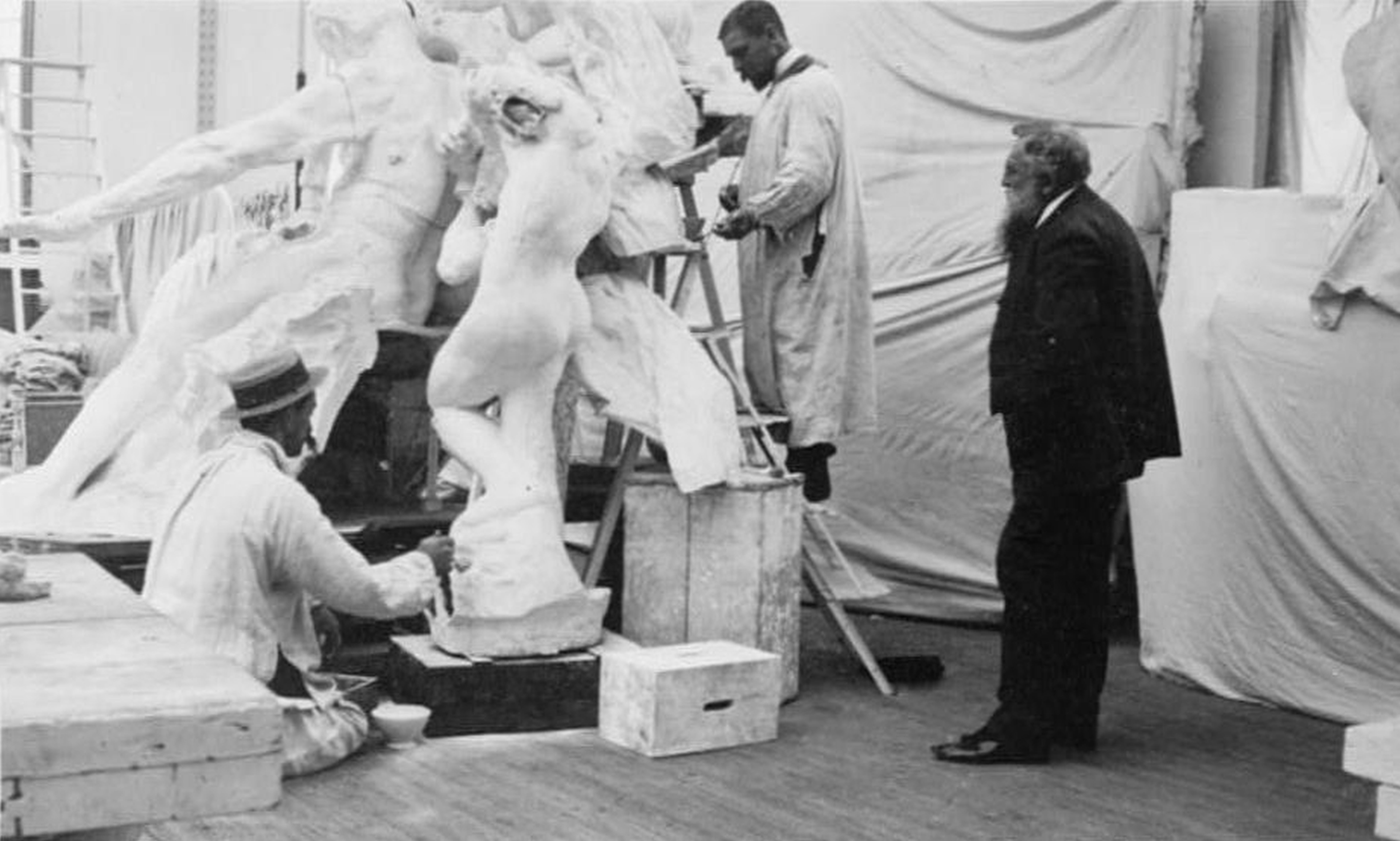
Auguste Rodin, monument for Victor Hugo
In November 2017, the art world is celebrating 100 years since the death of one of the greatest sculptors of the 19th Century, exhibitions of whose work can be visited the whole of this year around the world. Paris’s Grand Palais is currently holding a fascinatingly conceived exhibition of Rodin’s work, presented next to the works of many other sculptors, including contemporary sculptors, which have been influenced by his creations.
Rodin is considered a pioneer of modern sculpture, and as such during a period of smooth and aesthetic academic sculpture he was unable to get into Paris’s École des Beaux-Arts at 17 years of age despite being supported by his teachers, who were convinced of his huge talent. His impressionist and innovative expression perverted established mores and the traditional bourgeois perception of art.
Rodin’s works were innovative in particular in their approach to the sculptural surface and the use of surfaces to create effects of light and shadow. He named his method marcottage (layering). In his statues, he broke three-dimensional shape down into a dance of reflections and colours which result in an appearance similar to impressionist paintings. He considered the art of nature a source and inspiration for his work, in particular the human body which he considered the best means to express any state of mind. His artistic genius was in his concept of animating statues by concentrating focus not just on the curves of the body, but also able to gift his sculptures with life force and freedom which influenced the development of a unique and previously unseen concept of sculpture. He preferred to work with amateur models, street performers, acrobats, strong men and dancers since as an artist he was fascinated by dance and spontaneous movement in general. Rodin’s liberal approach had a huge impact on subsequent developments in modern sculpture, although his interest in the figure was rooted in his admiration for Michelangelo. As such he did not stand opposed to the past, actually being inspired by it. Although he had no formal education, he became an inspiration to subsequent generations of sculptors.
Besides shapes his sculptures also express internal tension, dynamic feelings both of the artist and the themes portrayed, which Rodin always used to give his works a remarkable realism, thus celebrating the uniqueness of his figures. He never wavered from his principles, despite criticism, and thus he created unique works portraying the inner self.
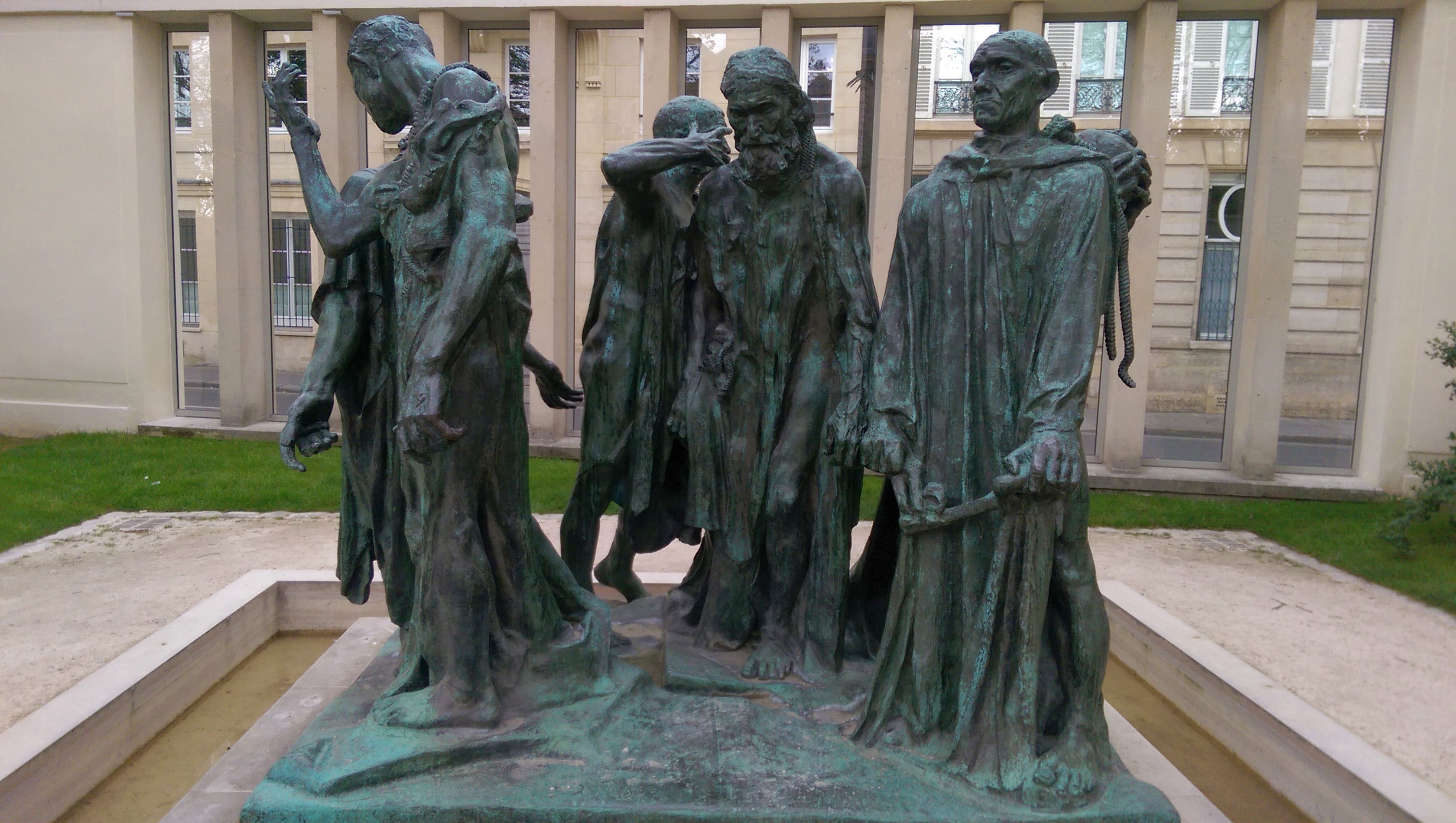
Burgeois de Callais
His statue The Age of Bronze stirred up great commotion at the Salon in Paris. Because it was so realistic, Rodin was accused of casting a living person instead of modelling the statue. The statue was a precise image of the Belgian soldier who was his life model. At the time, Rodin was 36 years old. Although many artists defended him, it took him almost ten years to clear his name. Nevertheless, his fame and reputation within the art world began to grow. His marble sculpture, The Kiss, was selected for the World’s Fair in Paris in 1900, where Rodin was given over a whole pavilion. Perhaps his most famous statue, The Thinker, was installed in front of the Panthéon in 1906. He undertook monumental sculptures in honour of Victor Hugo and Honoré de Balzac. He was commissioned to create his extensive work, The Gates of Hell, inspired by Dante’s Divine Comedy. He worked on this for 37 whole years, but he never completed it and today the sculpture is installed in the gardens of Biron Palace, where he worked for 10 years before his death and which is today a museum formed in his honour and containing his greatest works. Many of his monumental pieces have also been installed in the gardens of the Chateau de Meudon near Paris, which Rodin acquired at auction in 1895, and this is a place where his statues seem to impart their thoughts upon the viewer.
His close friends included Claude Monet and Paul Cézanne. He was admired by great figures such as Oscar Wilde, and writer Rainer Maria Rilke worked for him as a secretary for a year, and later wrote a fascinating monograph about him.
It is well known that Auguste Rodin did not like travelling. Thanks to Josef Mařatka, whom the famous French sculptor accepted into his studio and made him his assistant and a kind of secretary and interpreter, however, a miracle occurred. Following his repeated requests, Rodin took the train to faraway Prague to open an exhibition organised about him by the Mánes art society in spring 1902.
Rodin’s arrival in Prague in May 1902 was a great event. The sixty-one year old artist was welcomed by enthusiastic crowds and enjoyed an official reception at the town hall, and also a number of art banquets held in his honour. All this, and his exhibition in the pavilion under Kinský Garden is thoroughly mapped out, but little has been revealed about Rodin’s trip to visit Joža Uprka, a painter who put French impressionism in the service of Moravian folklore. Accompanying him were a number of artists including Alfons Mucha, whose Art Nouveau posters had conquered Europe.
After touring the Moravian Karst and Macocha, the excursion moved to Hodonín, where the guests enjoyed, besides a performance of Zeyer’s Radúz and Mahulena, also an exhibition of Moravian and Slovak artists in Besední dům. This was dominated by the pictures of Jože Uprka, who was one of the organisers. It seems Rodin was enthused and he went straight to visit Uprka in his home in Hroznová Lhota. Twelve carriages accompanied riders in folk costume on richly adorned horses from Rohatce, Strážnice and Vlčnov. Rodin felt like a king. The magazine Zlatá Praha reported on the event, publishing many photographs.
More recently, an auction took place of a marble statue (28 cm) of a lying Andromeda forgotten for 130 years. In 1888, a Chilean diplomat at the time posted to Paris, ordered a bust of his wife Luisa. The sculpture enjoyed such success that the French state requested the bust. The diplomat granted France its wish, and in return Rodin gave him this marble statue of Andromeda. The statue remained with the diplomat for many years and was then passed down through the family. This May, the statue was put up for auction in Paris with an estimated price of 800 000 USD, and it was sold on 31 May 2017 for 4.1 million USD.
Rodin was not just a sculptor; as a young man he also painted oils and watercolours. The Musée Rodin has a collection of over seven thousand of his pencil, chalk and charcoal drawings, thirteen drypoints and his only work of lithography.
Rodin died on 17 November 1917 in his Villa des Brillants in Meudon. He was buried on 24 November in Meudon alongside his wife Rose. His grave is adorned with a stature of The Thinker.
Exhibitions, info :
Grand Palais, avenue General Eisenhower, Paris 8 ( exhibition until 31 July 2017 )
Musée Rodin, 79, rue de Varenne, Paris 7 ( permanent exhibition )
Villa de Brillants, 19, avenue Auguste Rodin, Meudon (permanent exhibition)
Author: Ing. Arch. Iva Drebitko
Photographs: author’s archives


